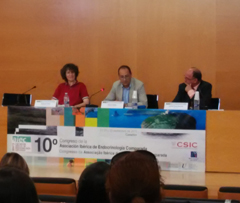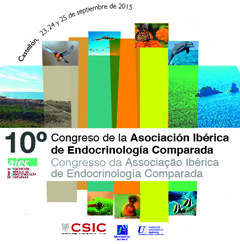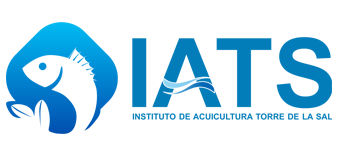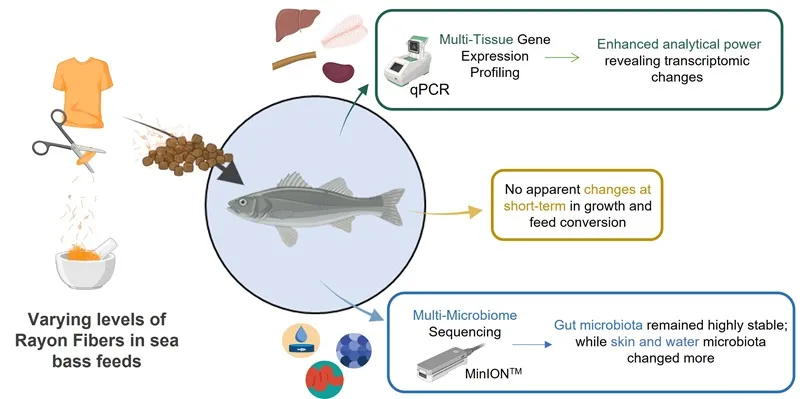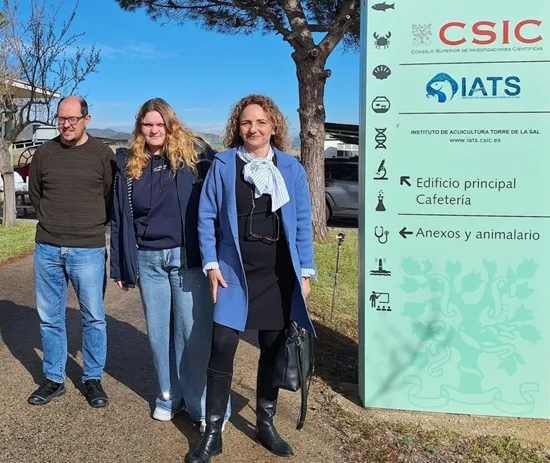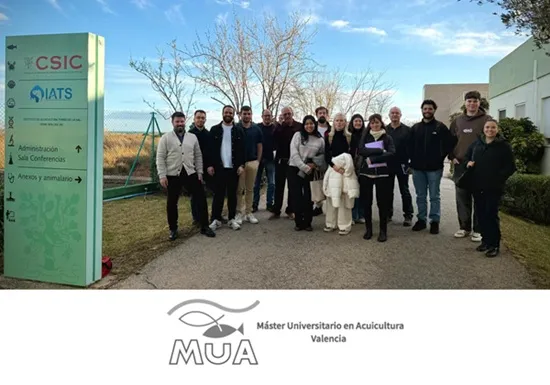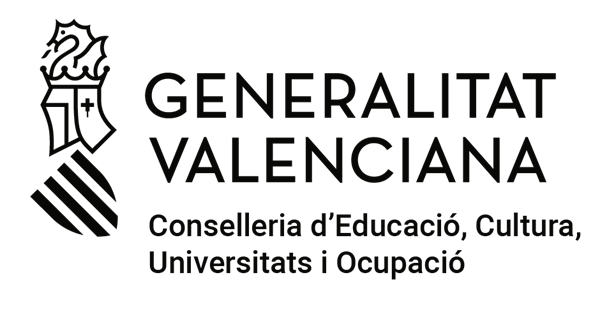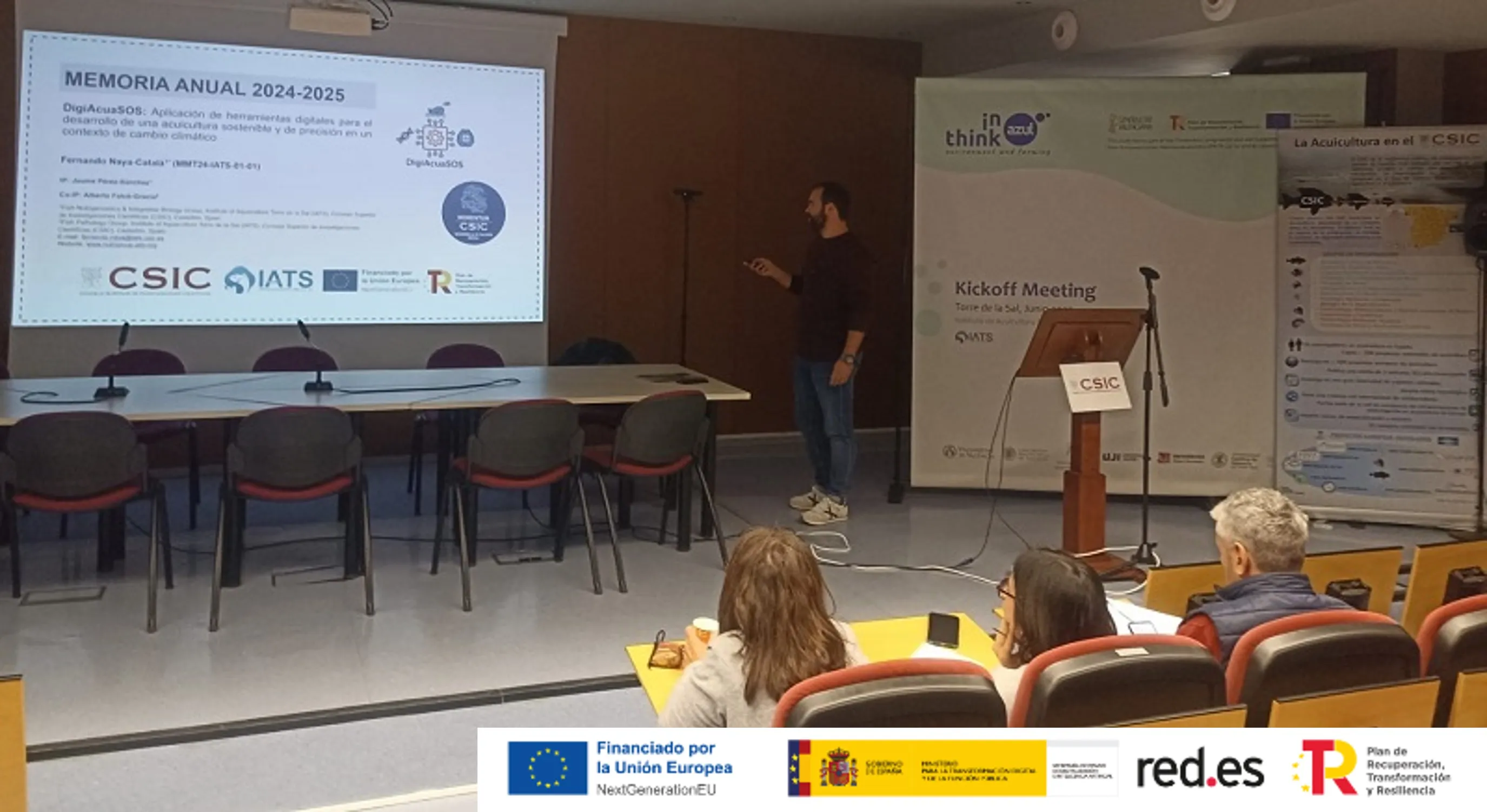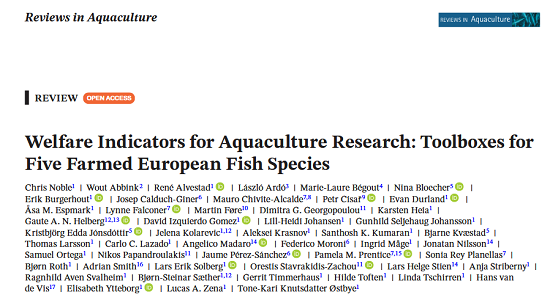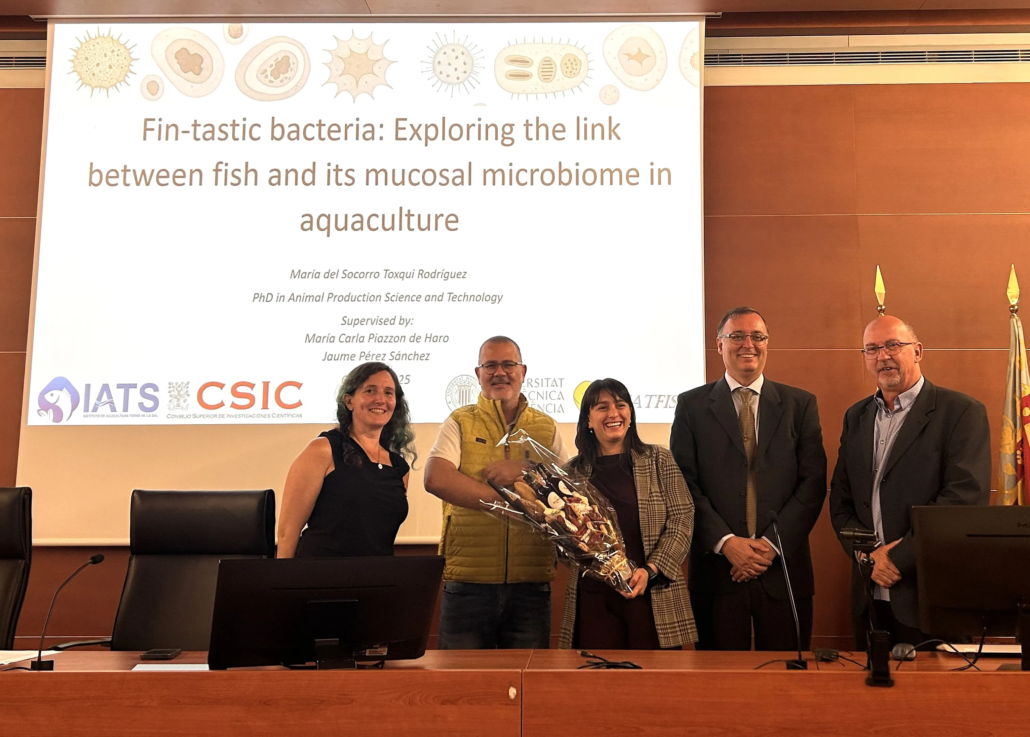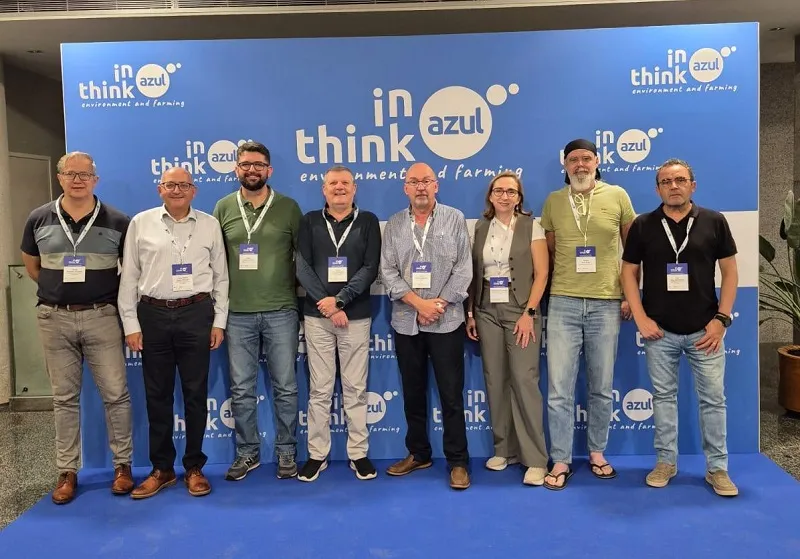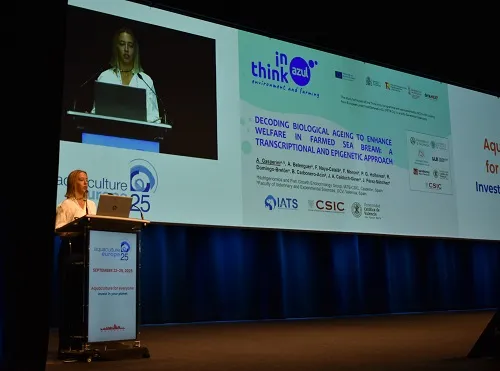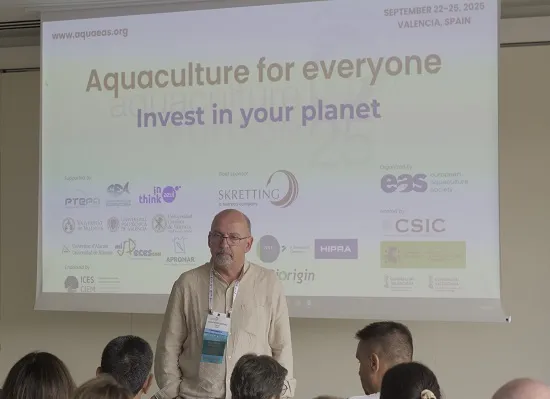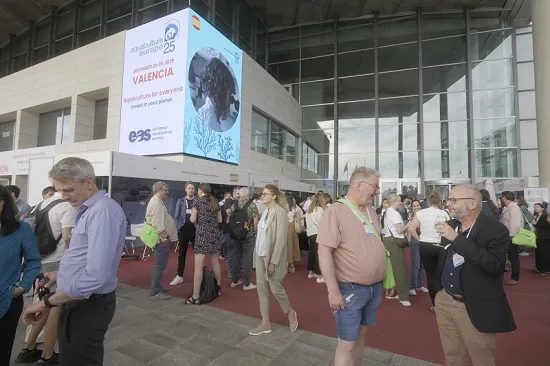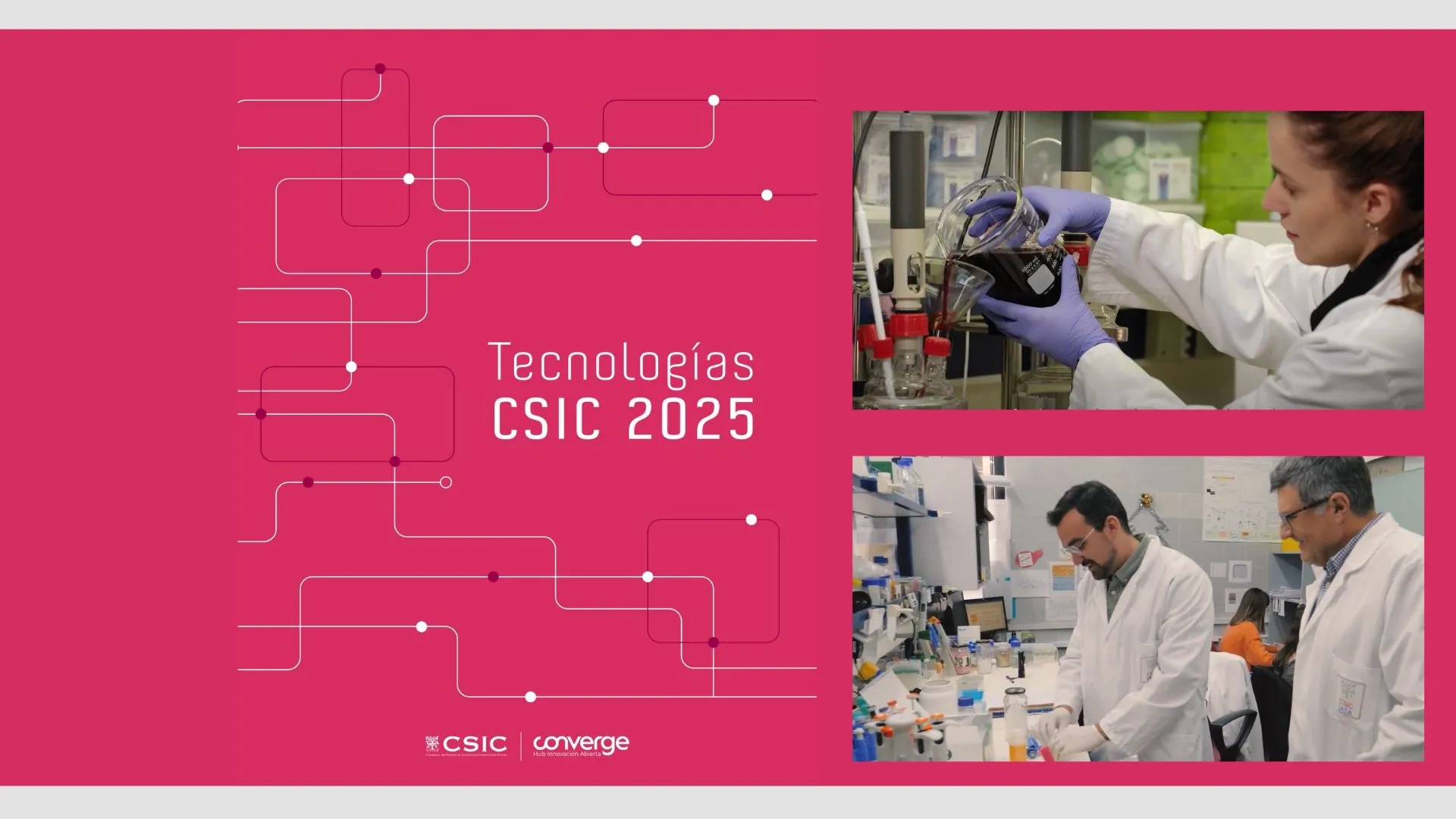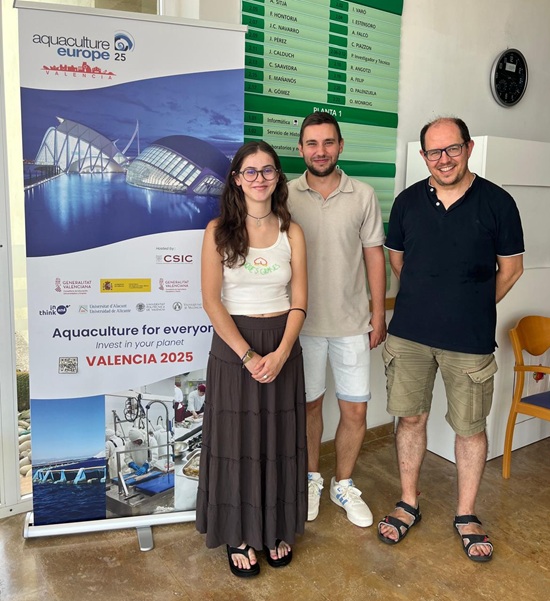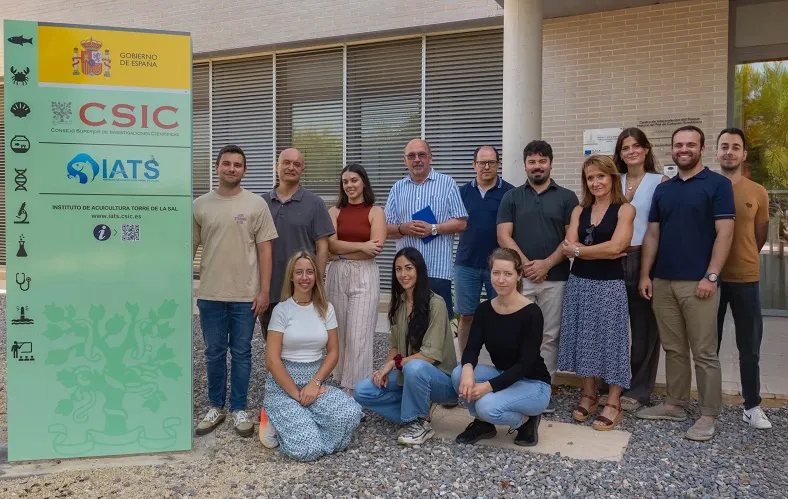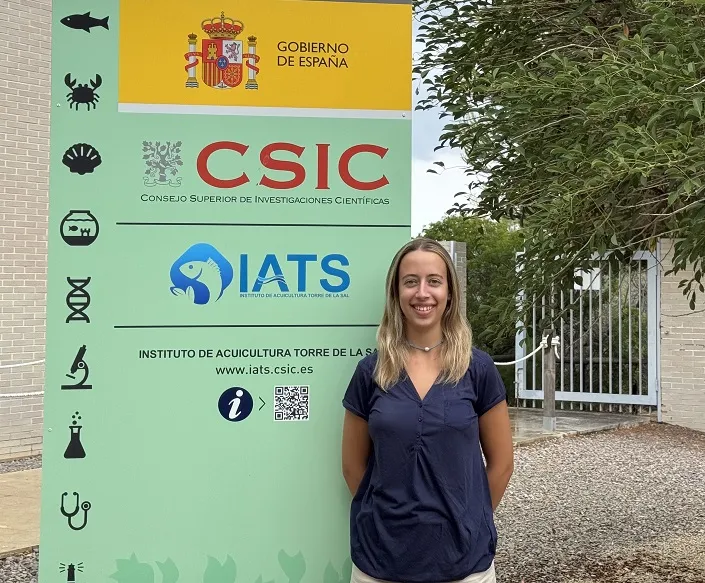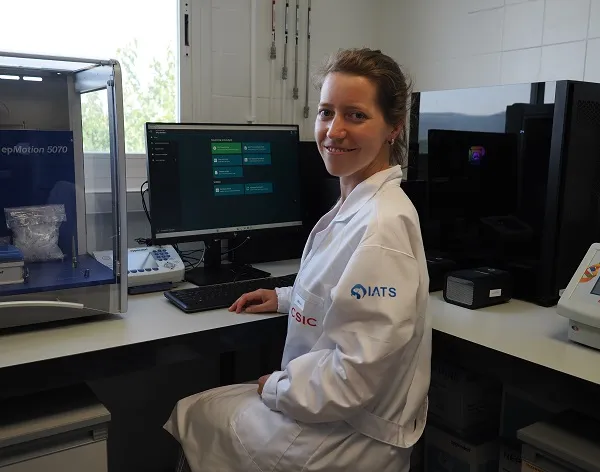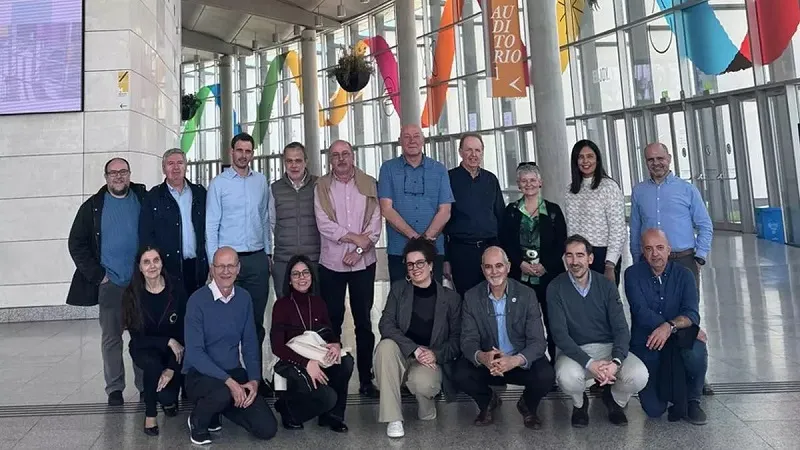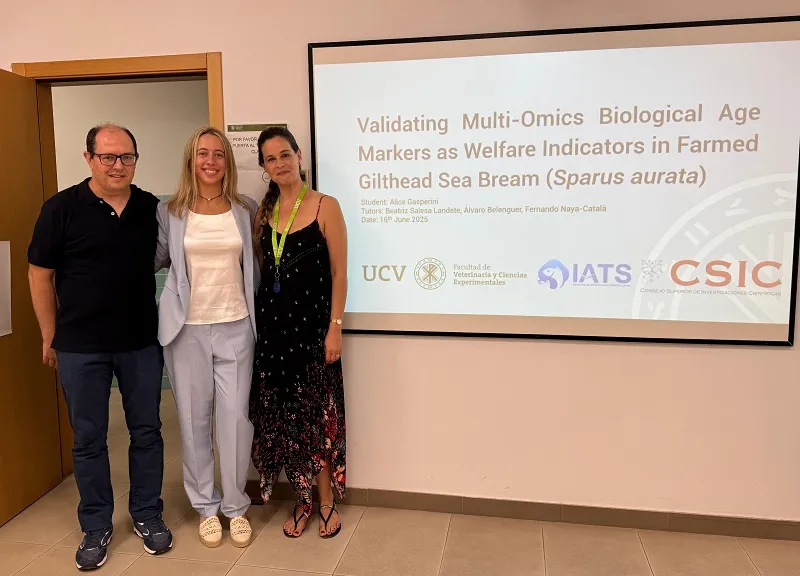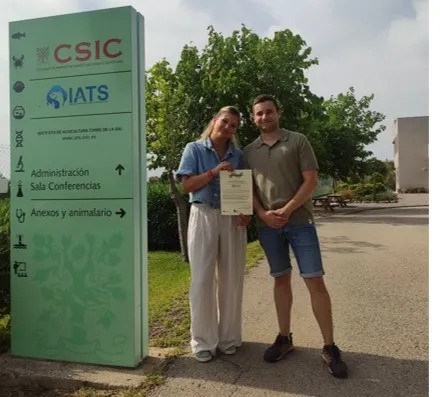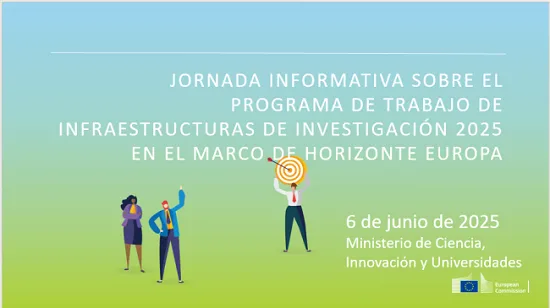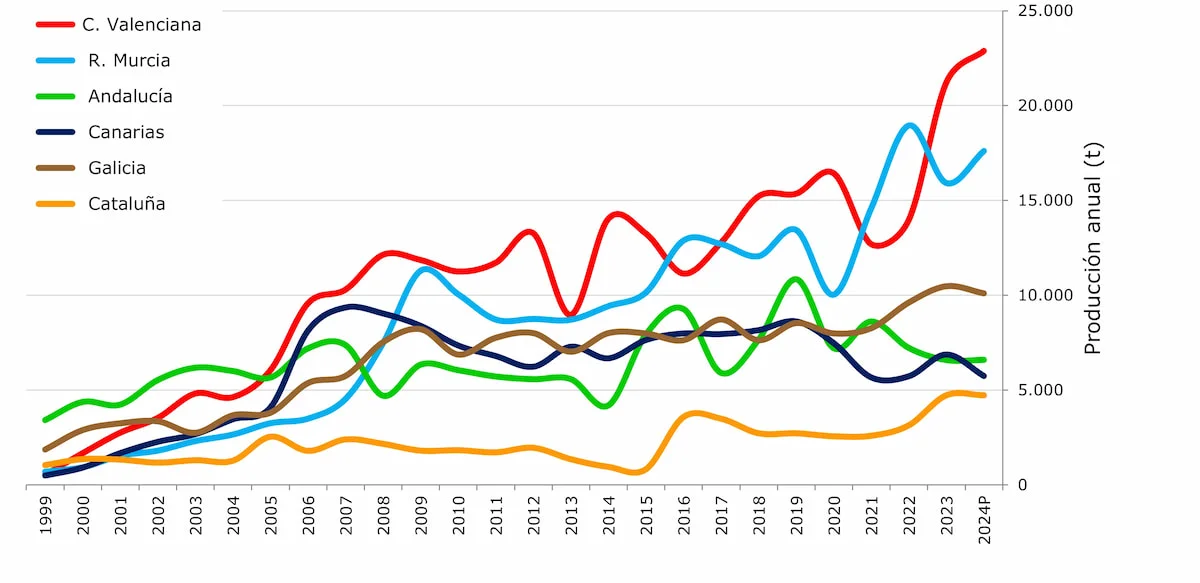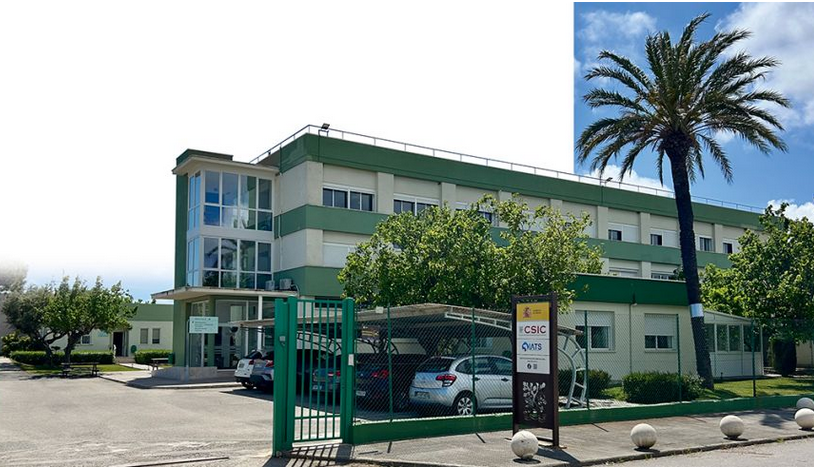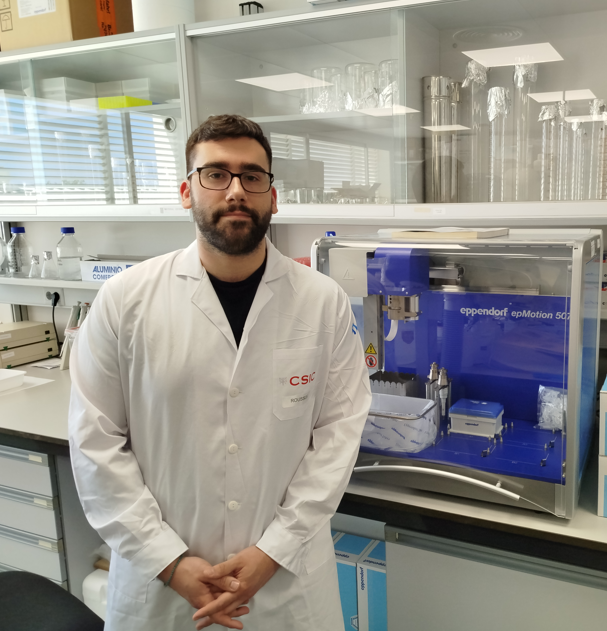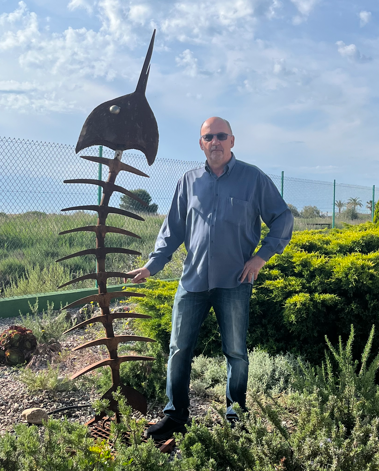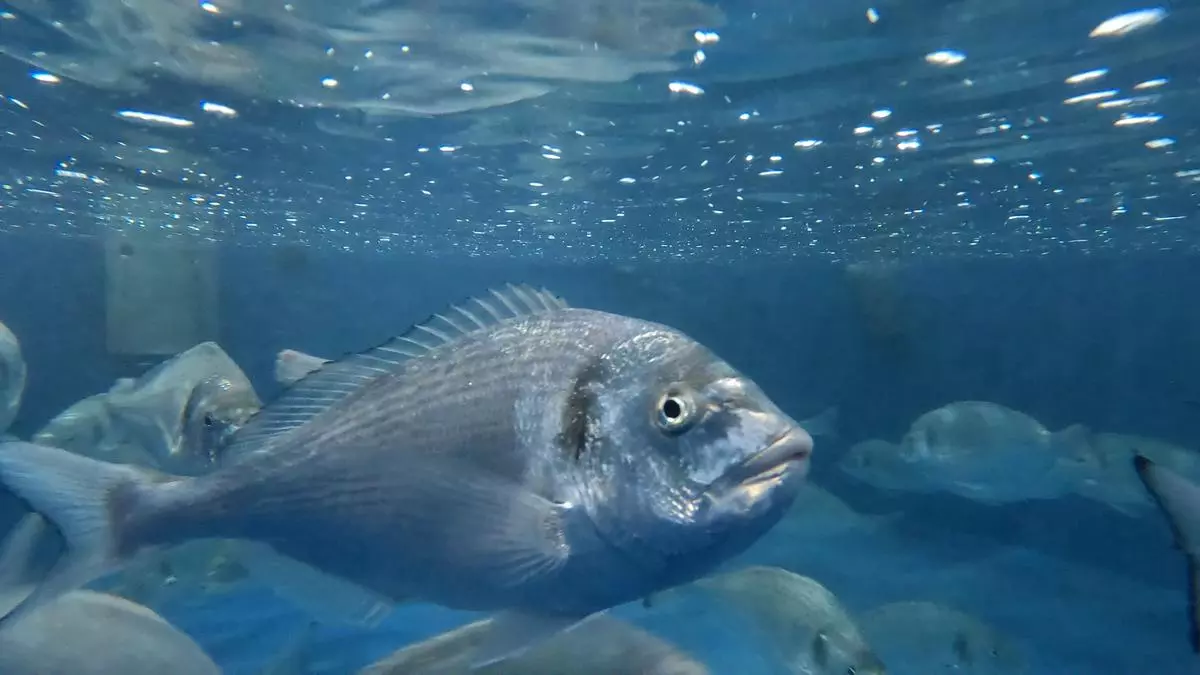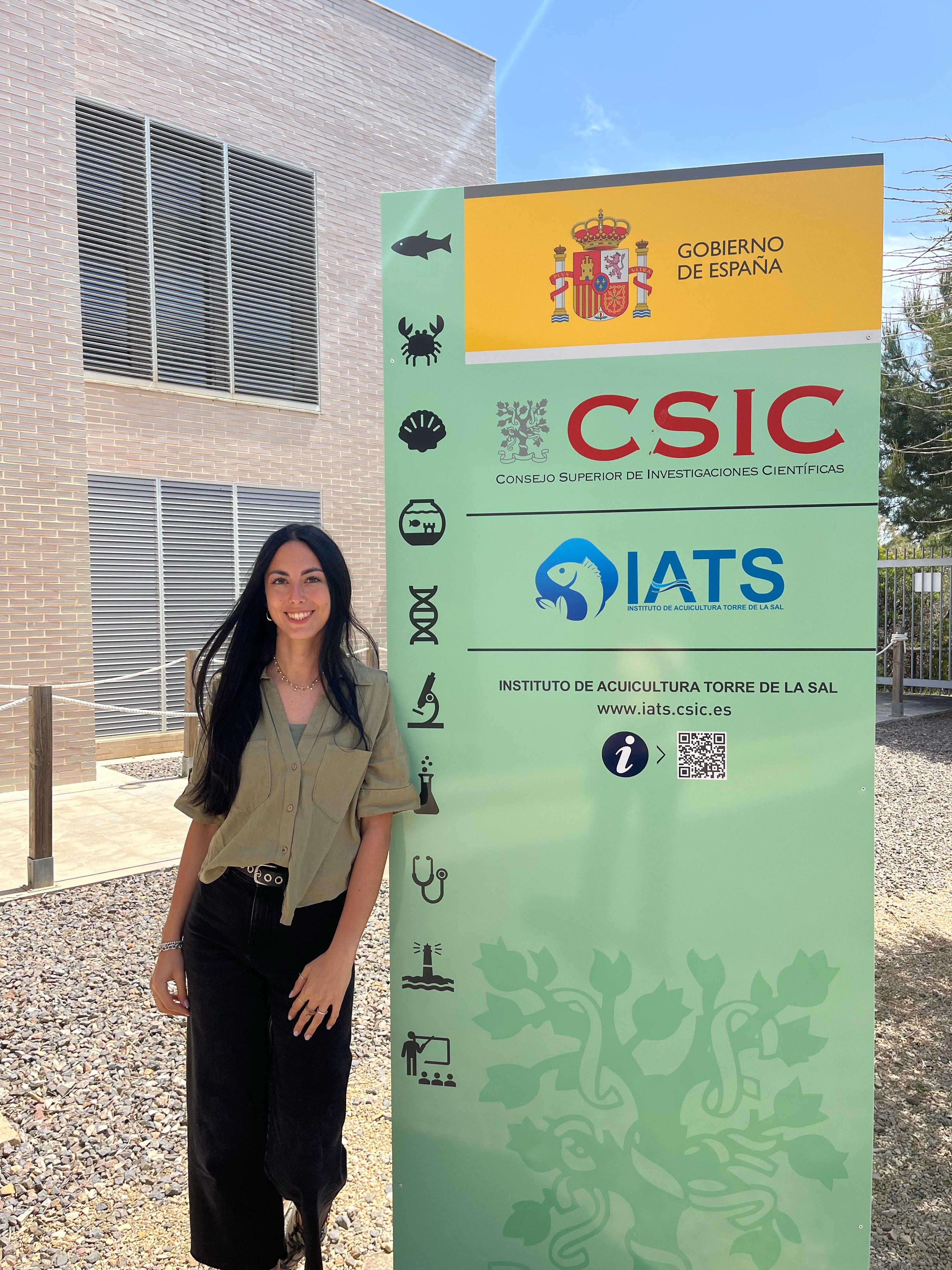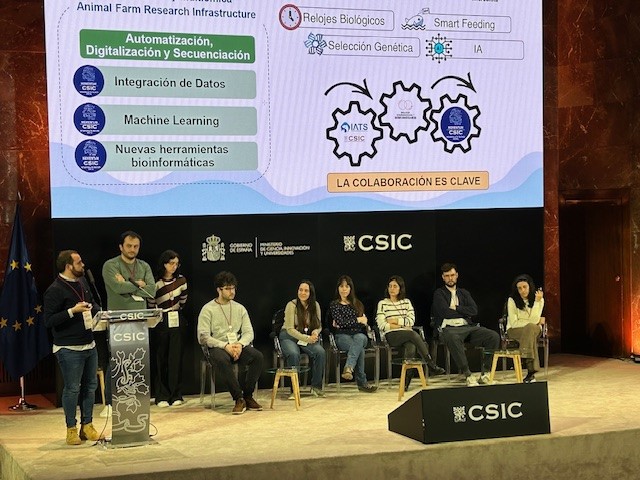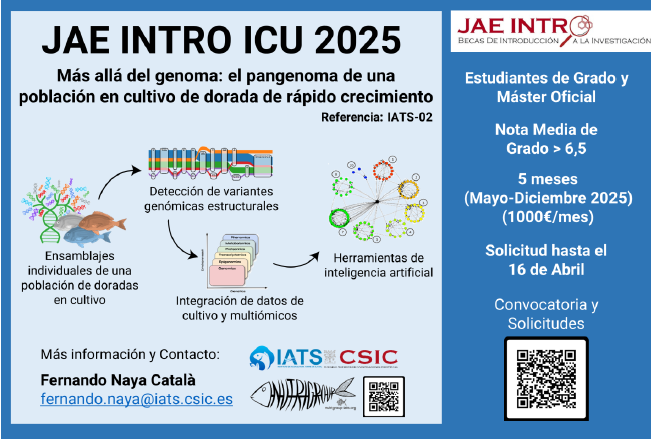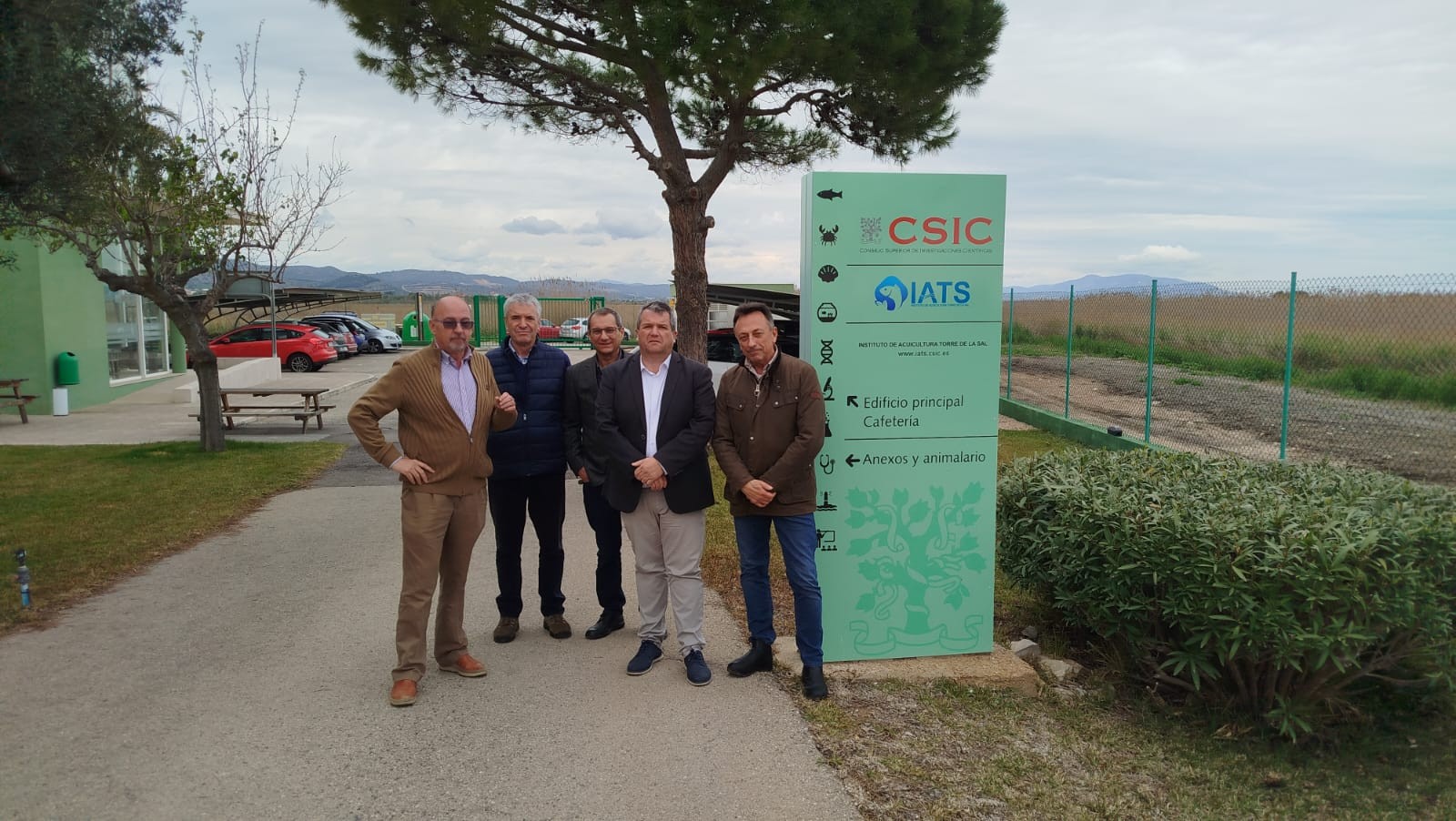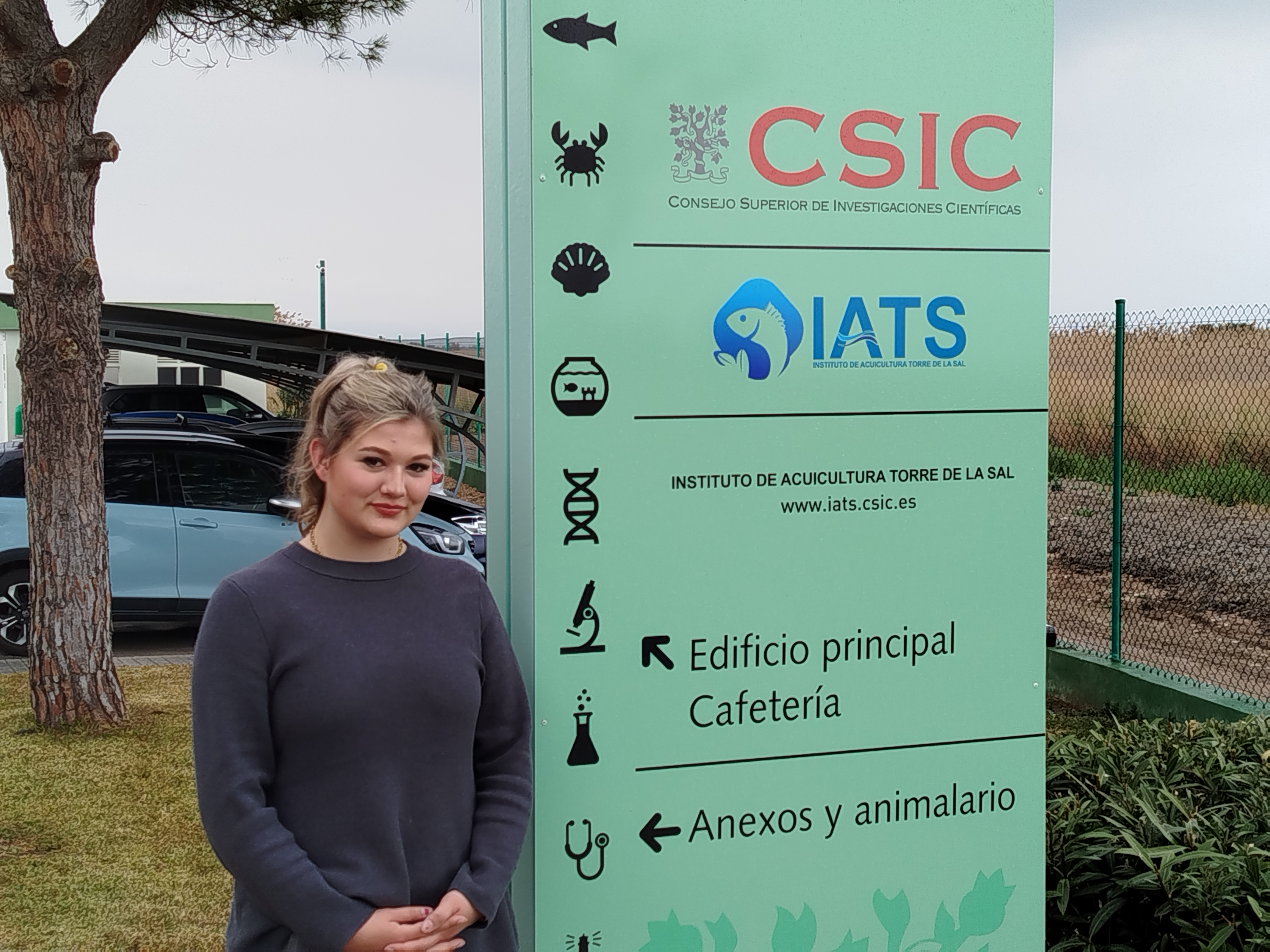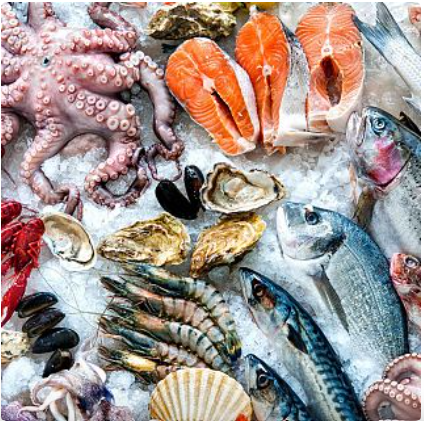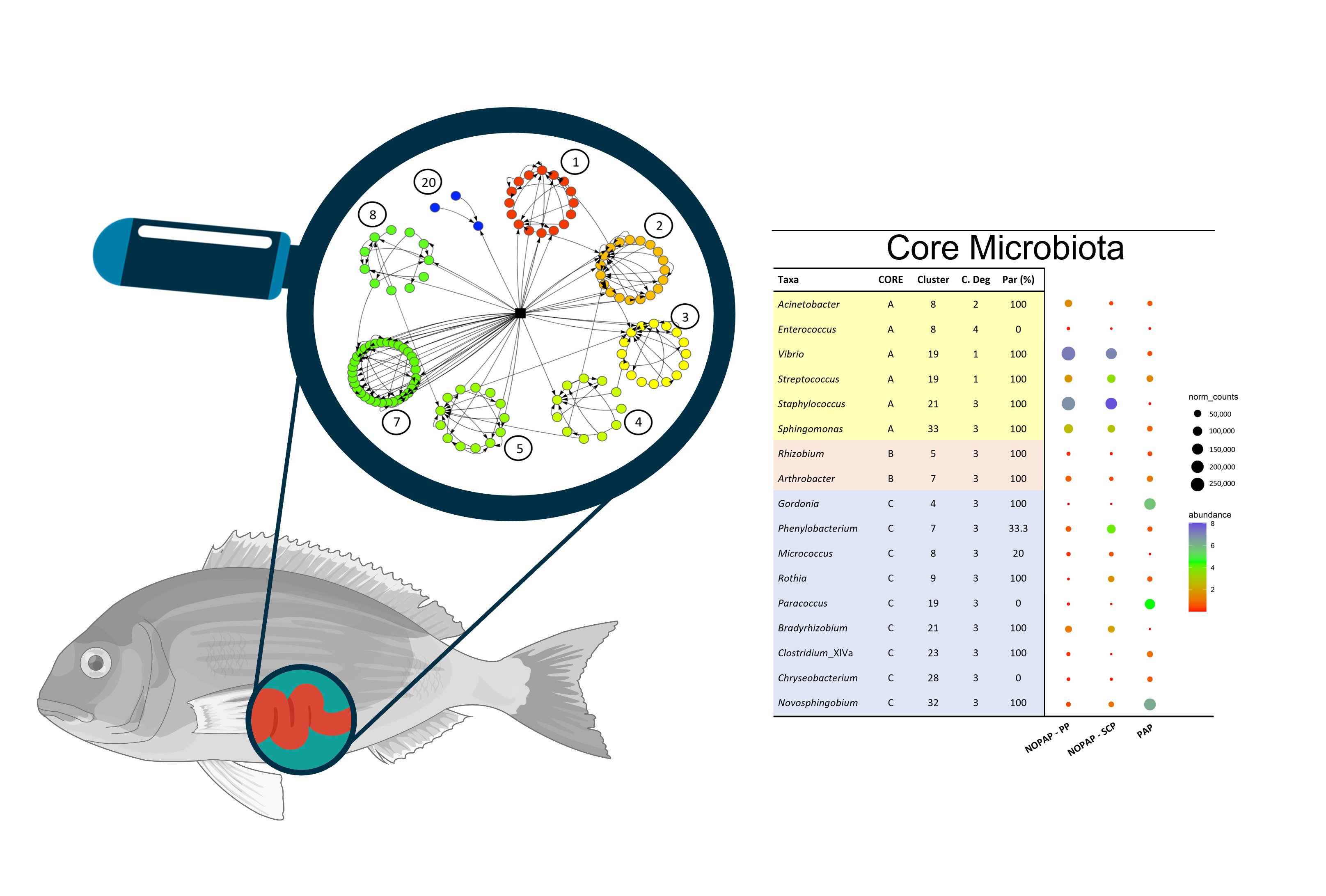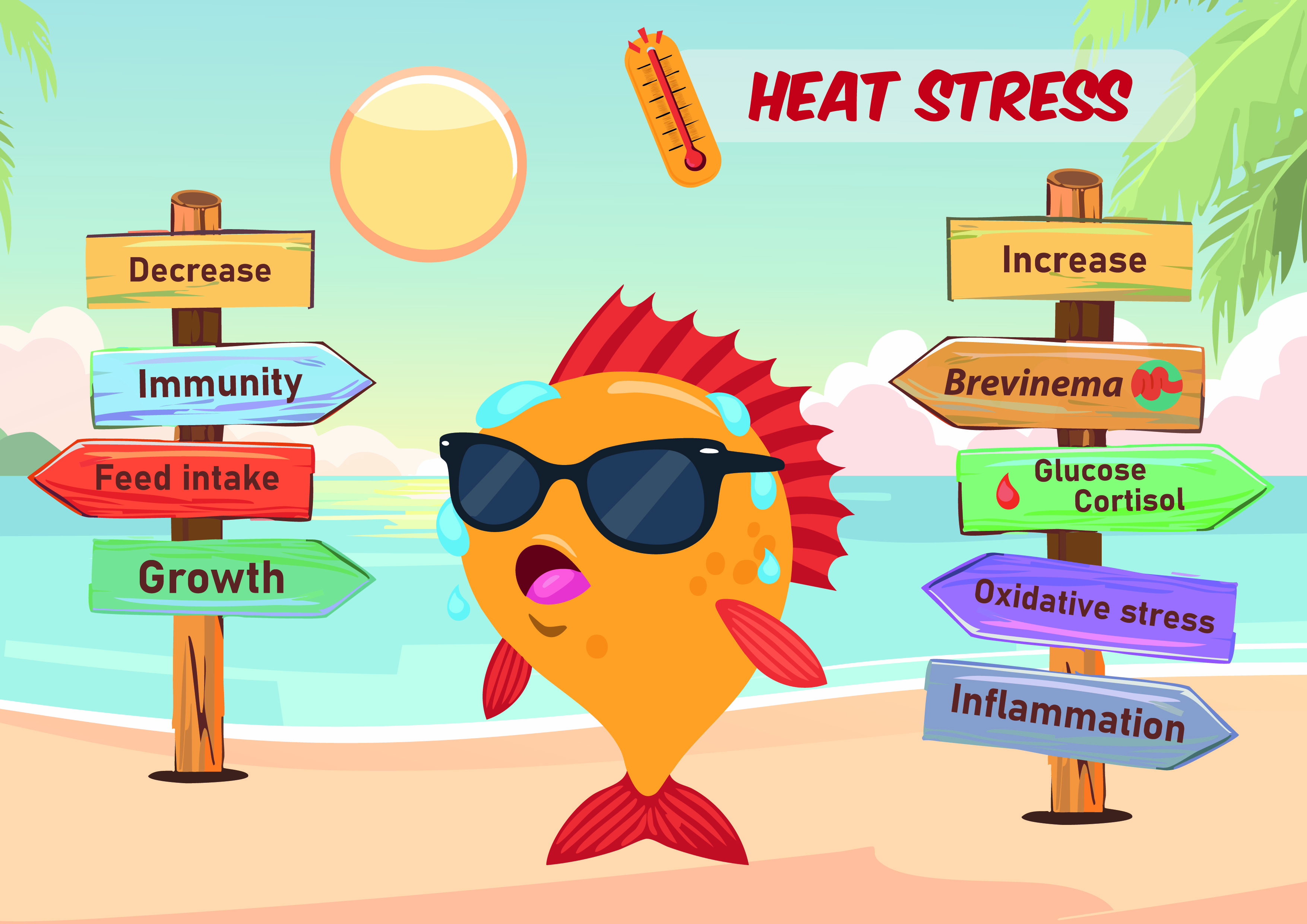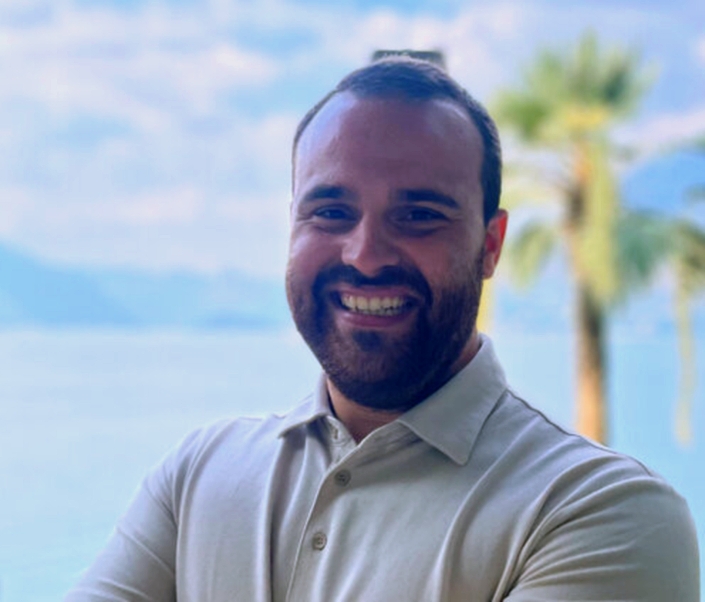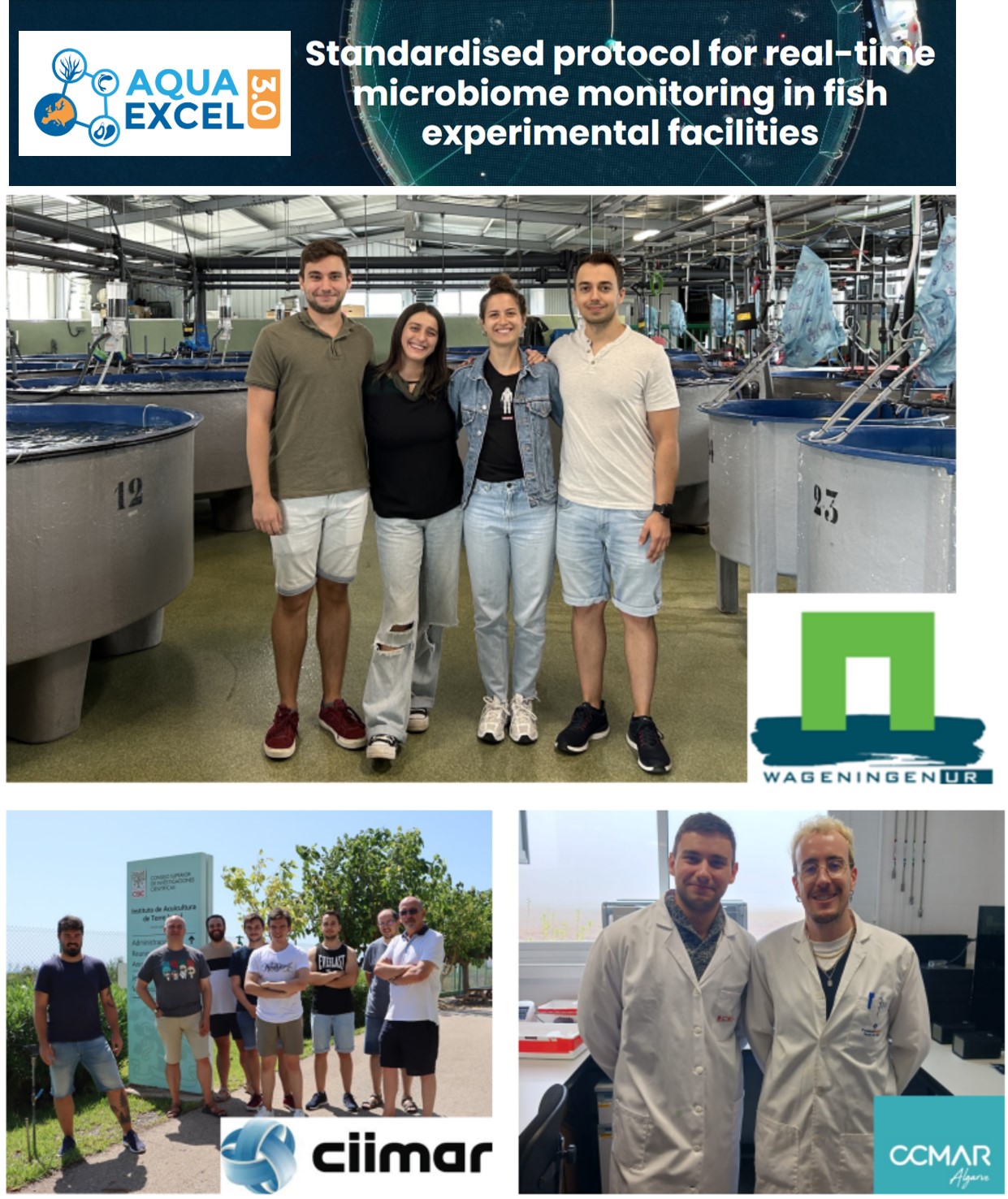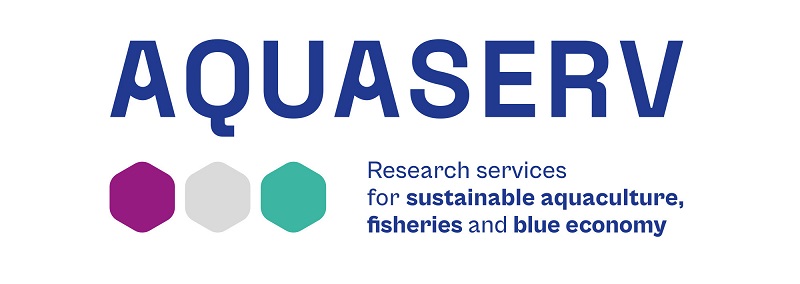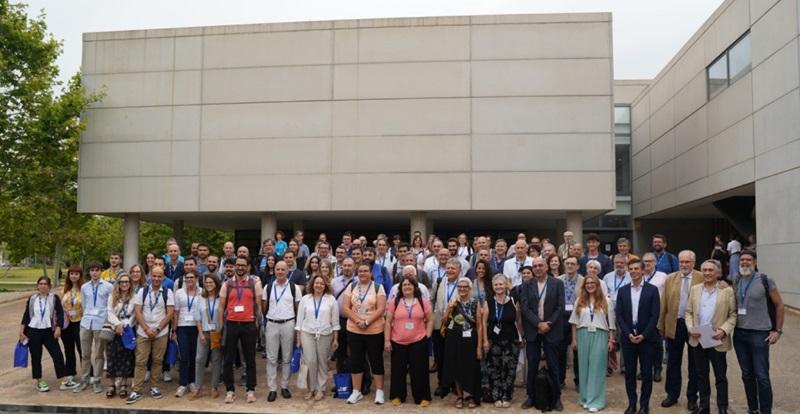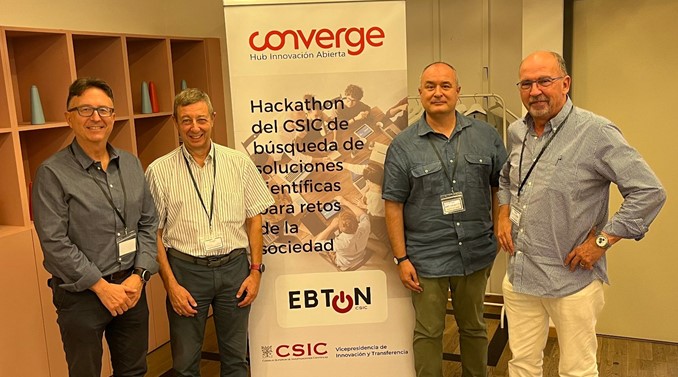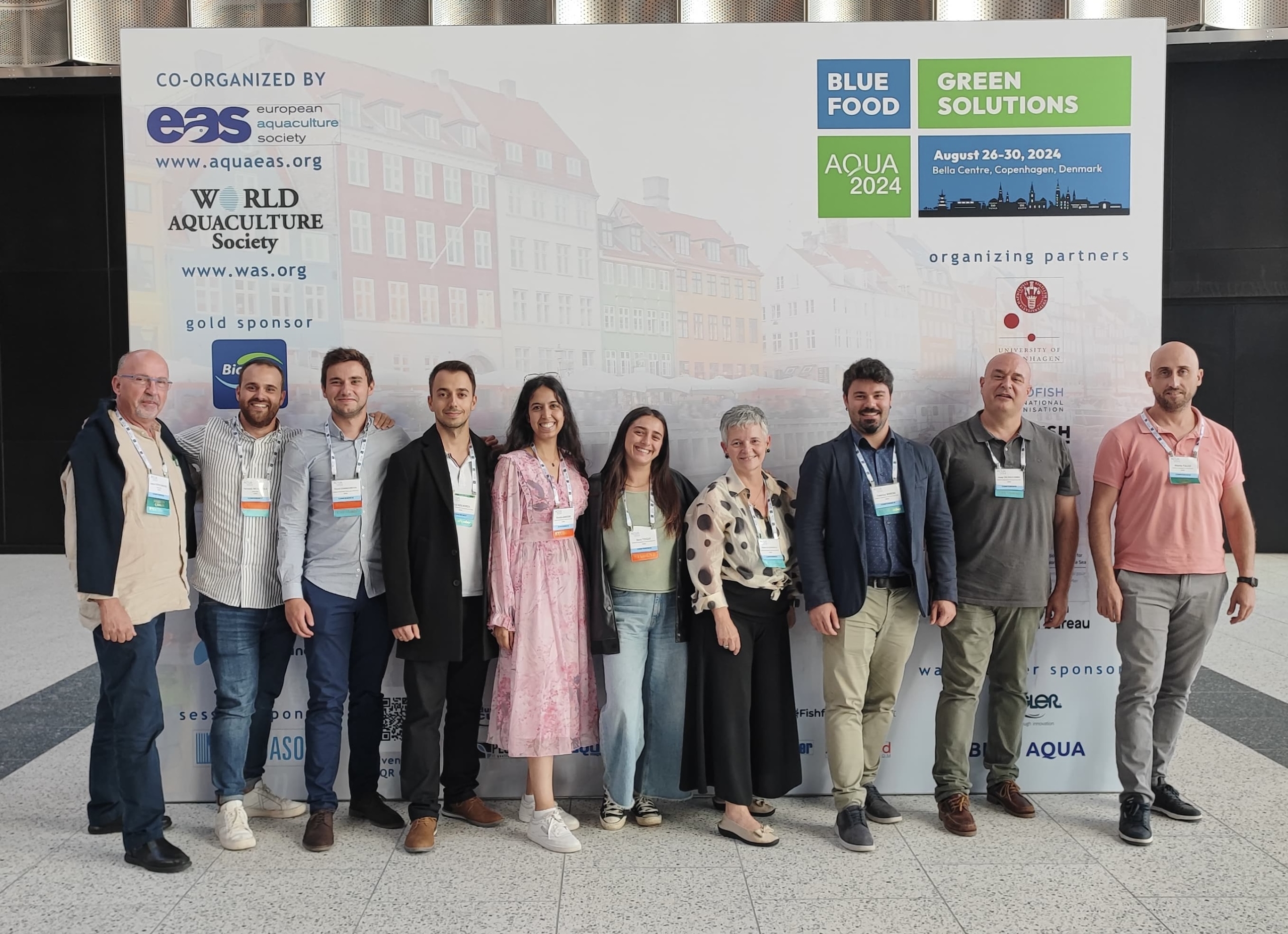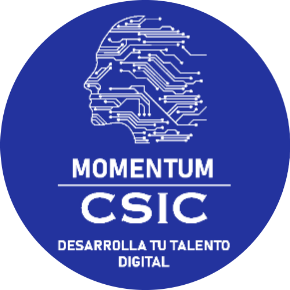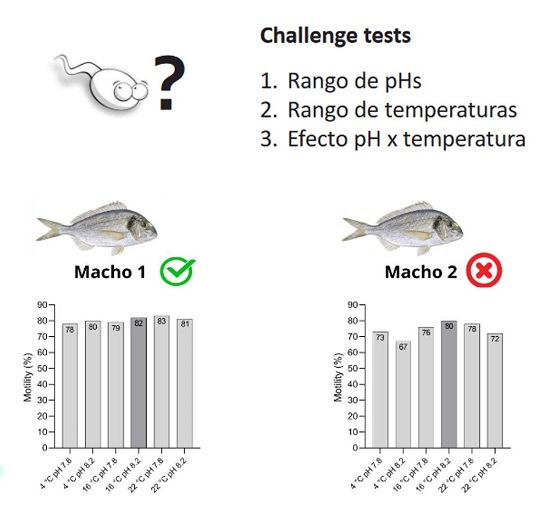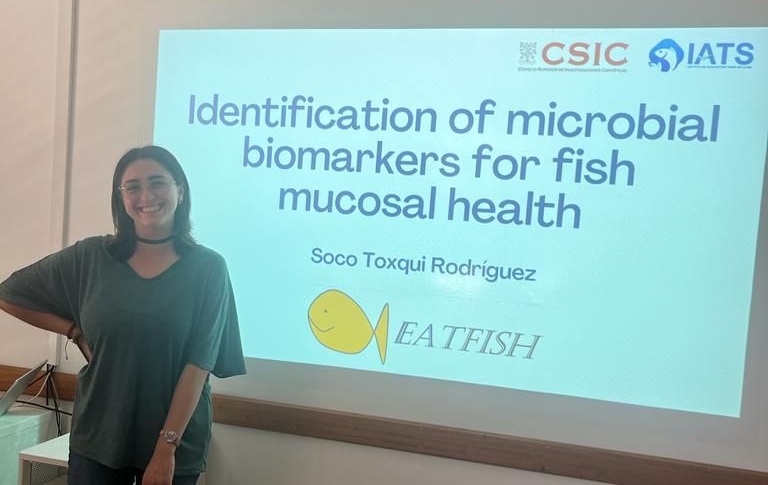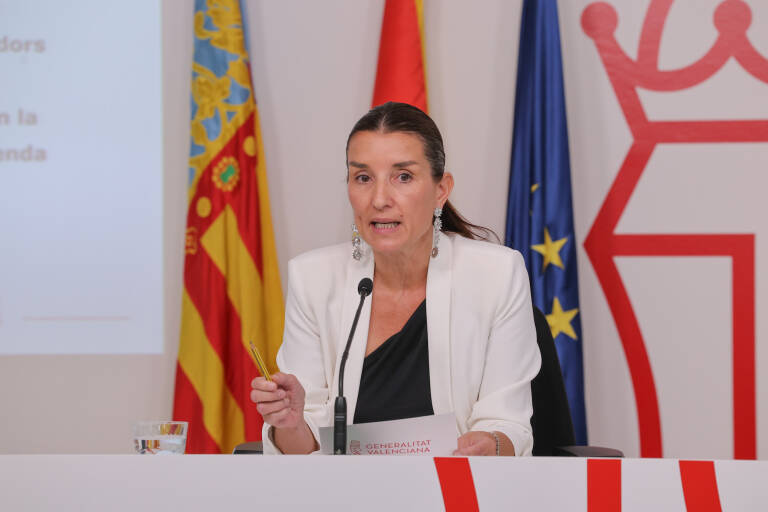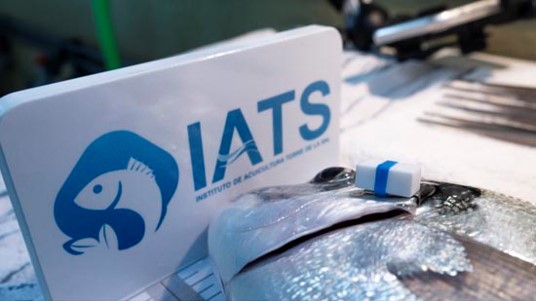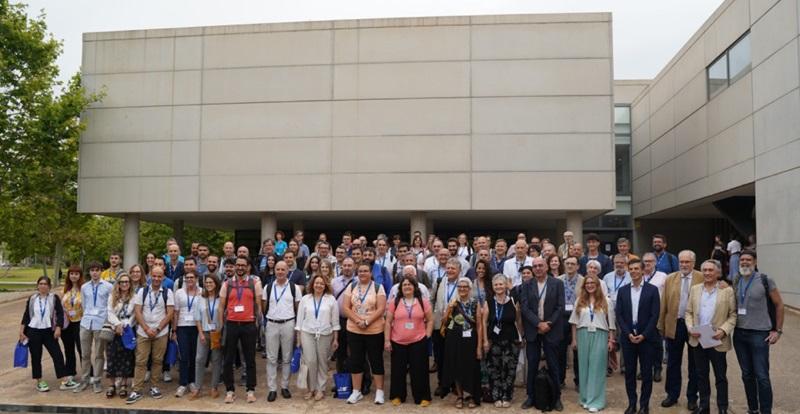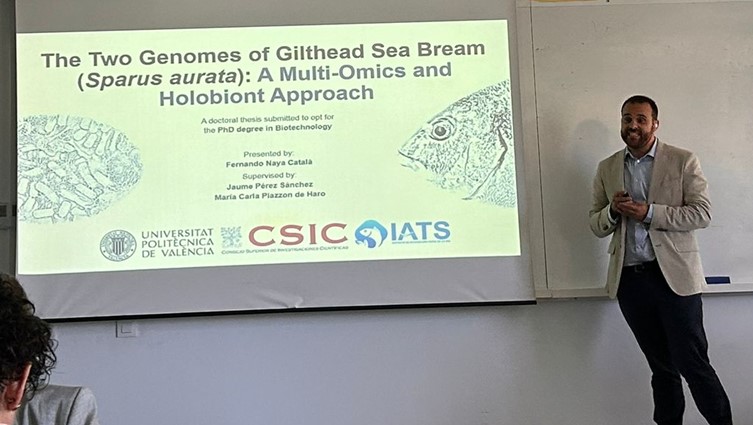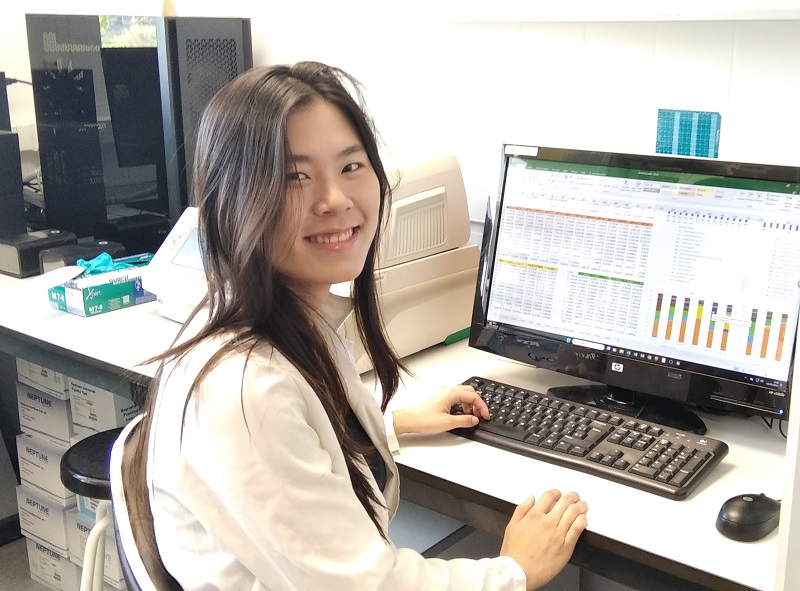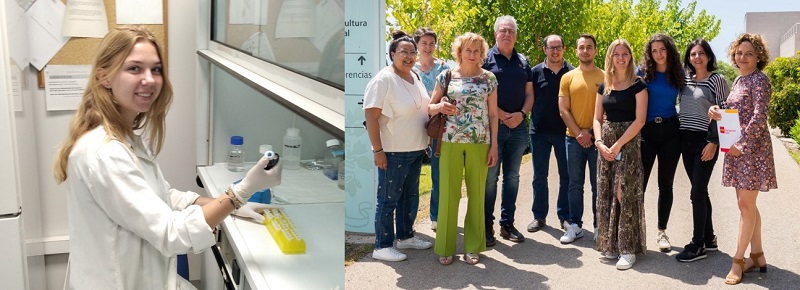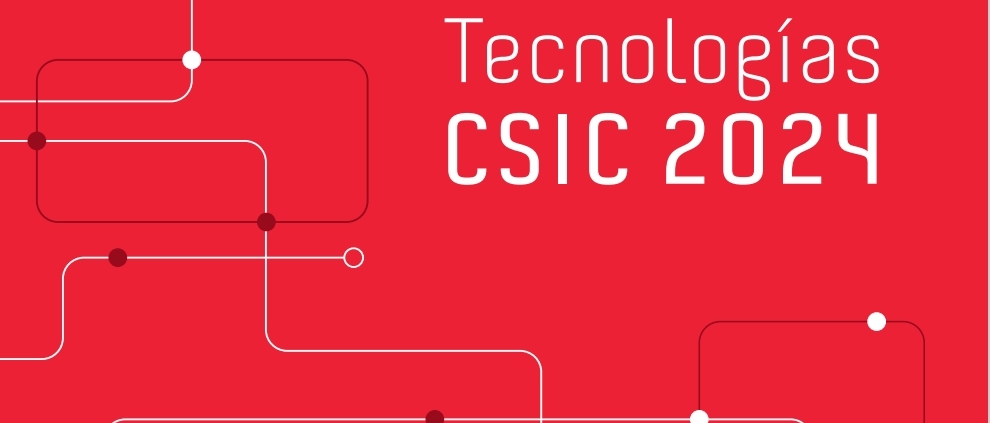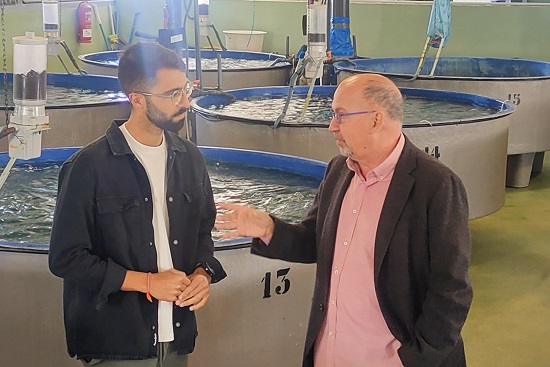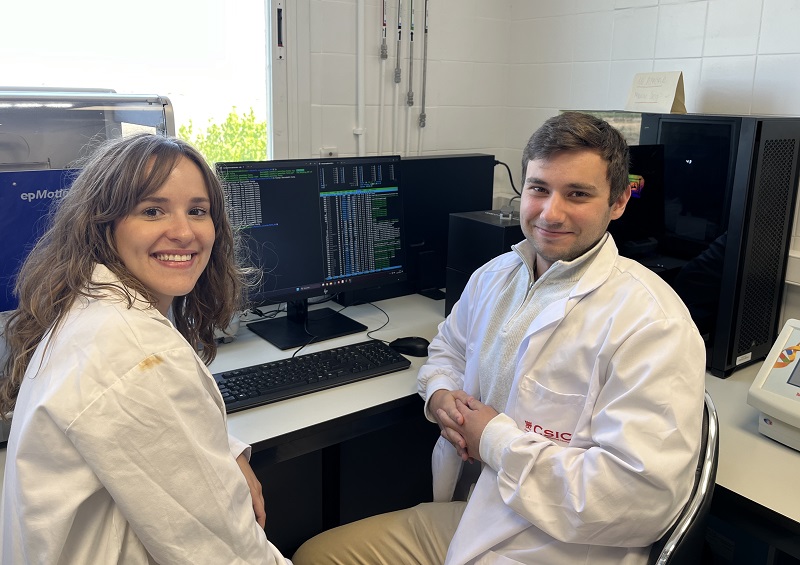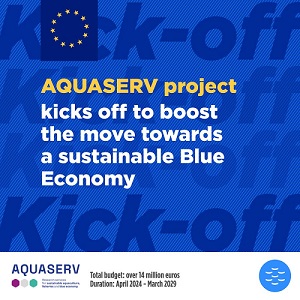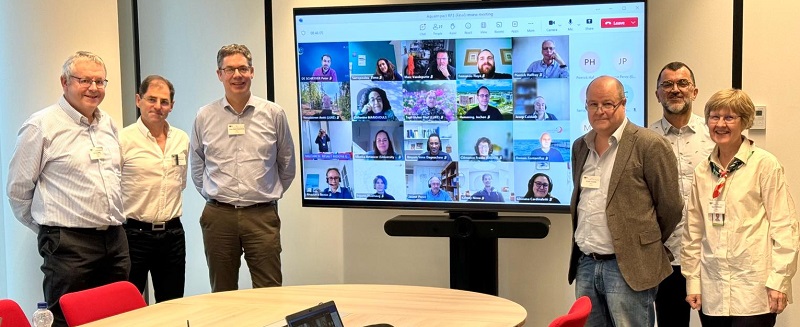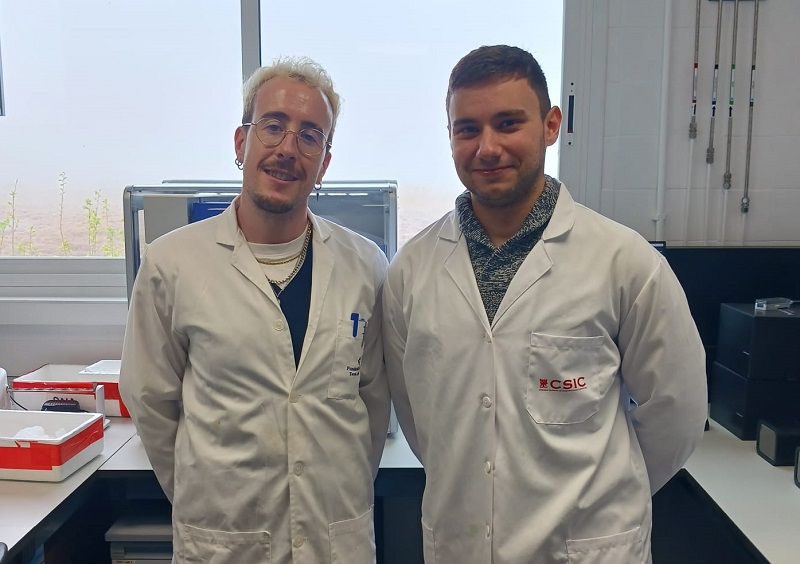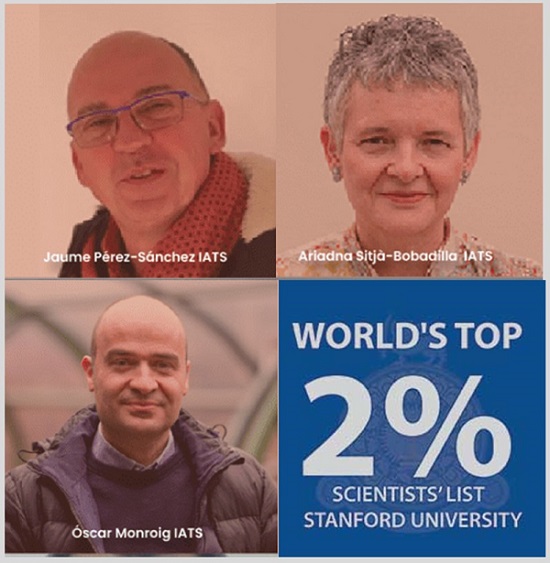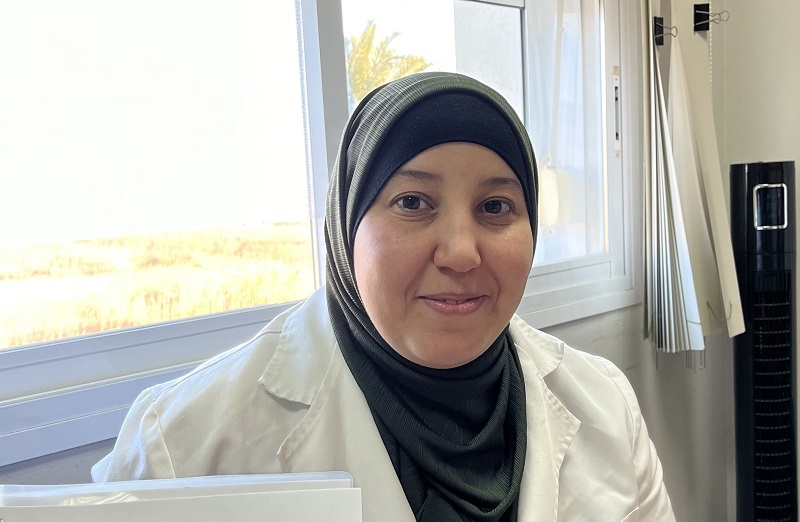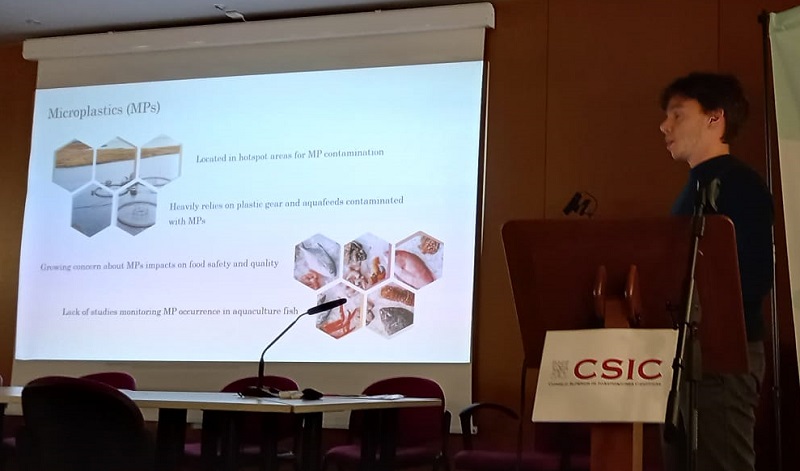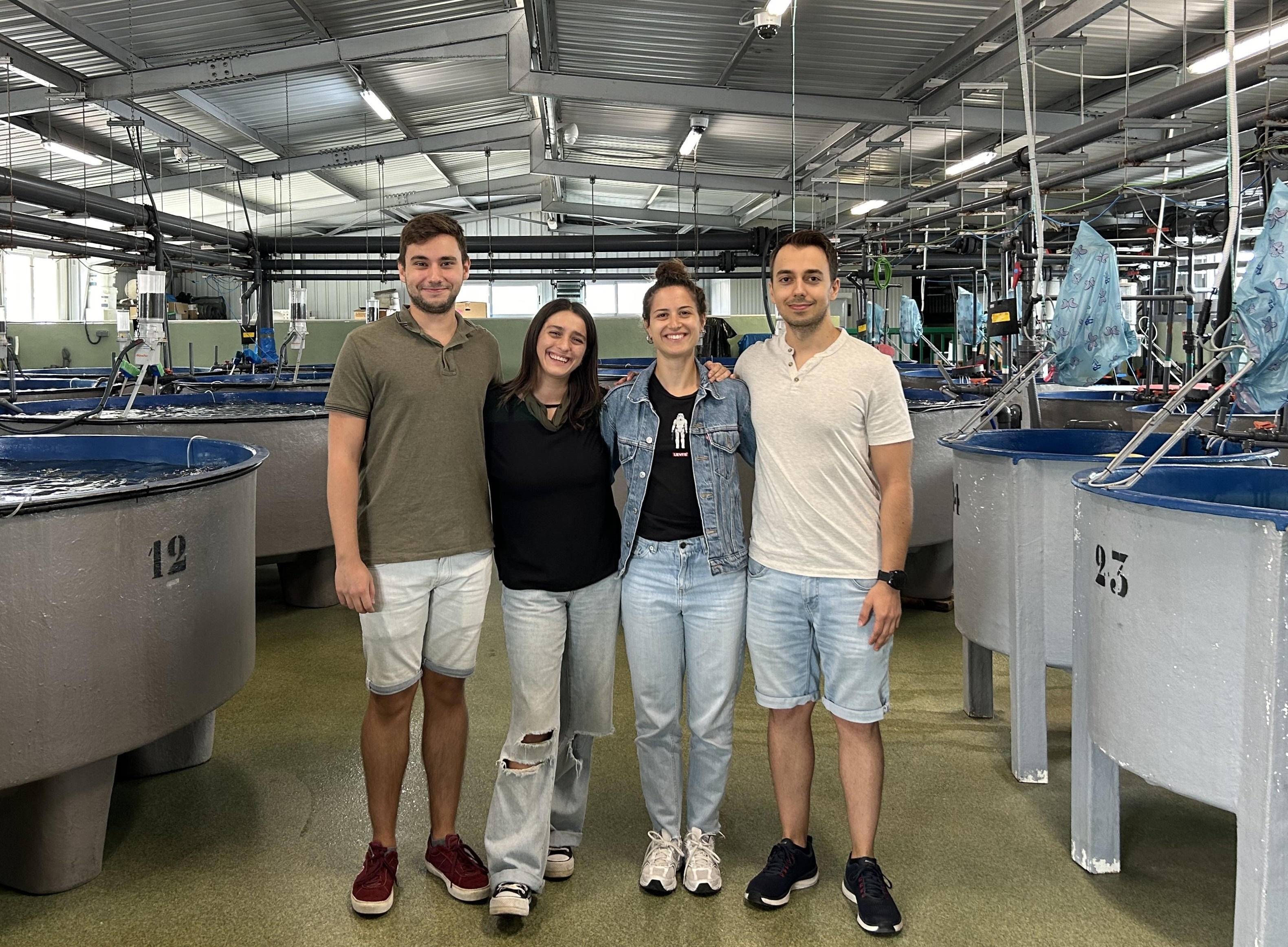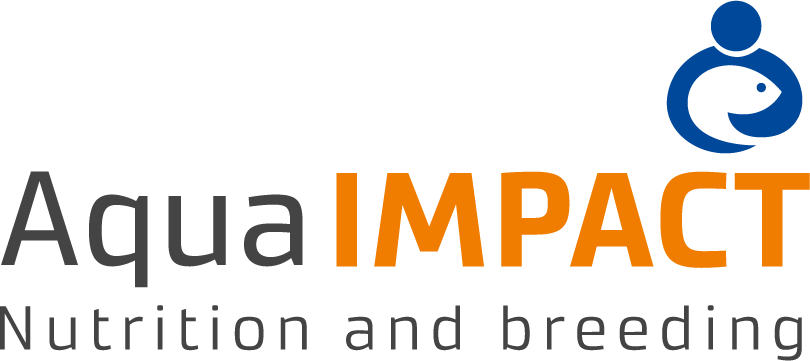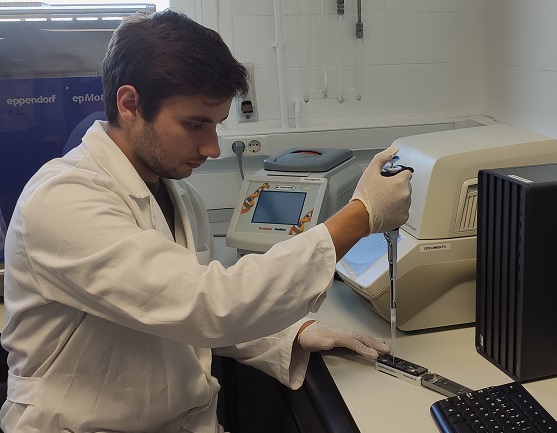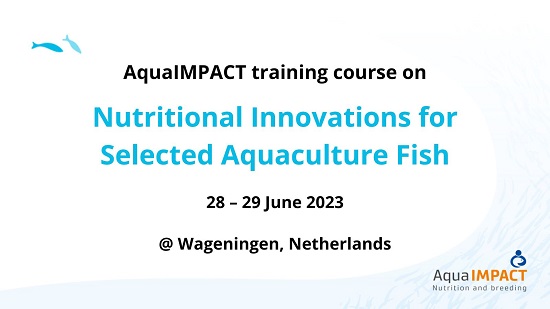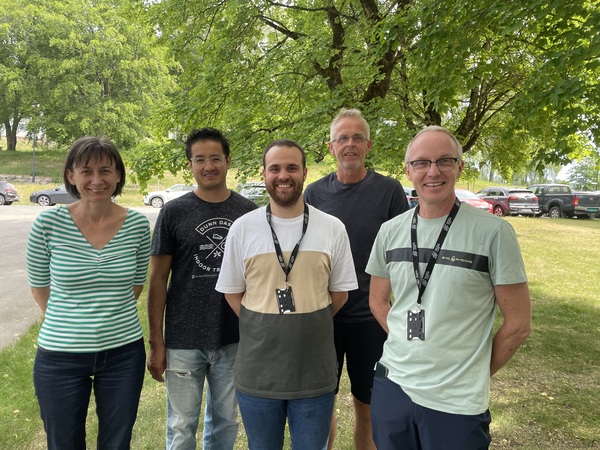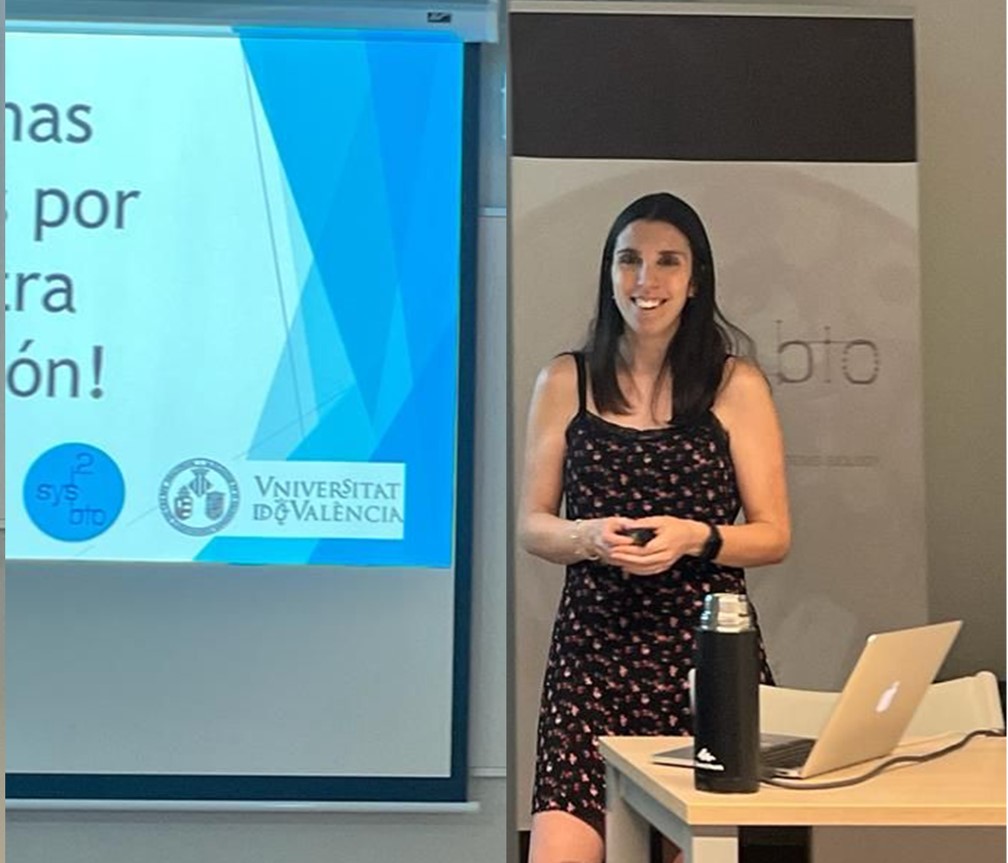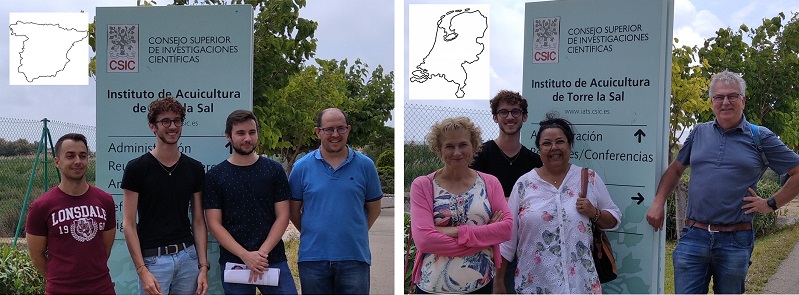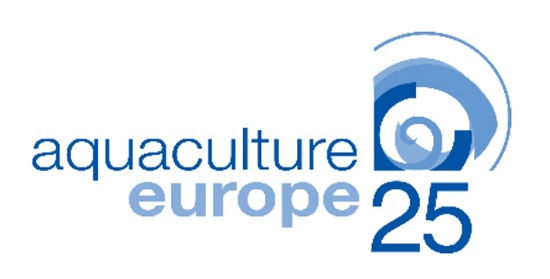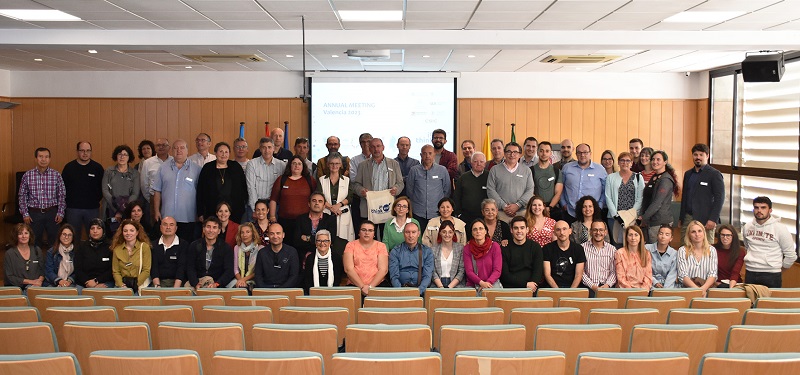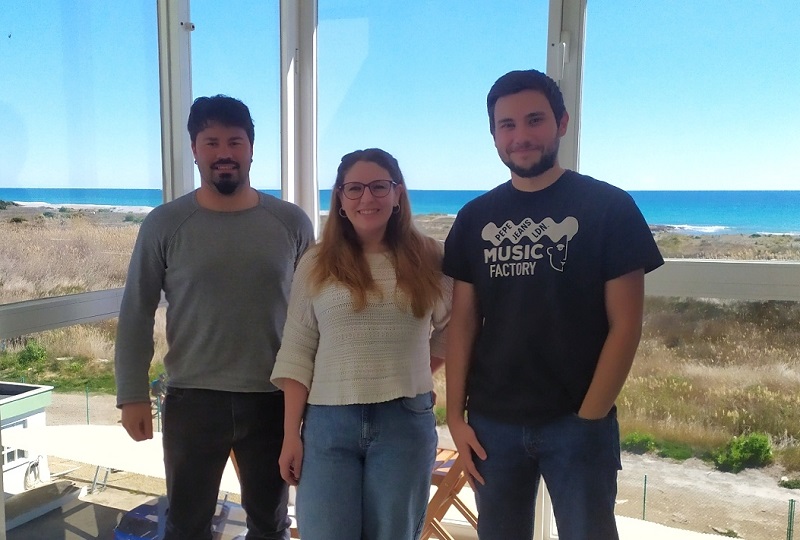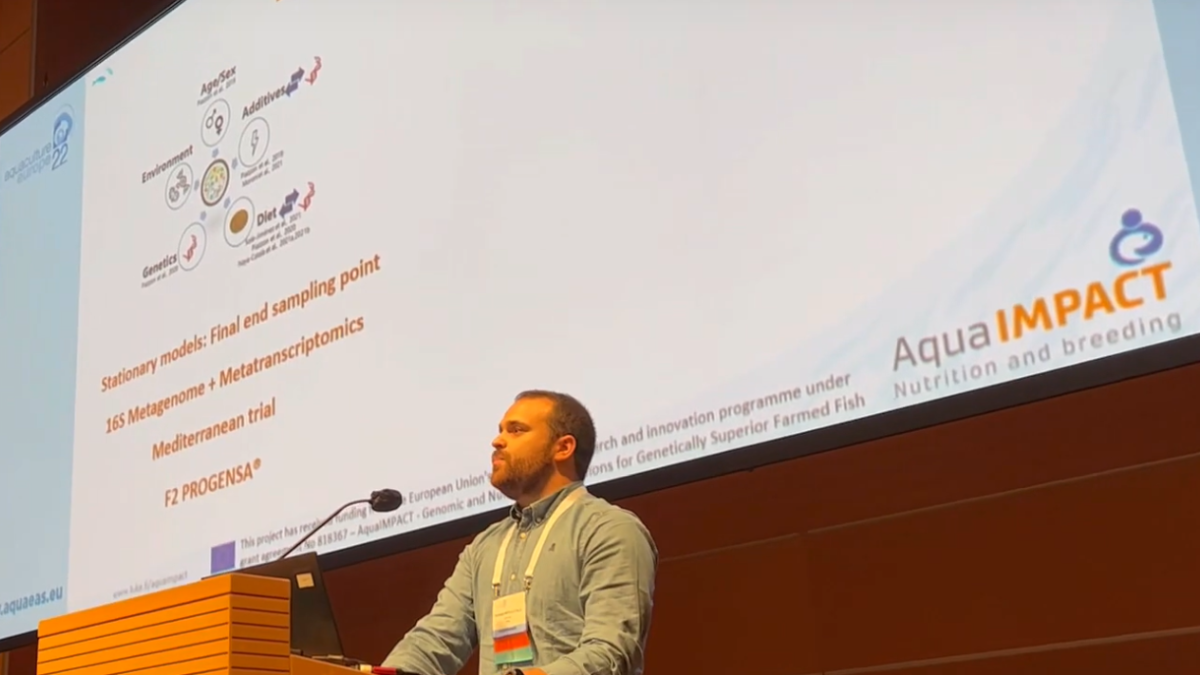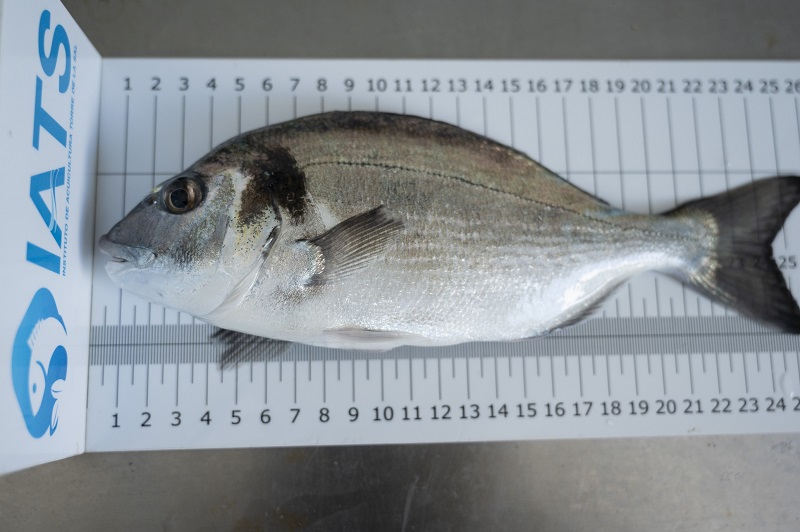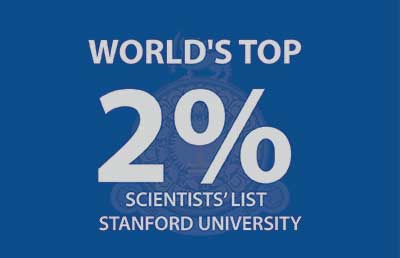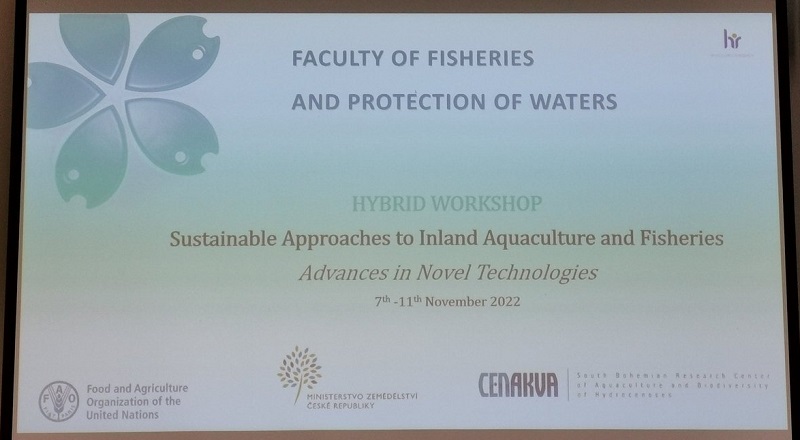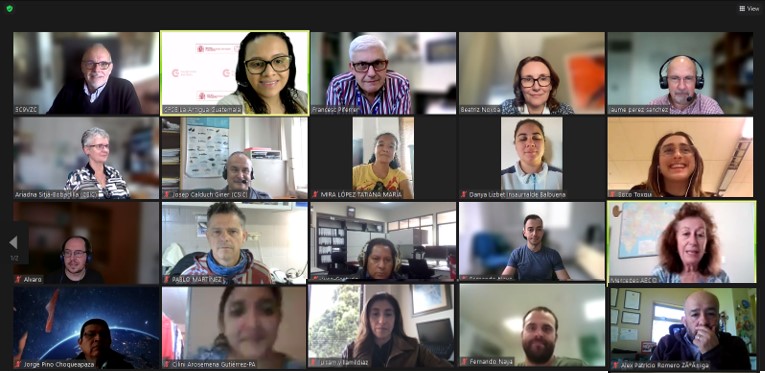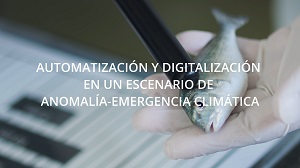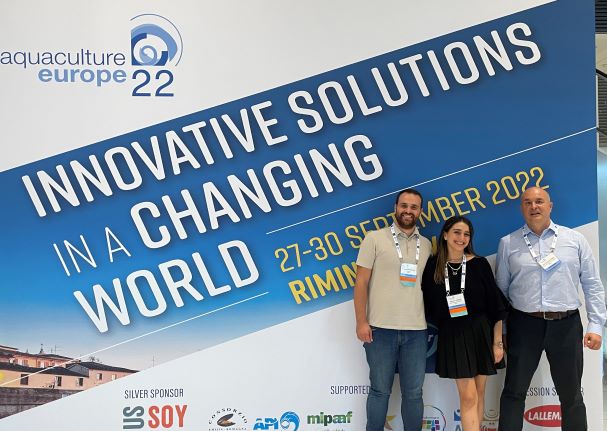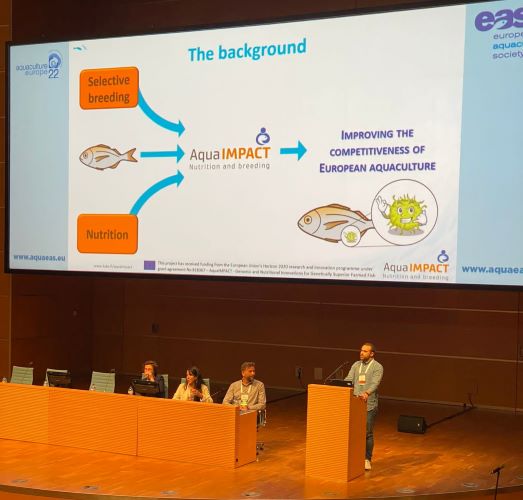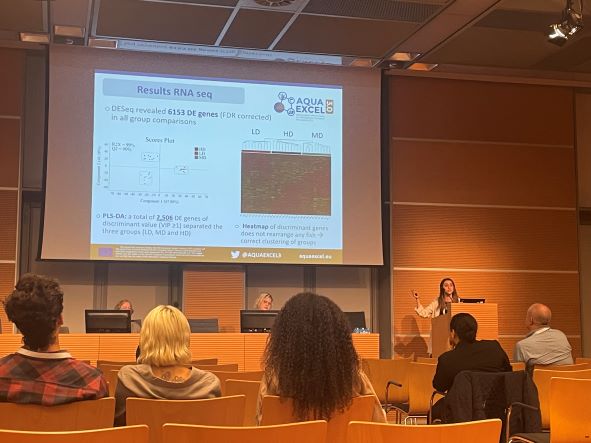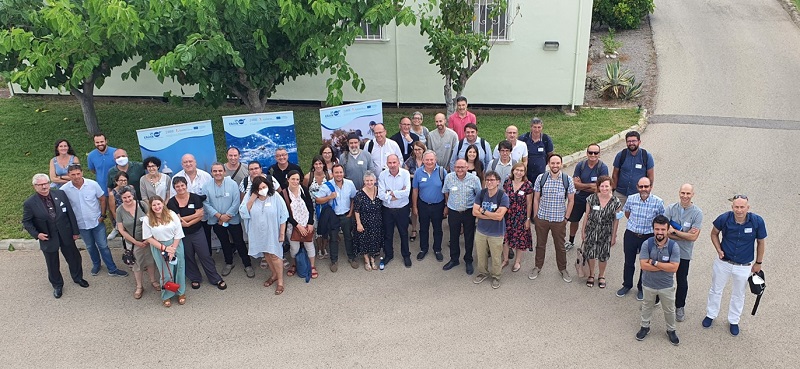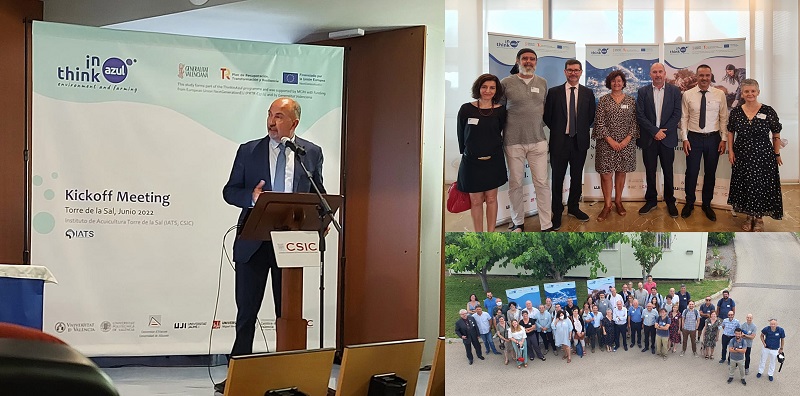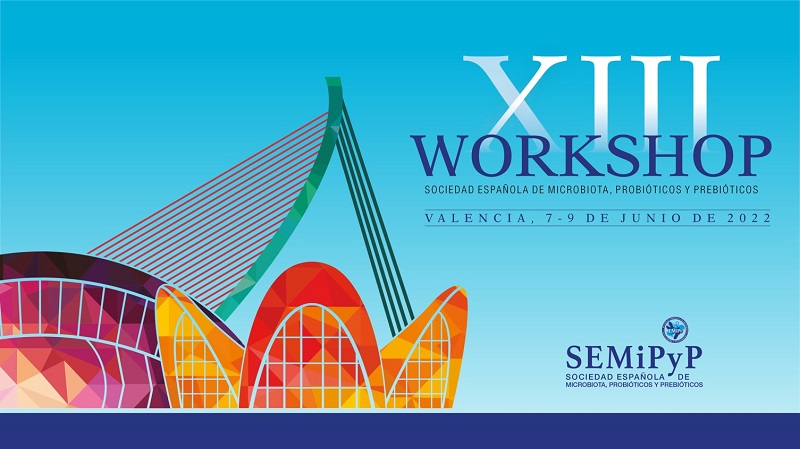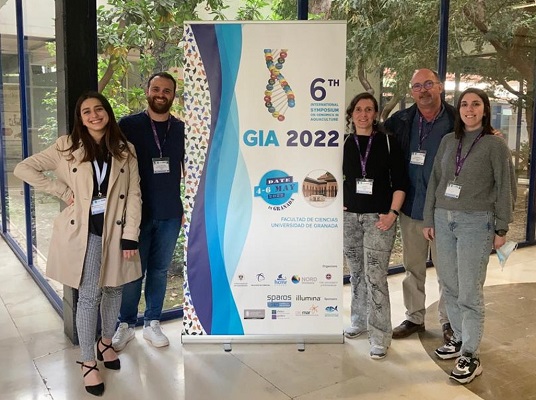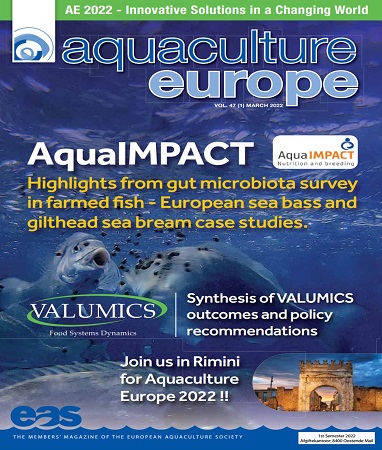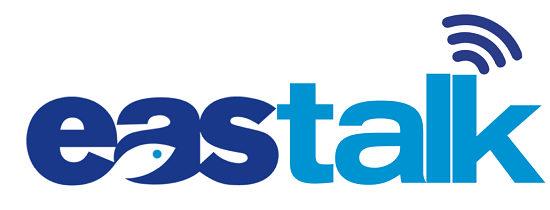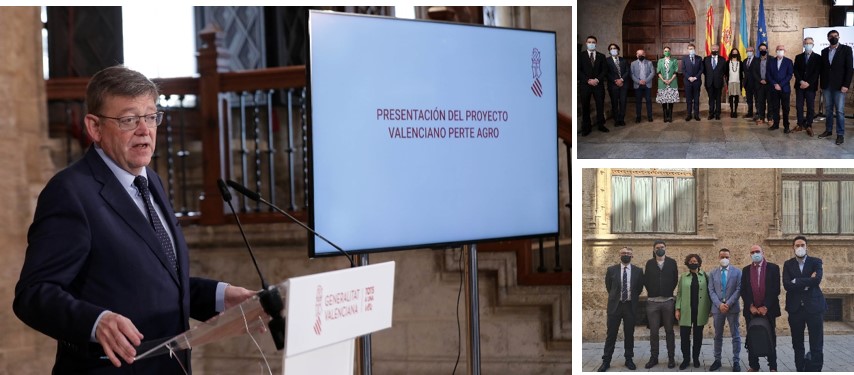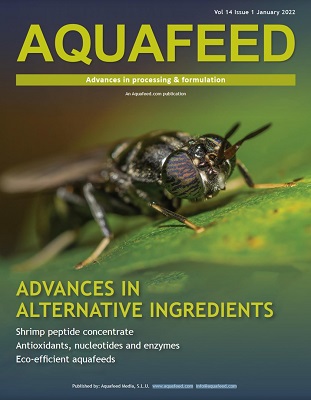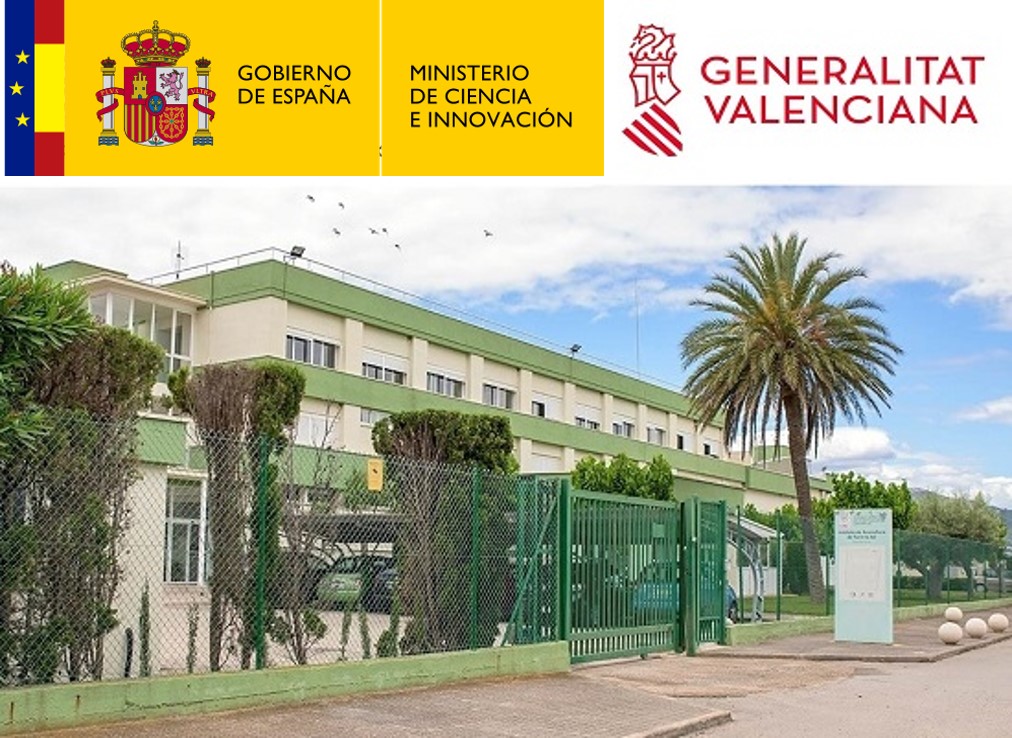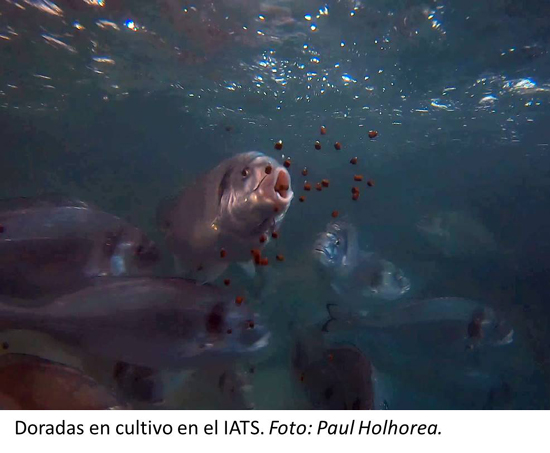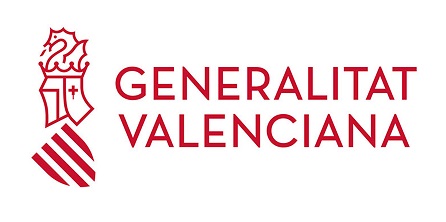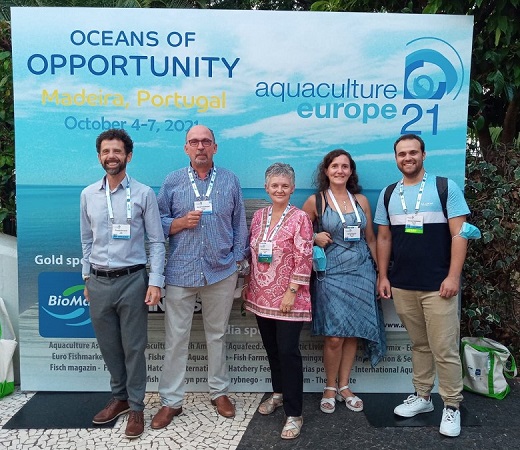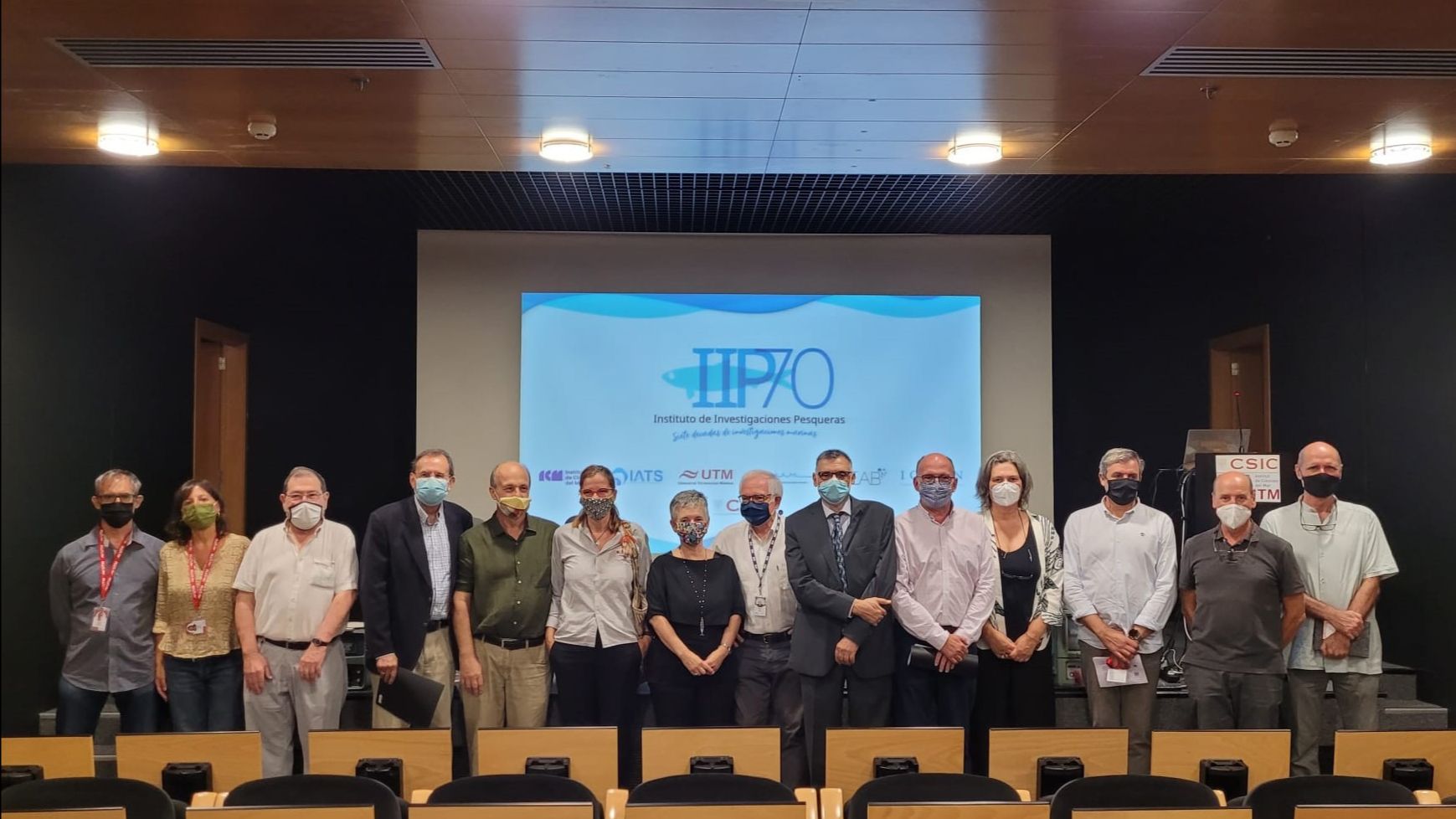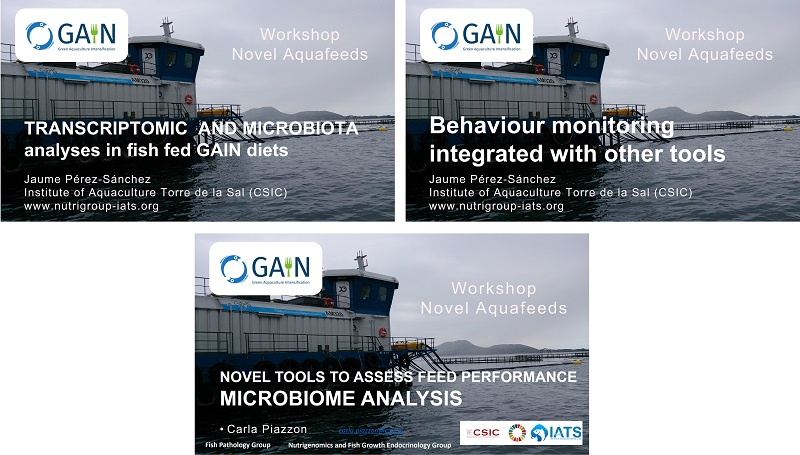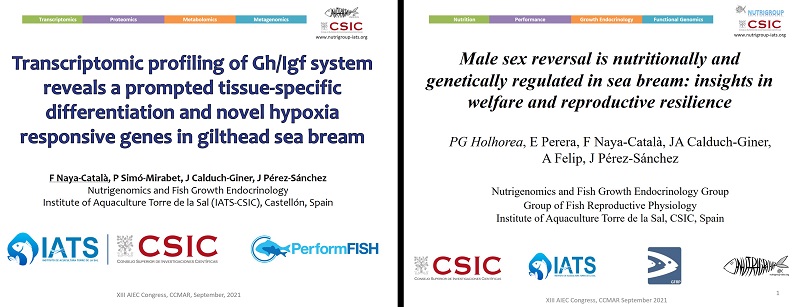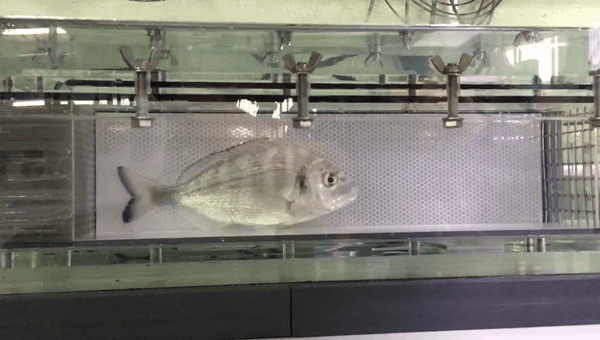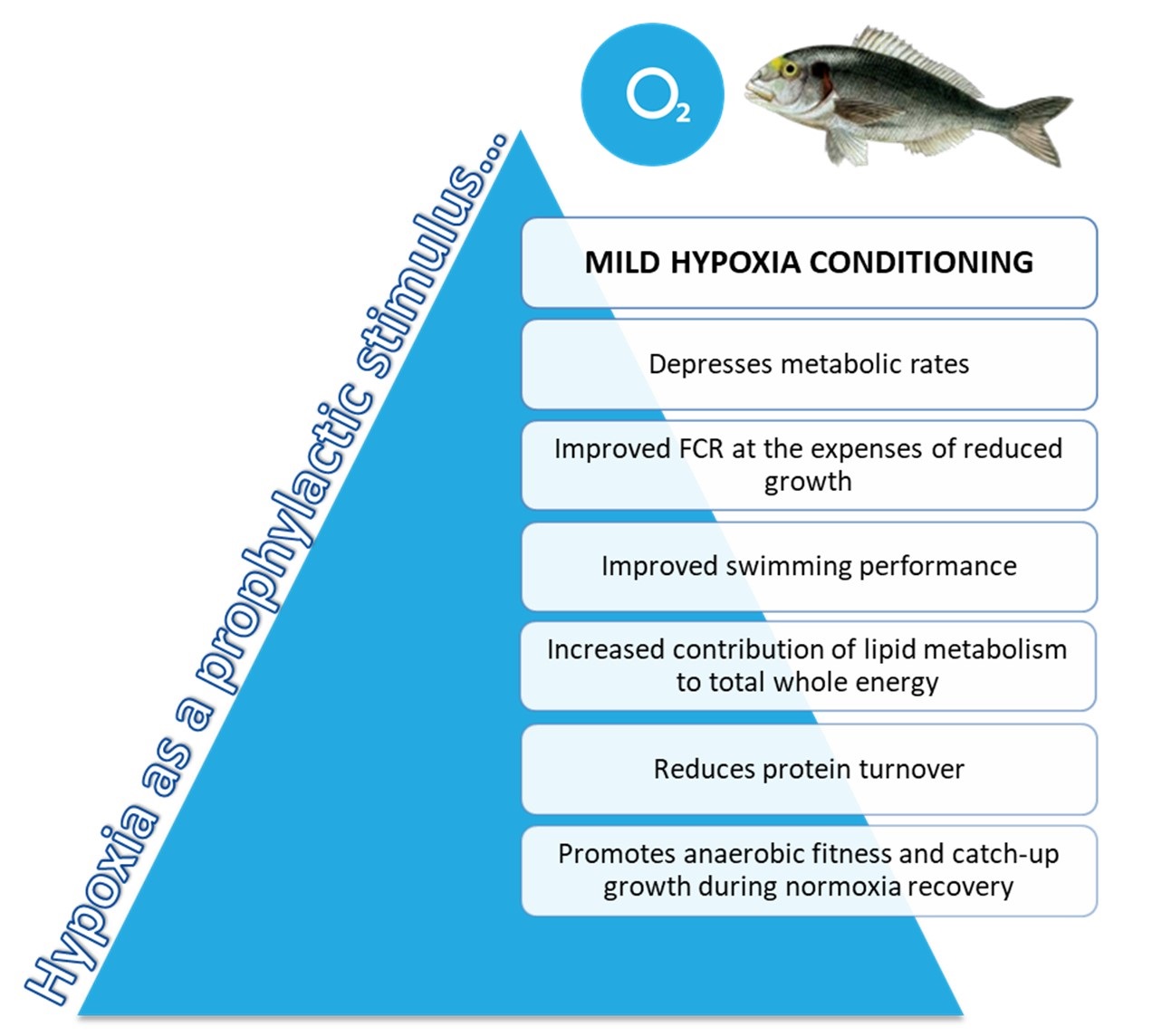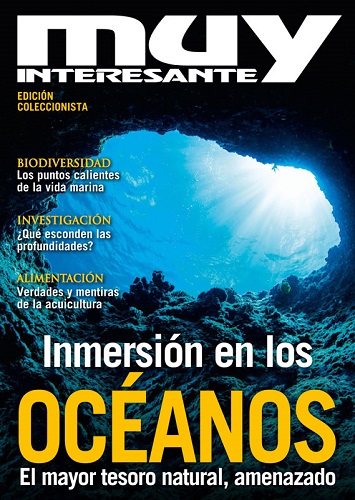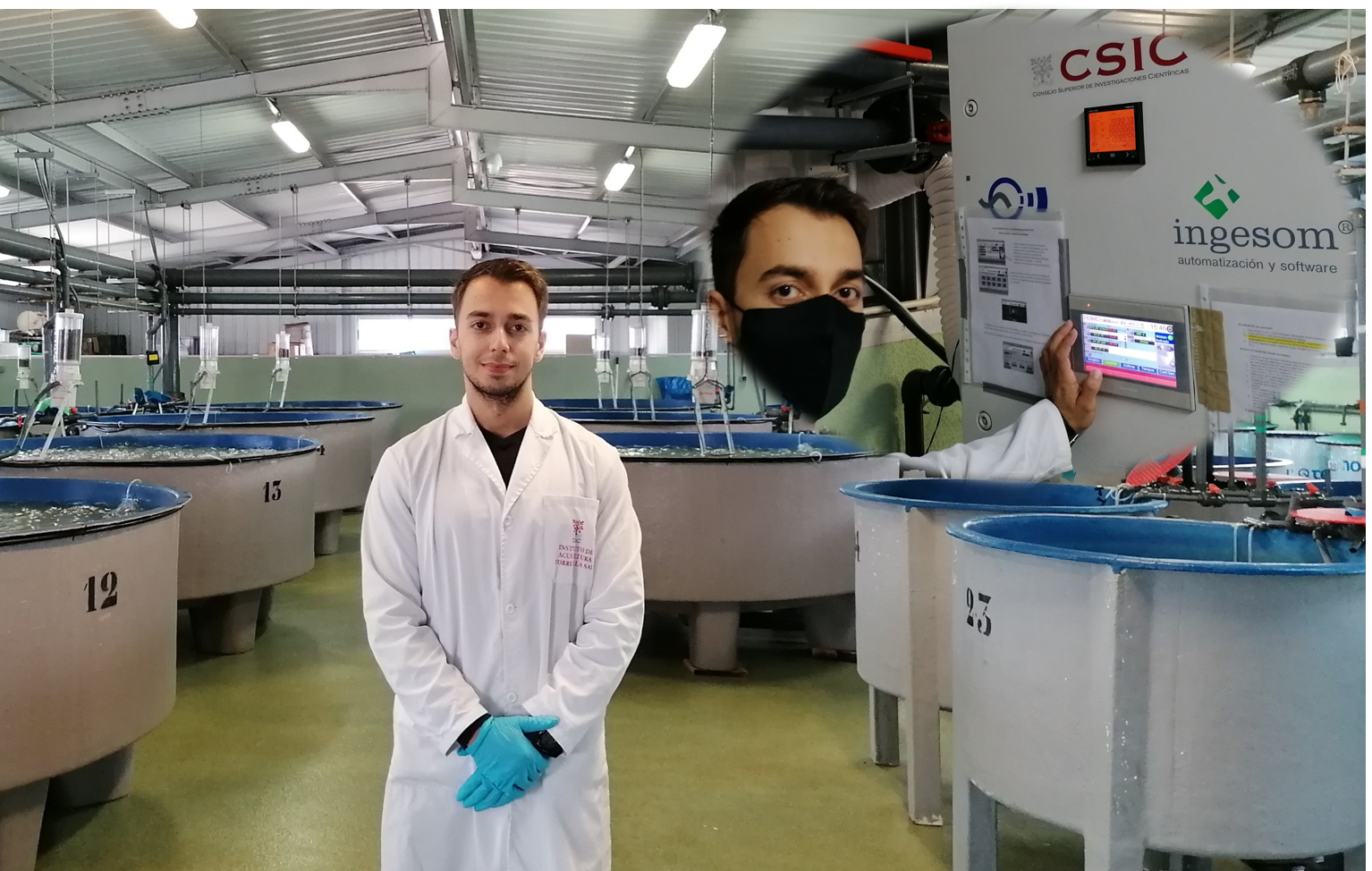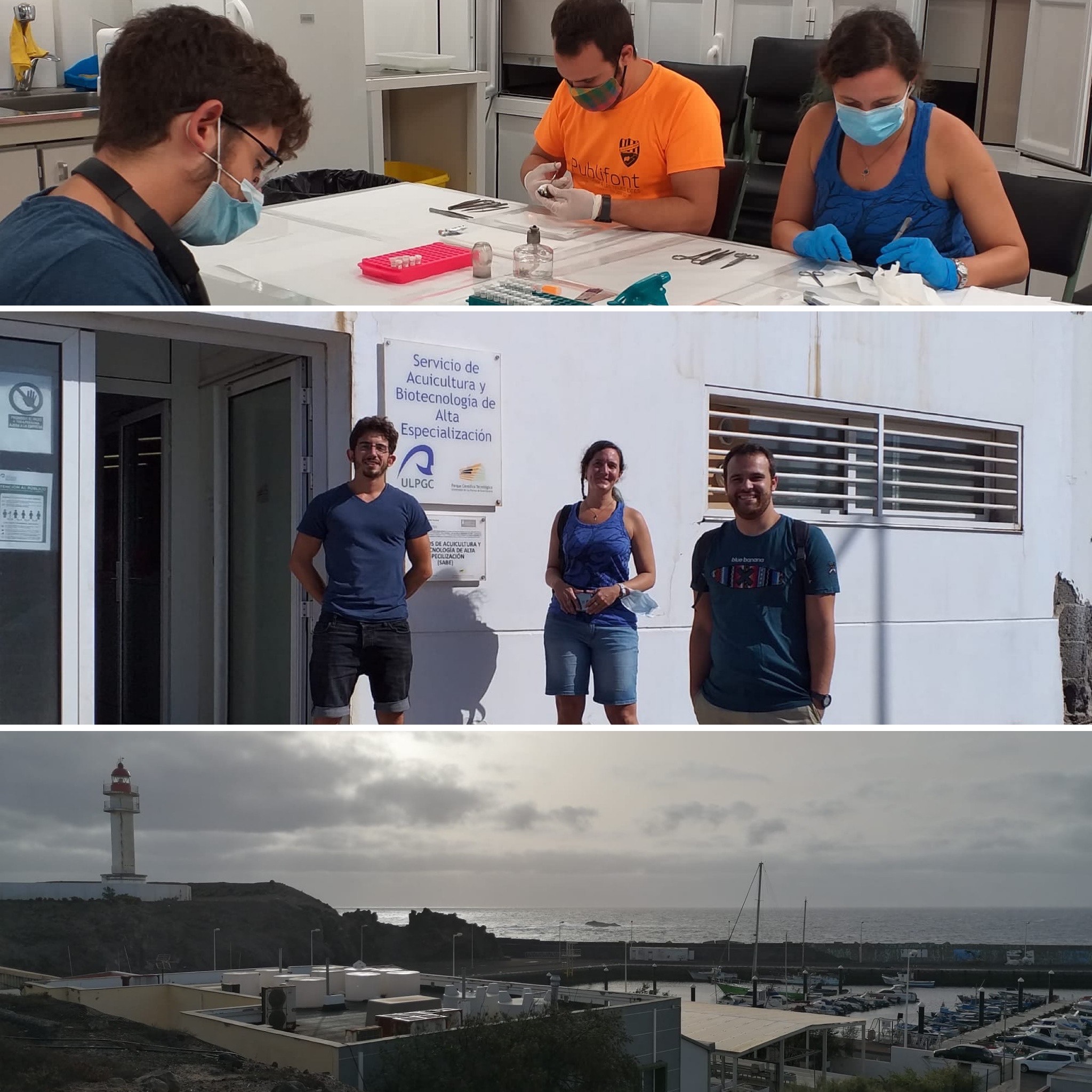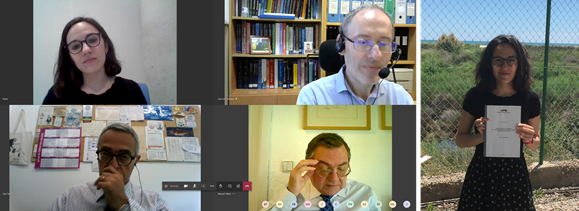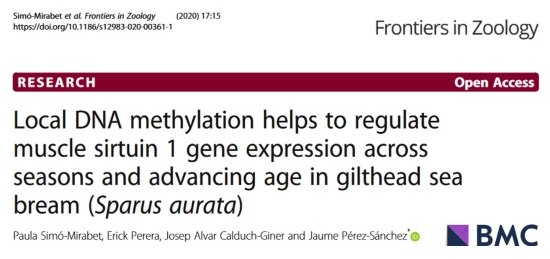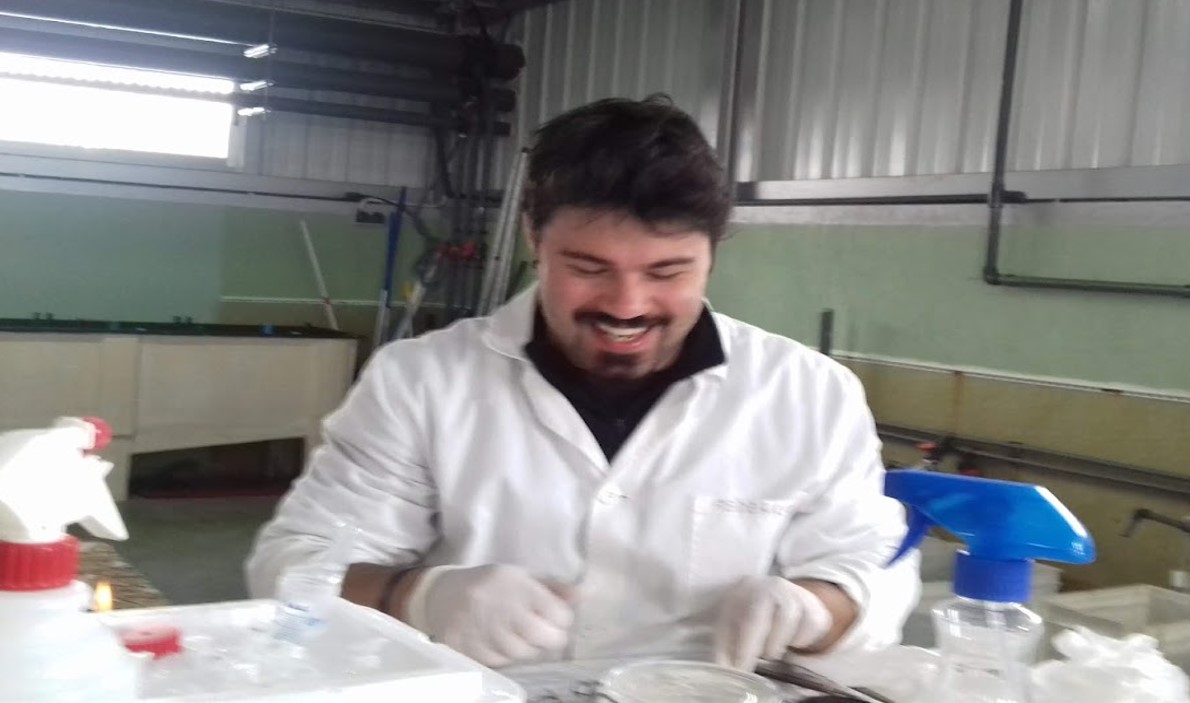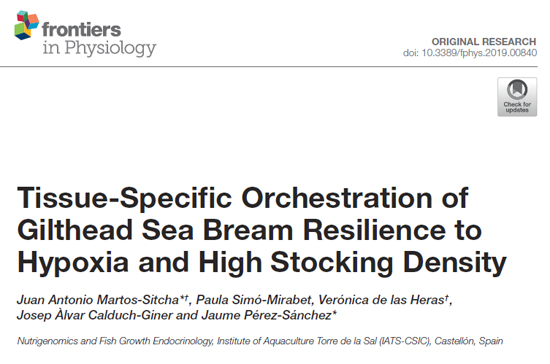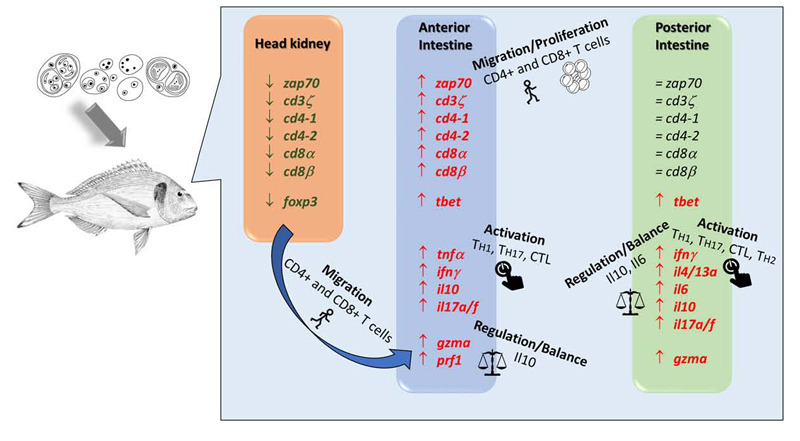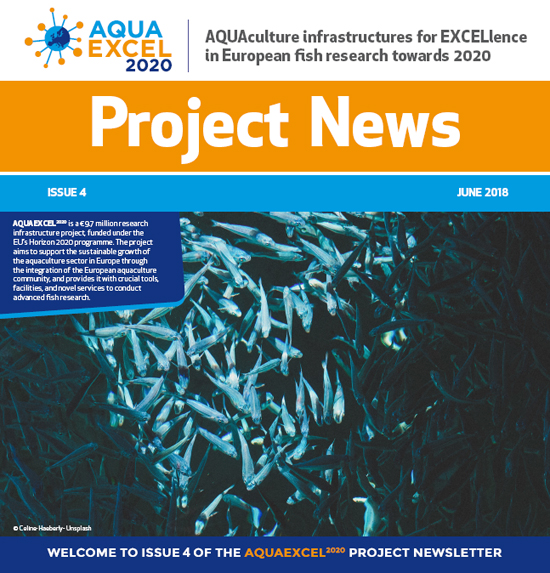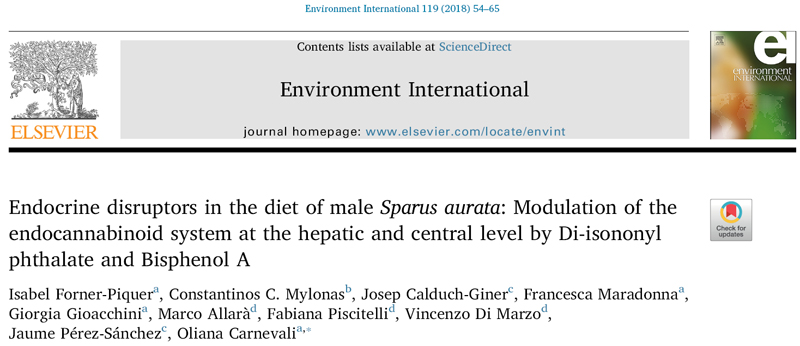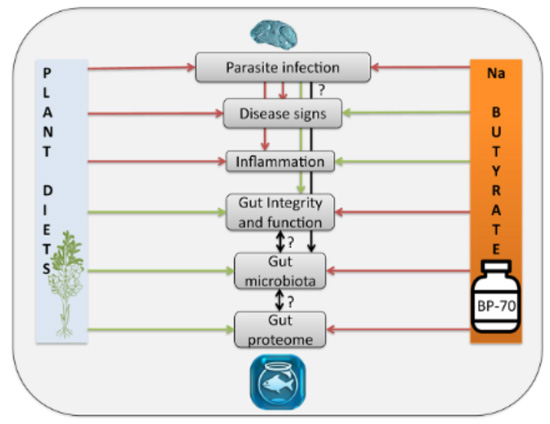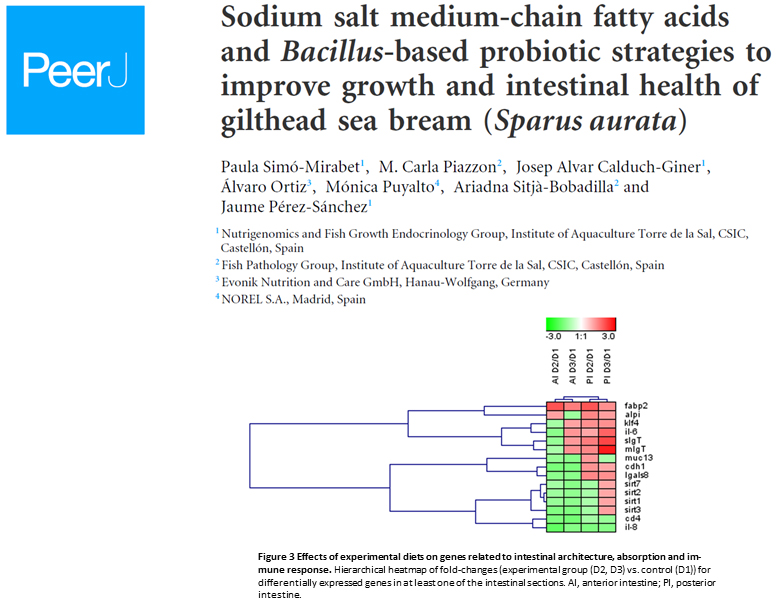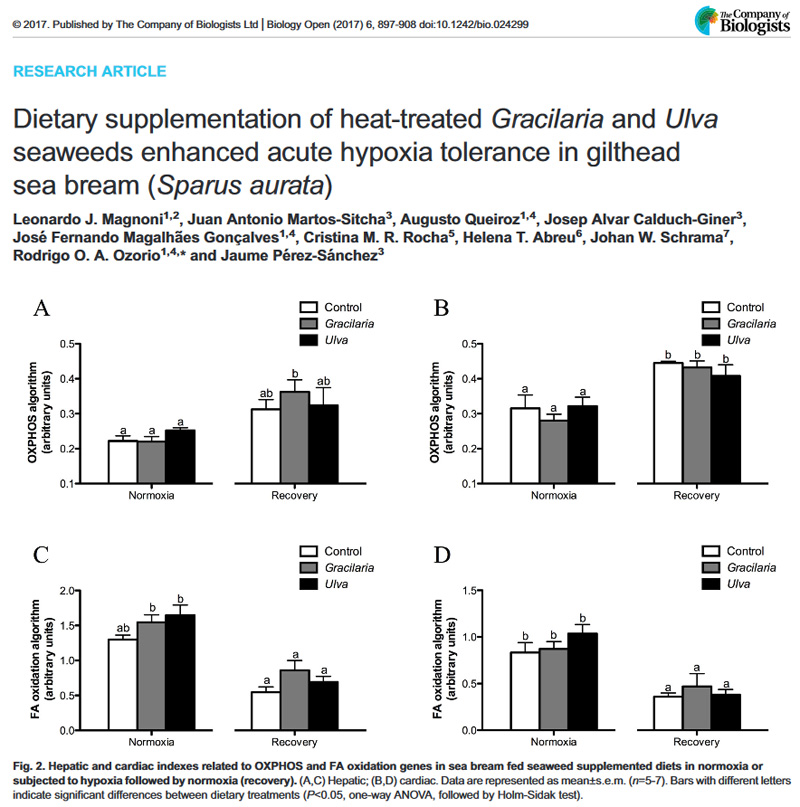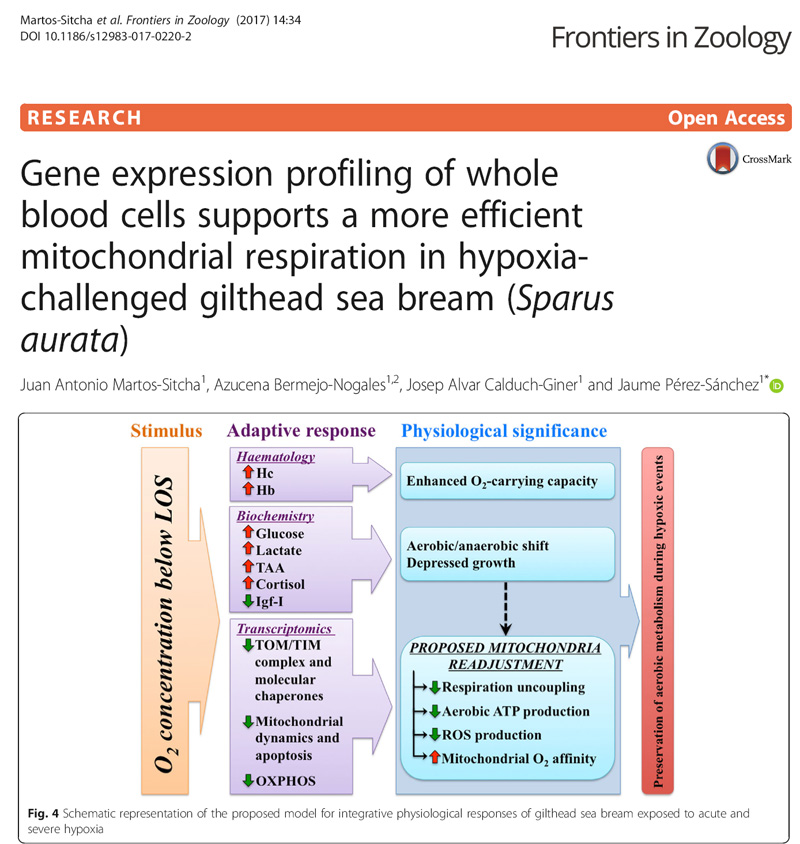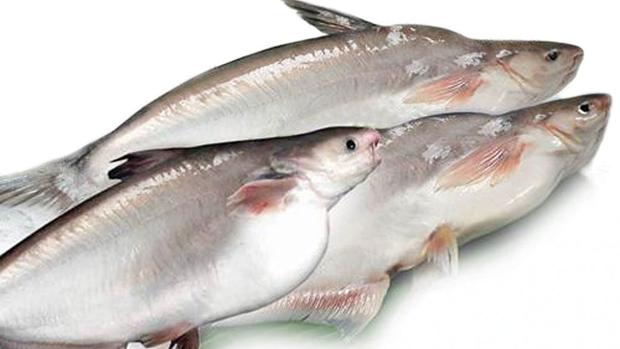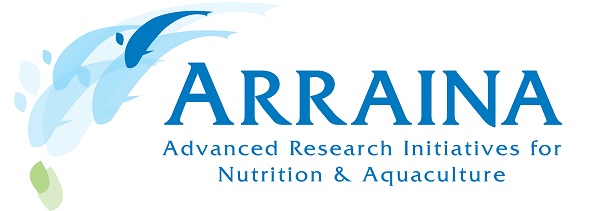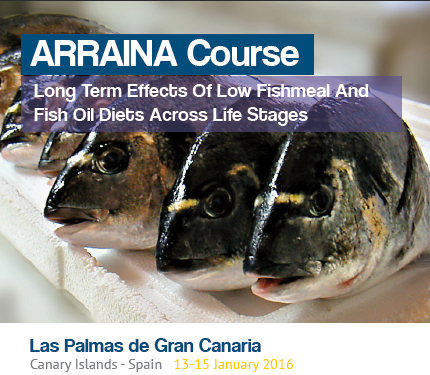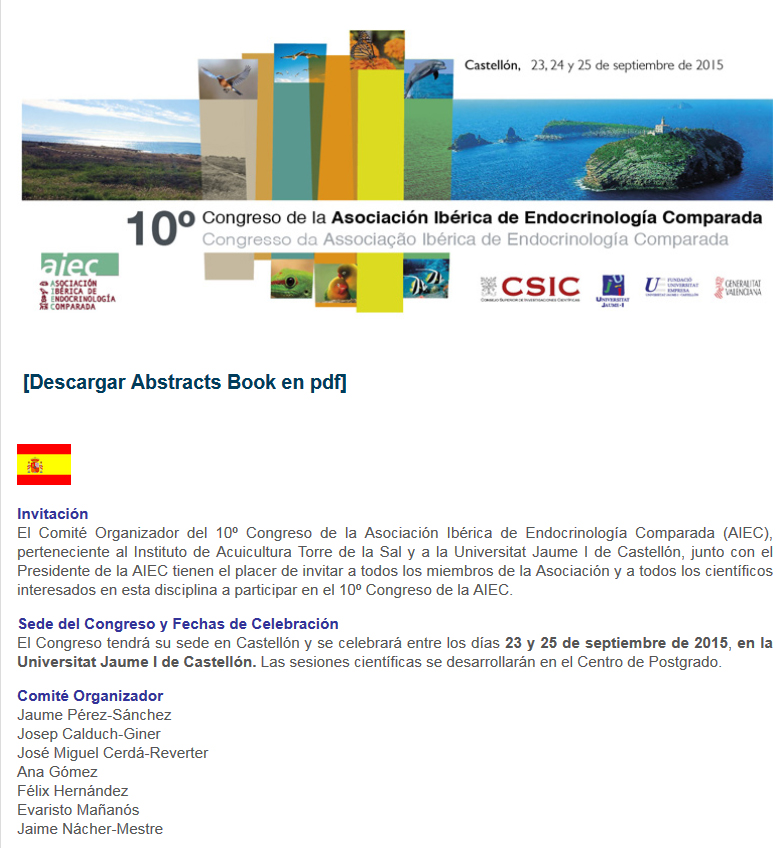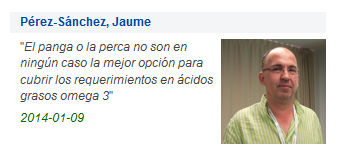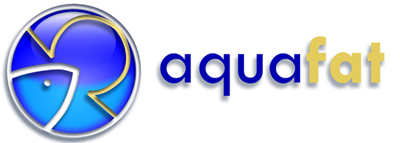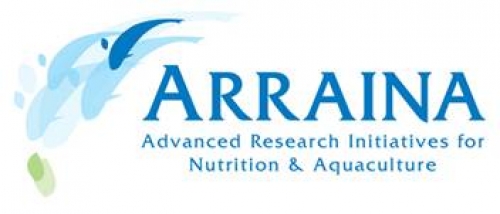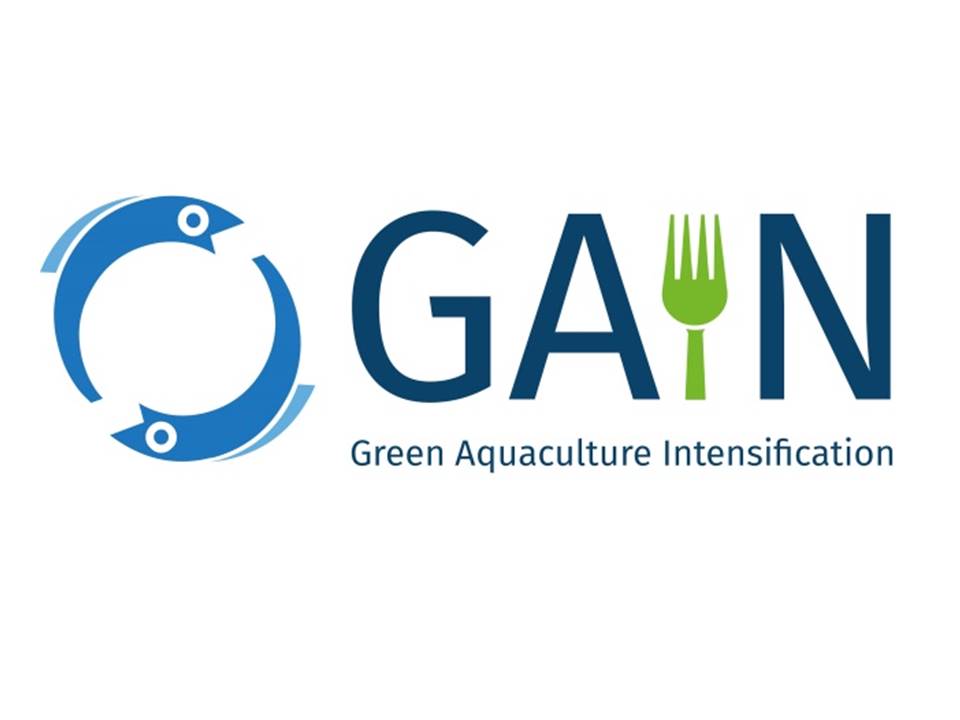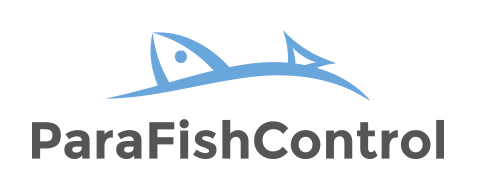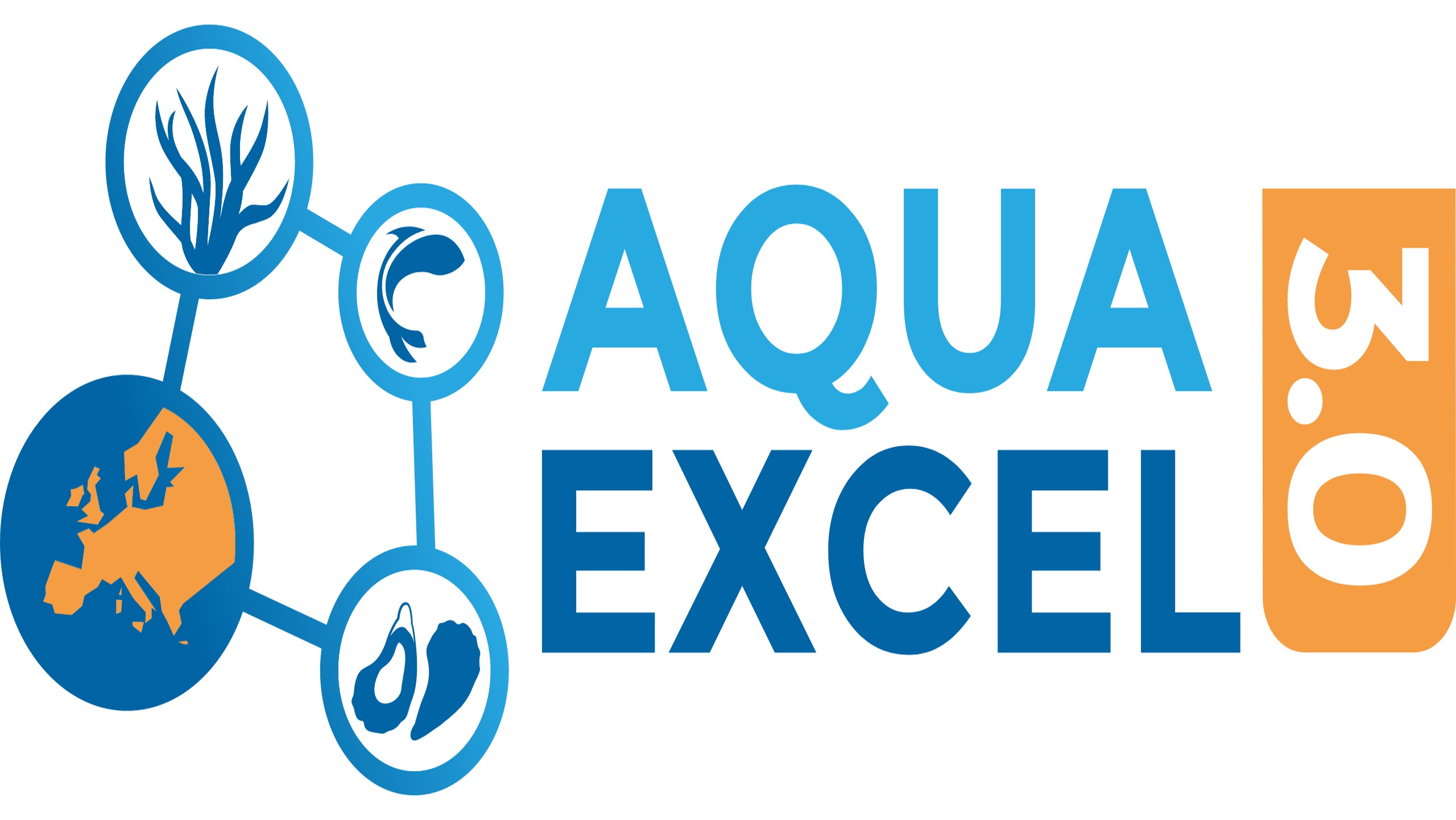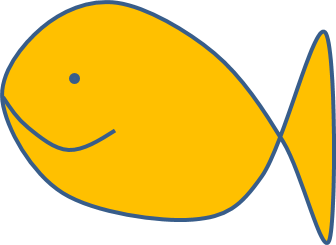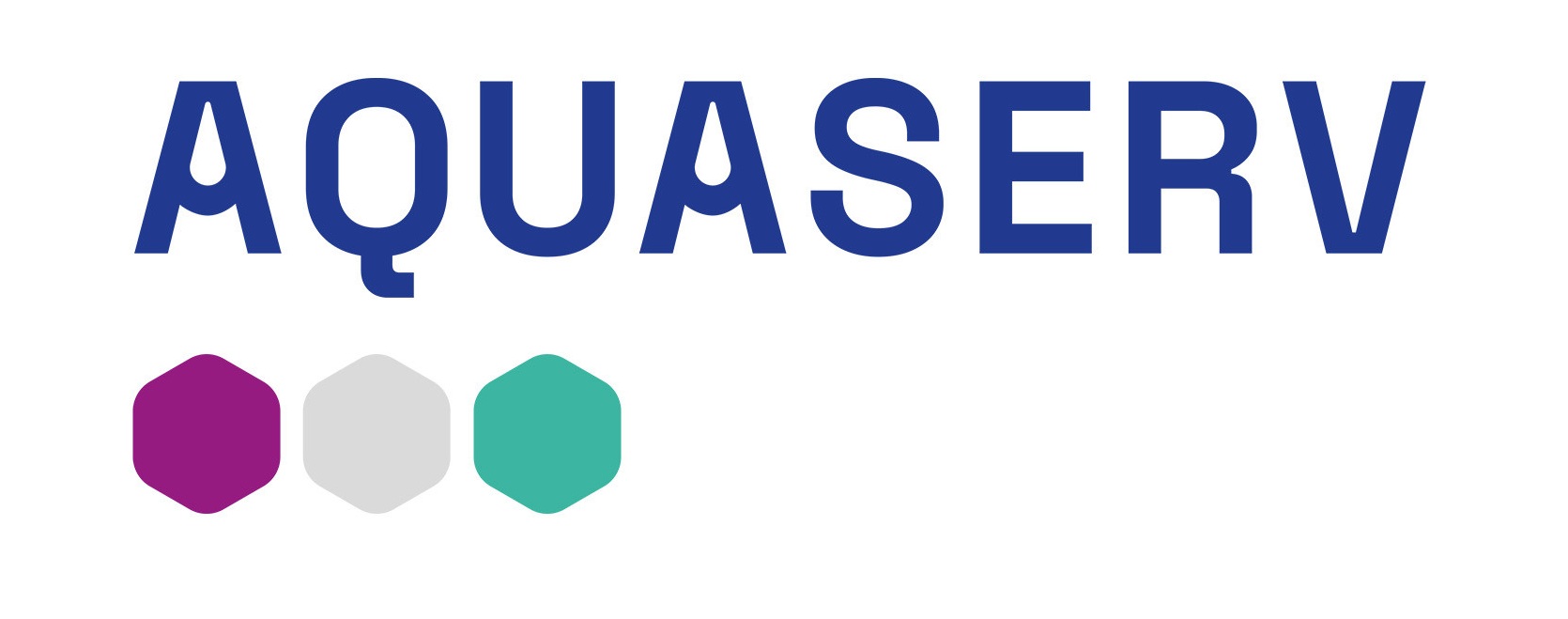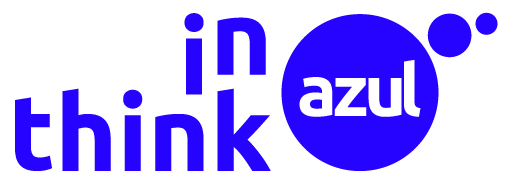New evidence reveals the impact of semi‑synthetic cellulosic fibers on the environment and aquaculture production systems2026-02-23
An international team of researchers from the Nutrigenomics and Integrative Fish Biology Group at the Institute of Aquaculture Torre de la Sal (IATS‑CSIC), the University of Porto, and CIIMAR has evaluated within the framework of two transnational access projects of the infrastructures European project AQUAEXCEL3.0 how the presence of rayon microfibres in the diet affects the physiology and microbiome of juvenile European sea bass. The study applies a holobiont perspective, considering the host and its associated microorganisms as a single biological unit.
Although no significant changes were detected in growth or feed conversion, a multi‑tissue transcriptomic analysis revealed a strong discriminatory capacity that was not observed when the same analysis was performed independently on liver, skeletal muscle, intestine or head kidney.
Microbiome analysis also showed a differential pattern with a clear gradient: the intestinal microbiota proved to be considerably more resilient than that of the skin and the surrounding water. This is indicative of the differing degrees of resilience to environmental disturbances.
The results have been published in two high‑impact environmental journals: Environmental Pollution and Environmental Microbiome. These studies provide new evidence that semi‑synthetic cellulosic fibres can affect both farmed fish and their associated ecosystems. Although they are often considered more sustainable than petroleum‑derived plastic pollutants, the environmental impact of synthetic microfibres on aquaculture production systems cannot be overlooked. This points to the importance of new holistic approaches to monitor the effects of these and other emerging contaminants.
Noorderpoort student begins her Erasmus+ internship at Nutrigenomics group2026-02-10
Nutrigenomics group welcomes Nellie Anne Rosita te Nijenhuis, a student from Noorderpoort (Groningen, The Netherlands), who has started her training placement supervised by Álvaro Belenguer. Her stay is part of the Erasmus+ programme coordinated by My Spanish Spot.
Welcome to IATS, Rosita!
Session on “Latest Advances in Aquaculture Nutrition” for the Inter‑University Master’s in Aquaculture2026-02-09
On February 6th, the Fish Nutrigenomics and Integrative Biology Group of the IATS‑CSIC took part in one session of the subject Latest Advances in Aquaculture Nutrition within the Inter‑University Master’s Degree in Aquaculture offered by the University of Valencia and the Polytechnic University of Valencia. The presentation addressed key topics related to climate change, feed sustainability, and the transition towards more efficient production systems focused on animal welfare. It also introduced students to current research lines on new feed formulations, biological age and thermal tolerance, as well as the role of the microbiota, nutritional programming, and multi‑omics tools in the resilience and welfare of farmed fish.
The activity concluded with a visit to the IATS culture facilities and laboratories, where students were able to observe first‑hand the experimental setups and technologies used in fish nutrition research.
Success of the Nutrigenomics Group in the Generalitat Valenciana Funding Call2025-12-12
The Nutrigenomics and Integrative Fish Biology Group has secured three competitive grants in the 2025 call of the Program for the Promotion of Scientific Research, Technological Development, and Innovation in the Valencian Community, driven by the Department of Education, Culture, Universities, and Employment.
The first grant corresponds to the AICO 2025 line, aimed at consolidated research groups, with the project TOMACUA. This initiative seeks to strengthen Mediterranean aquaculture against the challenges of climate change through innovative strategies in nutrition, welfare, and digitalization. The project includes the development of multi-omics tools, improved behavioral monitoring using patented devices such as FishBIT, and the integration of artificial intelligence for rapid animal welfare audits.
The second grant awarded belongs to the APOSTD 2025 program, focused on postdoctoral contracts, and has been granted to Federico Moroni. The project centers on the functional study of the microbiota in farmed gilthead sea bream from a holobiont perspective, applying innovative strategies such as fecal transplantation and the development of computational models for predictions using digital twins.
The third grant corresponds to the CIACIF 2025 program, intended for predoctoral contracts, and has been awarded to Aldo Hernández. His doctoral thesis will address the refinement of biological age biomarkers in gilthead sea bream, aiming to develop advanced systems for welfare auditing and nutritional strategies that mitigate the impact of climate change and infections in aquaculture.
Fernando Naya defends the first Annual Report of the DigiAcuaSOS project2025-11-27
On November 25, in the auditorium of the Torre de la Sal Institute of Aquaculture, the public defense of the annual report of the DigiAcuaSOS project (ref.: MMT24-IATS-01-01) took place.
Fernando Naya Català, a postdoctoral researcher hired under the CSIC’s Momentum Program, presented the distribution of hours in his annual report as well as the scientific and technological results of the project. These include the discovery of multi-omic markers of biological age and thermal tolerance in fish; the use of Bayesian networks to study the microbiota of marine species; and the development of a simulator based on membrane computing and AI to digitize and reuse farming data.
Our thanks go to the expert evaluation committee for the defense: Dr. Alicia Felip Edo, Dr. Esther Leal Cebrián, Dr. Evaristo Mañanós Sánchez, and Dr. Carlos Llorens Candela, for their dedication to this event and their valuable feedback.
The Momentum program is funded by the Secretary of State for Digitalization and Artificial Intelligence – Ministry for Digital Transformation and the Civil Service, through Red.es, and with funds from the Recovery Plan.
New publication on welfare indicators in aquaculture2025-11-18
An international research team, including IATS Nutrigroup, has published in Reviews in Aquaculture the article “Welfare Indicators for Aquaculture Research: Toolboxes for Five Farmed European Fish Species”. This work proposes updated welfare indicator toolboxes for five key species in European aquaculture: Atlantic salmon, rainbow trout, European sea bass, gilthead sea bream, and common carp.
The publication is part of the European project AQUAEXCEL3.0, which promotes excellence in aquaculture research infrastructures across Europe. The article provides practical and scientific tools to improve welfare assessment in experiments and ensure quality and reproducibility of results.
Read the official press release from AQUAEXCEL3.0 at Documenting fish welfare: new toolboxes for European aquaculture research. The study has already attracted attention in the specialized media: misPeces.com has published a feature article highlighting welfare as a strategic tool for fish producers.
Full reference:
Noble C, Abbink W, Alvestad R, Ardó L, Bégout M-L, et al. Welfare Indicators for Aquaculture Research: Toolboxes for Five Farmed European Fish Species. Reviews in Aquaculture. 2026;18:e70109. https://doi.org/10.1111/raq.70109
Socorro Toxqui, “Cum Laude” distinction for her PhD thesis2025-11-17
On October 6th, Socorro Toxqui-Rodríguez successfully defended her PhD thesis entitled “Fin-tastic bacteria: Exploring the link between fish and its mucosal microbiome” at the Universitat Politècnica de València, under the International Doctorate modality. The examination committee granted the highest distinction, Cum Laude, in recognition of the outstanding quality and impact of her research.
The thesis, supervised by Carla Piazzon and Jaume Pérez-Sánchez, explores the role of the mucosal microbiome in fish health and welfare, providing valuable insights for sustainable aquaculture practices.
Congratulations to Soco on this remarkable academic milestone!
National Meeting of the ThinkInAzul Programme2025-10-22
From October 7th to 9th, the national meeting of the ThinkInAzul programme was held in San Pedro del Pinatar (Murcia), with the participation of the seven autonomous communities involved in this initiative: Andalusia, Cantabria, the Valencian Community (represented by its coordinators and WP leaders), Galicia, the Region of Murcia, the Canary Islands, and the Balearic Islands.
The aim of the meeting was to present the main results of the programme’s three core action lines:
– Observation and monitoring of the marine and coastal environment
– Sustainable, smart, and precision aquaculture
– Blue economy, innovation, and opportunities
The event also served as a space for sharing experiences and best practices among the participating regions, with the goal of strengthening interregional cooperation and defining the next steps of the project moving forward.
Alice Gasperini selected at AE2025 for her study on sea bream biological age2025-10-15
Alice Gasperini (IATS-CSIC) was selected for the Student Spotlight Award at Aquaculture Europe 2025 for her research on biological age as a welfare indicator in gilthead sea bream. The study focuses on ten key genes that reflect the fish’s life history and farming conditions.
Read full feature at mispeces.com.
Progress of ThinkInAzul Action Line 2 at Aquaculture Europe 20252025-10-07
During the Aquaculture Europe 2025 (AE2025) congress held in Valencia, the ThinkInAzul programme hosted a dedicated session to present the latest scientific and technological advances from its Action Line 2 (LA2), focused on sustainable aquaculture innovation. The session highlighted the collaborative efforts of research centers, universities, and industry partners working together to transform aquaculture through science and innovation.
The session featured contributions from the working groups on key areas of marine science and aquaculture:
Group 1: Reproduction and Genetics (5:10). Presentation of genetic markers, assisted selection techniques, and strategies to improve reproductive efficiency in farmed species.
Group 2: Nutrition, Health and Welfare (32:30). Insights into functional feeds, gut microbiota studies, and approaches to enhance fish welfare.
Group 3: Food Quality and Safety (1:10:23). Evaluation of nutritional and sensory quality of aquaculture products, contaminant analysis, and traceability systems.
Group 4: Aquaculture–Marine Environment Interaction (1:39:35). Research on environmental impacts of aquaculture and science-based mitigation strategies.
Group 5: New Production Systems (2:02:50). Innovations in recirculating aquaculture systems (RAS), automation, and digitalization of production processes.
Group 6: Macro- and Microalgae Aquaculture (2:18:25). Development of algae cultivation for functional ingredients and circular economy applications.
Aquaculture Europe 2025 Highlights2025-10-06
We are pleased to share the highlight video of the event, from mispeces.com. The conference, hosted by IATS-CSIC brought together over 3000 participants from 97 countries, reinforcing the Valencian Community’s leadership in sustainable and innovative aquaculture.
Pig blood hydrolysate technology for aquaculture, selected among CSIC’s top 100 innovations2025-08-19
CSIC has included in its 2025 catalogue of the 100 most innovative technologies the pig blood revalorization process developed by the Institute of Agrochemistry and Food Technology (IATA-CSIC) and the Institute of Aquaculture Torre de la Sal (IATS-CSIC).
This patented technology, based on an enzymatic hydrolysis process, transforms a byproduct of the meat industry into a high-value nutritional supplement for animal feed, particularly in aquaculture. The resulting hydrolysate contains bioactive peptides with antioxidant, anti-inflammatory, hypoglycemic, and immunomodulatory properties, which have been shown to improve feed conversion, swimming performance, and fish welfare. This research has been made possible thanks to the support of the Comunitat Valenciana ThinkInAzul programme, which promotes innovation in the marine and aquaculture sectors.
Student stay at Nutrigroup2025-08-12
Irene Nebot, a Biology student from Universitat Autònoma de Barcelona, carried out an external academic internship at the Institute of Aquaculture Torre de la Sal (IATS-CSIC), as part of the Institute’s commitment to nurturing young talent and promoting scientific vocations.
During her stay (June-August), Irene joined the IATS Nutrigenomics and Endocrinology of Fish Growth Group, where she was introduced to the scientific method and participated in various research activities. These included sampling and monitoring of fish in aquaculture systems, basic molecular biology techniques, and data analysis.
We acknowledge Irene for her dedication and enthusiasm, and wish her the best in her academic and professional journey.
Ongoing Success of the IATS-CSIC Nutrigenomics Group in the Student Spotlight Award at Aquaculture Europe2025-07-22
The Nutrigenomics and Fish Growth Endocrinology Group at the Institute of Aquaculture Torre de la Sal (IATS-CSIC) has achieved consecutive nominations for the prestigious Student Spotlight Award at the Aquaculture Europe conference in 2022, 2023, and 2025. This award, which recognizes scientific excellence among students—selecting only three candidates each year—has highlighted the work of Fernando Naya, Ricardo Domingo, and Alice Gasperini, each focused on innovative and complementary topics within the field of nutrigenomics.
In 2022, Fernando Naya presented a study on the interaction between diet, host genetics, and gut microbiota in gilthead sea bream, integrating transcriptomic and microbial community analyses throughout the production cycle. In 2023, Ricardo Domingo received the award for his research on the effects of extreme heat stress and dietary intervention on gut microbiota, highlighting the role of emulsifiers in mitigating heat-induced dysbiosis. This year, Alice Gasperini has been nominated for her work on biological ageing in gilthead sea bream, using a multi-omics approach that combines transcriptomics and epigenetics to identify biomarkers of animal welfare.
Despite addressing different topics, all three studies share an integrative approach based on multi-omics technologies. This methodological coherence reflects the group’s scientific strength and training capacity, which has successfully fostered young talent in emerging areas of modern aquaculture.
Alice Gasperini nominated for the Student Spotlight Award at Aquaculture Europe 252025-07-10
Alice Gasperini, student of the Catholic University of Valencia, is one of the three finalists to the Student Spotlight Award granted by the European Aquaculture Society (EAS) at the upcoming Aquaculture Europe 25 Congress (September 22-25, Valencia), with the work entitled "Decoding biological ageing to enhance welfare in farmed sea bream: A transcriptional and epigenetic approach". This research was supported by the THINKINAZUL program of the Generalitat Valenciana and the Spanish project BreamHOLOBIONT, both aimed at promoting innovation and sustainability in aquaculture.
This work is part of a broader research effort aimed at decoding biological age in fish as a retrospective welfare indicator in aquaculture. Using a transcriptomic and epigenetic approach, Gasperini and researchers of IATS-CSIC Nutrigenomics Group identified a set of 10 candidate genes that respond to various environmental and nutritional challenges, validating their potential as molecular markers of animal welfare.
The trials included high stocking density, and dietary inclusion of an emulsifier under thermal stress, porcine protein hydrolysate, and microalgae meal. Results showed that these genes accurately reflect environmental impacts on fish health, paving the way for advanced diagnostic tools to certify welfare in aquaculture systems. Best of lucks for Alice.
TNA stay at Nutrigroup explores the microbiome of salmon lice2025-07-01
Bela Klimesova, a PhD student from the Marine and Freshwater Research Centre at Atlantic Technological University (Ireland), has recently completed a stay with the IATS Nutrigroup during June 2025. Her visit has been part of a AQUAEXCEL3.0 Transnational Access (TNA), focused on investigating the microbiome of the salmon louse Lepeophtheirus salmonis.
The project aimed to assess the potential role of salmon lice as reservoirs or vectors of bacterial pathogens affecting Atlantic salmon. During her stay, Bela conducted third-generation sequencing using the Oxford Nanopore platform and received training in bioinformatics analysis. The results were compared with data previously obtained using Illumina sequencing on the same samples, showing that Nanopore delivered comparable outcomes. This highlights the potential of this faster, more accessible, and cost-effective technology to produce reliable microbiome data.
This work contributes to a better understanding of host-pathogen interactions in aquaculture and supports the development of improved disease management strategies.
Valencia will host the largest European congress on aquaculture (AE2025)2025-06-27
The newspaper Información has published that Valencia will be the headquarters of Congress Aquaculture Europe 2025 (AE2025), the most important event in the sector at European level, which will bring together more than 2.500 experts, companies and entities from 70 countries from September 22 to 25 at the Valencia Conference Centre. The conference, under the motto “Aquaculture for everyone”, will address the sector's main challenges and advances, with a special focus on sustainability, the blue economy, and the connection between science, industry, and society. It will feature scientific sessions, exhibition spaces, and outreach activities open to the public.
Valencia's candidacy was promoted by the CSIC and the GVA-ThinkInAzul project in collaboration with the European Aquaculture Society (EAS). As CSIC, we celebrate the publication of this news in the newspaper Información, which reflects the Valencian Community's commitment to innovation, sustainability, and international leadership in aquaculture.
More information at the following link: LINK
Final Degree Project in Marine Sciencies of a UCV student in the Nutrigenomics group of IATS2025-06-23
Alice Gasperini, 4th year student of double degree in Marine Sciences and Biotechnology at Catholic University of Valencia (UCV), have just completed the Final Degree Project (TFG) in Marine Sciences in the Nutrigenomics and Fish Growth Endocrinology Group.
Alice started her TFG, along with her curricular internship, in the IATS in February, being involved in the work about the validation of a set of biological age marker genes in farmed fish. This stay has led to the completion of her TFG, entitled “Validating Multi-Omics Biological Age Markers as Welfare Indicators in Farmed Gilthead Sea Bream (Sparus aurata)” and supervised by Beatriz Salesa Landete, from the UCV, and Fernando Naya Català and Álvaro Belenguer Ferrando, from the Nutrigenomics and Fish Growth Endocrinology Group in the IATS.
Alice defended her work excellently at the UCV on the 16th of June 2025, obtaining a grade of 9.93 out of 10 (Matrícula de Honor). Doctors Jerónimo Chirivella Martorell and Ainara Ballesteros Mascarell comprised the panel that evaluated the work.
Erasmus+ student stay at Nutrigroup2025-06-17
Nova Michelle Roelfszema, Erasmus+ program Dutch student, has completed her 4-month training stay, from February to June, with the Nutrigenomics and Fish Growth Endocrinology Group. Nova comes from the Noorderpoort center (Groningen, Netherlands), where she is training to be a laboratory technician.
On May 27, professors Kim Fränkel and Renella Herder visited the IATS to evaluate Nova's work at our Center, together with Elisa Beltrán and Ana de Juan, from the company managing this program, My Spanish Spot.
AQUASERV at the Horizon Europe Research Infrastructures Info Day2025-06-16
The information session held on June 6 in Madrid, organized by FECYT and MCIU, presented the 2025 Work Programme on Research Infrastructures under Horizon Europe. The event aimed to strengthen a top-tier European network of research infrastructures, accessible to the entire research community. AQUASERV and the Aquaexcel programme were presented as successful examples of participation in the programme, providing research services in sustainable aquaculture and the blue economy. In his presentation, Jaume Pérez-Sánchez emphasized AQUASERV’s strategic role as a European infrastructure, offering more than 600 services across 60 facilities. He emphasized its commitment to open access, international collaboration, and alignment with key European initiatives such as GenoPHEnix. He also announced the upcoming European Aquaculture Society (EAS) conference in Valencia as an important milestone to showcase the project's progress and reinforce its impact on both the scientific community and the sector.
More information about the session and presentations at this link.
Aquaculture generates 200 million and leads fish farming in the Valencia Community Region2025-06-13
The Valencia Community Region is consolidating its position as a national leader in aquaculture after reaching a production of 21,227 tonnes of fish in 2022, which represents almost 48% of the total in Spain, generating more than 200 million euros per year thanks to high-value species such as sea bream, sea bass and meagre. This economic dynamism is supported by a network of 36 companies and 47 facilities, as well as a strong commitment to sustainable technologies such as recirculation systems and intelligent feeding. In addition, Valencia will host the international event Aquaculture Europe 2025, which will bring together more than 2,500 professionals to discuss the technological, regulatory and environmental challenges of the sector, thus consolidating its key role in the blue economy strategy and food safety.
More information in the following press release: LINK
IATS-CSIC Researchers Publish a New Article on Health and Nutrition in Farmed Fish2025-05-27
The journal IPAC Acuicultura has recently published an article resulting from the collaboration between Ariadna Sitjà and Alberto Falcó, from the Fish Pathology Group, and Jaume Pérez, from the Nutrigenomics and Fish Growth Endocrinology Group, all affiliated with the Institute of Aquaculture Torre de la Sal (IATS-CSIC).
The study combines different scientific fields to address key challenges in aquaculture, such as fish health and growth. This publication highlights the importance of interdisciplinary research for the sustainable development of the aquaculture sector.
You can access the article at the following LINK
Efstratios Roussos is undertaking a research stay with the Nutrigenomics group at IATS-CSIC2025-05-26
Efstratios Roussos, predoctoral student from the Hellenic Centre for Marine Research (HCMR) in Athens (Greece), is currently working in the Nutrigenomics and Endocrinology of Fish Growth group at IATS-CSIC.
His stay is part of a TNA project funded by the European AquaExcel 3.0 program, entitled “Evaluation of the effects of fishmeal substitution with black soldier fly (Hermetia illucens) larvae meal in diets on European seabass (Dicentrarchus labrax) metabolism and gut health”. This research aims to evaluate the potential of black soldier fly (BSF) larvae meal – produced experimentally using plant-based waste substrates that support a circular economy – as a fishmeal replacement in the diet of European sea bass. His work at the IATS aims to investigate the effects of those diets, including different proportions of such insect meal, on the expression of particular genetic markers of interest in liver and anterior gut in European sea bass. Ultimately, this study seeks to identify the maximum inclusion level of defatted BSF larvae meal that can replace fishmeal in the diet without negatively affecting growth performance or overall metabolism, and to investigate the main physiological mechanisms involved.
Marine science and aquaculture: the future is being built at ThinkInAzul2025-05-19
Jaume Pérez was interviewed by Valencia Plaza in the framework of the ThinkInAzul Comunidad Valenciana project, where he stressed the importance of protecting aquatic ecosystems as a shared responsibility between institutions, citizens and the productive sector. The project coordinator stressed the need to rethink our consumption habits, especially in relation to seafood, betting on sustainable models that guarantee the health of the marine environment.
The project, in which more than 400 researchers participate, has achieved important advances such as the creation of a permanent marine observatory, more than 200 scientific contributions, the promotion of 25 doctoral theses and various citizen science actions, consolidating itself as a benchmark in sustainability, responsible aquaculture and knowledge transfer.
You can read the full interview in Valencia Plaza.
Jaume Pérez and Fidel Toldrá were interviewed on Cadena SER's program “La Llavor”.2025-05-02
Two researchers from the GVA-ThinkInAzul project, Jaume Pérez from the Torre de la Sal Aquaculture Institute (IATS) and Fidel Toldrá from the Institute of Agrochemistry and Food Technology (IATA), have been the protagonists of an important advance in food sustainability. Both scientists, who belong to the Consejo Superior de Investigaciones Científicas (CSIC) in the Valencian Community, have developed an enzymatic hydrolysis process that allows transforming meat industry waste, especially pig blood, into a highly nutritious feed for aquaculture fish.
This innovative development was presented on April 26th in the program “La Llavor” of Cadena SER, directed by Juan Magraner and Quique Lencina. This program is dedicated to the current affairs of the Valencian agri-food sector, and gives a voice to producers, researchers, entrepreneurs and educators who promote the culture of the land. This process, which exemplifies the circular economy, makes it possible to take advantage of bioactive peptides, oligopeptides and free amino acids present in discarded blood, transforming an unused waste into a valuable resource. The results of the pilot project are promising: fish fed with this new compound show higher growth, lower stress and better overall quality. In addition, it opens up possibilities for other applications, such as pet food. They will also look for an industrial partner for its commercialization, which could position the Valencian Community as a reference in sustainable solutions within the agri-food sector.
To listen to the full interview, click on the following link: Interview
Silvia Natale stays at the Nutrigenomica group2025-05-02
Silvia Natale, a pre-doctoral student at the Department of Veterinary Medical Sciences of the University of Bologna (Italy), is currently working in the Nutrigenomics and Endocrinology of Fish Growth group at IATS-CSIC. Her work aims to investigate the effects of new feed formulations that can improve production, animal welfare and reduce the environmental impact of aquaculture.
During her stay, Silvia will analyse gut microbiota samples from mullet, collected as part of her doctoral thesis entitled “Mullet as a model for sex determination in fish with implications for aquaculture”. In addition, she will also participate in a TNA project funded by the European AquaExcel 3.0 program, entitled “Transplantation of faecal microbiota in gilthead sea bream: Optimization of the technique and effects on fish health and performance”. This research seeks to evaluate faecal microbiota transplantation as an effective tool to reshape a healthy core gut microbiota in farmed fish.
Welcome to IATS-CSIC Silvia!
Beatriz Carbonero, the latest incorporation at the Nutrigenomics Group2025-04-03
Beatriz Carbonero Acín, has joined the Nutrigenomics and Endocrinology of Fish Growth group at IATS-CSIC as a PhD student. With a degree in Biotechnology and a Master's degree in Bioinformatics and Biomedical Data Analysis, Beatriz will carry out her work in the framework of the national Bream HOLOBIONT project "Holistic phenotyping of evolutive/adaptive features in fish farming. The gilthead sea bream holobiont: from pangenome to metagenome (PID2023-146990OB-I00)".
Under the supervision of Professor Jaume Pérez-Sánchez and Dr. Fernando Naya-Català, her PhD thesis will focus on the study of different genomic, epigenetic and metagenomic mechanisms involved in the mitigation of the effects of climate change on farmed fish production, with special emphasis on the design and evaluation of different strategies to mitigate the adverse effects associated with global warming of the oceans.
Welcome to IATS-CSIC, Bea!
Fernando Naya presents the 'DigiAcuaSOS' project of the 'Momentum' program at the 2nd General Assembly of BCB Connection2025-03-27
On March 12, 13 and 14 took place the Second General Assembly of the BCB Connection, which brought together both junior and senior researchers and technicians in the field of Computational Biology and Bioinformatics at CSIC.
In this meeting, our colleague from IATS Fernando Naya presented the DigiAcuaSOS project in the session of March 12, in which other beneficiaries of the Momentum program also participated and presented their projects. This event served as a meeting point for those hired in this program, and allowed them to discuss how the connection can participate in the development of their training in bioinformatics and digital competencies.
The BCB Connection meeting continued over the following days, with a scientific seminar session on the 13th, which included both oral communications and posters, and a General Assembly held on March 14th.
Offer JAE INTRO ICU 20252025-03-20
If you want to get started in research and are interested in bioinformatics and/or aquaculture, we are looking for candidates to apply for the JAE INTRO ICU 2025 programme in the Nutrigenomics group of the Instituto de Acuicultura Torre de la Sal (IATS).
Our training scheme (Ref. IATS-02), entitled ‘Beyond the genome: the pangenome of a fast-growing farmed population of sea bream’, will study the genetic variability of a farmed population of sea bream that were able to tolerate summer temperature peaks in the Mediterranean of more than 30 degrees without suffering growth losses. We will do this by exploring the possibilities of long read sequencing data for the construction of pangenomes, for the first time in the species. Furthermore, in a multi-omics approach, we will try to integrate this variability with other elements of the population, such as its epigenome, transcriptome and metagenome, all through the use of artificial intelligence techniques.
If you want to know more, take a look at the image and the LINK or proposals.
For more information contact: fernando.naya@iats.csic.es
Delegates from Generalitat Valenciana visited IATS-CSIC 2025-03-18
Last Thursday, 13 March, IATS-CSIC was visited by a delegation from the Department of Agriculture, Water, Livestock and Fisheries of the Generalitat Valenciana. The representatives of the Department were the Director General of Fisheries Miguel Francisco Castell Rovira, the Deputy Director General of Fisheries Francisco Beltrán Andreu and the Head of the Fisheries and Agriculture Management Service Bernat Peris Palau.
On behalf of the IATS-CSIC, the visitors were welcomed by the vice-director and research professor Jaume Pérez and the scientific researcher Evaristo Mañanós. The group was able to see the centre's laboratories, water catchment facilities and cultivation rooms, showing their interest in both the infrastructures and capabilities of the IATS and in the projects and lines of research being carried out and led by the institute.
Jaume Pérez (IATS-CSIC), coordinator of GVA-ThinkInAzul, interviewed on À Punt 2025-03-06
Jaume Pérez-Sánchez, Research Professor at the Torre de la Sal Aquaculture Institute (IATS-CSIC) and coordinator of GVA-ThinkInAzul, participated on Wednesday 26 February in the programme ‘Podríem fer-ho millor’ on À Punt, where he spoke about how aquaculture has evolved, addressing issues such as climate change and new technologies.
During the interview, Jaume explained that ThinkInAzul is a benchmark in the application of scientific knowledge in aquaculture and will be the main support for Aquaculture Europe 2025, the world's most important event on aquaculture, which will take place in the Valencian Community in September.
He also addressed the changes in fish consumption habits, highlighting the growing demand for sustainable products with guaranteed traceability. With these developments, he underlined the role of the Valencian Community as a leader in fish production and innovation in the sector.
The full interview is available at the following LINK - (Up to 21:45 min.)

Stays of students from the Catholic University of Valencia (UCV) and the Erasmus+ program in the Nutrigenomics group of IATS2025-02-24
Alice Gasperini, 4th year student of double degree in Marine Sciences and Biotechnology at Catholic University of Valencia, and Nova Michelle Roelfszema, a Dutch student of the Erasmus+ program (managed by the company My Spanish Spot), have just started a stay in the Nutrigenomics and Fish Growth Endocrinology Group. Alice will carry out the external academic internship and the final degree work in the IATS between February and May, being involved in the work about the validation of a set of biological age marker genes in farmed fish. Nova, on the other hand, comes from the Noorderpoort center (Groningen, Netherlands), where she is studying to become a laboratory technician, and will complete a 4-month training stay between February and June.
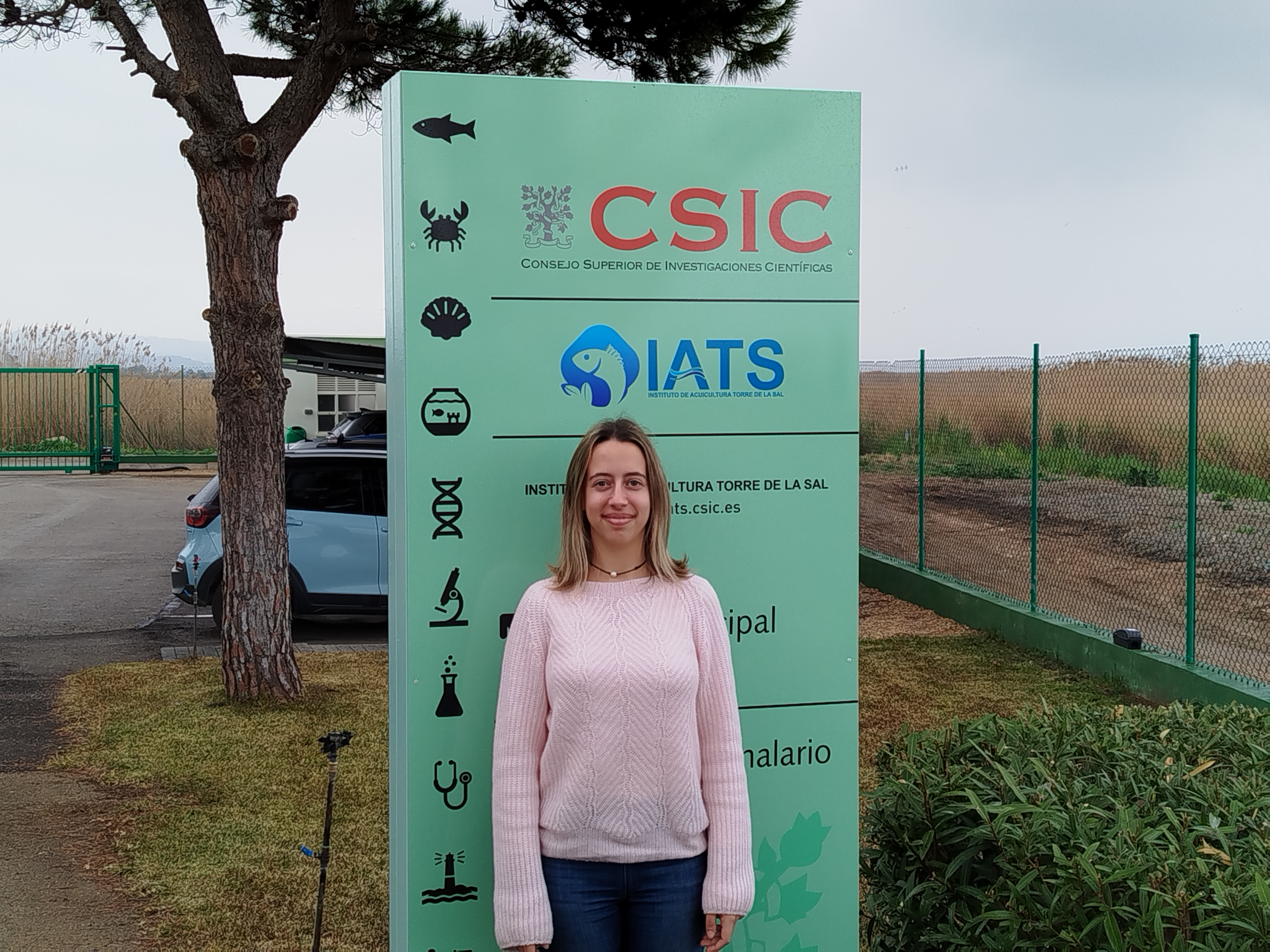
Jaume Pérez was interviewed on Radio Nacional de España (RNE)2025-02-05
Jaume Pérez Sánchez, Research Professor and Principal Investigator of the group, was interviewed in the program “Españoles en la mar” of Radio Nacional de España (RNE), where he addressed a key issue for the future of aquaculture: the adaptation of sea bream diet to climate change.
In the episode entitled “Fish and seafood in Spanish gastronomy”, he explained how modification in the diet of these fish could improve their resistance to environmental variations. This innovative approach seeks to ensure more sustainable and efficient production, minimizing the impact of global warming on aquaculture.
The summer of 2022 evidenced the importance of this research, when temperatures on the Spanish Mediterranean coast reached 30.49 ºC, testing the limits of gilthead sea bream. This thermal increase caused changes in the gut microbiota of the fish, characterized by a drastic increase in the genus Brevinema, identified as a possible marker of heat stress. Adaptation of diets not only has the potential to transform the aquaculture industry, but can also contribute to food security and conservation of marine ecosystems. The identification of stress markers, such as Brevinema, allows for the adjustment of farming practices to develop nutritional strategies that mitigate the effects of global warming on aquaculture production, thus ensuring the resilience of the sector.
The full interview is available at the following link, starting at minute 31:56: Interview RNE
Microbiomes in aquaculture. Another piece of the puzzle has been placed!2025-01-22
We are delighted to announce the latest work published in the Microorganisms journal, as part of the GVA-ThinkInAzul Next-Generation EU projects and Spanish MCIU BreamHOLOBIONT project: “Disclosing the Functional Redundancy of the Core Gut Microbiota of Farmed Gilthead Sea Bream from a Bayesian Network Perspective. Microorganisms (2025), 13, 198”.
In the study, we explored the enormous taxonomic variability and functional redundancy that characterizes the intestinal microbiota of fish fed with different diet formulations through an innovative Bayesian networks approach. Such procedure allows us to shape the hierarchical bacterial associations driven by changes in diet composition.
The trigger point to re-think the healthy core microbiota with the use of conventional and new fish feed formulations, for the advancement of microbiota studies in aquaculture.
Link: https://doi.org/10.3390/microorganisms13010198
The European Aquaculture Conference AE2025VAL warms up at IATS-CSIC2025-01-20
- With the slogan 'Aquaculture for everyone', it will be held from 22 to 25 September 2025 in Valencia and will bring together thousands of congress participants.
- Jaume Pérez, Research Professor and vice-director of IATS-CSIC is the president of the organizing committee of the conference organized by the European Aquaculture Society (EAS).
After several years of work and a great human and economic investment, the celebration of the European Aquaculture Conference AE2025VAL is approaching, which will take place next September. To get here has been essential, in addition to the work done from the EAS and IATS-CSIC, the participation and support of APROMAR, the Generalitat Valenciana, the Ministry of Agriculture, Fisheries and Food and the Ministry for Ecological Transition and Demographic Challenge of Spain, with the support as members of the local committee of the PTEPA, the SEA, misPeces and several universities (UA, UPV, UV, UCV) participating in the Marine Science Program ThinkInAzul of the Valencian Community).
The conference will bring together central figures from industry, academia, administration and politics, who will meet in Valencia to discuss and exchange ideas, create connections, foster synergies and explore cutting-edge technologies that promote sustainable aquaculture. Therefore, it is an ideal framework for academic and professional enrichment of very different profiles: from students and people linked to research, to companies, entrepreneurs and policy makers.
The conference program covers a broad spectrum of subjects and topics. As emerging challenges, aspects such as microplastics, biosecurity and precision technologies related to Artificial Intelligence (AI) and the Internet of Things (IoT) will be addressed. And as central themes, reproduction, genetics, alternative ingredients in nutrition, biodiversity, health management and sustainable aquaculture practices, which will be analyzed in depth through presentations and discussions.
For those interested in attending the event, there are a few key dates: first, those who want to present a paper must submit their abstract by May 1, 2025. And, for registration, the early registration deadline is July 15, while the general registration deadline is September 15, one week before the start of the conference.
The event website is now available as well as the brochure.
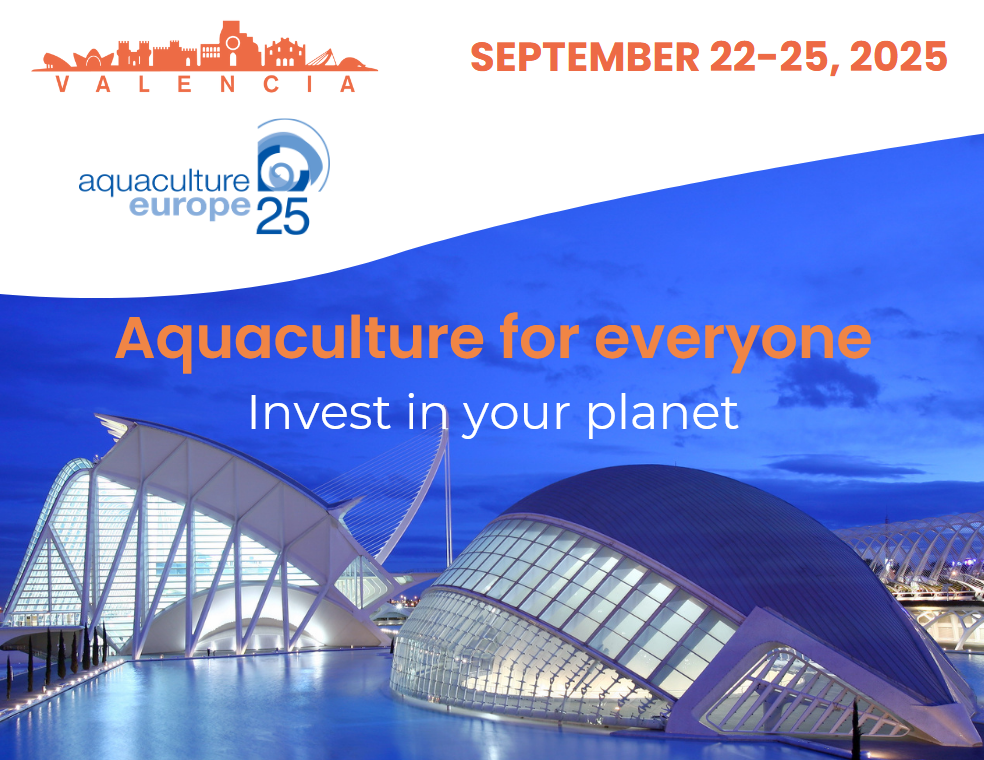
A new study on aquaculture microbiota!2025-01-09
Resisting heat stress!
In the warm summer of 2022, water temperatures soared to a historic 30.49ºC on the Spain’s Mediterranean coast, testing the limits of the farmed gilthead sea bream (Sparus aurata). The result? A dramatic shift in gut microbiota, with a powerful increase in Brevinema, a genus now under the spotlight as a potential heat-stress marker. This is the main result of our latest publication, performed in the framework of the AQUAEXCEL3.0 European project, and the GVA-ThinkInAzul Next Generation EU project, in collaboration with the NUKAMEL NV company.
We observed that the increase of Brevinema in response to heat stress was due to a breakdown in intestinal homeostasis rather that changes in the microbial community in the surrounding water. Moreover, dietary interventions with emulsifiers and low-fat diets partially reversed this microbial imbalance, also restoring the circulating levels of cortisol and glucose.
Using Brevinema as a thermal stress marker, we can contribute to promote effective feeding strategies for mitigating the effects of global warming on aquaculture, ensuring the sector resilience.
Discover more at the link below. https://doi.org/10.1016/j.aqrep.2024.102566
Press releases:
- https://www.mispeces.com/noticias/Ante-las-olas-de-calor-que-estan-por-llegar-piensos-inteligentes/
- https://delegacion.comunitatvalenciana.csic.es/una-investigacion-del-csic-sobre-las-doradas-propone-cambios-en-su-dieta-para-una-mejor-adaptacion-al-cambio-climatico/
A new doctor joins IATS thanks to CSIC's 'Momentum' program2025-01-08
Fernando Naya-Català has joined IATS-CSIC in the Nutrigenomics and Endocrinology of Fish Growth group. This new incorporation benefits from a postdoctoral contract obtained in competitive concurrence, within the innovative CSIC Momentum program, and will be integrated in the project called DigiAcuaSOS: Application of digital tools and artificial intelligence techniques for the development of a sustainable and precision aquaculture in a context of climate change.The 'Momentum' program seeks to strengthen and retain the most qualified research personnel in advanced digital competencies. More information in this press release.
IATS contribution to standardized microbiome monitoring in AQUAEXCEL3.02024-11-29
The 4th newsletter of the European Project AQUAEXCEL3.0 has been made public. It highlights the validity of the microbiome sequence protocol and analysis developed at IATS analytical infrastructure using Nanopore technology, through the success of several Transnational Acesses (TNAs). You can find it here.
AQUASERV launches open call for Transnational Access to advanced research infrastructures services2024-11-20
AQUASERV announces the launch of a Transnational Access Call to support researchers from academia and industry, from Europe and around the World, to develop research projects in leading European research facilities, have access to cutting-edge technologies and services in marine and freshwater sustainable aquaculture, fisheries, ecological restoration, blue biotechnology and related fields.
The program spans 16 European countries, offering state-of-the-art facilities across over 40 institutions covering environmental sciences applied to marine and freshwater environments, with specialized resources available throughout the Baltic, Northeast Atlantic, and Mediterranean seas, as well as inland waters. Services provided by AQUASERV include access to laboratories, state-of-the-art experimental facilities and technological platforms, ecosystems, and a wide variety of marine biological resources, biobanks and databases. This initiative marks a significant step forward in fostering groundbreaking scientific collaborations and advancements in the fields of sustainable aquaculture, fisheries, biotechnology and ecological restoration.
Analytical and experimental facilities of Institute of Aquaculture Torre de la Sal, including Nutrigroup, are part of the wide AQUASERV offer. Check it in the AQUASERV website.
KEY DETAILS
Call Duration: Continuously open after 15 November 2024 until December 2028
Access Types: On-site and remote
Impact Areas: Basic and applied research that promotes, contributes, and facilitates the implementation of The European Common Fisheries Policy, The Farm to Fork Strategy, The Sustainable Blue Economy,,The European Green Deal and the EU Mission “Restore our Ocean and Waters by 2030.
For more detailed information, please visit the AQUASERV website.
Tots amb València2024-11-01
19 GVA-ThinkInAzul researchers in the 2024 Stanford List2024-10-17
Seven of them are CSIC researchers (three from IATS), five come from the Polytechnic University of Valencia (UPV), two from the University of Valencia (UV), two from the Jaume I University of Castellón (UJI), two from the Miguel Hernández University at Elche (UMH) and one from the University of Alicante (UA).
CSIC Converge EBTón 2024: FishBIT Integromics proposal moves on to final round2024-10-06
The FishBIT Integromics proposal, in which researchers from the Nutrigenomics Group of the IATS and the National Microelectronics Center of the CSIC participate, has moved on to the final phase of the EBTón organized by CSIC Converge. This is an initiative that seeks to boost the entrepreneurial spirit among CSIC staff and encourage knowledge transfer through the creation of Knowledge-Based Companies. On October 10, the Institute of Agrochemistry and Food Technology (IATA-CSIC) will host the session in which the winning proposals will be decided.
PhD offer, Nutrigenomics and Fish Growth Endocrinology 2024-09-19
We are looking for a candidate to apply to a fully-funded four-year PhD contract to work on the recently funded research project from the Spanish Ministry of Science “Holistic phenotyping of evolutive/adaptive features in fish farming. The gilthead sea bream holobiont: from pangenome to metagenome (BreamHOLOBIONT)- PID2023-146990OB-I00”
Lead scientist: Jaume Pérez-Sánchez (IP1), Josep Calduch Giner (IP2)
Thesis topic: Multi-omic phenotyping of thermal tolerance in fish.
More information at CSIC Opportunities for research careers Section and here.
Application deadline: November 15th 2024
Starting date: between 1st January 2025 and 1st March 2025
Candidates: Candidates should hold a Master's degree in Biology, Genetics, Biotecnology, Aquaculture or a related field. High academic achievements ( >7) and a high level of English are required. Programming skills and bioinformatics knowledge will be considered an advantage.
Location: Institute of Aquaculture Torre la Sal (IATS-CSIC), Ribera de Cabanes, Castellón
Interested candidates should send an email to jaime.perez.sanchez@csic.es & j.calduch@csic.es
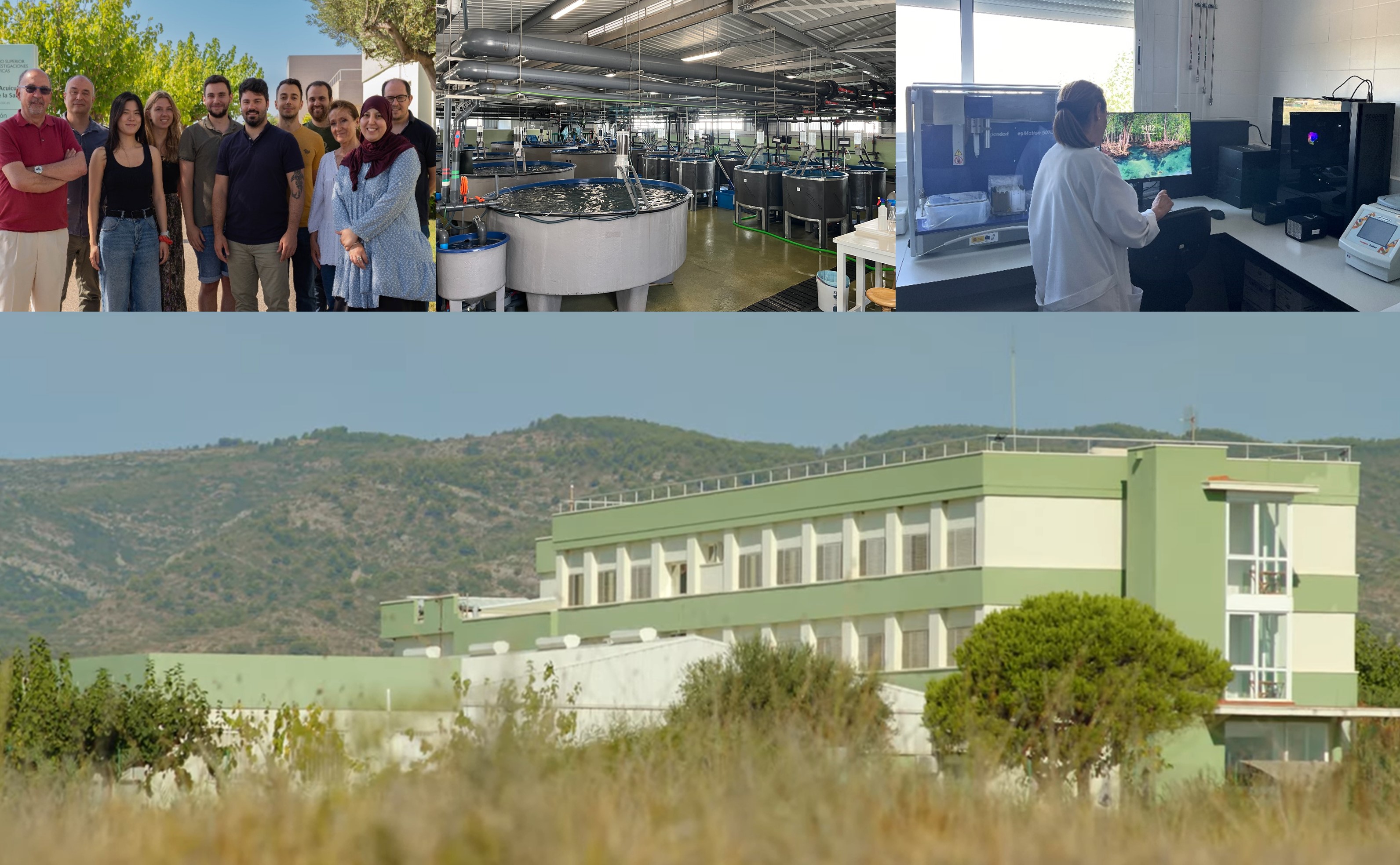
IATS Nutrigenomics group at AQUA 2024 World Aquaculture Conference2024-09-09
IATS Nutrigroup has participated in the AQUA 2024 congress. The event, organized by the European Aquaculture Society (EAS) and the World Aquaculture Society (WAS), took place from August 26 to 30 at the Bella Center convention center in Copenhagen (Denmark).
The slogan of this edition has been Blue food, green solutions, a theme that emphasizes the importance of aquatic food for the future of the planet, highlighting the latest research on innovation in aquaculture with sessions that invite reflection on blue food as a way to mitigate climate impact, offering greater and better food security with great efficiency and environmental responsibility.
Professor Jaume Pérez-Sánchez, head of the Nutrigenomics group, accompanied by Professor Genciana Terova from the University of Insumbria, moderated the session on Microbiota and Animal Health. In this session, PhD student Domingo Ricardo-Bretón presented the paper “Re-thinking the gut core microbiota dynamics in gilthead seabream fed alternative diets across the production cycle”, and Dr. Federico Moroni presented “Beyond the microbial taxonomy with SAMBA. Disclosing the functionality and core gut microbiota of gilthead sea bream from a causal bayesian network perspective”.
The group also participated in the Behavior session with the presentation by Paul Holhorea on “Behavioral testing of stress habituation to high rearing stocking densities in gilthead sea bream (Sparus aurata)”, and with Dr. Fernando Naya-Català in the Genomics session, with the presentation “Towards a wide-genome tissue-specific epigenomic profiling for a tailored improvement of growth performance with global warming in gilthead sea bream”.
Two works derived from transnational accesses of the H2020 Project AQUAEXCEL3.0 were presented by PhD students from Portuguese institutions: Ibon García-Gallego (CCMAR) in the Microbiota session “Effects of butyrate and taurine supplementation on growth performance and gut microbiota composition in gilthead seabream Sparus aurata fed fishmeal free diets”, and Ricardo Matias (CIIMAR) in the Plastics and Nanoparticles session “Effects of dietary inclusion of viscose-rayon microfibers on European seabass performance and transcriptomic traits”.
At the event, which included other activities such as the trade exhibition, industry forums, workshops, events for students and official receptions, it has been announced internationally that the next venue for AQUA 2025 will be in the city of Valencia, with CSIC as the host of the congress.
More information on the conference website:
https://was.org/Meeting/Program/Sessions/AQUA24
El IATS ofrece dos contratos en inteligencia artificial y competencias digitales avanzadas2024-07-25
El Consejo Superior de Investigaciones Científicas (CSIC), ha lanzado 187 nuevos contratos de personal técnico, predoctoral y postdoctoral para atraer, formar y retener talento en inteligencia artificial y competencias digitales avanzadas. Dos de estos contratos (predoctoral, postdoctoral) tienen como destino el Instituto de Acuicultura Torre de la Sal (IATS), situado en la Ribera de Cabanes, Castellón.
Los contratos, con una duración de cuatro años, tienen como objetivo la formación en competencias digitales aplicadas a la acuicultura en el marco del proyecto “DigiAcuaSOS”, para el desarrollo de una acuicultura sostenible y de precisión en un contexto de cambio climático.
Development of reproductive tools resilient to climate change2024-07-11
This work was presented in the Innovation Radar session of the second annual meeting of the ThinkInAzul Program of the Valencian Community, and it can be found at this link. It is the result of collaboration between researchers from the UPV4, CSIC1 (IATS Nutrigroup) and CSIC2 (IATS Fish Reproductive Physiology Group) ThinkInAzul groups.
More information can be found at mispeces.com.
Microorganisms publication links culture density and oxygen availability to gilthad sea bream microbiome diversity2024-07-10
A recent work published in the journal Microorganims, first authored by Socorro Toxqui-Rodríguez, ITN student from IATS Nutrigenomics and Fish Pathology groups, reflects the effect of culture density and oxygen availability on the composition of gilthead sea bream skin and gut microbiota, as well as the expression of host marker genes of immune and stress response. These results are of great importance to define new indicators of well-being and resistance to stress. These results will serve to infer new welfare indicators for increased stress resilience.
More info at mispeces.com.
El Consell autoriza la ampliación del plazo de ejecución de la iniciativa ThinkInAzul2024-07-02
El Consell ha autorizado la modificación de un convenio entre la Generalitat, a través de la Conselleria de Educación, Universidades y Empleo, y el Consejo Superior de Investigaciones Científicas (CSIC) y varias universidades valencianas que permitirá ampliar el plazo de ejecución de la iniciativa ThinkInAzul, la estrategia conjunta de investigación e innovación en ciencias marinas, según ha avanzado la portavoz del Gobierno valenciano, Ruth Merino, en la rueda de prensa posterior al pleno.
Official presentation of the EAS conference Aquaculture Europe 20252024-06-20
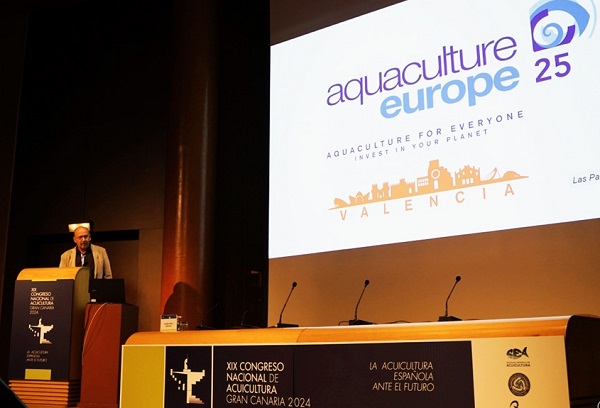
Nutrigroup leader Jaume Pérez Sánchez, representing the local committee, has officially presented at the XIX National Aquaculture Congress the next European Aquaculture Congress, Aquaculture Europe 2025, which will be held in Valencia, September 22-25, 2025.
More information can be found at mispeces.com.
AEFishBIT at the GVA-Thinkinazul Innovation Radar2024-06-17
The device for monitoring fish behavior has been one of the 20 transferable products presented to aquaculture industry and transfer agents during the Innovation Radar session of the second GVA-Thinkinazul annual congress.
More information can be found at mispeces.com.
GVA-Thinkinazul 2nd annual meeting2024-06-14
The 2024 meeting (June 11-13) of the Comunidad Valenciana Thinkinazul Program, coordinated by Nutrigroup leader Prof Jaume Pérez-Sánchez, brought together more than 150 scientists at the San Vicente de Raspeig Campus of the University of Alicante. The progress of the different tasks of the Workpackages were presented and discussed. The meeting also held an Innovation Radar session in which a total of 20 milestones of transferable products from this Programa were presented to transfer agents and aquaculture-related enterprises.
The event has had extensive news coverage from mispeces.com, and a press release from the CSIC delegation in the Valencian Community.
Fernando Naya doctorates2024-06-05
Fernando Naya successfully presented his doctoral thesis at ICTA building of Polytechnic University of Valencia on June 4.
His work, entitled "The Two Genomes of Gilthead Sea Bream (Sparus aurata): A Multi-Omics and Holobiont Approach" was co-directed by Jaume Pérez-Sánchez (IATS Nutrigenomics Group) and Carla Piazzon (IATS Fish Pathology Group).
The Thesis defense was awarded with the highest distinction, Sobresaliente cum laude. Congratulations to Fernando for his excellent work.
Student stay at Nutrigroup2024-06-03
Raquel Minai Valero Martínez, 4th year student of double degree in Marine Sciences and Biotechnology at Universidad Católica de Valencia, has completed a two month (April-June 2024) external academic internship in the Nutrigenomics and Fish Growth Endocrinology group. Minai has collaborated in tasks related to the study of the microbiota in feces, a non-invasive procedure, as an indicator of changes in the adherent intestinal microbiota in gilthead sea bream.
Erasmus+ student stay at Nutrigroup2024-06-03
Isa Boelens, Erasmus+ program Dutch student, will complete a 4-month training stay, from February to June, with the Nutrigenomics and Fish Growth Endocrinology Group. Isa comes from the Noorderpoort center (Groningen, Netherlands), where she is training to be a laboratory technician. On May 29, professors Kim Fränkel, Renella Herder and Harold C. Tammeling and the head of the department J. Kooistra-de Vries visited the IATS to evaluate Isa's work at our Center, together with Elisa Beltrán and Ana de Juan, from the company managing this program, My Spanish Spot.
IATS Nutrigroup tool at CSIC technology catalog2024-05-10
CSIC has published a catalog containg its 100 most promising technologies for commercialization. CSIC president, Eloísa del Pino, has presented the fully accessible catalog, which compiles a hundred innovative and disruptive technologies in different areas of knowledge developed by the institution. Most of these technologies are protected by an industrial or intellectual protection, with high levels of maturity and advantages over current technologies in market or under development. They are thus an interesting offer for market partners.
A technology developed by IATS Nutrigroup is present in this catalog of selected technologies: AEFISHBIT: A SMART DEVICE FOR MONITORING FISH HEALTH AND WELFARE
More information about AEFishBIT
Download the full CSIC catalog
CSIC Mobility: Training stay at IATS2024-04-23
Technician Daniel Hernández Peraza, from the Canary Islands Oceanographic Center, has finished a 9-day stay with the IATS Nutrigenomics Group, within the framework of CSIC Training Stays of Technical and Management Staff (MOV-GEST/TEC 2023). During this stay, he visited IATS infrastructures, research groups, and its diverse scientific-technological catalogue. We hope that this stay had been productive.
PhD student stay2024-04-19
Cristina Moreno Mariscal, PhD student at the IATA Food Sciences Laboratory, has completed a one-week training stay with the IATS Nutrigenomics group. Within the framework of his doctoral thesis co-directed by Drs. Federico Moroni (IATS) and Leticia Mora (IATA), she analyzed microbiota samples to determine the effects of a dietary additive, based on a porcine blood hydrolyzate, on the gut microbiome of gilthead sea bream. Tasks carried out by Cristina comprised learning of sampling, bacterial DNA extraction, sequencing and bioinformatic and statistical analysis of results.
AQUASERV Kickoff meeting2024-04-18
The kickoff meeting of the European Project AQUASERV was held April 9-10 at Faro, Portugal. This 2024-2029 project will contribute to significantly further scientific advance and promote and facilitate the implementation of European Common Fisheries Policy, the Farm to Fork Strategy, the Sustainable Blue Economy and the European Green Deal through the provision of transnational access (TA) to top research infrastructures. CSIC participation in AQUASERV is led by IATS Nutrigenomics Prof. Jaume Pérez-Sánchez. CSIC will offer access to the experimental and analytical infrastructures at IATS in Castellón, and those at Centro Oceanográfico de Murcia. Call for TAs will be open at late 2024.
AquaIMPACT Final Review meeting2024-02-19
The final Review Meeting of EU Project AquaIMPACT was held on February 15th. The meeting was held in Brussels, with the presence of Project Coordinator Antti Kause (LUKE) and WP leaders, and online attendance by other project partners. Project officer Germán Valcárcel was assisted for the review by experts Elena Sarropoulou (HCMR) and Gloriana Cardinaletti (University of Udine).
AQUAEXCEL3.0 TNA stay at Nutrigroup2024-02-19
PhD student Ibon García-Gallego from CCMAR (Portugal) is visiting IATS infrastructure through the AQUAEXCEL3.0 Transnational Acess (TNA) entitled FISH+ (Enhanching fish robustness through dietary functional additives). This TNA supervised by Nutrigroup Prof. Jaume Pérez-Sánchez. The TNA will analyze in the upcoming weeks the gut microbiota communities of samples from gilthead sea bream juveniles fed diets enriched with selected addtivies (thymol, butirate, taurine), in order to assess the impact of such additives on the enhancement of intestinal health of cultured fish.
The Stanford Ranking includes three IATS researchers working in the Valencian Community ThinkInAzul Program2024-02-14
The 2023 Stanford Ranking has recognized two IATS researchers (Jaume Pérez-Sánchez and Ariadna Sitjà-Bobadilla) among the most influential worldwide for their achievements throughout their research career. In addition, the Stanford list recognizes a third IATS researcher (Óscar Monroig) for his career over the last year.
Congratulations on this important achievement!
More information on the Valencian Community ThinkInAzul website.
Master's degree student 2023-12-20
We welcome Ryhane Lounas, PhD in Marine Environment from the École Nationale Supérieure des Sciences de la Mer et de l'Aménagement du Littoral (Algeria), to our Group. After completing a Master in Marine Studies at the University of Las Palmas de Gran Canaria with a scholarship from the Zaragoza Centre for Advanced Mediterranean Agronomic Studies (CIHEAM), she has recently joined IATS Nutrigenomics group to carry out her work on Master's degree under the supervision of Prof. Jaume Pérez-Sánchez to study the effect of microplastics on microbiome in aquaculture.
Second stay of Ricardo Matias (AQUAEXCEL3.0 TNA)2023-11-20
PhD student Ricardo Matias, from CIIMAR (Portugal) completed a stay (October-November) with the IATS-Nutrigroup, financed with a AQUAEXCEL3.0 Transnational Access (TNA). This stay served for complete a wide transcriptomic analysis of tissue samples (liver, skeletal muscle, anterior intestine, head kidney) generated in the previous RAYON2BASS experimental TNA, a feeding trial aimed to assess the impact of cellulose-based microfibres on sea bass growth parameters and nutrient utilisation.
TNA stay at IATS2023-10-24
PhD student Eliza Syropoulou, from Wageningen University (The Netherlands) has finished her stay at IATS facilities. She has worked in tasks related to two Transactional Accesses (TNAs) funded by European Project AQUAEXCEL3.0. The TNAs CarboMicroSea and Breamucosa evaluated the combined impact of culture system (open flowthrough or different degrees of water renewal in closed systems) and carbohydrate sources in sea bream diets on the microbiome composition of water, biofilms and mucoses (skin and gut), and how microbiome changes affect fish growth and performance. Her work has been supervised by Professor Jaume Pérez and Dr. Carla Piazzon, from IATS Nutrigenomics and Fish Pathology groups, respectively.
AquaIMPACT Final Conference2023-10-02
The Final Conference of AquaIMPACT Project was held at Vienna on September 18th as an open conference in the framework of the EAS 2023. It was a successful event, with more of 110 people in the audience. IATS-CSIC Nutrigenomic group participated with two presentations. One highlighted the importance of microbiota gut resilience and functional plasticity as traits to be considered for future selective fish breeding and nutritional innovation programs. The other one linked nutritional programming, the use of feed additives and gut micriobiota in two gilthead sea bream populations, showing as an outcome that the nutritional improvement of farmed sea bream is largely dependent of both the metagenome and host genome according to the Hologenome theory of evolution.
A short AquaIMPACT vídeo with the main relevant messages of industry is available.
Successful participation of Nutrigroup at Vienna Aquaculture Europe 20232023-10-02
Aquaculture Europe was held from 18 to 21 September at Vienna, and Nutrigroup labor has been quite appreciated. Ricardo Domingo finally won the Student Spotlight Award of the Congress after a wonderful presentation. Álvaro Belenguer contributed with one of the principal presentations in the Genomic/Post-Genomics/Epigenetics session. The Microbiome session was hosted and co-chaired by Nutrigroup leader Jaume Pérez-Sánchez and Genciana Terova from Insubria University. Postdoc Federico Moroni presented in this session the SAMBA (Structure-Learning of Aquaculture Microbiomes Using a Bayesian Approach) tool to model the network structure of fish gut microbiomes and their interactions with biotic and abiotic variables associated with aquaculture systems. PhD Fernando Naya-Català presented in the Selective Breeding session the recent results from AquaIMPACT project about the importance of fish genetic background in the gut microbiome and transcriptome response to feed additives.
In the Welfare session, ITN student from IATS Nutrigenomic and Pathology groups Socorro Toxqui-Rodríguezcontributed with a talk about the role of skin microbiota to shape reactive and reactive behavior in gilthead sea bream under high stocking densities.
Ricardo Domingo-Bretón nominated to Student Spotlight Award of Aquaculture Europe 23 Congress2023-09-15
Nutrigroup PhD student Ricardo Domingo-Bretón is one of the three nominees to the Student Spotlight Award granted by the EAS at the upcoming Aquaculture Europe 23 Congress (September 18-21, Vienna), with the work entitled "Gilthead sea bream microbiota shifts associated with thermal stress and dietary intervention during a record heat summer".
This work resulted by collaboration with Nukamel company through the AQUAEXCEL3.0 Transnational Access EMULSAQUA2, with additional funding from National THINKINAZUL project. The combined effect of diet fat level and emulsifier supplementation (Volamel Aqua) was tested in juvenile gilthead sea bream during the extremely hot summer of 2022 at the Spanish Mediterranean coast. Gut microbiota was revealed as a strong biomarker of heat stress, and the feed additive turned down the microbiota dysbiosis and mimicked the microbiota changes associated to low energy diets. A nice piece of work that merited his nomination. Best of lucks for Ricardo.
AQUAEXCEL3.0 TNA stay2023-07-31
PhD student Ricardo Matias, from CIIMAR (Portugal) has completed an experimental AQUAEXCEL3.0 Transnational Access (TNA) stay with IATS-Nutrigroup.
The RAYON2BASS TNA consisted in a feeding trial aimed to assess the impact of cellulose-based microfibres on sea bass growth parameters and nutrient utilisation.
AquaIMPACT training course on Nutritional Innovations for Selected Aquaculture Fish2023-07-04
The “Training course on Nutritional Innovations for Selected Aquaculture Fish” took place the 28-29 June in the Wageningen Campus, in the Netherlands. This was one of the two courses that AquaIMPACT project organized to train aquaculture professionals and students with the latest concepts about fish genomic selection and nutrition.
A total of 24 students from 9 nationalities attended the course, with lecturers belonging to research (INRAE, University of Las Palmas de Gran Canaria, University of Stirling, CSIC, University of Insubria) or aquaculture-related (Skretting Aquaculture Research Centre) institutions. The organization of the activity was promoted by the University of Las Palmas de Gran Canaria.
The Nutrigroup representation in this course was composed by Álvaro Belenguer and Fernando Naya-Català. Álvaro showed recent research undergone by the group on sea bream nutritional programming, and explained the transcriptomics and epigenomic links after the implementation of this technique. Fernando explained the importance of the gut microbiota as a key factor to explain the relationship between fish breeding and nutritional interventions, and how this community and the host gut transcriptome can be modulated in sea bream by feed functional additives.
Training stay of Fernando Naya at CIGENE (NMBU)2023-06-27
The Nutrigroup PhD student Fernando Naya-Català just came back from a 3-months stay at the Center for Integrative Genetics (CIGENE-NMBU), in Aas, Norway. Nando was trained in the use of the PromethION platform for the generation of whole genome sequencing data and the detection of DNA methylation patterns in the sea bream genome, under the supervision of Profs. Matthew Peter Kent and Sigbjørn Lien, and Drs. Mariann Arnyasi and Arturo Vera Ponce de León.
This stay, co-financed by the EMBO and iMOVE short-term mobility fellowships, will help Nutrigroup to gain expertise in the working and performance of third-generation sequencing systems for epigenomics aproaches, promoting the knowledge advance in this field.
Beatriz Soriano doctorates2023-06-21
Beatriz Soriano successfully presented her doctoral thesis at Institute for Integrative Systems Biology (I2SysBio, UV-CSIC) on june 15th.
Her work, entitled "Bioinformatics solutions for the analysis of omics data, knowledge discovery and genetic diagnosis in Sparus aurata and other biological organisms" was co-directed by Carlos Llorens (Biotechvana), Jaume Pérez (IATS Nutrigenomics Group) and Vicente Arnau (I2SysBio). It was financed by the Ministry of Science and Innovation through a grant for contracts for the training of doctors in companies (Doctorados Industriales).
The Thesis defense was awarded with the highest distinction. Congratulations to Beatriz for her excellent work.
Training stay of student at IATS within Erasmus+ for laboratory technicians2023-06-02
Dutch student Justin Bleeker is completing a 4-month training stay, between February and June, through the Erasmus+ programme at the Nutrigenomics and Fish Growth Endocrinology group. Justin comes from the Noorderpoort college in Groningen, Netherlands, where he is being trained to become a laboratory technician. On the first of June of 2023 his teachers Kim Fränkel, Renella Herder and Harold C. Tammeling visited the IATS, as Justin’s supervisors, to evaluate his work in our Center.
The Aquaculture Europe 2025 congress will be held in Valencia2023-04-26
Promoted by IATS, and with Professor Jaume Pérez as chair of the steering committee, it will be held from September 22-25, 2025 in the city of Valencia. More information: Official announcement of the European Aquaculture Society (EAS) and press release of CSIC delegation in the Valencian Community.
First ThinkInAzul Comunitat Valenciana annual meeting2023-04-20
The first annual meeting of the R+D program in Marine Sciences, ThinkInAzul, in the Valencian Community took place on April 18 and 19 at the Catholic University of Valencia (link to CSIC Delegation press release).
New additions to Nutrigroup team2023-04-04
These are the newest faces of Nutrigroup. Leyre Rivero Álvarez has been incorporated as project manager to handle the administrative tasks of the coordination of the Thinkinazul project. Ricardo Domingo starts his Phd with a contract from the FishNUTRIWELL project within Thinkinazul, studying the microbiome changes in fish with different nutritional and genetic background, and correlating these changes with the nutritional and taste profiles of fish fillets. Federico Moroni is a postdoctoral contracted in the framework of EU Project AQUAEXCEL3.0 to assess the meta-analysis of microbiome changes by means of new bioinformatic tools, and the adaptation of these tools for new omic approaches such as metagenomics, trnascriptomics and methylomics.
We wish them a nice and fruitful stay in the Group.
AquaIMPACT Newsletter2023-03-10
The 7th Newsletter of the EU project AquaIMPACT has been released. It is focused on the main achievements of the project in 2022, and one of the chosen highlights has been the nomination of our Fernando Naya-Català for the Student Spotlight Award in in the EAS Aquaculture Europe 2022 conference.
This work was chosen as one of three most outstanding among more than 120 presentations. It is focused on the regulation of gilthead sea bream gut microbiota by genetics and nutrition, and how the adherent gut microbiota can interact with host at the transcriptional level to modulate a wide range of biological processes for preserving and improving gut health and growth performance along a 12-month production cycle. It also disclosed the high resilience and functional plasticity of the microbial community when genetically selected fish for fast growth were challenged with changes in diet composition.
Shortly after his superb presentation, this work has been published in a Special Issue (Omics Technologies Applied to Aquaculture Research) of the high-impact Open Access journal Biology.
Contribution of AquaIMPACT to aquaculture microbiota2023-03-10
Participation of IATS Nutrigenomics Group and the interesting results on fish microbiote analysis within EU AquaIMPACT project have been highlighted in a press release (link in english) in Central CSIC and CSIC Valencian delegation websites.
TNA Success Stories: Microbiome studies in gilthead sea bream2022-11-29
The second e-newsletter of the European Project AQUAEXCEL3.0 has been recently released, and it highlights the contribution of the microbiome analysis platform of IATS infrastructure in the form of successful TNA works.
This platform has shown to be a reliable approach for assessment of fish health and welfare in a wide range of experimental models and processes of interest for potential AQUAEXCEL3.0 TNA users.
The TNA program of AQUAEXCEL3.0 allows external researchers to access the partners’ facilities for conduction of experiments and analysis. IATS-CSIC analytical and experimental facilities are offered to interested partners. More details about applications can be found here.
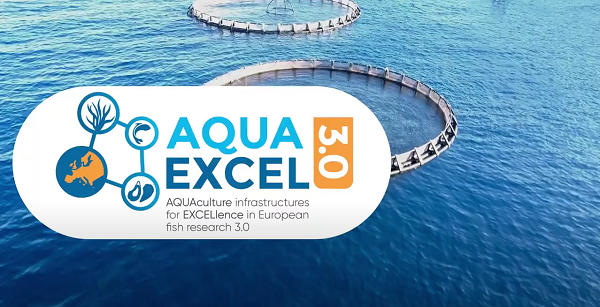
Two IATS researchers on the World's Top 2% Scientists 2022 ranking2022-11-24
The latest update of the Stanford University list that ranks the 2% of the most influential researchers in the world (World’s Top 2% Scientists 2022) includes two researchers from our Institute. They are Professors Ariadna Sitjà-Bobadilla, from the Pathology group, and Jaume Pérez-Sánchez, from the Nutrigenomics group.
This list is based on information compiled in the Scopus database, which includes more than 8 million active scientists in the world from all disciplines. Its classification system includes not only the number of publications, but also the co-authorship level and the number of publication citations.
Other active CSIC researchers working in the field of aquaculture also ranked on this list, such as Professor Francesc Piferrer (ICM), Professors Antonio Figueras and Beatriz Novoa (IIM) and Professor Manuel Yúfera (ICMAN).
Congratulations to all!
FAO Workshop on new technologies in aquaculture2022-11-11
Researchers of IATS Nutrigenomics group have participated in the workshop entitled “Sustainable approaches to inland aquaculture and fisheries – advances in novel technologies”. This workshop is jointly organized by FAO and the University of South Bohemia in Vodňany, Czech Republic (November 7-11).
Topics presented in this training to an audience from Balkans and Middle Asia included intensive fish farming, frontier aquaculture technologies, fish immunology, fish genetics and breeding, and conservation of fish genetic resources. IATS Nutrigenomics group contributed with an online presentation about biosensors, focused on the applications of the AEFishBIT device.
AECID activity on precision aquaculture2022-11-10
The online activity "Precision aquaculture: how to improve production through the nutrition and health of farmed species" took place from October 24 to November 3. This is one of the five courses promoted by the Spanish Agency of International Cooperation for Development (AECID) within the framework of the INTERCOONECTA Plan for Knowledge Transfer, Exchange and Management for the Development of Spanish Cooperation in Latin America and the Caribbean, and it has been aimed at technical and managerial staff of public administrations, researchers, academics and university professors linked to the aquaculture sector. The programming of the courses has been coordinated from CSIC by Francesc Piferrer, from the Institute of Marine Sciences of Barcelona. The academic coordination of this activity has been carried out by Professor Jaume Pérez Sánchez, from the IATS Nutrigenomics group.
The course was attended by students of 17 nationalities from Latin America and the Caribbean. The different presentations on nutrition, monitoring and health in aquaculture were given by 24 speakers of 6 nationalities, belonging to CSIC centers (IATS, 10 speakers; IIM, 3; IATA, 1), universities (Universidad Miguel Hernández, Universidad de Las Palmas de Gran Canaria, Universidad Austral de Chile, Universidad de la Sabana de Colombia) and aquaculture-related enterprises (Avramar, Bioflytech, Evonik, Sparos, Ingesom).
Automation and digitization of aquaculture monitoring as a solution to adapt to a climate change scenario2022-10-27
Nutrigroup at Aquaculture Europe 22 Congress at Rimini: Student Spotlight Award2022-10-10
The Nutrigroup PhD student Fernando Naya-Català was one of the three nominees to the Student Spotlight Award granted by the EAS at the Aquaculture Europe 22 Congress, among more than 120 presented works.
In his presentation at the plenary session, Fernando explained how diet, host genetics and gut microbiota interact during the production cycle of gilthead sea bream. The trial, framed under the AquaIMPACT H2020 EU project, disclosed the temporal succession of sea bream microbiota, as well as the higher resilience and functional plasticity of the microbial community when genetically selected fish for fast growth were challenged wtih changes in diet composition. The study also disclosed several strong associations of microbiota with changing host transcriptome enriched processes.
For more information, see this link to the Aquaculture Europe web.
Glance at the award ceremony in this link.
Nutrigroup at Aquaculture Europe 22 Congress at Rimini: Stocking density, mild hypoxia and gut microbiota2022-10-10
The Nutrigenomics and Fish pathology groups ITN doctorate Socorro Toxqui-Rodríguez gave an interesting talk in "the Microbiome & Metagenomic applications session" about the effects of stocking densities and mild hypoxia on the intestinal microbiome and transcriptome of sea bream.
This study, framed under the AQUAEXCEL3.0 and EATFISH H2020 EU projects showed the gradual effect of changes on the environemt upon the analyzed parameters as part of an integrative hologenomics approach to define gut microbiota dependent processes.
For more information, see this link to the Aquaculture Europe web.
El GVA-ThinkInAzul en detalle2022-07-01
El lunes 27 de junio se celebró en el Instituto de Acuicultura de Torre la Sal (IATS, CSIC) el Kickoff meeting del Proyecto ThinInAzul en Ciencias Marinas de la Comunitat Valenciana (GVA- ThinkInAzul), coordinado por JAUME PÉREZ-SÁNCHEZ del IATS y CARLOS VALLE PÉREZ de la Universidad de Alicante.
El Proyecto GVA-ThinKInAzul, con una financiación de 10 millones de euros, es el primero del de las ocho áreas temáticas del Programa de Recuperación, Transformación y Resiliencia que se ha iniciado en la Comunidad Valenciana. Somos por tanto pioneros en la puesta en marcha de los programas impulsados por el MINISTERIO DE CIENCIA E INNOVACIÓN con fondos del Mecanismo de Recuperación y Resiliencia (MRR) en el marco de la iniciativa NextGenerationEU.
El GVA-ThinInAzul se coordinará a lo largo del desarrollo del proyecto (2022-2025) con los programas desarrollados por las CCAA de Cantabria, Galicia, Andalucía, Murcia, Canarias y Baleares. La financiación total del Programa a nivel nacional es de 53 millones de euros para la ejecución de actividades en tres líneas temáticas:
- Monitorización del Medio Marino y Litoral
- Acuicultura sostenible, inteligente y de precisión
- Economía Azul-Ciencia Ciudadana
El GVA-ThinkInAzul tiene planificadas más de 100 tareas en las tres líneas de actuación, con el objetivo ultimo de promover la conservación del medio marino y litoral, y una producción acuícola sostenible que dé paso a la última revolución industrial pendiente, la de la economía azul.
El GVA-ThinInAzul cuenta con la participación de 39 grupos de investigación pertenecientes a la Universidad Politécnica de Valencia (13), Universidad de Alicante (8), CSIC (8), Universidad de Valencia (4), Universidad Miguel Hernández de Alicante (3), Universidad Jaume I (2) y Universidad Católica de Valencia (1), todos ellos inicialmente encuadrados en uno de los sietes paquetes de trabajo en los que se ha organizado el proyecto: Monitorización ambiental, Diversificación y reproducción, Nutrición y bienestar, Salud, Calidad y seguridad alimentaria, Interacción acuicultura y medio ambiente, y Economía azul y ciencia ciudadana.
El Consorcio así constituido, a imagen y semejanza de un gran CONSORCIO EUROPEO, cuenta con la participación de más de 300 investigadores con capacidades muy diferentes y complementarias, lo que permite una aproximación holística al actual estado de emergencia climática, especialmente grave en el Área Mediterránea.
Las soluciones aportadas deberán tener un alto COMPETENTE TECNOLÓGICO y contribuir a mitigar los efectos de fenómenos atmosféricos devastadores sobre el medio marino y litoral y las explotaciones en cultivo, a la vez que promover la automatización, robotización y digitalización de la producción acuícola como fuente de productos del mar de alta trazabilidad y valor nutritivo para el consumo humano, producidos bajo un estricto control de la salud y bienestar animal, y con un bajo impacto medioambiental de acuerdo con los principios de la economía circular.
Los HITOS esperados al final del proyecto incluyen la creación de CONSORCIOS DE ÉXITO con la participación de empresas para abordar los retos medioambientales y de producción sostenible de alimentos de la agenda 2030, un catálogo actualizado de INFRAESTRUCTURAS DE INVESTIGACIÓN EN CIENCIAS MARINAS para su implementación en recursos técnicos y humanos, la adecuación del trabajo en red de las actuales PLATAFORMAS OMICAS, TECNOLÓGICAS Y MEDIOAMBIENTALES en Ciencias Marinas de la Comunidad Valenciana, así como la mejora de la PERCEPCIÓN DE LA SOCIEDAD de la acuicultura y de los beneficios de la conservación del medio marino, junto con la creación de una UNIDAD DE INNOVACIÓN Y TRANSFERENCIA que sea un verdadero motor de la Economía Azul en la Comunidad Valenciana, con un patrimonio marino de indudable valor y líder nacional de la producción piscícola marina de acuicultura.
Por tollo ello, ThinkInAzul aspira a contribuir de forma decida a promover cambios en los modelos de producción y consumo de alimentos, y así iniciar de forma decida la transición verde y digital de la producción acuícola y la modelización de sistemas de producción y del medio natural mediante aproximaciones de inteligencia artificial con capacidad de aprendizaje en un escenario de cambio global con escasez de recursos energéticos, alimentos, fertilizantes nitrogenados, etc..
En definitiva, queremos avanzar en el conocimiento de las INTERACCIONES DEL MEDIOAMBIENTE CON LOS ANIMALES EN CULTIVO Y EN SU ENTORNO NATURAL para mitigar entre otros los efectos de la actividad antropogénica y del cambio climático sobre los sistemas de producción y el ecosistema marino y litoral.
Ver grabación en streaming del Acto
Presentación del Plan Complementario ThinkInAzul de Ciencias Marinas de la Comunitat Valenciana 2022-06-27
Este lunes 27 de Junio ha tenido lugar en el Instituto de Acuicultura Torre de la Sal la presentación del Plan Thinkinazul en la Comunidad Valenciana. Con una asistencia aproximada de un centenar de personas, el acto ha contado con la presencia de la secretaria autonómica de Universidades e Investigación, Carmen Beviá, del director general de Ciencia e Investigación, Ángel Carbonell, el Director General de la AVAP, Javier Oliver, representantes institucionales del CSIC y de universidades participantes, además de investigadores y empresas colaboradoras.
La delegación del CSIC en la Comunitat Valenciana se ha hecho eco del evento en una nota de prensa.
XIII Workshop of Spanish Society of Microbiome, Probiotics and Prebiotics2022-06-10
Prof. Jaume Pérez-Sánchez was invited by the Spanish Society of Microbiome, Probiotics and Prebiotics to give a conference at their XIII Workshop, held in Valencia (June 7-9). His talk was focused on the latest group results in National and European Projects, regarding the interplay of mucosal microbiome composition of farmed fish with culture conditions, nutrition and genetic background. The presentation is available for download here.
6th International Symposium on Genomics in Aquaculture2022-06-08
Researchers and students of Nutrigenomics and Fish Pathology groups of IATS have attended the 6th International Symposium on Genomics in Aquaculture, held in Granada (May 4-6). They have participated in three oral communications.
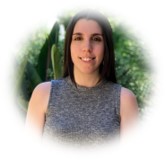 Beatriz Soriano presented SAMBA (Scanning Aquaculture Microbiome via Bayesian Approach), an application based on Bayesian networks intended to predict changes in the composition and function of mucosal microbiome in farmed fish, correlating microbial architectures with a number of biotic and abiotic factors. SAMBA also permits to interrogate the model to identify which experimental conditions are optimal for obtaining a given pan-microbiome and associated metagenome. This application will be implemented to be accessible as a web server at this site.
Beatriz Soriano presented SAMBA (Scanning Aquaculture Microbiome via Bayesian Approach), an application based on Bayesian networks intended to predict changes in the composition and function of mucosal microbiome in farmed fish, correlating microbial architectures with a number of biotic and abiotic factors. SAMBA also permits to interrogate the model to identify which experimental conditions are optimal for obtaining a given pan-microbiome and associated metagenome. This application will be implemented to be accessible as a web server at this site.
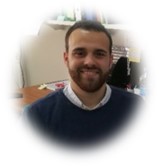 Fernando Naya-Català talked about the interaction of the genetic background and dietary intervention through feed additives, driving reshaping of gut microbiome in gilthead sea bream. Experimental diets oil-coated with organic acids, Bacillus-species probiotics or natural plant extracts were tested in fish selected and unselected for growth. It was demonstrated that genetics and diet interaction on gut microbiota was specific for each additive, being gut microbiota less variable in selected fish.
Fernando Naya-Català talked about the interaction of the genetic background and dietary intervention through feed additives, driving reshaping of gut microbiome in gilthead sea bream. Experimental diets oil-coated with organic acids, Bacillus-species probiotics or natural plant extracts were tested in fish selected and unselected for growth. It was demonstrated that genetics and diet interaction on gut microbiota was specific for each additive, being gut microbiota less variable in selected fish.
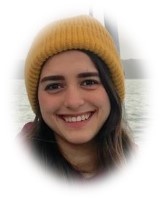 Socorro Toxqui Rodríguez showed the validation of Oxford Nanopore minION technology as a fast and low-cost tool for the profiling of mucosal sea bream microbiota. This technology was compared with 16S amplicon data generated by other established techniques such as MiSeq and PacBio. Her presented results provided precise insights into the advantages and disadvantages of this specific sequencing platform, and their suitability depending on the experimental approach, expected output, and cost and time constraints of a given experiment.
Socorro Toxqui Rodríguez showed the validation of Oxford Nanopore minION technology as a fast and low-cost tool for the profiling of mucosal sea bream microbiota. This technology was compared with 16S amplicon data generated by other established techniques such as MiSeq and PacBio. Her presented results provided precise insights into the advantages and disadvantages of this specific sequencing platform, and their suitability depending on the experimental approach, expected output, and cost and time constraints of a given experiment.
Gut microbiota and host transcriptome interaction for adaptation of fish to fish meal-free diets2022-05-27
Researchers of IATS Nutrigenomics and Fish Pathology groups, in collaboration with enterprises Sparos (Portugal) and Adisseo (Portugal) have recently reported in Aquaculture the notable results achieved in terms of growth and sanitary status of gilthead sea bream fed fish meal devoid diets, based on principles of circularity and resource utilization in the framework of EU GAIN project.
The new diet formulation was able to support optimal growth, and the suspceptibility to experimental infection with the intestinal myxozoan parasite Enteromyxum leei was not altered by diet. The fish adapted to this new diet formulation through changes in gene expression and gut bacterial composition. Moreover, it was shown that intestinal microbiota and host gene expression were correlated, evidencing that they can interact not only locally but also at a systemic level.
This work remarks the contribution of GAIN-derived feed formulations to sustainable aquaculture. The aquaculture-related site mispeces.com has published a press note (in spanish).
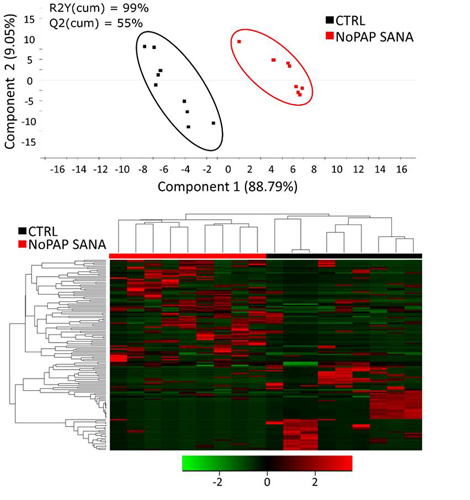
Aquaculture Europe magazine2022-03-25
Following the last European Aquaculture Society (EAS) talk webinar, highlights from gut microbiota work conducted in gilthead sea bream and European sea bass in the AquaIMPACT project are available as the feature article of the March 2022 issue of Aquaculture Europe magazine. The magazine pdf can be downloaded by EAS members.
AquaIMPACT EASTalk webinar: Fish and gut microbiota dialogue (UPDATE: video available)2022-03-16
The European Aquaculture Society (EAS) has held a new webinar of its EASTalk series with focus on the studies of the European AquaIMPACT project adressing the close talk of fish and their gut microbiota.
AquaIMPACT integrates information on fish breeding and nutrition, and one of the aims of the project is to use gut microbiota composition and activity as a reliable criterion to evalute the AquaIMPACT solutions to produce healthier and more nutritious fish.
The Webinar has been organized in three 10-15 min talks, followed by a quite active Q&A session with Prof. Ariadna Sitjà-Bobadilla from the Institute of Aquaculture Torre de la Sal (IATS-CSIC) as moderator. Prof. Jaume Pérez-Sanchez and Dr Carla Piazzon from Nutrigenomics and Fish Pathology Groups (IATS-CSIC), together with Dr Simona Rimoldi from the University of Insubria participated as panellists.
The session had a high number of registered attendants (more than 360), and a video with the entire webinar is now available here and in the EAS Youtube channel.
Approval of "PERTE Agroalimentario" Project2022-03-02
Government of Spain approves the "PERTE Agroalimentario" Project, which will generate hopefully up to 16,000 jobs, 5,400 in the Valencian Community.
The presentation ceremony of the PERTE Agro Valencian Project was held at the Palau de la Generalitat las March 1st, and it was attended by the President of the Generalitat and the Counselor of Agriculture, Rural Development, Climate Emergency and Ecological Transition.
The event was also attended by the Autonomous Secretary of Universities and Research, the General Director of Science and Research and the Valencian Coordinators of the R&D&I PROGRAMS IN MARINE SCIENCES AND AGRI-FOOD in the Framework of the Complementary Plans of the Recovery, Transformation and Resilience Plan.
GAIN project milestones in Aquafeed magazine2022-02-07
The first 2022 issue of Aquafeed magazine is focused in the most remarkable advances in alternative ingredients for cultured fish, an includes a technical paper (pages 37-39) summarizing the main outcomes of European GAIN Project on the use of eco-efficient aquafeeds using emergent ingrediente. It focuses on trials conducted in salmon, gilthead sea bream, rainbow trout and turbot. Giltheam sea bream results are derived of the participation of IATS Nutrigenomics and Fish Pathology groups in the Project. Aquafeed can be consulted here, and the technical paper is available here.
OFERTA DE EMPLEO JUAN DE LA CIERVA FORMACIÓN (plazo hasta 3 Febrero)2022-01-25
El grupo de Nutrigenómica y Endocrinología del Crecimiento de Peces del Instituto de Acuicultura Torre de la Sal (IATS-CSIC), liderado por el Profesor Jaume Pérez Sánchez, busca candidatos para solicitar un contrato Juan de la Cierva-Formación 2021. El trabajo tiene como finalidad el estudio del epigenoma de la dorada y su regulación por factores nutricionales y ambientales en un contexto de cambio climático. Este trabajo se realizará dentro de un proyecto del Programa Next Generation (ThinkinAzul/AquaCHANGE (GVA-THINKINAZUL/2021/024) y de otros proyectos europeos (AQAIMPACT, AQUAEXCEL3.0) y nacionales.
El grupo de Nutrigenómica del IATS centra su actividad en el estudio de la regulación del crecimiento de peces, la interacción nutrición-genoma, alimentos funcionales y nuevos ingredientes de piensos mediante el empleo metodologías omicas (transcriptómica, epigenómica, proteómica, metabolómica, metagenómica) y de monitorización del ambiente y del comportamiento mediante el empleo de biosensores desarrollados en el proyecto AQUAEXCEL2020 (https://vimeo.com/325943543), con la dorada como especie modelo de acuicultura. Entre otras herramientas in silico, el grupo dispone de una completa base de datos nucleotídica del transcriptoma y del genoma de la dorada. El grupo está actualmente constituido por dos investigadores en plantilla, dos predoctorales y dos técnicos de laboratorio.
Los candidatos deben haber defendido su Tesis Doctoral entre el 1 de enero de 2020 y el 31 de diciembre de 2021, y cumplir con los requisitos de la convocatoria. Se buscan candidatos motivados por la investigación y con alto nivel de inglés. Se valorará la experiencia previa en biología molecular, conocimientos de bioinformática y manejo de animales de experimentación. Interesados ponerse en contacto con el Profesor Jaume Pérez Sánchez (jaime.perez.sanchez@csic.es) incluyendo CV y hasta dos cartas de referencia. El plazo para presentar solicitudes al MICIN termina el 03 de febrero de 2022 a las 14:00 horas.
IATS coordinates the R+D+i Plan ThinkInAzul and leads 5 projects2021-12-20
Professor Jaume Pérez, from the Instituto de Acuicultura Torre de la Sal Nutrigenomics Group coordinates, together with Carlos Valle from University of Alicante, ThinkInAzul in the Valencian Community.
This Complementary R+D+i Plan of the Spain Ministry of Science and Innovation is dedicated to excellence and multidisciplinary research in marine sciences. In this Plan, with a global budget of 50 million euros, the Valencian Community participates together with Andalusia, Cantabria, Galicia and Murcia Region.
The AQUAChange Subproject of Generalitat Valenciana with a budget of 10 million euros (40% financed by Generalitat Valenciana) integrates 38 projects, 5 of which are led by IATS research groups.
More information at the CSIC Delegation in the Valencian Community.
Gut microbiome as an important tool for the evaluation of cultured fish performance2021-12-16
The study of the composition of the gilthead sea bream gut microbiome is becoming a relevant item in the “omics” technological offer of IATS Nutrigenomics and Fish Pathology groups. Along 2021, this tool has been of importance to assess the effects of probiotics, feed additives and alternative protein sources in aquaculture feeds. This has resulted in four Open Access publications (1, 2, 3, 4) in the framework of European (GAIN, AQUAEXCEL2020) and national (BreamAquaINTECH) projects. These notable results have been highlighted in a CSIC Valencia delegation press release.
ThinkInAzul Project (Spain "Plan de Recuperación, Transformación y Resiliencia")2021-11-10
Generalitat Valenciana "Conselleria de Innovación" and Spain Government "Ministerio de Ciencia e Innovación" will co-finance an excellence and multidisciplinary research project in Marine Sciences -ThinkInAzul- to mitigate the effects of climate change on the conservation of the marine environment and aquaculture production.
The Project will start in January 2022 and Institute of Aquaculture Torre de la Sal (Jaume Pérez Sánchez) and University of Alicante (Carlos Valle Pérez) will coordinate it in the Valencian Autonomy.
The global financing of the Project is € 50M.
The financing of the Valencian Subproject (AQUAChange) is € 10M.
More information (Ministerio de Ciencia e Innovación)
More information (Conselleria de Innovación)
EAS 2021 Congress at Madeira2021-10-15
Researchers of IATS Nutrigenomics and Fish Pathology groups have attended at the EAS 2021 Congress (October 4-7 at Madeira, Portugal), the first face-to-face aquaculture conference since the start of the pandemic. A total of 9 oral presentations, 1 poster and a session moderation have been contributed. All abstracts can be consulted on the Aquaculture Europe web, using “Nutrigenomics” or “Fish Pathology” as keywords.
CSIC: 70 years of marine research2021-10-02
A commemoration of the 70th anniversary of the creation of the Institute for Fisheries Research (IIP) was held October 1st at the Institut de Ciències del Mar in Barcelona. IIP was the first CSIC center created for marine research and it spawned six research centers currently operating in Spain, including IATS-CSIC. Researchers from IATS Pathology and Nutrigenomics groups, Ariadna Sitjà and Jaume Pérez attended this event and participated in the round tables (past, present and future of fisheries, marine resources and aquaculture, data collection and use, ocean communication and culture) that were held with the participation of researchers from the centers derived from IIP.
Participation at GAIN Workshop “Novel aquafeeds”2021-09-23
Researchers of IATS Nutrigroup and Fish pathology group have participated in the “Novel aquafeeds” Workshop (21-22 September, online), organized by GAIN H2020 project with support from H2020 projects PerformFISH, AquaIMPACT, MEDAID, AQUAVITAE and NewTechAqua, as well as Italian project SUSHIN. The workshop was intended to present and discuss novel fish feeds that support eco-intensification of the European aquaculture industry.
Prof Jaume Pérez from IATS Nutrigroup shared with the audience the results of feeding trials in gilthead sea bream with sustainable GAIN feed formulations in the “Alternative fish feed formulation” session. Transcriptome and microbiome data highlighted how these diets, mainly those based in processed animal protein, supported optimum growth and immune response, contributing to sustainable aquaculture. Workshop session “Novel tools to assess feed performance” had two IATS contributions: Dr Carla Piazzon from Fish Pathology group talked about fish gut microbiome analysis, how it is affected by genetic background, diet, age or season, and the occurrence of a plastic microbiota adaptable to diet changes as a result of fish selection for heritable growth; and Jaume Pérez defined the potential of AEFishBIT sensor device for fish behaviour monitoring and its contribution to refine nutrient requirements and feeding schedules for more robust and sustainable fish.
Nutrigroup at the 13 AIEC Congress2021-09-17
The 13 Congress of the Iberian Association of Comparative Endocrinology (AIEC) has been held 16-17 September in virtual format organized by CCMAR. IATS Nutrigroup has participated with two oral communications. Fernando Naya-Català highlighted the developmental and hypoxic Gh/Igf system programming in gilthead sea bream. And Paul Holhorea showed how the sex population ratio in cultured gilthead sea bream can be regulated by the nutritional and genetic background, and serves as a welfare indicator alerting of disturbance conditions altering reproductive performance and perhaps overall growth and offspring quality. Group works were funded supported by National (Bream-AquaINTECH) and European (PerformFISH) projects.
Next AIEC meeting will be, hopefully in person, in Bilbao in September 2023.
Hypoxia and exercise performance in fish2021-05-19
Researchers from the Nutrigroup of IATS-CSIC have targeted the mild-hypoxia driving force for metabolic and muscle transcriptional reprogramming of gilthead sea bream juveniles, focusing on blood metabolic landmarks and muscle transcriptomics before and after exhaustive exercise. These results after mild-hypoxia conditioning highlighted an increased contribution of lipid metabolism to whole energy supply to preserve the aerobic energy production, a better swimming performance regardless of changes in feed intake, as well as reduced protein turnover and improved anaerobic fitness with the restoration of normoxia.
The results of this work, funded by National (BreamAquaINTECH; RTI2018–094128-B-I00) and European AQUAEXCEL2020 (Aquaculture infrastructures for excellence in European fish research towards 2020; 652831) Projects, have been published in the special issue Transcriptome and Genome Analyses Applied to Aquaculture Research of the open-access Journal Biology (link).
For more information, visit CSIC Comunidad Valenciana delegation webpage.
Myths and Truths about Aquaculture2021-04-20
IATS researchers Ariadna Sitjà (Fish Pathology Group) and Jaume Pérez (Nutrigenomics Group) have published a popular article on aquaculture in the recent special issue Immersion in the Oceans of the magazine MUY Interesante.
Insect larvae meal as a sustainable feed ingredient in aquaculture 2021-04-15
A recent collaboration between IATS Nutrigenomics group and CIIMAR from Porto University (Portugal) has highlighted the feasibility of high replacement of fish meal in aquaculture diets with insect-derived meal.
The effect of fish meal replacement by defatted mealworm (Tenebrio molitor) larvae meal in European sea bass aquafeeds was tested, evidencing that it was possible to replace up to 80% of fish meal by insect meal without impairing growth performance, nutrients digestibility and fillet quality.
These results are of special importance for the growing need of environmentally sustainable alternatives to fish meal in aquaculture.
The work has been partly funded by a transnational access (TNA) of H2020 project AQUAEXCEL2020 at IATS infrastructures. It was selected as a relevant output in the Info Day of EATiP at Aquaculture Europe 2019 in Berlin, and it has been recently published in the Open Access journal Frontiers in Physiology.
AQUAEXCEL3.0 has now officially launched!2020-12-28
AQUAEXCEL3.0 aims to further boost the European aquaculture sector by, amongst others, expanding the Transnational Access programme to support even more external research teams collaborating with its high-quality facilities, providing free training courses on the latest topics and engaging closely with industry to ensure research is aligned with industry needs.
Read more....

Genetics shape microbial makeup in gilthead sea bream2020-12-04
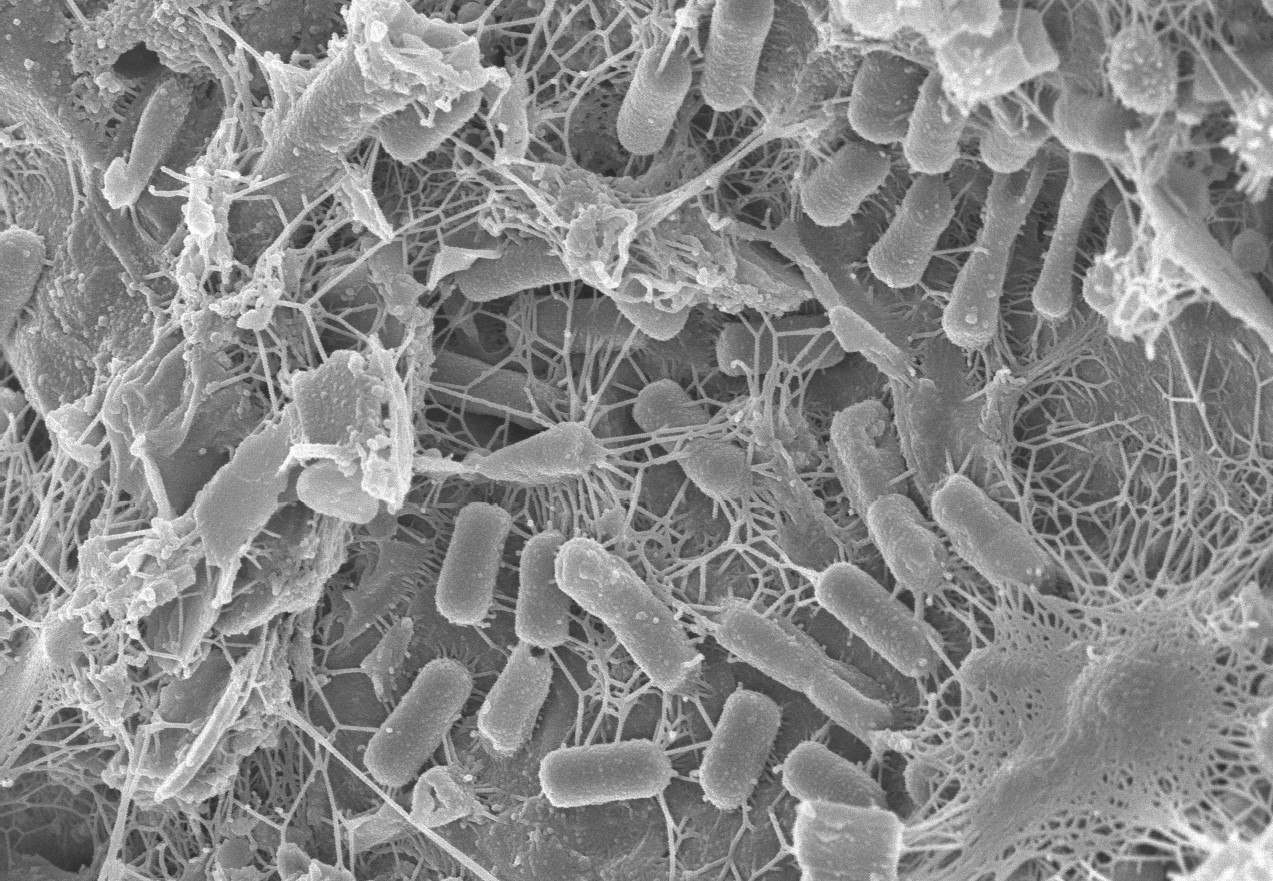 A recent study by the Nutrigenomics and the Fish Pathology groups of IATS has highlighted the genome-metagenome interaction in gilthead sea bream.
A recent study by the Nutrigenomics and the Fish Pathology groups of IATS has highlighted the genome-metagenome interaction in gilthead sea bream.
Fish families selected for fast growth exhibited a more flexible intestinal microbiota composition upon dietary changes than slow growth families. Fast growth animals also showed a better ability to cope with intestinal infections.
The results are relevant for the formulation of new sustainable aquafeeds and genetic selection programs in aquaculture.
This work, supported by H2020 project AquaIMPACT, Spanish project Bream-AquaINTECH, and PROGENSA III from JACUMAR program, has been published in the Open Access journal Microbiome.
For more information, visit the CSIC Delegation webpage.
Welcome Paul!2020-11-06
Paul George Holhorea joined the Nutrigenomics and Fish Endocrinology Group.
He is a Marine Biologist contracted within the EU PerformFISH project.
Paul will conduct studies of fish behaviour and welfare using conventional stress markers and small smart biosensors.
He will be also in charge of the animal experimentation conducted in the fish research facilities of Nutrigenomics Group at IATS.
Nutrigenomics and Pathology groups of IATS at the University of Las Palmas 2020-07-26
Researchers of Nutrigenomics and Fish Pathology groups of Institute of Aquaculture Torre de la Sal (IATS-CSIC) performed the second programmed sampling through the production cycle of sea bream to assess the differential effects of new diet formulations on the composition of gut microbiota of fish select for heritable growth.
The study is conducted within the framework of the AquaIMPACT H2020 EU project, using diets formulated by Skretting and fish from the PROGENSA selection program that are grow-out at the experimental facilities of Ecoaqua at the University of Las Palmas de Gran Canaria (ULPGC).
The expect impact are new insights in the regulation and plasticity of fish gut microbiota with local and systemic effects on a wide-range of biological processes.
All the operations are made following the contingency plan of COVID19.
Paula Simó-Mirabet doctorates2020-06-13
Paula has presented by video-conference during the Covid confinement her PhD Thesis at the Autonomous University of Barcelona. The study entitled "MOLECULAR AND FUNCTIONAL ANALYSIS OF SIRTUINS AS METABOLIC MARKERS IN SEABREAM was conducted at the Institute of Aquaculture Torre de la Sal (IATS) with Dr. Jaume Pérez-Sánchez (Nutrigenómics and Fish Endocrinology group) as PhD Director.
Congratulations Paula!
Paula has actively participated in National (Mi2-Fish, Progensa III) and European projects (ARRAINA, PerformFish). Paula also collaborated with the IATS Pathology group, and she is co-author of more than 20 peer-reviewed articles. She has more than 10 contributions in International Congress of Fish Nutrition, Physiology and Endocrinology.
Good luck!
The success story of AQUAEXCEL2020 at 20192020-05-22
The Institute of Aquaculture has participated actively on AQUAEXCEL2020 at 2019.
Researchers of Fish Pathology and Nutrigenomics groups participated on two face to face training courses: Planning and conducting experimental infection trials in fish & Fish nutrition and feeding
Four out of seven Project catalogues presented in the Info Day of EATiP of EAS Berlin 2019 were from IATS-CSIC.
The eighth AQUAEXCEL2020 newsletter has been released. It includes the Transnational Access (TNA) Success Stories section, with a focus on the productive TNA project Disrupting effects of plasticizers in sea bream conducted at IATS-CSIC.
CSIC published four AQUAEXCEL2020 articles of high Scientific impact on 2019:
Pérez-Sánchez et al.,2019. Frontiers in Marine Science 6: 760
Peixoto et al., 2019. Scientific Reports 9: 16134
Forner-Piquer et al., International Journal of Molecular Sciences 20:5003
Sitjà-Bobadilla et al., 2019. Parasites & Vectors 12:486.
Epigenetic regulation of sirt1 in gilthead sea bream2020-05-15
Researchers from the Nutrigroup of IATS-CSIC have described the gene organization of the seven gilthead sea bream sirtuins, a family of proteins considered as master regulators of energy metabolism from bacteria to higher vertebrates. The study evidences the tissue-specific regulation of each sirtuin with the contribution of epigenetic mechanisms in the regulation of sirt-1 at the level of skeletal muscle.
The results of this work, funded by National (BreamAquaINTECH; RTI2018–094128-B-I00) and European (PerformFISH; H2020-SFS-2016-2017, 727610) Projects, have been published in the Open-access Journal Frontiers in Zoology (link).
Broodstock nutrition can shape scd1a gene expression in the gilthead sea bream offspring2020-05-01
Researchers from the Nutrigroup of IATS-CSIC and IU-ECOAQUA of Las Palmas de Gran Canaria University have evaluated the effects of linolenic acid (ALA) broodstock nutrition in the offspring of gilthead sea bream. The study revealed the epigenetic regulation of Δ9 fatty acid desaturase (scd1a), involving changes in the DNA-methylation of scd1a promoter close to SP1 and HNF4α binding sites.
The phenotypic output is a reduced offspring scd1a expression, limiting the lipogenic activity and the risk of hepatic steatosis with a reduced supply of n-3 LC-PUFA.
The results of this work, funded by EU Project PerformFISH (Integrating Innovative Approaches for Competitive and Sustainable Performance across the Mediterranean Aquaculture Value Chain; H2020-SFS-2016-2017, 727610), have been published in Epigenetics (link).
AQUAEXCEL2020 TNA stay2019-12-23
PhD student Federico Moroni, from the Department of Biotechnologies and Life Science of University of Insubria (Italy) has completed an AQUAEXCEL2020 TNA stay with IATS-Nutrigroup.
The LABFORTIFEEDBREAM TNA is aimed to assess the beneficial effects of feeds fortification with lactic acid bacteria on the growth and intestinal health of cultured gilthead sea bream. Effects on growth and performance will be complemented with transcriptomic analysis of key genes of growth and metabolism, as well as intestinal microbiome characterization. Results will be useful to evaluate the use of lactic acid bacterial not only in gilthead sea bream but also in other marine fish species.
POSTDOCTORAL CONTRACT JUAN DE LA CIERVA-FORMACIÓN 2019-12-21
We are looking for candidates to request a Juan de la Cierva formación contract (see bases here) to develop a scientific career within the Nutrigenomics and Fish Growth Endocrinology Group (www.nutrigroup-iats.org) led by Dr. Jaume Pérez Sánchez at the Institute of Aquaculture Torre la Sal (IATS- CSIC). The work will be conducted within the framework of National and H2020 EU Projects (PerformFISH AquaIMPACT, AQUAEXCEL3) to characterize phenotypically and functionally the interaction of farmed fish with its environment, using new biotechnological and genomic tools. The expected outcome is to produce more robust and efficient fish by means of integrative approaches based on the use of new few additives, strict criteria of welfare, genetic selection and nutritional/environmental programming.
The candidates should have defended their thesis between January 1st 2018 and the 31st December 2019.
Experience in nutrition, physiology, molecular biology and bioinformatics will be valued.
Interested candidates contact Dr. Jaume Pérez-Sánchez (jaime.perez.sanchez@csic.es) before the 5 January 2020 including a CV and up to 2 reference letters.
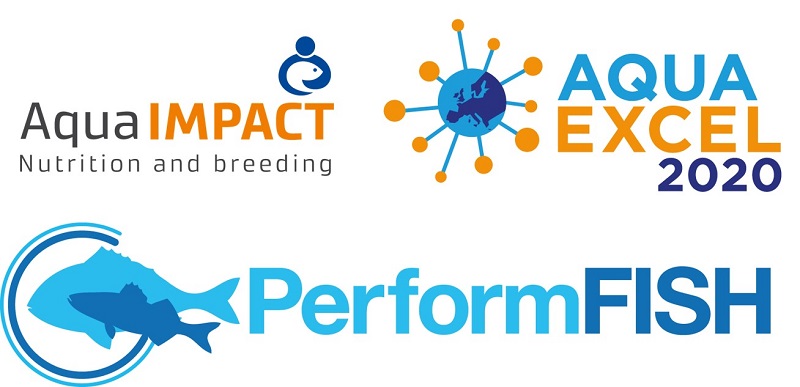
IATS-CSIC researchers sequence the gilthead sea bream genome2019-12-20
This species shows several genetic duplications, which could explain its high plasticity and adaptation capacity under different farming conditions.
The findings of the study will be applied in genetic selection and environmental programming in order to improve the fish quality.
For more information, visit CSIC webpage.
The article has been published in Frontiers in Marine Science.
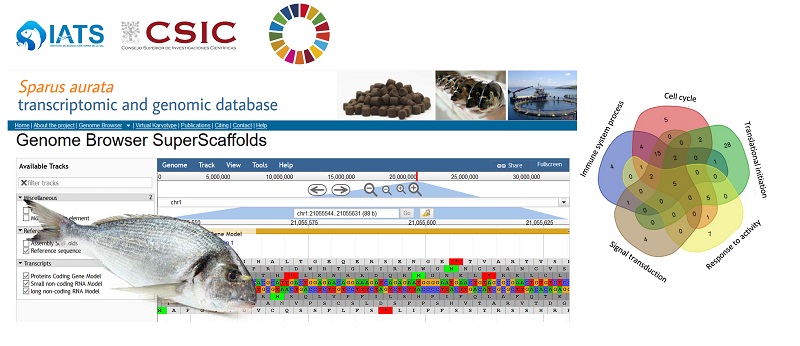
Nutrigenomics group at IFREMER-Palavas2019-11-25
Researchers of Nutrigenomics group of IATS sampled sea bream juveniles selected for fast feed conversion ratio in the Aquaculture Infrastructure of IFREMER-Palavas (Montpellier, France) by the group of Genetics in Aquaculture of Dr. Marc Vandeputte.
The study conducted within the framework of PerformFish EU Project aimed to assess the liver and muscle gene expression profiling of selected markers of growth, lipid metabolism and mitochondria function and activity in fish having different conversion ratios.
Additionally, fish selected for high and low feed conversion were monitored for respiratory frequency and physical activity using the AE-FishBIT biosensor developed within the Aquaexcel2020 project.
The expected outcome is to provide new insights in fish behaviour and energy metabolism for a more efficient and ethical fish farming production.
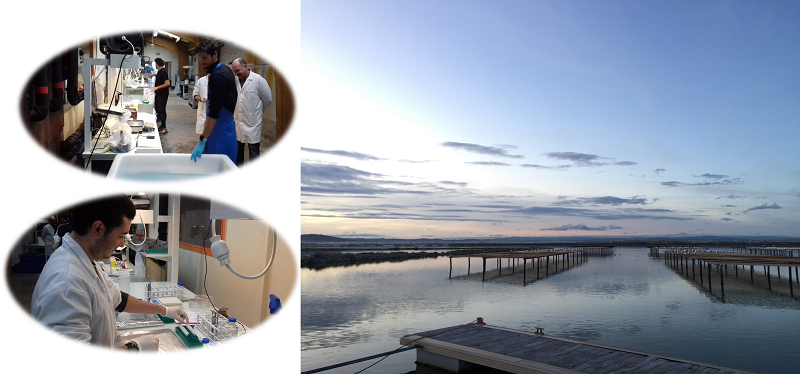
FISH NUTRITION TRAINING COURSE2019-11-22
Prof. Jaume Pérez Sánchez from the Instituto de Acuicultura Torre de la Sal (IATS-CSIC) participates in the training course of Fish Nutrition organized in Saint Pée sur Nivelle.
He presented ongoing research in sea bream nutrition and genetic selection for reliable healthy phenotypes of farmed fish under intensive and sustainable production.
Such approaches are based on the use of wide range of omic technologies and new biosensor tools for the individual and non-invasive monitoring of farmed fish from cells to individuals as a whole.
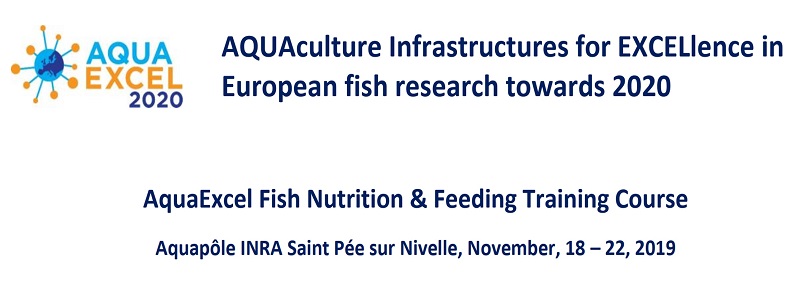
Serum metabolome markers of intestinal parasitic infection in gilthead sea bream2019-11-21
Researchers of IATS-CSIC Nutrigenomics group and Fish Pathology group, in collaboration with Universitat Jaume I, Universidad de Cadiz and Portuguese Algarve University, have recently reported the effect of the myxozoan parasite Enteromyxum leei on gilthead sea bream gut integrity and permeability.
The response to an experimental infection with E. leei was studied by means of immunocytochemistry, electrophysiology, metabolomics and intestinal permeability analysis techniques.
This work provides the first functional evidence of the degradation of intestinal integrity caused by this parasite. Differences in serum metabolome in infected fish has highlighted valuable information about markers of parasite infection. In this regard, serum levels of creatine and inosine become excellent markers for discriminating infected and non-infected fish.
This work, which constitutes and important advance on the physiopathology of enteritis, and opens the possibility to new palliative procedures, has been funded by National and European (AQUAEXCEL2020 and ParaFishControl) Projects, and has been recently published in the Open Access journal Parasites & Vectors.

Photomicrographs of gilthead sea bream sections of anterior intestine immunolabelled (brownish colour) with antibodies against claudin 3 (CLDN3), tight junction protein 1 (TJP1) and E-cadherin (CDH1). For each intestinal segment, the upper panel corresponds to control healthy fish and the lower panel to Enteromyxum leei-parasitized fish. Arrowheads point to some labelled parasitic stages, and arrows to some of the positive immunostaining of control fish.
Protective effects of seaweed supplementation in European sea bass diets2019-11-14
Researchers of CIIMAR (Centro Interdisciplinar De Investigação Marinha e Ambiental, Portugal), ALGAPLUS Lda (Ílhavo, Portugal) and IATS Nutrigenomics group have reported the positive effects of 5% dietary supplementation of an aqueous extract of the seaweed Gracilaria sp on sea bass antioxidant capacity and resistance against a bacterial infection.
The study revealed that fish fed the Gracilaria extract showed a delay in mortality after infection with Photobacterium damselae. This beneficial effect was supported by plasma biochemical analysis, liver enzymatic assays and tissue gene expression data that pointed out an up-regulation of immune and antioxidant related pathways in fish fed the dietary supplement.
This work was partially funded by the IMPROV-SEABASS Transnational Access of AQUAEXCEL2020 project at IATS-CSIC facilities.
This study has been published in the Open Access journal Scientific Reports.
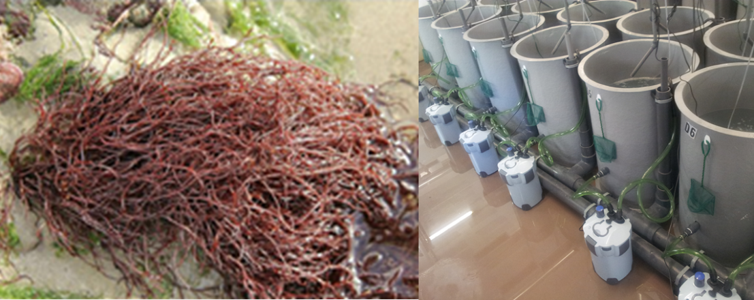
Closing lecture of Aquaculture Master by Jaume Pérez-Sánchez2019-11-12
Prof. Jaume Pérez Sánchez, from Instituto de Acuicultura Torre de la Sal (IATS-CSIC), gave the closing lecture of the Official Interuniversity (UAB-UB-UPC) Aquaculture Master , entitled “Nutrition and genetic selection. New tools and perspectives”.
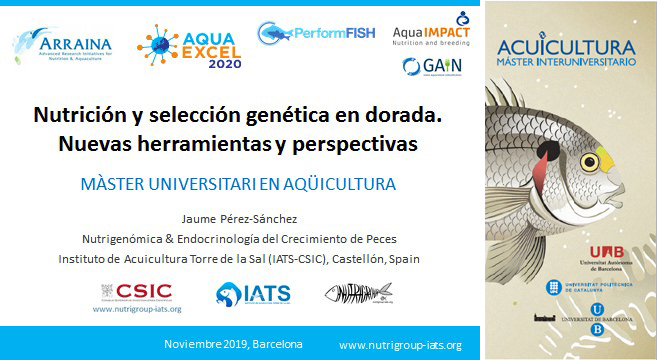
Fourth annual meeting of AQUAEXCEL2020: Advances on AEFishBIT2019-11-07
Researchers of IATS Nutrigenomics group participated in the fourth annual meeting of AQUAEXCEL2020 that took place from 29 to 31 October in Las Palmas de Gran Canaria (Spain).
Professor Jaume Pérez-Sánchez, as leader of WP8 "Biosensors for remote fish monitoring" presented the main recent advances conducted in the validation of AEFishBIT device in marine fish species (gilthead sea bream and European sea bass) under different challenge scenarios.
In the WP8 session, researchers from CSIC (Manuel Lozano, IMB-CNM) and University of Las Palmas de Gran Canaria (Miguel Ángel Ferrer, iDeTIC) provided novel insights in operculum and tail movements and informed about the audit of the energetic efficiency of AEFishBIT.
The energy evaluation will be conducted at Tyndall National Institute (Cork, Ireland) in the framework of a Transnational Access (TNA) within the EnABLES European Project. The goal of this TNA is to determine AEFishBIT power consumption and consider design improvements in order to extend the battery life.
Forthcoming tests in rainbow trout and Atlantic salmon were also discussed to complete the functional validation of the biosensor in a wide range of farmed fish.
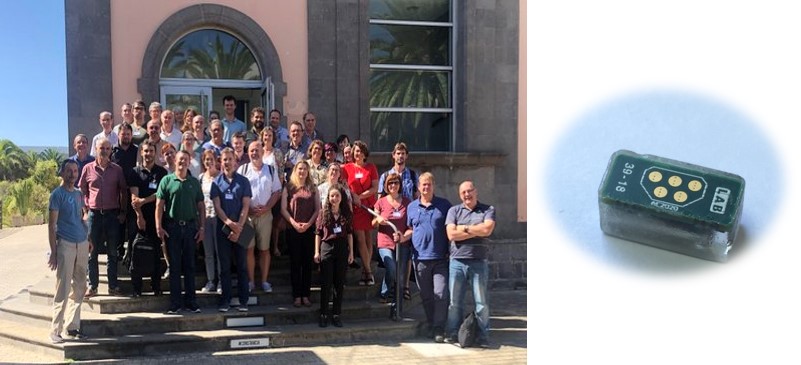
IATS-Nutrigroup and Fish Pathology groups at AQUAEXCEL2020 Brokerage Event2019-10-25
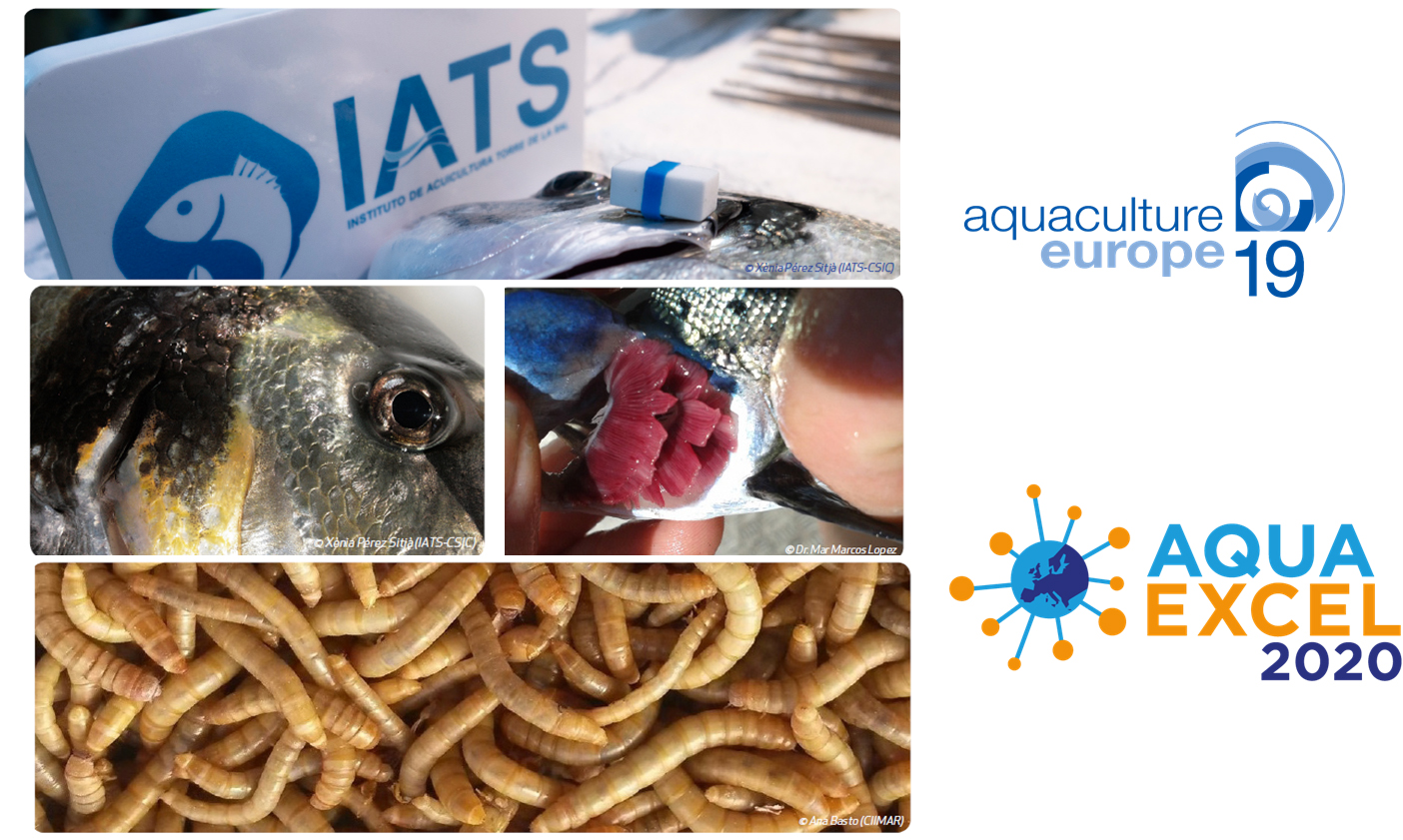
The second AQUAEXCEL2020 brokerage event was celebrated at Aquaculture Europe 2019 in Berlin, as part of the EATiP Day (October 9th). This event provides an excellent opportunity to share with aquaculture industry stakeholders some of the many innovative outputs emerging from research within the AQUAEXCEL2020 project and through its Transnational Access (TNA) programme. The seven presented outputs had been selected by the AQUAEXCEL2020 Industry and Research Advisory Panel (IRAP) comprising professionals from the aquaculture industry and research sectors. Four of these outputs were derived from IATS-Nutrigroup and Pathology groups research and hosted TNAs.
Project Catalogues are available for download:
Defatted yellow mealworm larvae meal
Early life management protocol
PhD student Ana Basto (CIIMAR) discussed outcomes of research from IATS-EXP TNA project INSECTFISH, focused on European sea bass feeding with mealworm Tenebrio molitor meal. The principal aim of this research was to assess the use of large quantities of insects as protein sources to replace fishmeal in diets for sea bass, and to examine possible effects on their growth and welfare. Dr. Josep Calduch-Giner presented a protocol for early life management for optimal fish performance, highlighting surprising findings in relation to low O2 (hypoxic) conditions at early life stages of gilthead sea bream and its impact later in life. In terms of fish disease, Dr. Carla Piazzon presented on gene expression analysis of Atlantic salmon gills, derived from IATS-ANA TNA project AGDBIOMAR, and how it reveals certain key molecules during amoebic gill disease, one of the main health challenges for the marine Atlantic salmon industry worldwide. It is expected that the findings could contribute to a more timely and accurate detection of the disease which will prevent stock losses and improve fish welfare. Results of this work were recently published in an Open Access publication.
In addition to the knowledge outputs, Professor Jaume Pérez-Sánchez, as AQUAEXCEL2020 WP8 leader, presented the AEFishBIT device to the audience, with a video and an exposition of latest results and applications of this patented biosensor in sea bream and sea bass. This tiny device is designed to be attached to the operculum of farmed fish for individual monitoring of their metabolic traits. The newly patented tool is the result of collaboration amongst biologists, engineers and bioinformaticians from two AQUAEXCEL2020 institutes.
After the event presentations, interactive polls with audience overall revealed a major interest in most of the presented outputs. The next and final AQUAEXCEL2020 industry brokerage event will be held at next year’s Aquaculture Europe 2020 event in Cork (Ireland), presenting the latest high-potential industry-relevant outputs that will be resulting from the final year of the project.
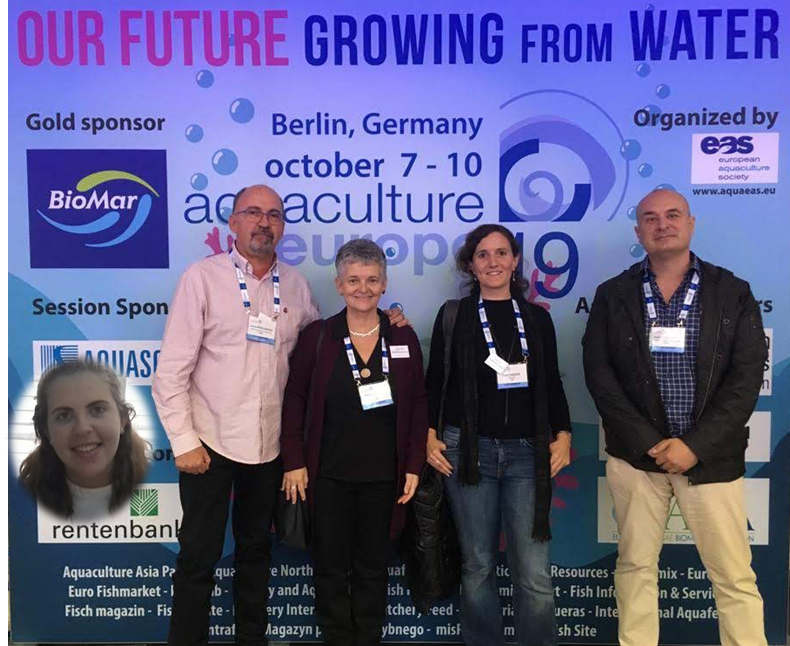
Nutrigroup at XII AIEC Congress: fish biosensing2019-10-01
The interest in the patented AE-FishBIT device continues to grow. Nutrigroup member Kike Rosell-Moll presented a poster in the XII Congress of Asociación Ibérica de Endocrinología Comparada (AIEC, 26-28 September, Faro, Portugal). After the first published work presenting this promising biosensing device for tracking fish behavior, this poster assessed the lack of negative impact of AE-FishBIT attachment to fish operculum, as well as analyzed the measured device response in free-swimming fish against changing biotic (biological age) and abiotic (oxygen level, available tank space, parasitic infection) factors. Congratulations to Kike for this work, that is available online, has been awarded with one Best Poster prize in this Congress.
Nutrigroup at XII AIEC Congress: gilthead sea bream genome2019-10-01
The XII Congress of Asociación Ibérica de Endocrinología Comparada (AIEC), held 26-28 September at Faro, Portugal, has been quite productive and successful for Nutrigroup rookies. Fernando Naya-Català was honored with one prize for Best Oral Communication for the presentation about the sequencing of the genome of gilthead sea bream and the adaptation insights derived of the large genome size and the high level of gene duplications observed in this plastic species.
This prized work has been recently uploaded to bioRxiv and it is expected to be published soon in a ranked scientific journal.
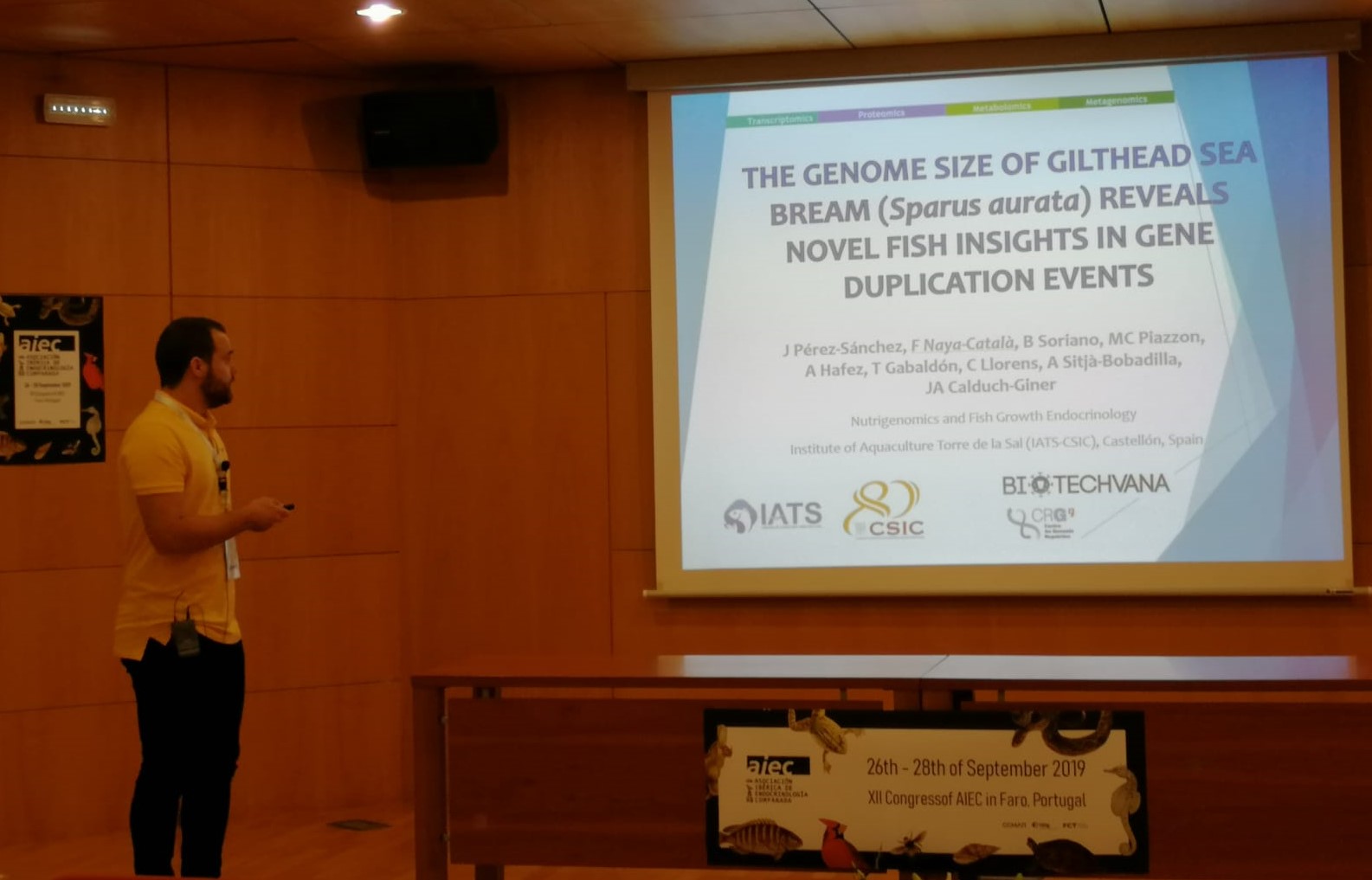
Sea bream resilience to moderate hypoxia and high stocking density2019-08-02
Researchers of IATS Nutrigenomics and Fish Growth Endocrinology Group have assessed the re-adjustment of tissue metabolic and transcriptomic profile of gilthead sea bream exposed to two different levels of oxygen concentration (normoxia and moderate hypoxia) and stocking densities (9.5 and 19 kg/m3).
Integrated data on blood haematology, biochemistry and hormonal profiling evidenced that reduced oxygen availability induced a hypo-metabolic state with lower feed intake and growth rates, although it was accompanied by a more efficient energy metabolism. Transcriptional results also supported these findings, and the tissue-specific orchestration of stress response reflected the different metabolic capacities of targeted tissues (liver ≥ heart > skeletal muscle > blood). Knowledge on this global but also differential tissue-orchestration to reach the homeostatic load of fish is of special importance to warrant fish welfare during intensive farming conditions.
The results have been published in the Open-access Journal Frontiers in Physiology (link).
RED FRIDAY!2019-06-07
Synchronicity happens!
Unvoluntary coincidence has led these pretty Nutrigroup-Pathology specimens to display their beauty wrapped in nice pink to red robes today.
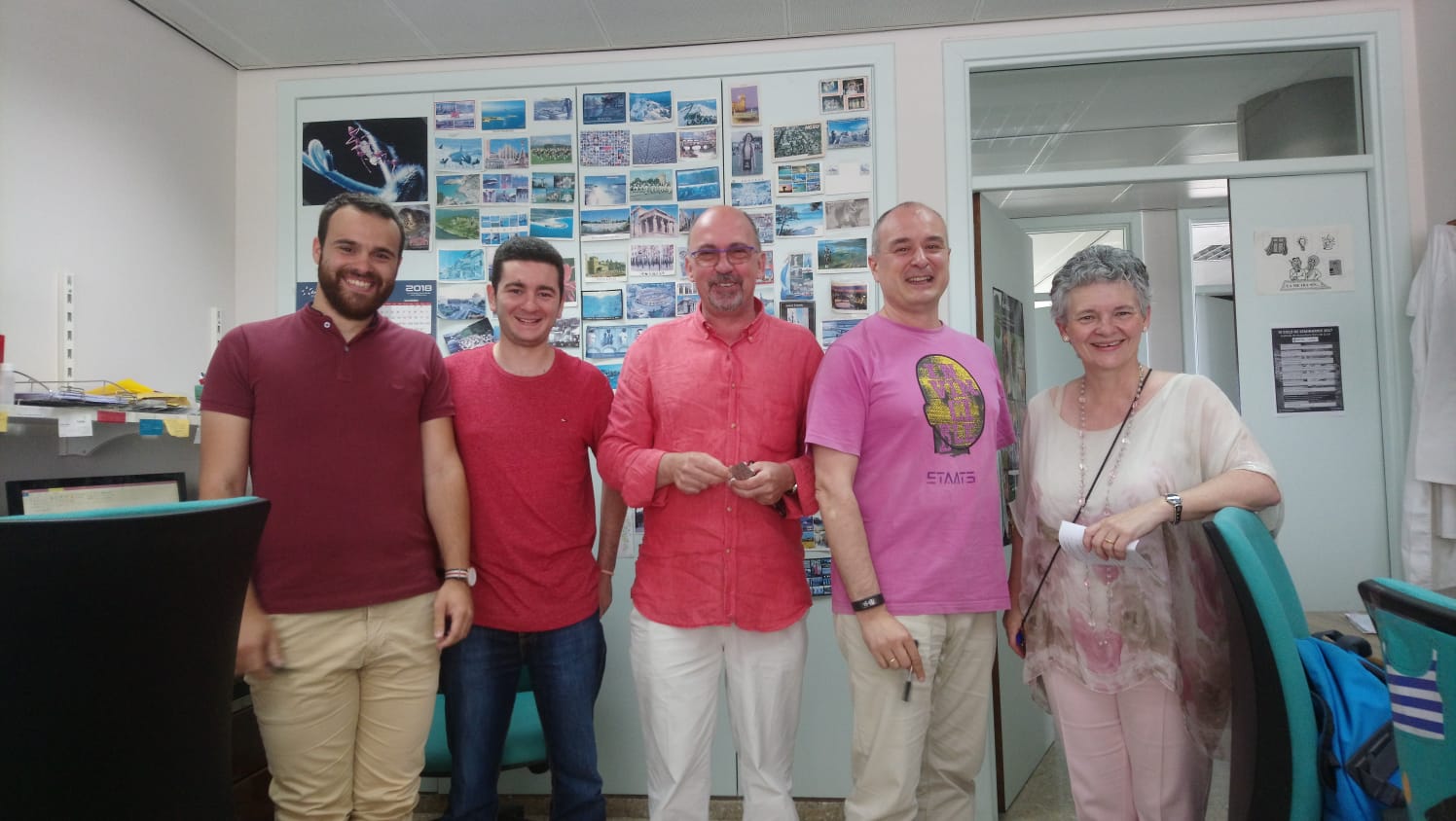
University of Havana annual award to scientific work2019-05-30
A work led by Dr. Erick Perera, researcher of the Nutrigenomics and Fish Growth Endocrinology Group at the Institute of Aquaculture Torre de la Sal (IATS-CSIC) and the Full Professor of Zoology Dr. Juan Miguel Mancera of the University of Cadiz (UCA), and authored by Dr. Leandro Rodríguez from the University of Havana, Cuba, obtained the Annual Award of UH 2019. The Award was granted by the Chancellor of the UH and the President of the Cuban Academy of Science.
The results of this work were published in different scientific publication and led to four theses, including a PhD thesis co-directed by E. Perera (IATS-CSIC) and J.M. Mancera (UCA). The relevant participation of researchers from the Center for Drug Research and Development in Cuba and the Andalusian Institute of Marine Science (ICMAN-CSIC) made this work and example of fruitful international and multidisciplinary collaboration.
Link:
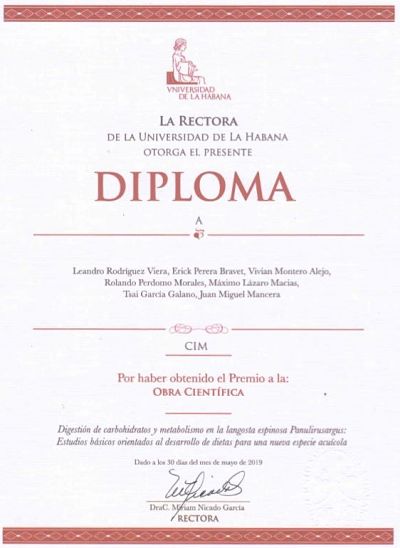
AEFishBIT: Smart device for tracking fish behaviour2019-05-29
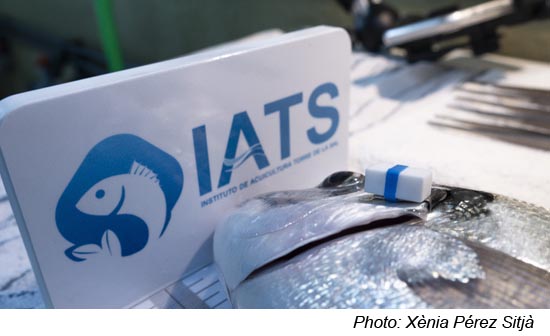
Researchers from CSIC and University of Las Palmas de Gran Canaria reported the design and functional validation of AEFishBIT in the Open Access journal Frontiers in Physiology.
CSIC Communication Office has reported a press release about this important technological advance for the individual monitoring of farmed fish.
Studies conducted with AEFishBIT at the Institute of Aquaculture Torre de la Sal (IATS-CSIC) highlights how patterns of diurnal/nocturnal activity are altered by age, photoperiod, tank dimensions or progression of infective diseases.
AEFishBIT is also able to discriminate reactive and proactive fish when animals are challenged with low oxygen concentrations. Current experiments are focused on the effects of functional feeds in fish behaviour and its synchronizing with the environment.
Main outcome: new tool for selective breeding and assessment of fish welfare.
Links:
AEFishBit from Aquaexcel2020 on Vimeo.
Welcome back, Paula2019-05-27
Paula Simó-Mirabet has been contracted in order to continue her work about sirtuins and its role as energy biosensors in the Nutrigenomics group of IATS. These works will be framed under PerformFISH EU project.
Good luck, Paula!
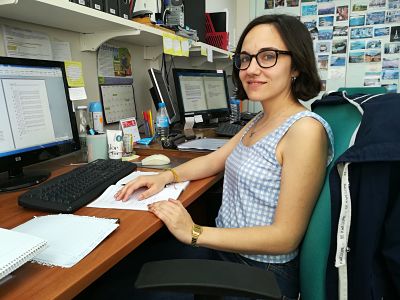
GAIN: zero waste2019-05-10
Professor Jaume Pérez-Sánchez has attended the first Annual meeting of the GAIN (Green Aquaculture Intensification in Europe) H2020 European Project as a research leader of IATS-CSIC. The meeting was held in May 7th-8th at the Alfred Wegener Institute Helmholtz Centre for Polar and Marine Research (AWI) in Bremerhaven (Deustchland).
GAIN partners discussed about the results obtained during the first year of the project and planned the next steps. More than 40 people from 11 countries working together, to find answers and solutions for the environmental impact of aquaculture intensification.
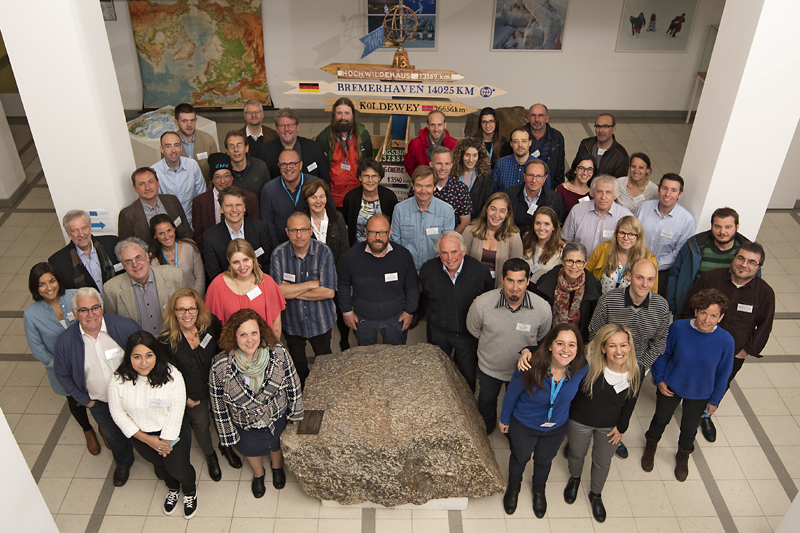
Transcriptomic response to gill parasites2019-04-03
Researchers from IATS Fish Pathology & Nutrigenomics and Fish Growth Endocrinology groups have studied the transcriptomic response of gilthead sea bream to gill parasite Sparicotyle chrysophrii. The Institute of Oceanography and Fisheries (Croatia) and enterprises Future Genomics Technologies (Netherlands) and Biotechvana S. L. (Spain) also participated in this study.
The results of this work, that will help to develop new treatments against these parasite, have been published in the Open Access journal BMC Genomics 20:200 (2019).
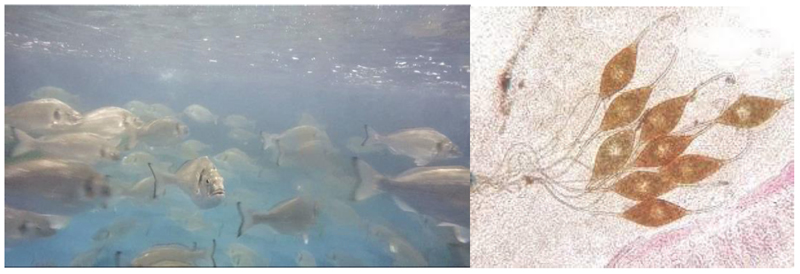
Welcome back Nando2019-03-01
Fernando Naya-Català extends his contract with the Nutrigenomics Group. He is a bioinformatician that will participate in the sea bream genome project and in the data processing of metagenome and transcriptome of challenged Mediterranean farmed fish.
The work will be framed under different H2020 EU projects:
AQUAEXCEL2020, PerformFISH and AquaIMPACT.
Good luck again, Nando!
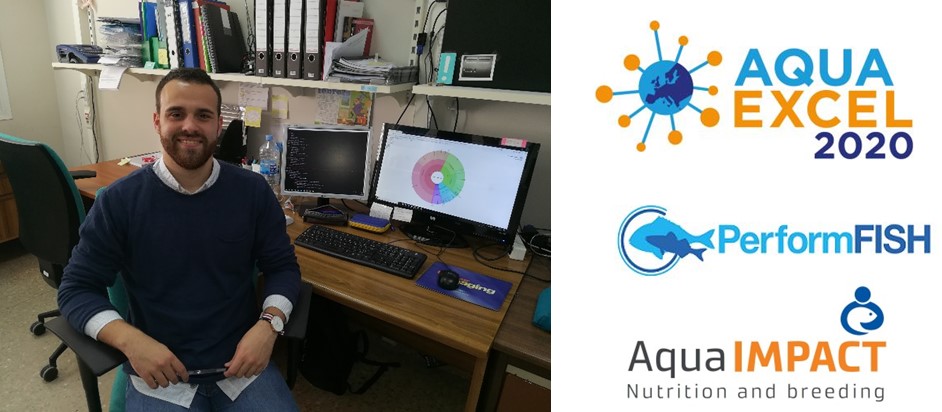
AquaIMPACT, Kickoff meeting2019-02-17
The AquaIMPACT kickoff meeting was held in Helsinki.
The road map for the next 4 years has been established.
The role of the Nutrigenomics group of IATS-CSIC is to determine how intestinal microbiota and epigenetic marks od lipid and energy metabolism are regulated by nutrition and genetic background. The generated knoweledge can contribute to develop a more sustaible and efficient sea bream aquaculture production.
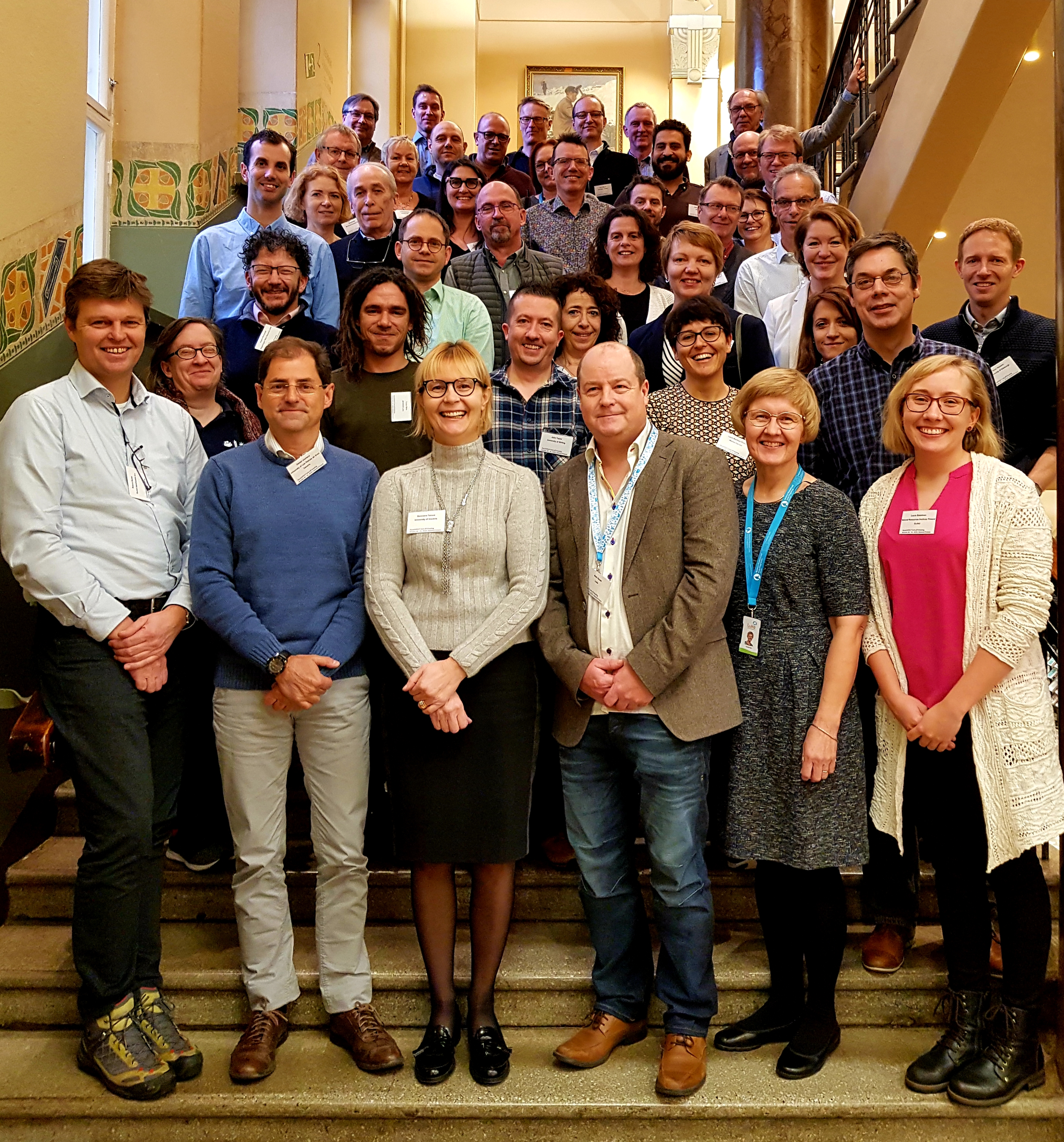
Welcome Kike!2019-01-15
Enrique Rosell-Moll joined the Nutrigenomics Group.
He is a Marine Biologist contracted within the EU AQUAEXCEL2020 project for the remote and non-invasive monitoring of fish behavior and swimming performance by means of the recently developed FishBIT biosensor.
The generated knowledge will contribute to select and produce more robust fish for fish farming.
Good luck, Kike!
Ruben Gil doctorates2018-12-14
Rubén Gil has successfully presented his PhD Thesis at UJI Centro de Postgrau i Consell Social. The work was entitled "Untargeted metabolomic methodologies development based on ultra high performance liquid chromatography coupled to high resolution mass spectrometry in food safety, healthcare and nutrition fields", and was co-directed by Juan Vicente Sancho (IUPA, UJI) and Jaume Pérez (Nutrigenómica, IATS). Congratulations, Rubén!
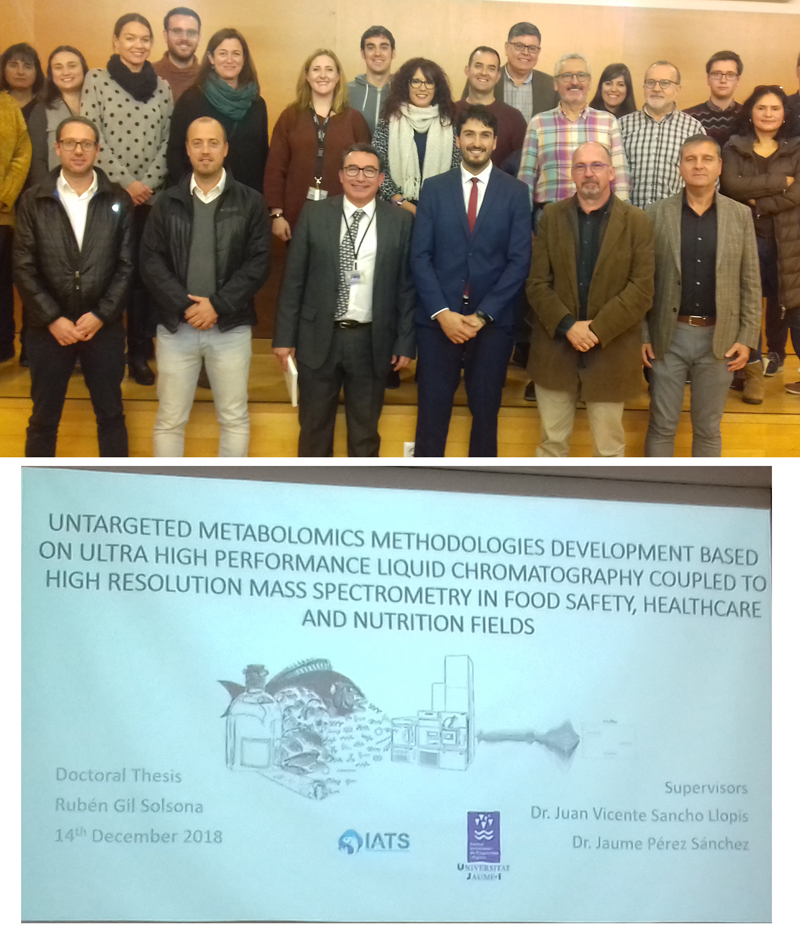
AquaIMPACT: Towards fish microbiome and epigenome in a new H2020 Project2018-11-30
AquaIMPACT (2019-2022)- Genomic and nutritional innovations for genetically superior farmed fish to improve efficiency in European aquaculture- is an Innovative Action funded under Horizon 2020. The Project (6.1 M€) is a major effort to integrate the fields of fish breeding and nutrition to increase the competiveness of EU's aquaculture.
AquaIMPACT is coordinated by Dr Antti Kause from Natural Resources Institute of Finland with the participation of 22 companies and research institutions from 9 EU countries.
CSIC participation in AquaIMPACT is led by Prof Jaume Pérez-Sánchez from the IATS Nutrigenomics group. The main IATS-CSIC goal in the Project is to determine how the intestinal microbial community is modulated by feed additives and genotype x nutrition interactions. Secondly, we aim to determine how nutritional programming is mediated by changes in specific epigenetic marks (DNA methylation patterns).
The third secondment of Lourenço Ramos Pinto2018-11-28
Three is better than two
The PhD student Lourenço Ramos Pinto from the Group of Fish Nutrition and Immunobiology of CIIMAR (University of Porto) and SPAROS Lda. (Algarve, Portugal) is conducting a third secondment with the Nutrigenomics and Fish Growth Endocrinology Group (Institute of Aquaculture Torre la Sal, IATS-CSIC) within the framework of the ALISSA (Healthy and sustainable feeds for fish reared in aquaculture) project
Over his stage the evaluation of the effects of dietary histidine, threonine or taurine supplementation on gilthead seabream health status fed a plant-based diet is being analysed, using the seabream PCR-array platform of Nutrigenomics group. This includes data processing and multivariate analysis of the effect of AA supplementation on the molecular signatures of tissue-specific markers
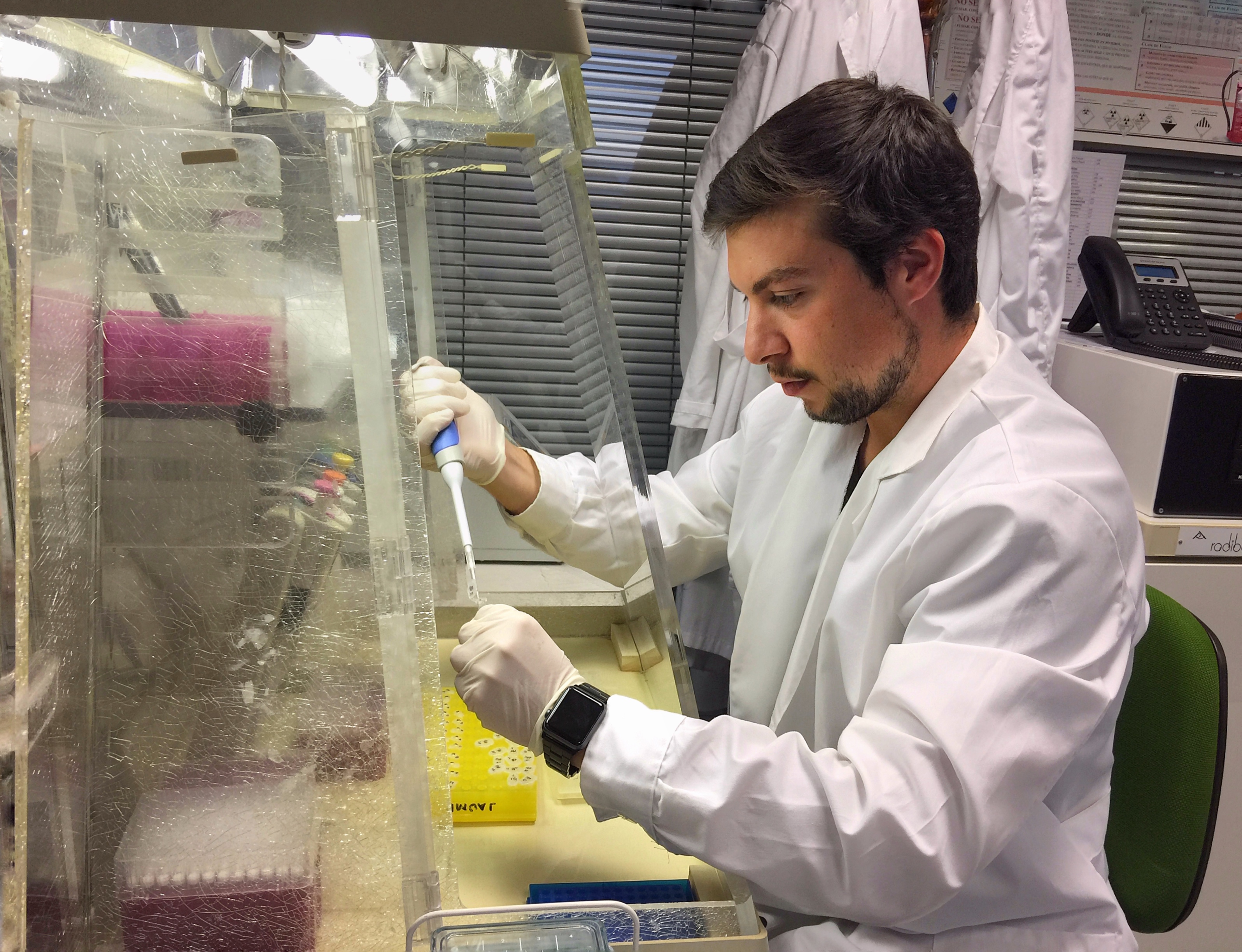
AQUAEXCEL2020 IN ENVIGUARD WORKSHOP2018-11-22
The EnviGuard Workshop has been celebrated in Madrid at the Technical School of Industrial Engineers of the Polytechnic University.
The workshop addressed the technological evolution of EnviGuard, the development of multiplexed biosensors for the simultaneous detection of toxins and PCBS in marine waters and a panel of related European projects of H2020.
Main progress so far on the design, development and testing of AQUAEXCEL2020 biosensors (AE-FishBIT) for monitoring the respiratory frequency and physical activity of farmed fish has been presented by the WP leader- Dr. Jaume Pérez-Sánchez.
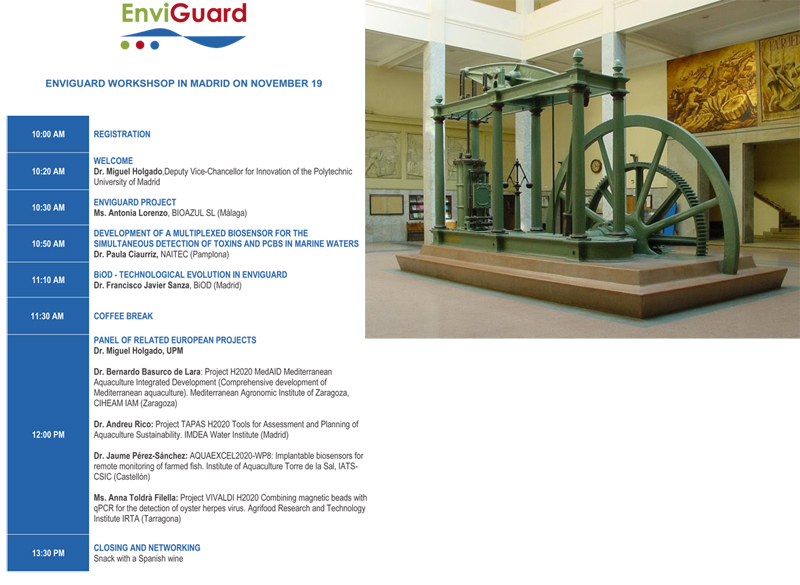
AQUAEXCEL2020 TNA stay2018-11-08
PhD student Ana Basto, from the Nutrition, Growth and Quality of Fish Research Group of CIIMAR (Centro Interdisciplinar De Investigação Marinha E Ambiental, Portugal) has stayed with the IATS-Nutrigroup by an AQUAEXCEL2020 TNA stay during October-November.
The INSECTFISH TNA is aimed to assess the use of insect larvae as protein sources to replace fishmeal in diets for European sea bass. A growth challenge has been conducted with diets with different inclusion levels of insect meal in their composition. Effects on growth and perfomance will be complemented with transcriptomic analysis of key genes of growth and metabolism.
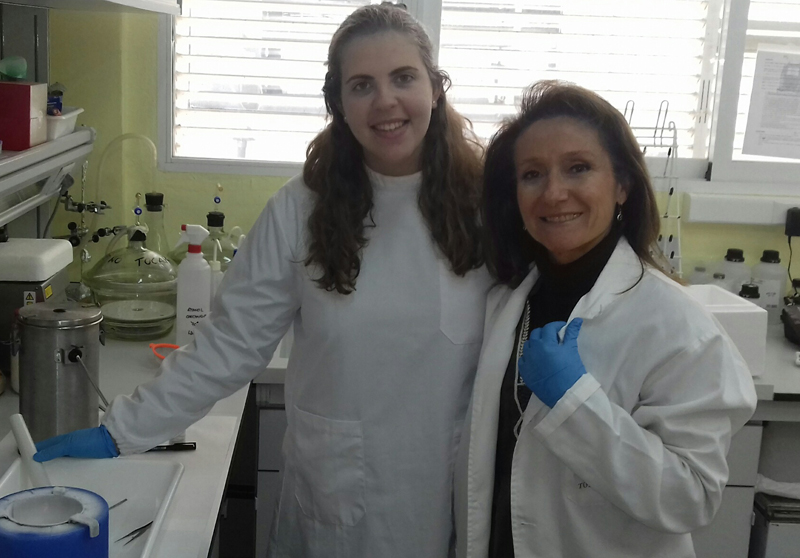
Third annual meeting of AQUAEXCEL20202018-10-06
Researchers of CSIC have participated in the third annual meeting of AQUAEXCEL2020
The meeting, hosted by IEO Murcia, was held in Cartagena (Spain)
The contribution of CSIC, led by the Institute of Aquaculture Torre de la Sal, has been especially relevant in the WP of biosensors for remote and non-invasive fish monitoring of gill breathing and physical activity-WP8
WP8 is led by CSIC (through the IATS and CNM-Barcelona) and ULPGC with participation of 8 partners (CSIC, ULPGC, CCMAR, INRA, WU, NOFIMA, IMR, DTU) from six countries (Spain, Portugal, France, The Netherlands, Norway, Denmark) with both biological and technological skills
MAIN ACHIEVEMENTS SO FAR
- A FIRST PROTOTYPE (AE2020-FishBIT v-1s) of reduced size for initial testing in sea bream and sea bass has been produced
- IMPROVED PACKAGING and production is underway for extended periods of data recording (from days to weeks)
- ALGORITHMS FOR x, y, z DATA PROCESSING have been calibrated with raw data from fish challenged in SWIMMING TEST CHAMBERS
- THE AUTONOMY OF THE SYSTEM with the algorithm on board is increased up to 6 h of continuous data recording with different schedules

PROGENSA Meeting, El Toruño-IFAPA2018-10-06
Researchers of the Institute of Aquaculture Torre la Sal (through Nutrigenomics and Fish Pathology Groups) have participated in the second meeting of the PROGENSAIII project (JACUMAR program) coordinated by ULPGC
The meeting, hosted by IFAPA-El Toruño, was organized by REMA-APROMAR for the knowledge transfer to the aquaculture sector (fish farmers and breeders) of main progress in sea bream genetics
CSIC has been focused on the effects of nutrition and genome interactions on fish performance and diseases progression in fish challenged with a myxozoan parasite (E. leei)
MAIN RESULT ACHIEVEMENTS
- Low fish meal and fish oil diets (< 10%) do not limit growth of fish with a different genetic background
- The intestine of fish selected for fast growth have a higher potential for an efficient digestion and absorption of nutrients
- The intestine is confirmed as a main target tissue for selective fish breeding in a scenario of reduced availability of marine feed ingredients
- Selection for fast growth is often related to a lower anaerobic capacity in challenged fish
- Selection for fast growth does not compromise fish health in a model of parasite enteritis
Juan Antonio Martos stay2018-09-11
Dr Juan Antonio Martos-Sitcha (Biology Department, Cádiz University) has finished a 3 months stay (June-September 2018) with the Nutrigenomics group at IATS. During this stay, he has assessed in swim tests metabolic chambers (Loligo Systems) the metabolic performance of different sea bream families selected and non-selected for fast growth within the PROGENSA Project (Jacumar). He has also conducted validation tests of the AE-FishBit, developed within the framework of AQUAEXCEL2020 EU Project, for remote and non-invasive fish monitoring of gill breathing and acceleration activities in rearing tanks (https://aquaexcel2020.eu/media-centre/media).
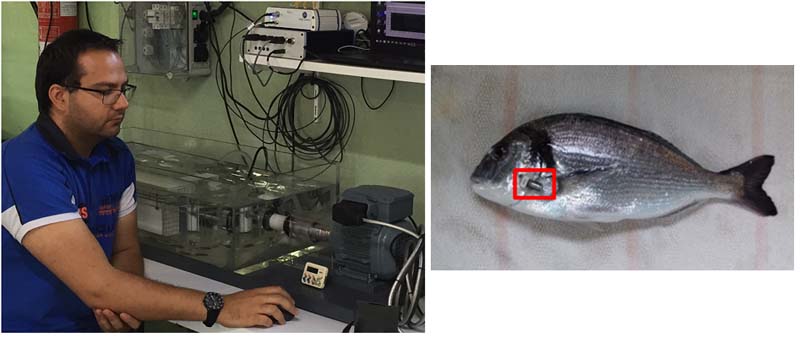
Nutrigroup at 29h CECE Congress in Glasgow2018-09-06
Prof. Jaume Pérez-Sánchez was invited to present a State-of-the-Art lecture of GH/IGF axis in fish during the 29th Conference of European Comparative Endocrinologists (CECE2018), held at Glasgow on August 18-22
Session: Modulation of the Endocrine System: Effects on Metabolism and Growth
Chairs: Dr Encarnación Capilla, Spain and Dr Oliana Carnevali, Italy
Updates on the Cross Talk Between Growth, Nutrients and Endocrine/Environmental Factors in Marine Farmed Fish
Professor Jaume Pérez-Sánchez, CSIC, Spain

New Open Access publication2018-08-06
A new collaboration between Fish Pathology and Nutrigenomics and Fish Growth Endocrinology groups of IATS has resulted in an Open Access publication in Parasites & Vectors about gilthead sea bream immune respose facing the parasite Enteromyxum leei (Open Access text).
Thanks KIKE!2018-08-02
Enrique Rosell (Kike),student from the UPV-UV Aquaculture Master, has finished his two months (June-July 2018) Company practices stay within the Nutrigenomics group of IATS. He has participated in several ongoing experiences in the framework of National (PROGENSA III) and European (AQUAEXCEL2020) Projects.
These projects have a focus in issues related to the nutrition x genome interaction, as well as epigenetic effects on growth and metabolic robustness of cultured gilthead sea bream after exposure to low oxygen concentration during first developmental stages.
Kike has actively participated in biometry measurements, as well as biochemistry, histology, transcriptomics and metagenomics samplings.
Thanks a lot, Kike, Thank you OXY-MAN!
Nutritional regulation of Ghrelin and receptors in gilthead sea bream2018-07-30
The full nucleotide sequences of preproghrelin and the two receptors ghsr1a and ghsr1b have been characterized in gilthead sea bream by means of our transcriptomic and genomic database. The nutritional regulation of the expression of these important components of the somatotropic axis has been the topic of a work that has been published in Frontiers in Endocrinology (you can access here to the Open Access publication). This work is another result from the long and successful relationship of our Group with University of Barcelona.
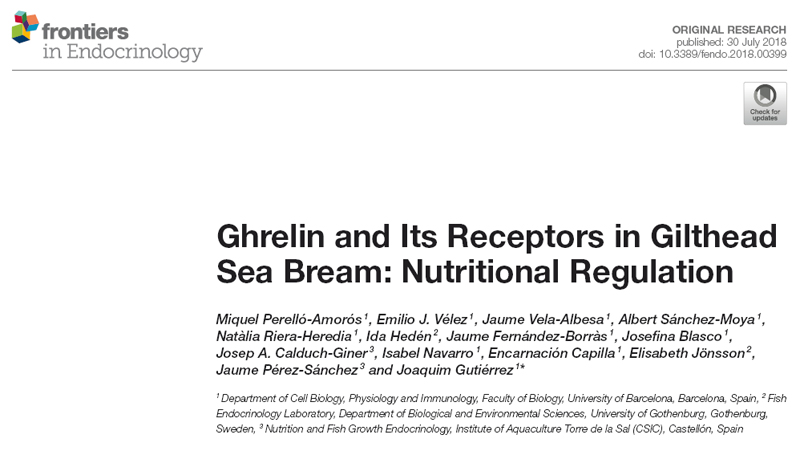
Aquaexcel2020: TNA success stories2018-07-06
The AQUAEXCEL2020 4th newsletter is now available to download from the AQUAEXCEL2020 website. The News and Highlights section features the importance of the IATS analytic platform, managed by the Nutrigenomics group, for the assessment of health and welfare of the main fish species of European aquaculture.
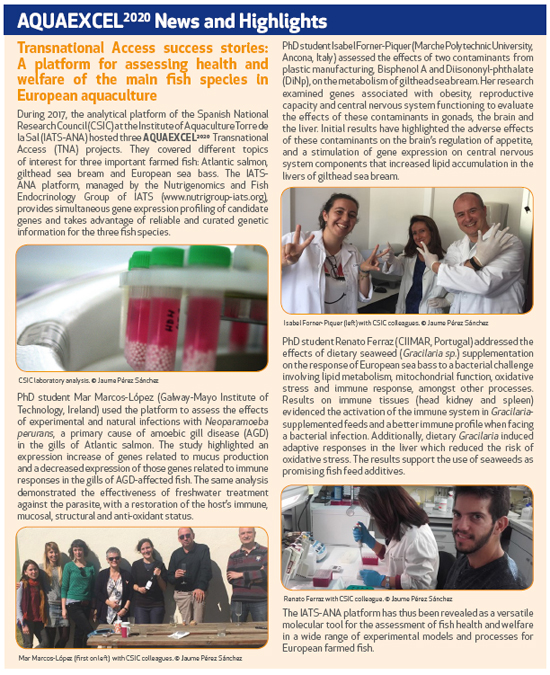
AQUAEXCEL2020 Transnational Access: High impact publication2018-06-22
A recent publication in Environment International highlights the negative effects of dietary exposure to two contaminants from plastic manufacturing, Bisphenol A and Diisononyl-phthalate (DiNp), on the metabolism of gilthead sea bream. This work results as a collaboration of researchers of University of Ancona (Italy), Hellenic Center for Marine Research (Greece), Consiglio Nazionalle delle Ricerche (Italy) and Nutrigenomics and Fish Growth Endocrinology Group from Institute of Aquaculture Torre de la Sal (IATS-CSIC).
The study is partially funded by an Transnational Access (TNA) of AQUAEXCEL2020 EU Project to Isabel Forner-Piquer and Oliana Carnevali for accessing to IATS-CSIC facilities.
FISH NUTRITION AND FEEDING2018-06-12
Lourenço Ramos Pinto (O): Dietary histidine, threonine and tryptophan inclusion in fishmeal-free diet for gilthead seabream (Sparus aurata) juveniles induces opposite effects depending on feeding time.
Paula Simó.-Mirabet (P): Hypomethylated CG islands of sirtuin promoters in gilthead seabream (Sparus aurata).
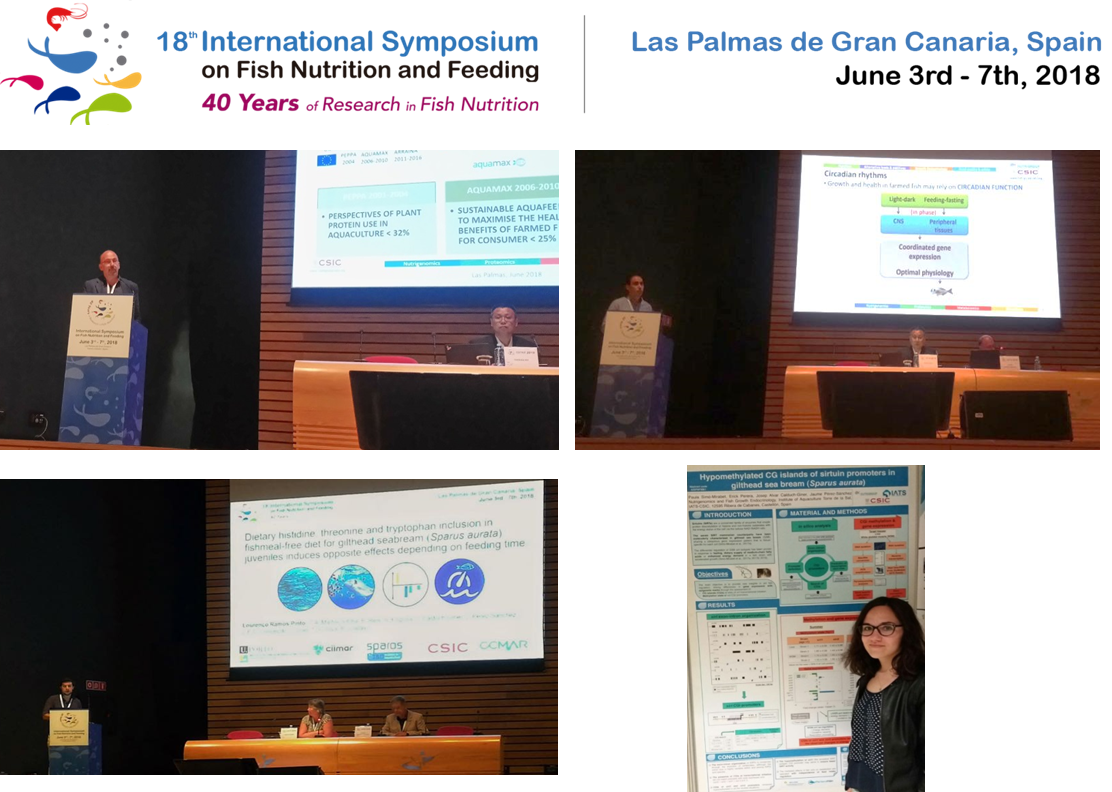
A new tool for reliable metabolic phenotyping of fish2018-06-05
Researchers from the Nutrigenomics and Fish Growth Endocrinology Group of the Institute of Aquaculture Torre de la Sal have evaluated the value of sirtuins (SIRTs), a family of proteins considered as master regulators of metabolism, for the metabolic phenotyping of the gilthead sea bream, a marine fish of high value for the Mediterranean aquaculture. The study showed that SIRTs may play different roles in the regulation of metabolism, inflammatory tone and growth in farmed fish. Also, the study revealed that the SIRTs profile allows the identification of individuals with metabolic features that lead to efficient and lean fish. This may be particularly useful in breeding programs for this species, by assisting gross measurements of visceral fat that are currently used to indirectly select efficient fish. The study has been published in Frontiers in Physiology and was founded by the projects MI2-Fish and PROMETEO FASE II, with additional support from PerformFISH-H2020.
Full reference: Paula Simó-Mirabet, Erick Perera, Josep Alvar Calduch-Giner, Juan Manuel Afonso, Jaume Pérez-Sánchez. Co-expression Analysis of Sirtuins and Related Metabolic Biomarkers in Juveniles of Gilthead Sea Bream (Sparus aurata) with Differences in Growth Performance. Front. Physiol. | doi: 10.3389/fphys.2018.00608.
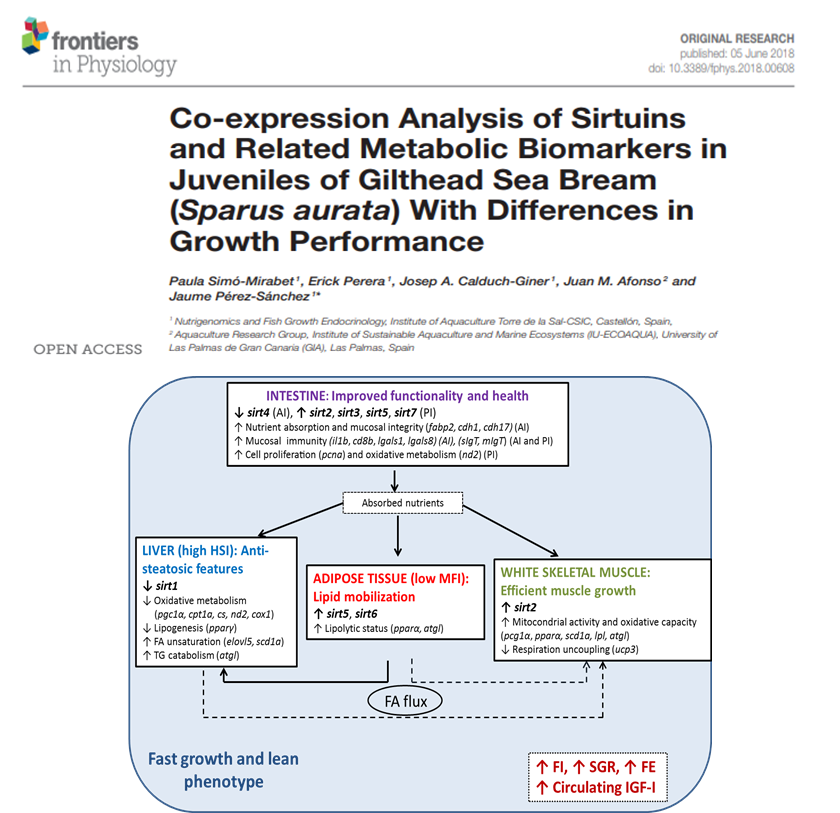
![]()
PERFORMFISH MEETING2018-05-31
Researchers of CSIC participate in the first anual meeting of PERFORMFISH EU-H2020 Project.
The meeting, hosted by ULPGC, was held in Las Palmas de Gran Canaria.


A new H2020 EU Project!!2018-05-13
Researchers of Fish Nutrigenomics and Fish Pathology Groups of the Institute of Aquaculture Torre la Sal (IATS-CSIC) together with researchers of the Institute of Marine Research of Vigo (IIM-CSIC) participate in the GAIN Project “Green Aquaculture Intensification in Europe”, 2018-2022
The Project with a total budget of 6 million euros is coordinated by the University of Venice.
The consortium is made by 21 parners, including SMEs, Universities and Research Institutes.
The main objectives of the project are:
i) Develop and optimize sustainable feeds, without increasing the pressure on land and fish stocks
ii) Add value to cultivation, by means of innovative processes, which turn both by-products and side-streams into valuable secondary materials, thus increasing profits and minimizing the environmental footprint
(iii) Improve the management of finfish and shellfish farms, in terms of FCR, fish welfare and reduction of wastes, through the use of sensors, biomarkers, Big Data, IoT (Internet of Things) and predictive mathematical models
iv) Support integrated policies and address current barriers to the implementation of the principles of circular economy in aquatic production.
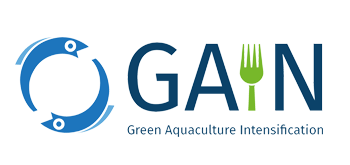
A NEW MEMBER OF THE GROUP2018-04-17
The Bioinformatician Fernando Naya has been incorporated in the Nutrigenonics Group of IATS.
He will be in charge of bio-informatic processing of data of massive gene expression analyses (RNA-seq) conducted in sea bream and sea bass within the framework of National and EU H2020 Projects.
He will also participate in the sea bream Genome Project of IATS-CSIC.
Welcome Nando!!
PhD student stay with Nutrigroup2018-02-26
The PhD student Miquel Perelló, from the Group of Regulation and Optimization of Fish Growth for Aquaculture (Dpt. Cell Biology, Physiology and Immunology at University of Barcelona), has concluded a three-weeks stage with the Nutrigenomics and Fish Growth Endocrinology Group within the framework of the project Crecedorada (AGL2015-70679-R). He has assessed the secretagogue effect of different amino acids on in vivo and in vitro GH and IGF-I synthesis and release. This is another example of the nice collaboration of our group with the University of Barcelona.
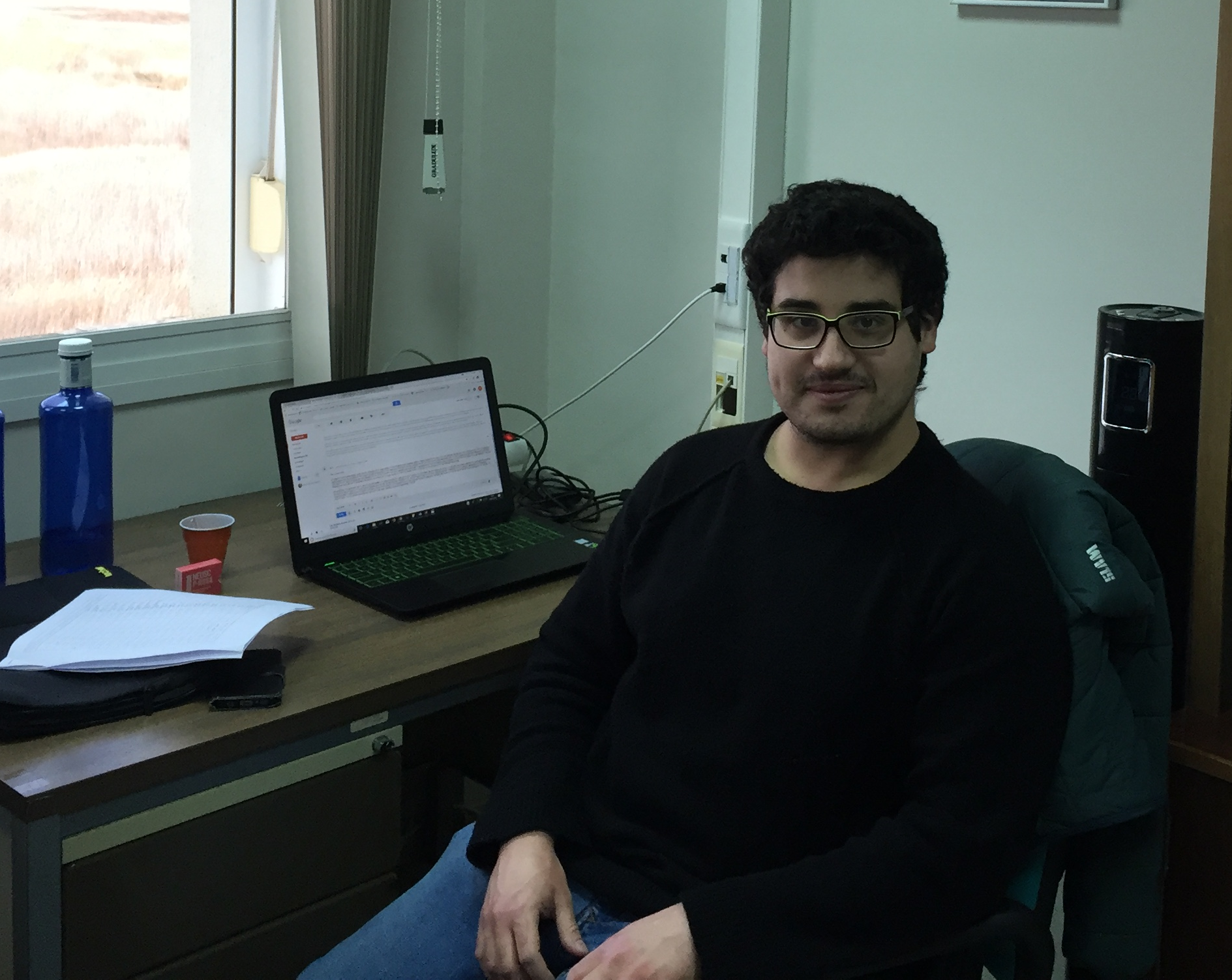
Diet additive improves intestinal health in gilthead sea bream2018-01-22
Researchers from the Nutrigenomics and Fish Pathology Groups of Institute of Aquaculture Torre de la Sal have published in Microbiome how a dietary additive can restore the intestinal microbiome and improve resistance to diseases in teleost fishes fed with vegetable diets.
The second stage of Lourenço Ramos Pinto 2018-01-18
The PhD student Lourenço Ramos Pinto from the Group of Fish Nutrition and Immunobiology of CIIMAR (University of Porto) and SPAROS Lda. (Algarve, Portugal) has conducted a short stage of 2 weeks with the Nutrigenomics and Fish Growth Endocrinology Group (Institute of Aquaculture Torre la Sal, IATS-CSIC) within the framework of the ALISSA (Bases para uma alimentação saudável e sustentável para peixes de aquaculture) project.
Over his stage the multivariate analysis of the effect of amino acid supplementation on the molecular signatures of tissue-specific markers of growth and immunological status of fish fed plant-based diets has been completed.
Two new Juan de la Cierva contracts2017-12-21
Dr. Erick Perera Bravet and Dr. Juan Antonio Martos Sitcha have been granted with Juan de la Cierva-Incorporación postdoctoral contracts from the Spanish Ministry of Economy, Industry and Competitiveness. They will re-join the Institute of Aquaculture Torre de la Sal within the Fish Pathology and Nutrigenomic and Fish Growth Endocrinology Groups, respectively, and they will develop their research activity in several National (Mi2-fish and PROGENSA-III) and European (ParaFishControl, AQUAEXCEL2020 and PerformFISH) projects currently undergoing.
Feed additives in aquaculture2017-12-14
Researchers of Nutrigenomics and Pathology Groups of Institute of Aquaculture Torre de la Sal, in collaboration with the companies NOREL and EVONIK, evaluated the potential benefits of two commercially available feed additives, one based on medium-chain fatty acids (MCFAs) from coconut oil and another a Bacillus-based probiotic (B. amyloliquefaciens CECT 5940), in gilthead sea bream, a marine farmed fish of high value for the Mediterranean aquaculture.
This study showed differential beneficial effects induced by these dietary supplements: MCFAs exhibited a great growth-promoting action while the Bacillus-based probiotic revealed promising effects on immune maintenance and disease resistance in a farmed fish.
The results have been published in the Open-access Journal PeerJ (enlace).
AQUAEXCEL2020 TNA stay2017-11-13
PhD student Renato Ferraz, from the Nutrition, Growth and Quality of Fish Research Group of CIIMAR (Centro Interdisciplinar De Investigação Marinha E Ambiental, Portugal) is having an AQUAEXCEL2020 TNA stay with the IATS Nutrigroup during November.
The IMPROV-SEABASS TNA is aimed to address the effects of dietary Gracilaria sp. supplementation on the response of European sea bass to a bacterial challange by means of specific PCR-arrays designed with genes involved the lipid metabolism, mitochondrial activity and biogenesis, oxidative stress and immune response, among others.
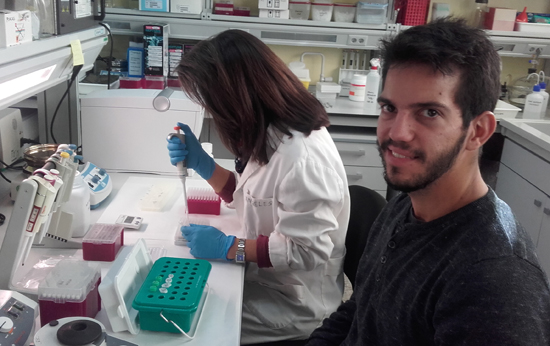
AQUAEXCEL2020 MEETING2017-11-11
Researchers of Nutrigenomics Group (Jaume Pérez Sánchez, Josep Alvar Calduch-Giner, Juan Antonio Martos-Sitcha) have participated in the second annual meeting of AQUAEXCEL2020 EU project, organized by CCMAR at Faro (Portugal) on 6-9 November
Main progress so far for remote fish monitoring is presented by researches of CSIC (CNM-Barcelona; IATS-Castellón) and University of Las Palmas de Gran Canaria (ULPGC) in the workshop of WP8 "Biosensors for remote fish monitoring"
The WP8 is leaded by Prof. Jaume Pérez-Sánchez that coordinate researches with technological and biological skills (CSIC, ULPGC, CCMAR, WU, INRA, DTU, IMR, NOFIMA)
MAIN PROGRESS SO FAR:
EAS Congress, Dubrovnik 20172017-10-23
Prof. Jaume Pérez-Sánchez was invited to participate in the AQUAEXCEL2020 brokerage event "Toolset for validating the utility of feed additives to improve intestinal health" held at Dubrovnik (kroatia) on 17-20 October

The clock of gilthead sea bream larvae2017-10-18
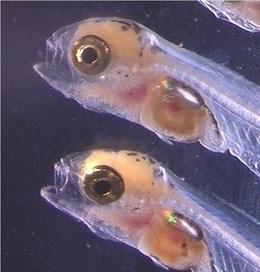
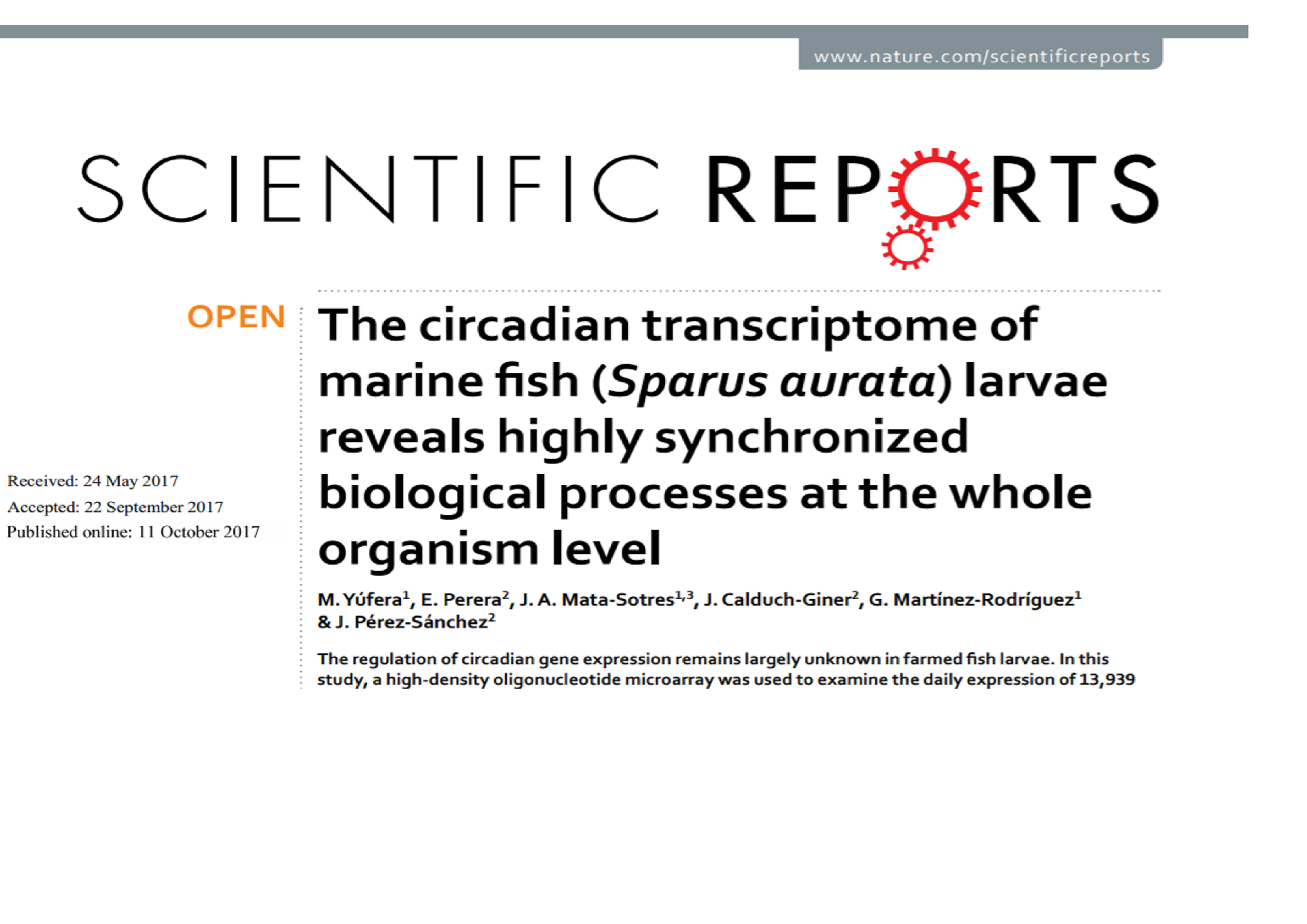
- A coordinated research by two institutes from CSIC-Spain, the Instituto de Ciencias Marinas de Andalucía (ICMAN) and the Institute of Aquaculture Torre de la Sal (IATS), depicted the daily rhythms of whole gilthead sea bream larvae and provides tools to refine culture practices and establish novel quality criteria/certificate for larvae
- Fast growth of gilthead sea bream larvae occurs greatly because of a high synchronization among several biological processes through the day
The study, published in the journal Scientific Reports (https://www.nature.com/articles/s41598-017-13514-w), was founded by the projects RIDIGEST (MINECO-AGL2011-23722) and ARRAINA (7FP KBBE-2011-288925 project No. 288925).
Di sí a la Acuicultura 4S2017-10-03
Di sí a la Acuicultura 4S: Sostenible, Sana, Segura y Sabrosa". "Ven a conocer y saborear nuestro pescado de crianza de la mano de chefs, acuicultores y científicos del CSIC".
Coincidiendo con el inicio del XVI Congreso Nacional de Acuicultura en Zaragoza, damos a conocer las jornadas que el IATS, en colaboración con el CIAL y la Escuela de Hostelería y Turismo de Castellón, ha organizado para el Día de la Acuicultura (30 noviembre -1 diciembre).
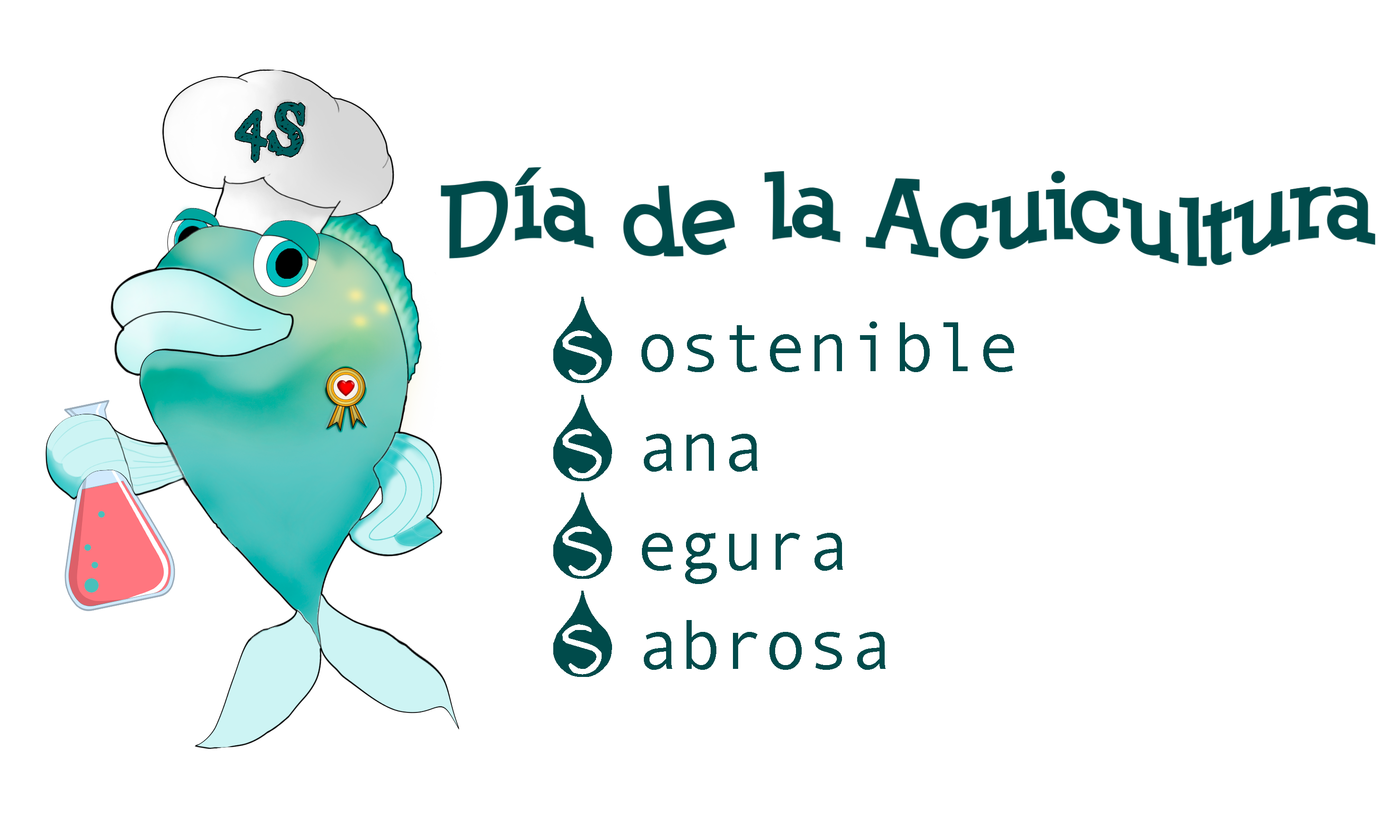

Aquaexcel2020 Newsletter #32017-09-27
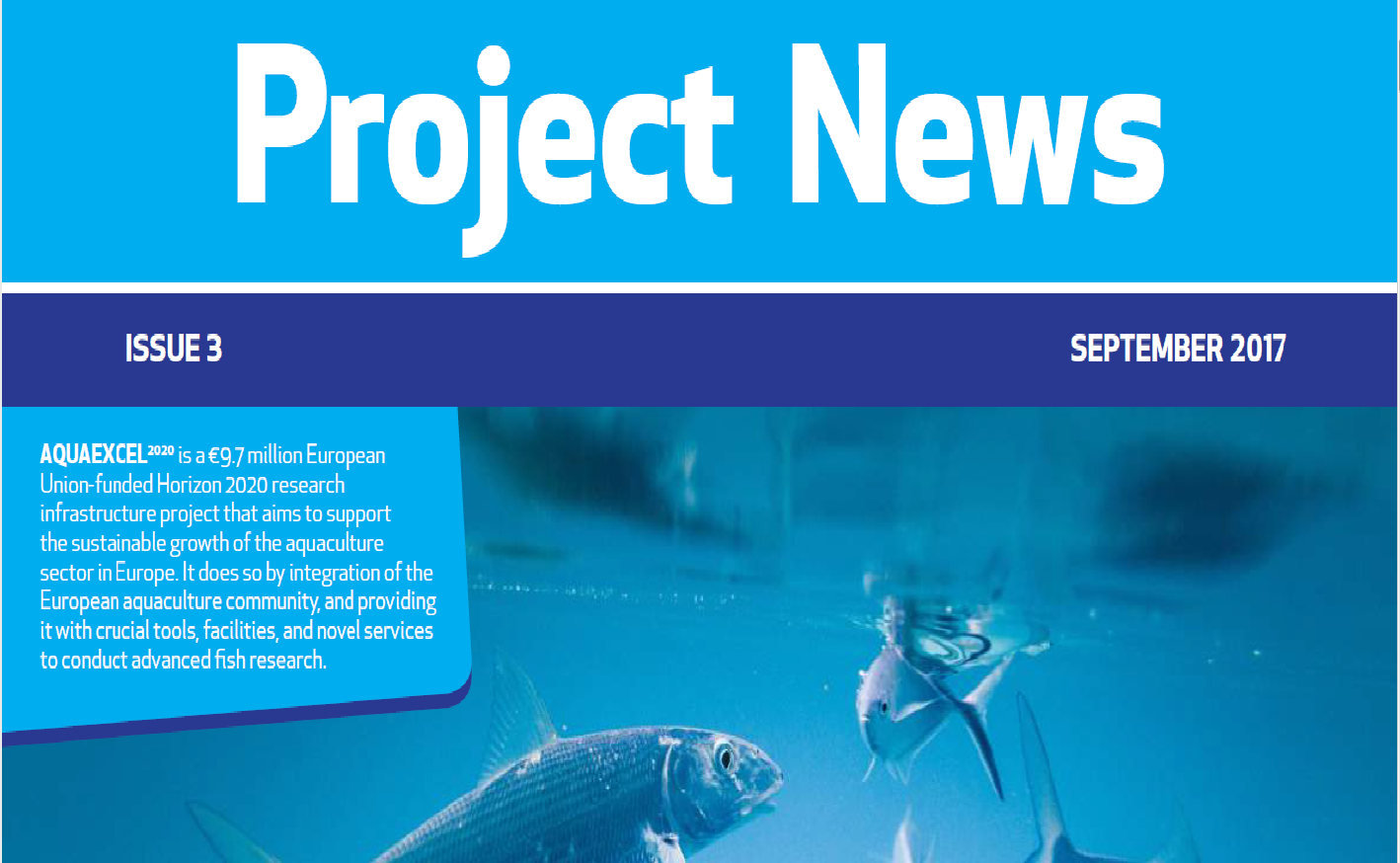
FISH TAGGING_PROGENSA-III2017-09-24
More than 3,000 sea bream juveniles selected for fast and slow growth have been PIT-tagged for studies of nutrition x genome interactions within the PROGENSA-III Project (JACUMAR 2016)
The control and experimental (less than 10% marine ingredients) diets are based on the formulations of ARRAINA diets
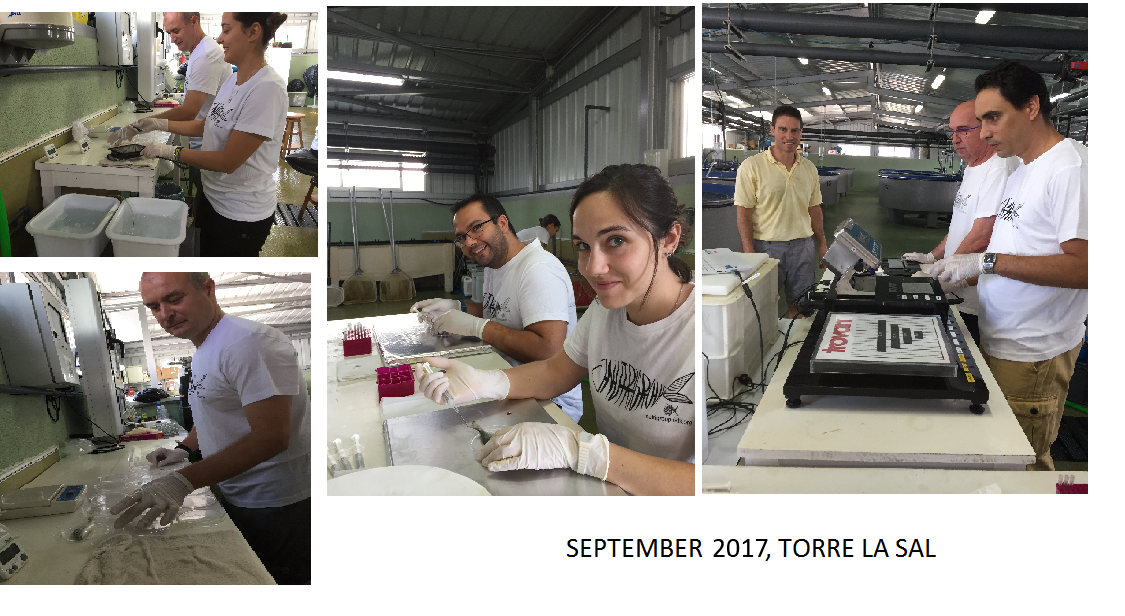
Nutrigroup at XI AIEC Congress in Vigo2017-07-31
Prof. Jaume Pérez-Sánchez was invited to give the closing lecture of the XI Congress of the Iberian Association for Comparative Endocrinology, held at Vigo (Spain) on July 13-15. The conference was entitled "Integrative "omic" approaches to improve fish nutrition and individual phenotyping" and presented recent advances in the combined use of targeted and untargeted approaches for the risk assessment of food safety and fish health and welfare, exploring also new approaches for remote and non-disturbing fish monitoring.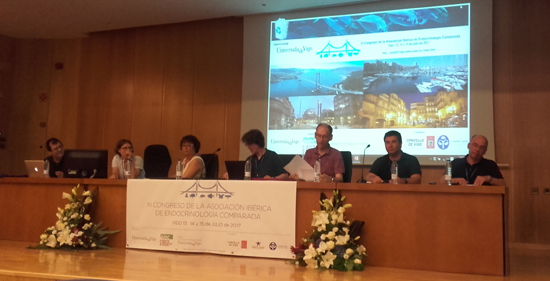
We acknowledge the Congress Organizing Committee for this successful meeting. Nutrigroup has participated in this Congress with this invited closing lecture, 3 oral presentations and 5 posters. Some of these works are derived from collaborations with the University of Barcelona, ICMAN-CSIC, and University of Cádiz.
Hypoxia-related Open Access publications2017-07-07
Two recent Nutrigroup Open Access published works are related to the response of gilthead sea bream to cope with suboptimal oxygen levels. Click on the images to go to the publications.
AQUAEXCEL2020 TNA stay2017-06-27
PhD student Isabel Forner, from the Department of Life Sciences and the Environment of the Università Politécnica delle Marche (Italy) is having an AQUAEXCEL2020 TNA stay with the IATS Nutrigroup during May and June.
The DISRUPBREAM TNA is aimed to characterize the effects of endocrine disruptors on the expression of genes involved in obesity, reproductive capacity and endocannabinoid system in different tissues of gilthead sea bream.
TRAINING COURSE ON FISH NUTRITION2017-06-10

La Fundación Universitat Jaume I- Empresa gestiona un curso del Instituto de Acuicultura "Torre de la Sal"
Castellón, 10 de junio de 2017
El convenio de colaboración firmado recientemente entre la Fundación Universitat Jaume I-Empresa y el Instituto de Acuicultura "Torre de la Sal" (IATS), Centro Público de Investigación del Consejo Superior de Investigaciones Científicas (CSIC), se materializa en una primera actividad formativa que comenzará el próximo lunes 12 y que reunirá a un grupo de investigadores del sector de la acuicultura en torno a los avances realizados en el campo de la nutrición de peces.
El curso, denominado Training Course on Fish Nutrition Research: Recent Advances and Perspectives, es una iniciativa del grupo de Nutrigenómica y Endocrinología del Crecimiento de Peces del Instituto de Acuicultura "Torre de la Sal" (IATS), dirigido por el profesor de investigación Jaume Pérez-Sánchez. Patrocinada por la USSEC (red internacional de organismos y empresas del sector agrícola) esta actividad está dirigida a personal investigador del sector de la acuicultura que desarrolle su trabajo en el campo de la nutrición y salud de los peces.
A partir del próximo 12 de junio comenzarán las sesiones, que incluyen ponencias que se desarrollarán en el Hotel Voramar de Benicàssim de la mano de investigadores y expertos internacionales de IATS-CSIC (Nutrigenomics and Fish Pathology Groups), INRA (Doctores S. Kaushik and G. Corraze), ULPGC (Profesores M. Izquierdo and J. Afonso) and Sparos Lda (Doctor L. Conceição). Se abordarán asuntos como el programa nutricional con larvas, la resistencia a las infecciones bacterianas y parasitarias o seguridad alimentaria, entre otros muchos. Los principales resultados y conclusiones se extraen del proyecto europeo ARRAINA. Se presentarán asimismo los avances realizados en dos proyectos H2020 (ParaFishControl , AQUAEXCEL2020). El curso se completa con una visita de los participantes al Instituto de Acuicultura "Torre de la Sal" (IATS)- CSIC prevista para el 16 de junio.
El Instituto de Acuicultura "Torre de la Sal", que desarrolla su actividad en el ámbito de la acuicultura marina desde hace 40 años, está ubicado en las proximidades del Parque Natural del Prat de Cabanes-Torreblanca (Castellón) y cuenta con una plantilla de 16 investigadores, que junto con el personal de apoyo, becarios e investigadores contratados constituyen una masa crítica de primer orden tanto a nivel nacional como internacional.
Más información sobre el curso en: http://www.nutrigroup-iats.org/ussec
News AQUAEXCEL20202017-04-11
WELCOME TO ISSUE 2 OF THE AQUAEXCEL2020
PROJECT NEWSLETTTER
TNA STAY AQUAEXCEL20202017-04-10
The PhD Student Mar Marcos from Galway-Mayo Institute of Technology (Ireland) has concluded a four-weeks stay in the Institute of Aquaculture Torre de la Sal (IATS-CSIC, Castellón, Spain) within the transnational access entitled “Study of genes involved in the epithelial and mucous cell hyperplasia occurring in gills of farmed Atlantic salmon during amoebic gill disease –AGDBIOMAR” financed by the European Project AQUAEXCEL2020.
The study was conducted in collaboration with researchers of Nutrigenomics and Pathology Groups of IATS
We hope her stay in our Group has been satisfactory.
PROGENSA III2017-04-08
The first follow-up meeting of PROGENSA III Project (2016-2018), organized by APROMAR/REMA, was held at the Polytechnic University of Valencia (April 5, 2017).
The Project, coordinated by Universidad de Las Palmas de Gran Canaria (ULPGC), is financed by the National Aquaculture Plans of the Ministry of Agriculture, Food and Environment with the help of the European Maritime and Fisheries Fund.
The meeting was attended by researchers from the ULPGC, IFAPA, IEO-Murcia, UPC and IATS-CSIC, together with representatives of sector companies of Cantabria, Andalusia, Murcia, Valencia, Baleares and Canarias, that discussed the work plan and expected results of the gilthead sea bream genetic selection program that began in 2009 and has its continuity in PROGENSA III.
The IATS-CSIC Research Group participates in this Project with researchers from the Nutrigenomics and Fish Pathology Groups who will evaluate, with families selected by ULPGC and IFAPA, the effects of nutrition x genome interaction on growth, conversion efficiency and disease resistance in a model of parasitic enteritis with E. leei.
The larval cultures for the studies of nutrition x genome interaction at IATS-CSIC are being carried out in the facilities of the IEO of Murcia. The culture start at IATS is planned for June-July 2017.


Serum metabolome of gilthead sea bream2017-02-05
Researchers of Nutrigenomics and Fish Growth Endocrinology Group of IATS in collaboration with the Institute of Waters and Pesticides of the University Jaume I of Castellón analysed by high resolution liquid chromatography and mass spectrometry the serum metabolome of farmed gilthead sea bream.
More than 15,000 m/z ions were identified in the serum of gilthead sea bream. Among them, 850 features were discriminant of fed and short-term fasted fish, helping to identify sensitive and robust metabolite markers of malnutrition in farmed fish.
Further studies are underway to determine the potential of this powerful methodological approach, alone or in combination with other omics approaches, for the discovery and validation of new biomarkers of nutritional status in a wide-range of physiological conditions arising with the advent of feed additives and new fish feed formulations.
The results have been published in the Open-access Journal PeerJ. Read more....

Panga: low-cost fish2017-02-02
Prof. Jaume Pérez-Sánchez has been interviewed in ABC newspaper: "Panga, potential risks of a low-cost fish".
Chronic stress markers in the skin mucus of cultured gilthead sea bream2017-02-01
Researchers of Pathology and Nutrigenomics groups of Instituto de Acuicultura Torre de la Sal (IATS-CSIC) in collaboration with University of Insubria (Italy) and Institute of Marine Research of Matre (Norway) have characterized the proteome of the skin mucus of giltheand sea bream.
This study revealed the presence of more than 2,000 proteins, some of them highly regulated in a model of chronic stress mimicking daily aquaculture activities.
This work conducted within the AQUAEXCEL EU Project has been published in Frontiers in Physiology (read more…). A press relase has been made public by CSIC Delegation in Comunidad Valenciana and the CSIC web page.

Immunoglobulins regulation in challenged gilthead sea bream2017-01-20
Researchers of Pathology and Nutrigenomics groups of Instituto de Acuicultura Torre de la Sal (IATS-CSIC) in collaboration with Instituto de Investigaciones Marinas (IIM-CSIC), University of Murcia and Instituto Nacional de Investigación y Tecnología Agraria y Alimentaria (INIA) have characterized and elucidated the regulation of different immunoglobulins (membrane and secreted IgM and IgT isoforms) in gilthead sea bream challenged with virus, bacteria or parasites.
This study is of relevance for the future vaccination programs and the prognosis of disease outcomes in fish with different nutritional background.
This work has been published in Frontiers in Immunology (read more…)

Dr. Ariadna Sitjà-Bobadilla has been interviewed in the RNE radio program Españoles en la mar regarding this work. You can download here the audio file.
PhD student stay with Nutrigroup2017-01-09
The PhD student Lourenço Ramos Pinto, from SPAROS Lda. and the Group of Fish Nutrition and Immunobiology (CIIMAR-University of Porto) will conduct a two-month stage with the Nutrigenomics and Fish Growth Endocrinology Group (Institute of Aquaculture Torre la Sal, IATS-CSIC), within the framework of National (ALISSA: Bases para uma alimentação saudável e sustentável para peixes de aquacultura” and EU (MIRACLES:Multi-product integrated biorefinery of algae: from carbon dioxide and light energy to high-value specialties) Projects.
Over his stage the effect of amino acids and algae supplementation on markers of fish growth and health performance will be analyzed using the Sea bream PCR-array platform of Nutrigenomics group.
ELSEVIER, Congratulations!2016-12-20
|
Congratulations! Dear Dr. Pérez-Sánchez, The editors of Comparative Biochemistry and Physiology - Part D: Genomics and Proteomics are delighted to inform you that your paper, Dietary oils mediate cortisol kinetics and the hepatic mRNA expression profile of stress-responsive genes in gilthead sea bream (Sparus aurata) exposed to crowding stress. Implications on energy homeostasis and stress susceptibility, published in 2013 is one of the most highly cited papers during 2014, 2015 and up until June 2016. We would like to take this opportunity to thank you for publishing with us and to congratulate you. |
CHRISTMAS 20162016-12-19
A nice dinner. Restaurant OPALO, Orpesa
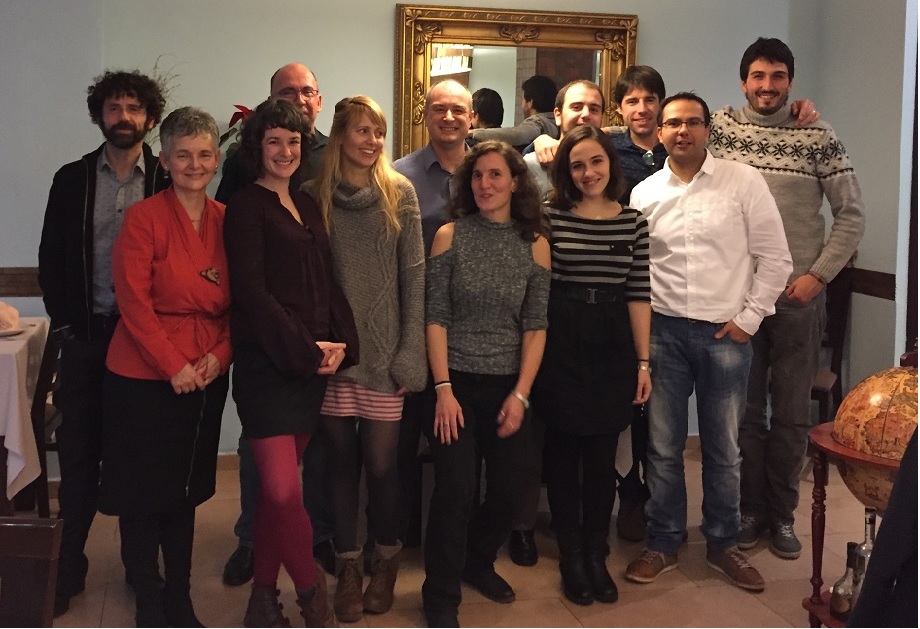
New PROJECT, PROGENSA III2016-12-19
The Groups of Pathology and Nutrigenomics of IATS, leaded by Prof. Jaume Pérez-Sánchez participate in a JACUMAR 2016 Project funded by the Ministerio Español de Agricultura y Pesca, Alimentación y Medio Ambiente “ IMPROVEMENT OF SEA BREAM AQUACULTURE SECTOR BY GENETIC APPROACHES”
The Tasks conducted by IATS aimed to study the nutrition x genome interaction to evaluate the effects of genetic background and the new diet formulations based on ARRAINA diets upon key performance indicators, including the different susceptibility to parasitic enteritis.
The Project is coordinated by the University of Las Palmas with the participation of CSIC, Instituto Español de Oceanografía, Instituto de Investigación y Formación Agraria y Pesquera y Universidad Politécnica de Cartagena.
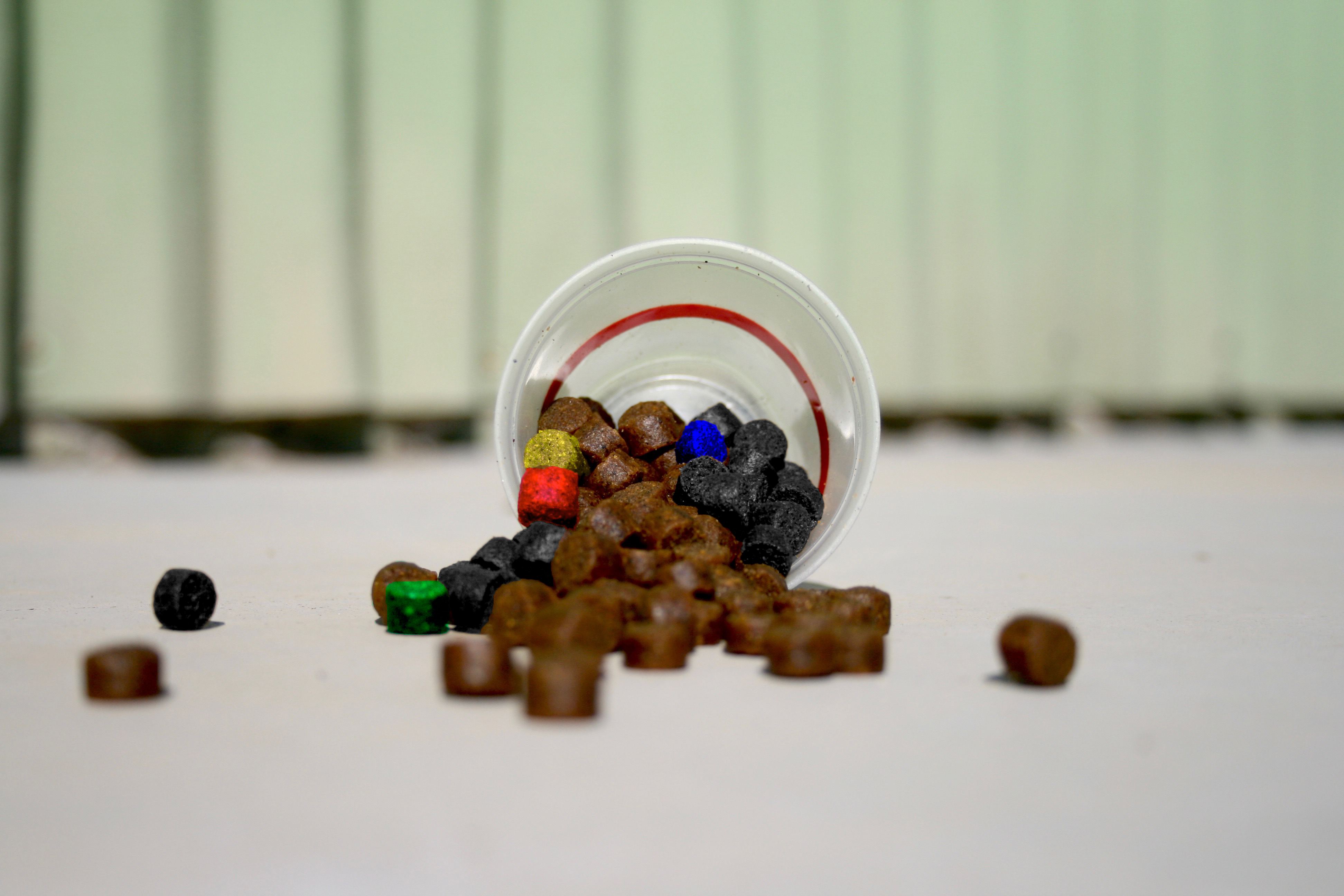
New Publication: UNDERSTANDING BIOMARKERS IN FISH NUTRITION2016-12-12
Press release: December 2016
The EU-funded ARRAINA (Advanced Research Initiatives for Nutrition & Aquaculture) project has published a new resource for aquaculture feed producers, entitled “Understanding Biomarkers in Fish Nutrition”. The technical content is prepared by CSIC with contributions from other ARRAINA partners (NIFES, INRA, NARIC, ULPGC, USI, CCMAR).
The objective of this booklet is to provide a reliable set of biomarkers and associated methodologies to assess the nutritionally mediated effects on growth performance, metabolic homeostasis, stress responsiveness and health condition of fish which are fed new diet formulations from early life stages to completion of production cycle and sexual maturation. Of particular value are predictive and non-invasive biomarkers available at a relatively low cost, although the combination of conventional and omics approaches is emerging as a user-friendly option.
This booklet is specifically aimed at scientists and feed producers, but it also targets other industrial segments (e.g. fish farmers, feed additives companies, retailers) and individuals interested in gaining further knowledge of the physiological consequences of the raw materials that are currently used in the feeds of farmed fish. The species focussed on by the ARRAINA project are: Atlantic salmon, rainbow trout, common carp, European sea bass and gilthead sea bream.
This booklet is the final in a series of three technical booklets on the nutrition and feeding of fish farmed in Europe, and has been produced under the framework of the European Union FP7 funded ARRAINA project. The aim is to make these booklets widely available both to targeted stakeholders and society in general, in order to raise awareness of the science-based knowledge supporting the development of high quality, safe, and environmentally sustainable aquaculture feeds.
The first two ARRAINA technical booklets were focused on feed ingredients and nutrient requirements, and are available at www.aquatt.ie and can also be requested from the dissemination task leader Cliona Ní Cheallacháin, AquaTT (cliona@aquatt.ie).
SEA BREAM, INTESTINAL HEALTH2016-12-02
Researchers of Nutrigenomics and Pathology Groups of Institute of Aquaculture Torre de la Sal, in collaboration with scientific (Norwegian University of Life Sciences, Centro de Ciências do Mar) and industrial (BIOMAR, NOREL) partners, showed within the AQUAEXCEL and ARRAINA EU projects that butyrate supplementation helps to preserve intestinal function in fish fed plant-based diets.
The article has been published in PLoS ONE 11(11):e0166564
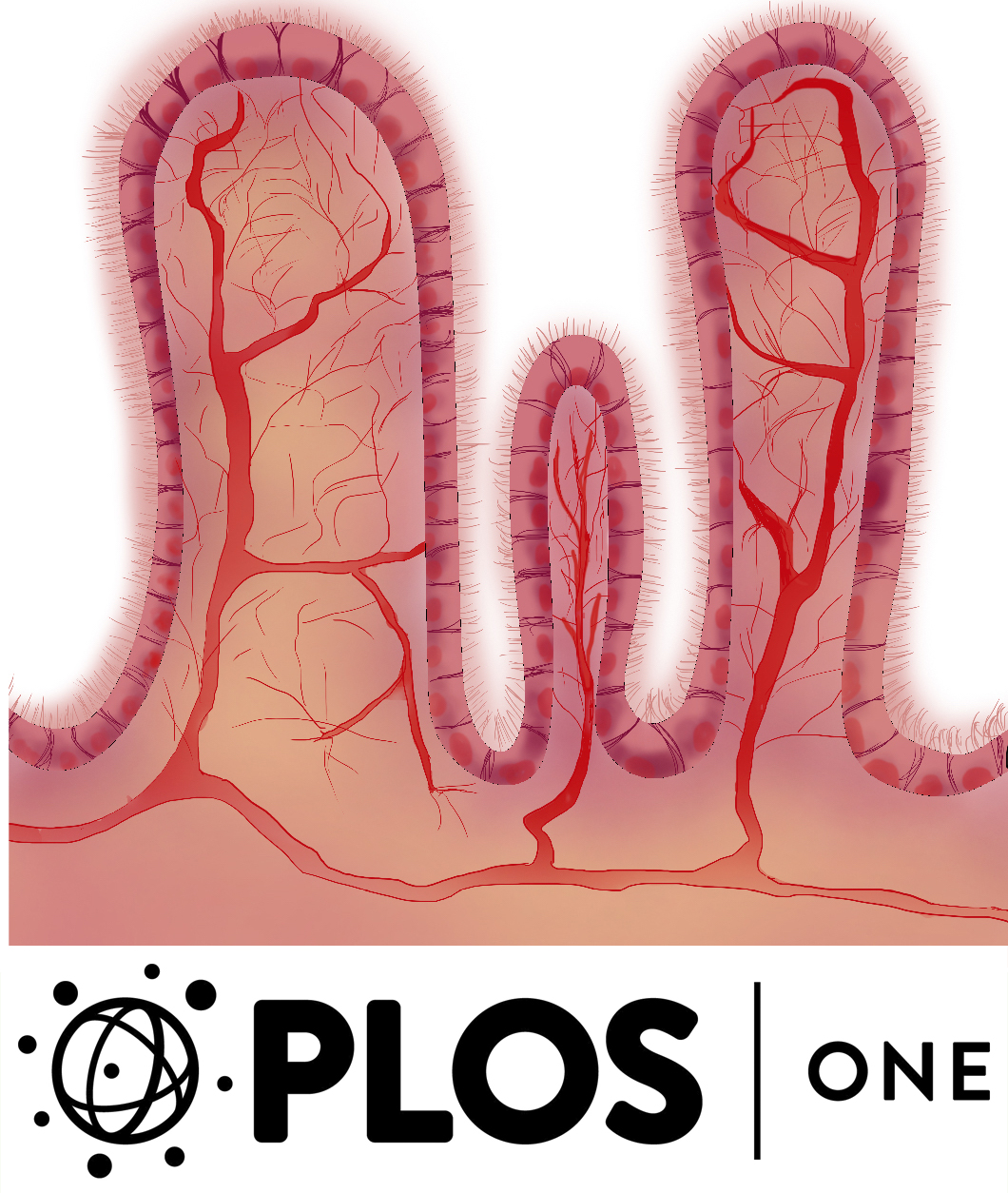
El CSIC también dice Sí a la Acuicultura Sostenible2016-11-29
El Profesor de Investigación del Instituto de Acuicultura Torre de la Sal, Jaume Pérez-Sánchez, ha participado como Vocal del Área de Ciencias Agrarias en el acto Central del día de la Acuicultura celebrado en Madrid en el Museo Nacional de Ciencia y Tecnología de Alcobendas. En esta edición se ha presentado el proyecto escolar “Criado en la UE” lanzado por la Comisión Europea el año pasado para poner de relieve las ventajas de consumir productos del mar.
El CSIC ha participado en el encuentro de la Comisión Europea con los agentes científicos y sectoriales relacionados con la acuicultura española para debatir las diferentes prácticas de comunicación a fin de trasladar a la sociedad el potencial de la acuicultura en nuestro país y su compromiso con la sostenibilidad y la I+D+I.
Las actividades de comunicación del CSIC han puesto de relieve una oferta diversa y de ámbito nacional que va dirigida preferentemente a profesores y alumnos de secundaria, pero también a los mayores y a los más pequeños. Cobran especial relevancia las visitas guiadas a los centros de investigación de los Institutos del Área (Instituto de Acuicultura de Torre de la Sal, Instituto de Investigaciones Marinas de Vigo, Instituto de Ciencias del Mar de Cádiz e Instituto de Ciencias del Mar de Barcelona).
Otra forma de comunicar son los Videos de Proyectos de Divulgación o de Investigación que se están convirtiendo en una herramienta de trabajo para comunicarse con el público en general, pero también con otros investigadores de Áreas relacionadas o afines.
En este acto, el CSIC ha presentado un stand en donde se ha informado al público interesado de la Investigación del CSIC en Acuicultura, habiéndose proporcionado información de los Proyectos más relevantes del 7º Programa Marco y del Programa H2020.
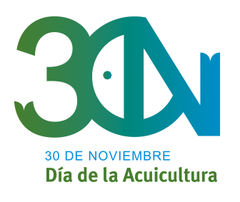
Annual meeting of AQUAEXCEL2020 EU Project2016-10-17
Researchers from the Nutrigenomics and Fish Growth Endocrinology Group have participated in the Annual Meeting of AQUAEXCEL2020 EU Project held in Heraklion (Crete, October 11-14th). Prof. Jaume Pérez, leader of the WP8, outlined the progress made during the first year of Project in the prototype of the implantable biosensor for remote fish monitoring that is being built and validated in collaboration with the Instituto de Microelectrónica de Barcelona (IMB-CNM - CSIC), the University of Las Palmas de Gran Canaria (ULPGC) and the Centre of Marine Sciences (CCMAR). In addition, it was reported the progress in the implementation of the WP6 experiments in which our Group is also involved.

AQUACULTURE EUROPE 20162016-09-21
Researchers from Fish Pathology group & Nutrigenomic and Growth Endocrinology group, led by Professor Jaume Pérez-Sánchez, participated in the ARRAINA session of Aquaculture Europe 2016 (Edinburgh, Scotland) presenting five oral communications.
The work conducted in collaboration with other industrial (BIOMAR, NOREL) and research (INRA, NIFES, CCMAR) partners of ARRAINA EU project addressed the effects of plant-based diets on growth performance and reproductive performance, food safety, intestinal health and disease outcome in fish challenged with the intestinal parasite Enteromyxum leei.
Special emphasis was also done on the validation and discovery of new biomarkers in fish nutrition. A major outcome on this is the ARRAINA Bomarker Database (www.nutrigroup-iats.org/arraina-biomarkers).
CSIC-IATS research within the framework of ARRAINA project has generated more than 25 SCI publications (2012-2016) with a high impact factor.
New technological support contract2016-07-26
Researchers from the Nutrigenomics and Fish Endocrinology Group, led by Professor Jaume Pérez-Sánchez, have signed a new contract with companies NOREL and BIOMAR, to validate a second generation of fish feed additives. The aim is to improve key performance indicators in aquaculture such as growth, risk of oxidative stress and intestinal health.
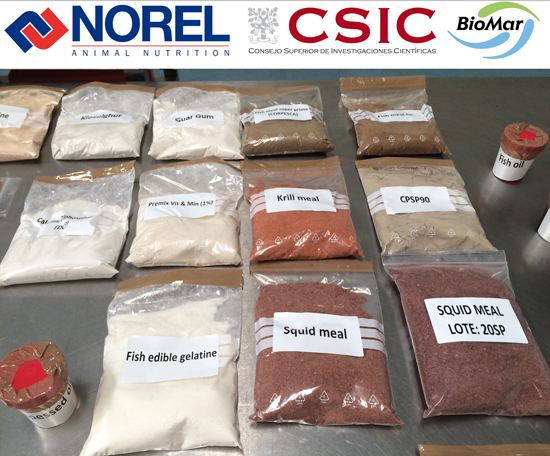
8 ISFE invited communication2016-07-26
Professor Jaume Pérez-Sánchez presented an invited talk, entitled "Functional plasticity of the intestine of Mediterranean farmed fish to cope with environmental and nutritional stressors" at the 8th International Symposium of Fish Endocrinology that was held in Gothenburg (sweden).
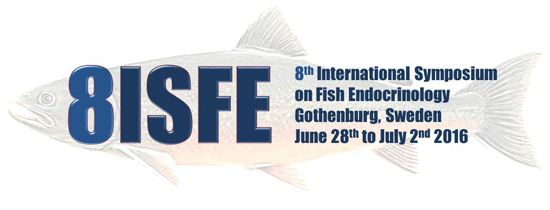
Review publication about the Immunity to Gastrointestinal Microparasites2016-07-01
This review results from the collaboration between the Fish Pathology Group and the Nutrigenomics and Fish Endocrinology Group of IATS. It is part of a special issue of the journal Developmental and Comparative Immunology devoted to Intestinal Immunity, edited by Geert F. Wiegertjes y Won-Jae Lee. You can have free access to this article following this link.

The European project AQUAEXCEL2020 finances the stay of a Researcher from Portugal2016-05-28
The Research Scientist (PhD) Juan Fuentes, from Centre of Marine Sciences (CCMar, Universidade do Algarve, Portugal), has concluded a two-weeks stay in the IATS facilities within the transnational access entitled “Electrophysiological testing of intestinal function and integrity in sea bream with different nutritional background (INTEBREAM)” financed by the European Project AQUAEXCEL2020. The study was conducted in collaboration with researchers of Nutrigenomics and Pathology Groups of IATS and aimed to underline the potential use of electrophysiology techniques to evaluate intestinal integrity and functionality in fish with different nutritional backgrounds. We hope his stay in our Group has been satisfactory.
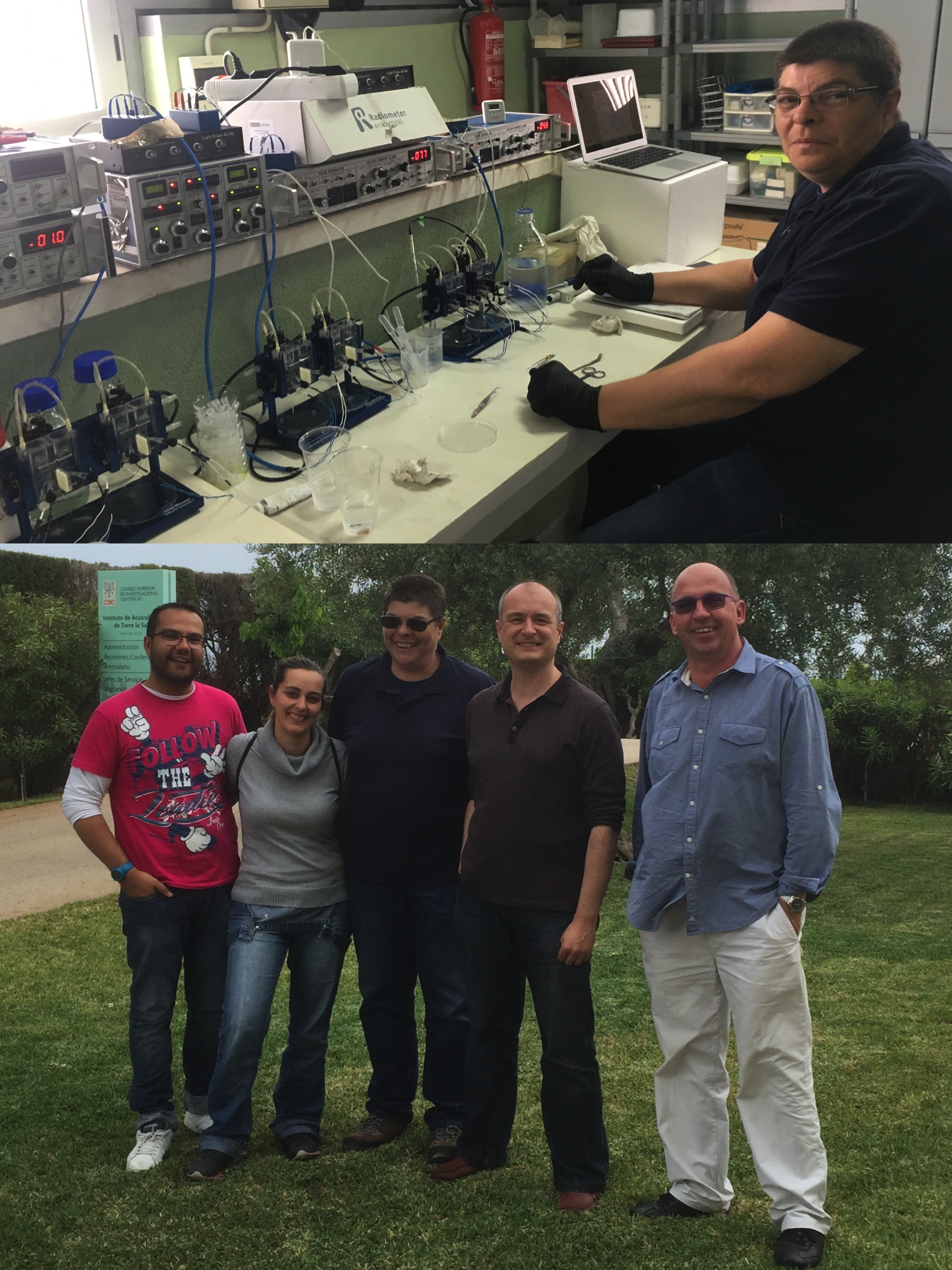
PhD student stay with Nutrigroup2016-04-13
The PhD student Emilio J. Vélez, from the Group of Regulation and Optimization of Fish Growth for Aquaculture (Dpt. Cell Biology, Physiology and Immunology at University of Barcelona), has concluded a three-weeks stage with the Nutrigenomics and Fish Growth Endocrinology Group, within the framework of the projects MOCD “Modelos para la optimización del crecimiento de la dorada, AGL2012-39768” and Crecedorada “Hacia la mejor relación GH/IGF: los secretagogos, el modelo del ejercicio y su relación con la alimentación en dorada y en lubina, AGL2015-70679-R”. Over this period, he has performed radioimmunoassays for the measurement of plasma levels of GH and IGF-I in gilthead sea bream from different experiments. This is another example of the long and fruitful scientific cooperation between the Institute of Aquaculture Torre de la Sal-CSIC and the Faculty of Biology at University of Barcelona.
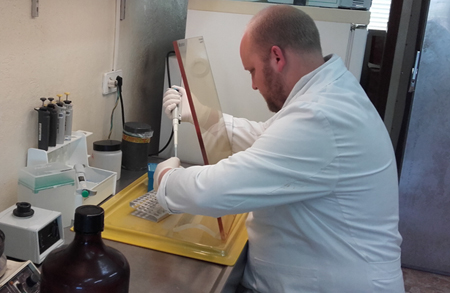
NOREL signs a new contract with Fish Nutrigenomics and Pathology groups2016-03-30
NOREL company has signed a new technological support contract with IATS Nutrigenomics and Pathology groups, in order to evaluate the effects of two feed additives, the prebiotic DICOSAN and the probiotic ECOBIOL on growth and health paremeters of cultured gilthead sea bream.
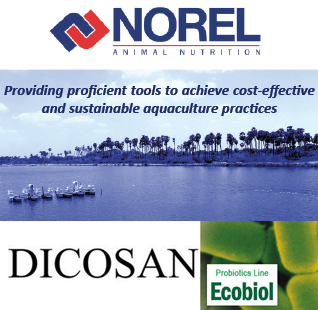
The European project AQUAEXCEL2020 has a new member in the IATS2016-02-16
On February 15th, 2016, Dr. Juan Antonio Martos Sitcha joined the Nutrigenomics and Fish Growth Endocrinology Group (Nutrigroup, Institute of Aquaculture Torre de la Sal, IATS-CSIC) with a Juan de la Cierva-Formación post-doctoral contract from the Spanish Ministry of Economy and Competitiveness. His work is framed in the European project AQUAEXCEL2020, aiming to define and validate new cellular markers related to hypoxia and aerobic/anaerobic metabolism of cultured fish. Juan Antonio has a Degree in Marine Sciences and Master of Science in Aquaculture and Fisheries at the University of Cádiz. He performed his PhD thesis on the physiological and endocrine processes related to osmoregulation and stress pathways in the gilthead sea bream (Sparus aurata) thanks to a fellowship for the Preparation of University Professors (FPU) from the Spanish Ministry of Education, under the supervision of Prof. Dr. Juan Miguel Mancera Romero (University of Cádiz), Dr. Gonzalo Martínez Rodríguez (Instituto de Ciencias Marinas de Andalucía, ICMAN-CSIC, Cádiz) and Dr. Juan Fuentes Díaz (Centro de Ciências do Mar, CCMAR, Faro, Portugal).
AQUAEXCEL transnational access at IATS by a Brazilian PhD student2016-01-27
PhD student Augusto Queiroz, from University of Porto (Portugal) has concluded a two-weeks stay in the IATS within a transnational access financed by European Project AQUAEXCEL. Hi has conducted gene expression studies in sea bream to underline the potential benefits of the macroalgae Gracilaria when added to fish feeds.
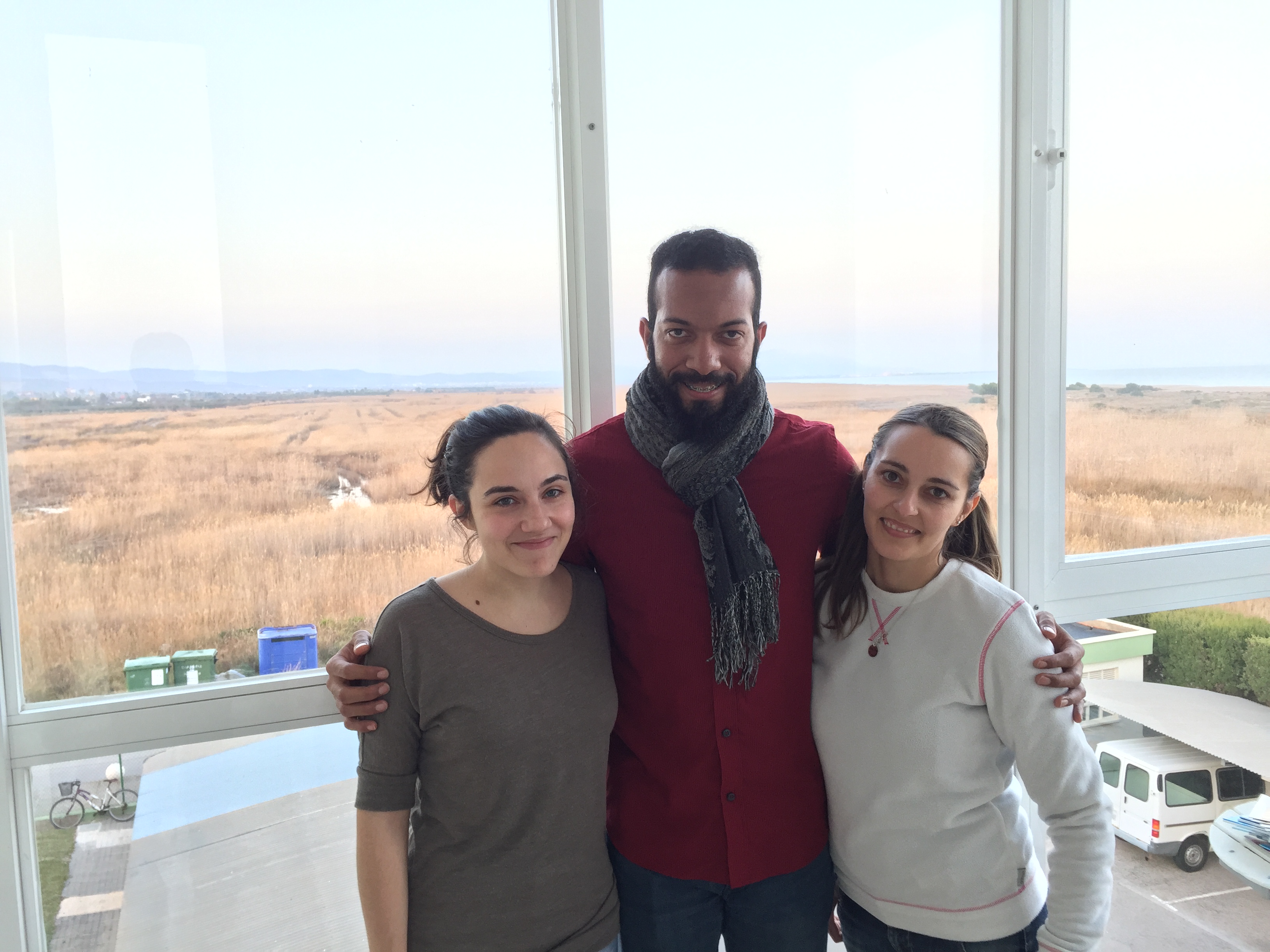
The European project ARRAINA has a new technical member in the IATS2016-01-16
On January 15th, 2016, Verónica de las Heras Rodríguez joined the Nutrigenomics and Fish Growth Endocrinology Group (Nutrigroup, Institute of Aquaculture Torre de la Sal, IATS-CSIC) with an employment contract for Technical and Professional Activities, and her work in the Nutrigroup is framed in the European project ARRAINA, aimed to identify and validate new biomarkers related to growth, quality, health and animal welfare regulated by nutritional factors. She is Technician in Aquaculture Production, Degree in Marine Sciences and Master of Science in Aquaculture and Fisheries at the University of Cádiz. Verónica performed her Master Thesis about the culture optimization of the thick-lipped grey mullet (Chelon labrosus) thanks to an employment contract framed in the project “Optimization of the maturation and spawning processes in the mullet Chelon labrosus” co-financed by the Spanish Ministry of Education and the European Social Found, under the supervision of Dr. Gonzalo Martínez Rodríguez and Prof. Dr. Manuel Yúfera Ginés (Instituto de Ciencias Marinas de Andalucía, ICMAN-CSIC, Cádiz). After that (2013-2015), she was hired by the private company Futuna Blue S.A. as main responsible of auxiliary crops and technical support in larval first feeding of different fish species, as tuna (Thunnus thynnus), greater hamberjack (Seriola dumerili) and Senegalese sole (Solea senegalensis).
ARRAINA COURSE2015-12-22
ECOSAN Project: NOREL meeting2015-12-01
Nutrigenomics group researchers have held a meeting with NOREL company to analyze the results of ECOSAN Project. This project has evaluated the effects of medium-chain fatty acids from coconut oil (DICOSAN) and the probiotic ECOBIOL on growth and biomarkers of oxidative stress and immune response.
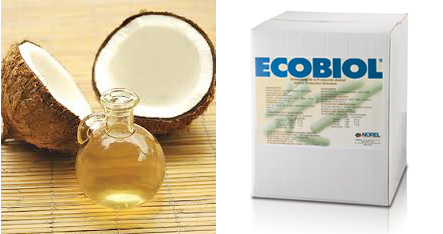
ASSESSFEED kickoff meeting2015-11-27
The kickoff meeting of Project ASSESSFEED was held in Olhão (Portugal) in November 24-25. ASSESSFEED is an ARRAINA-funded project that serves as a proof of concept of biomarkers already established in gilthead sea bream to assess fish nutritional condition and performance, extending these results to salmon in experimental farmed cages. Nutrigroup participates in this project together with SPAROS Ltd (Portugal) and GIFAS (Norway).
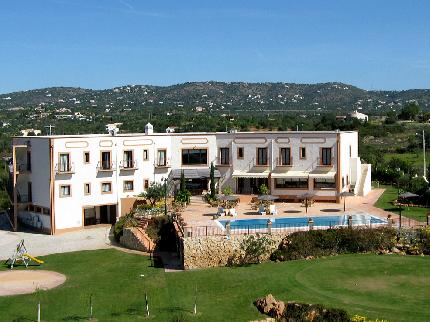
ARRAINA key achievements2015-11-22
ARRAINA project was present with a presentation and an event booth in the Bioeconomy Investment Summit (Brussels, November 9-19), an event for identifying ways to mobilize private and public investment for bioeconomy. A brochure was distributed to visitors with the key achievements to date in this Project. The document can be downloaded here; the first two key achievements have been led by our group: the biomarker database and the online tool to predict fish fillet fatty acid composition.

Phd student stay with Nutrigroup2015-11-18
PhD Student Carla Olate has finished a five-months stay in our group, funded by CONICYT (Chile). During her stay she has studied the benefit effects of macroalgae encapsulates on health and welfare of cultured gilthead sea bream. We wish she had profited her stay and the best for the future.
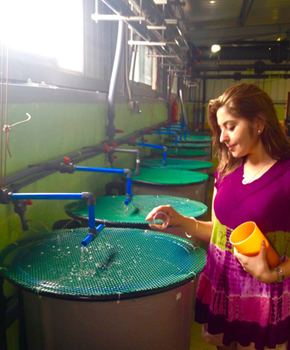
The Future Scientists2015-11-10
Bachelor students of Mater Dei Secondary School visited the infrastructures of IATS.
The students have approached to the Scientif Career and Aquaculture Research.
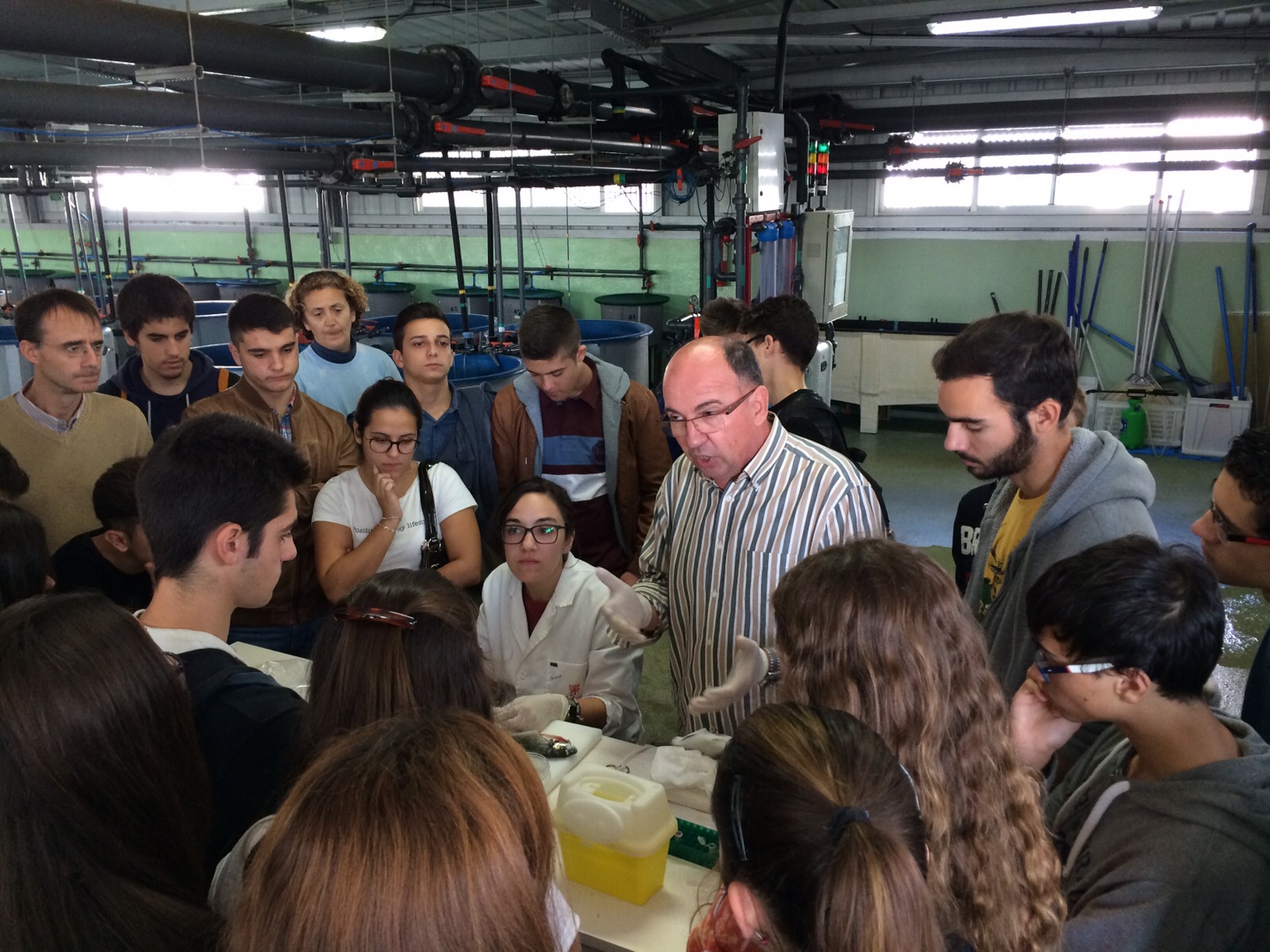
Kickoff meeting of AQUAEXCEL2020 EU Project2015-11-05
Group researchers have participated in the kickoff meeting of AQUAEXCEL2020 EU Project held in Montpellier, France.
Three CSIC institutes participate in this project: Institute of Aquaculture Torre de la Sal, Institute of Microelectronics of Barcelona IMB-CNM, and Instituto de Investigaciones Marinas. Prof, Jaume Pérez is the leader of partner CSIC, and also leads WP8 "Implanted biosensors for remote fish monitoring".
The meeting included the visit to the new Ifremer facilities in Palavas.
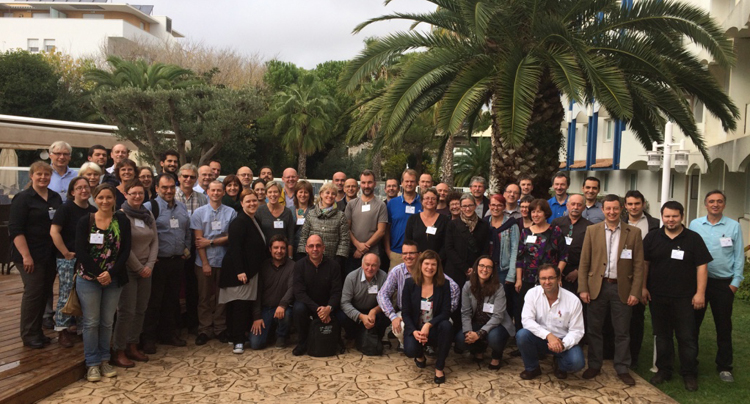
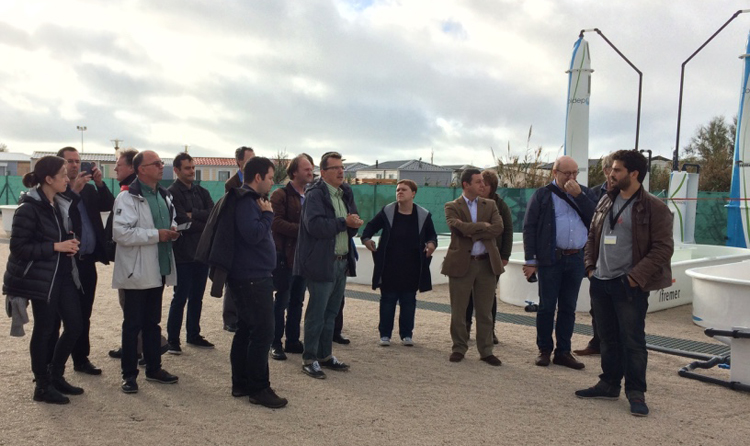
10th AIEC Congress2015-09-22
Institute of Aquaculture Torre de la Sal organized the 10th Congress of the Iberian Association of Comparative Endocrinology (AIEC), from 23rd to 25th September at the Postgraduate building of the University Jaume I campus.
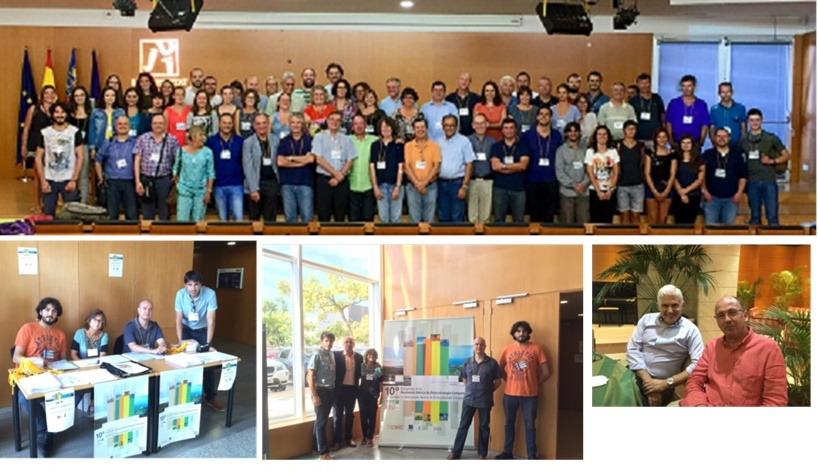
New insights on cellular respiration2015-04-22
Researchers of the Nutrigenomics Group of IATS have characterized at the molecular level almost all the enzyme subunits of the mitochondrrial respiratory chain of sea bream.
The study has been published in PLOS ONE PLOS One 10: e0122889 (2015). CSIC news section has also highlighted this finding, as well as other specialized and general media.
http://journals.plos.org/plosone/article?id=10.1371/journal.pone.0122889
PhD Student 2015-03-16
Paula Simo, licensed in Biology by the UAB, started her Ph.D. in the Nutrigenomics group within the framework of Mi2FISH Project "Integrative phenotyping for the improvement of fish feed efficiency and production: unravelling metabolic, intestinal and immunopathological status, AGL2013"
ARRAINA Meeting2015-03-11
Researchers of Nutrigenomics and Pathology groups of IATS-CSIC have participated in the third annual meeting of ARRAINA EU Project.
The IATS-CSIC is the leader of WP1 "identification and validation of fish biomarkers of diagnostic and predictive value" and have already published more than 20 SCI articles with a high impact index (> 2.5).
The meeting included the visit to the experimental facilities of the Spin-off SPAROS.
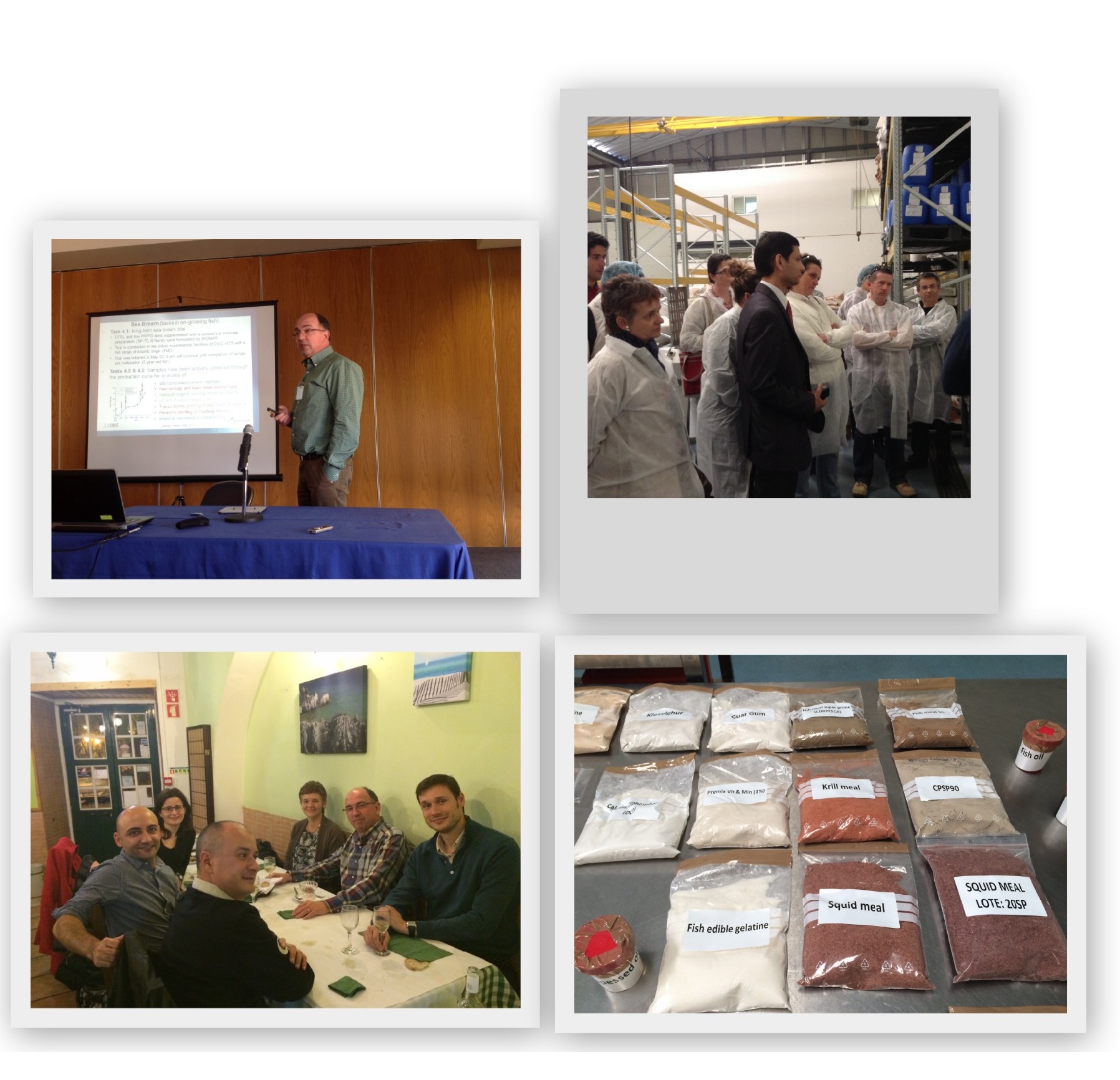
POSTGRADUATE COURSE_CHILE2015-03-10
The Ph Student Pablo Santibañez from the Austral University of Chile has finished your 10 weeks stage with the Nutrigenomics Group of the Institute of Aquaculture of Torre la Sal. Over this period, it has work with new tools on genomics and proteomics within the framework of current National (Mi2-Fish) & EU (ARRAINA) Projects.
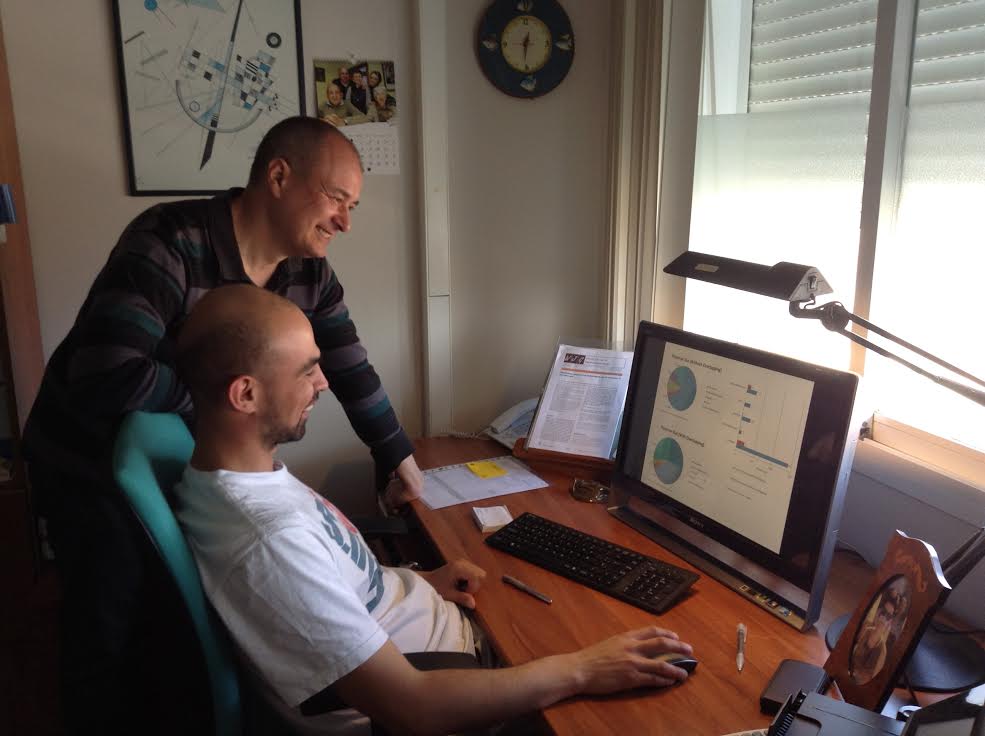
AQUAEXCEL, Final Meeting 2015-02-07
Researchers of IATS have organized the final annual meeting of the European Project AQUAEXCEL (2011-2015) in the Palasiet hotel of Benicassim.
During the meeting, European researches visited the research infraestructures of IATS offered as "Transnational Access" over the course of the Project.
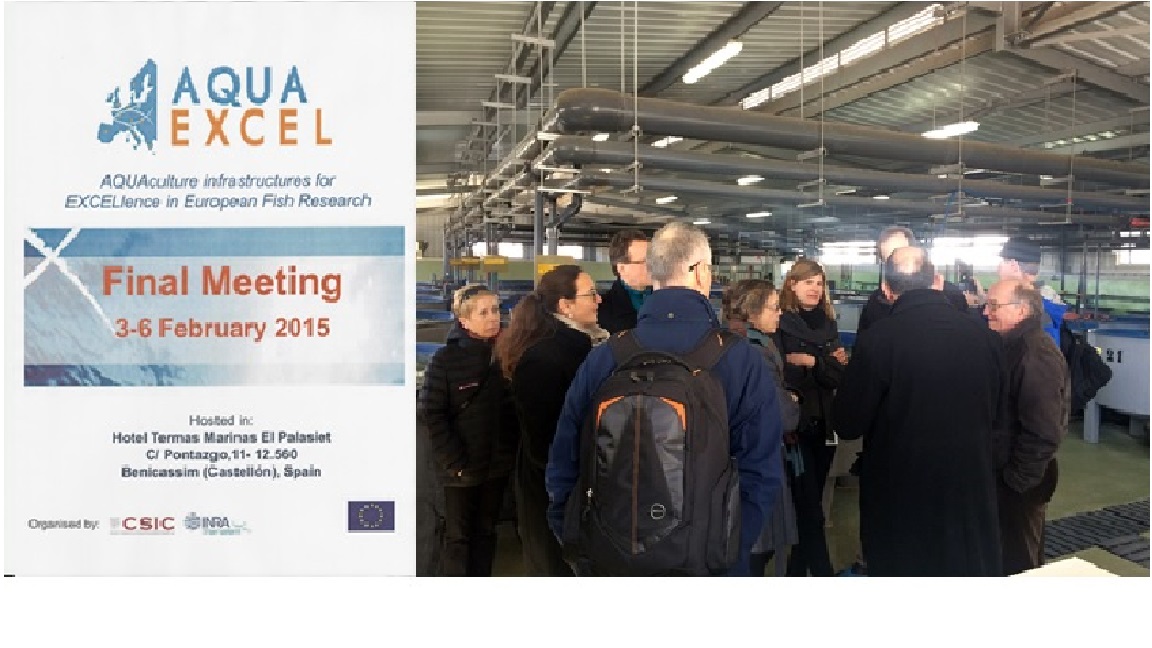
.jpg)
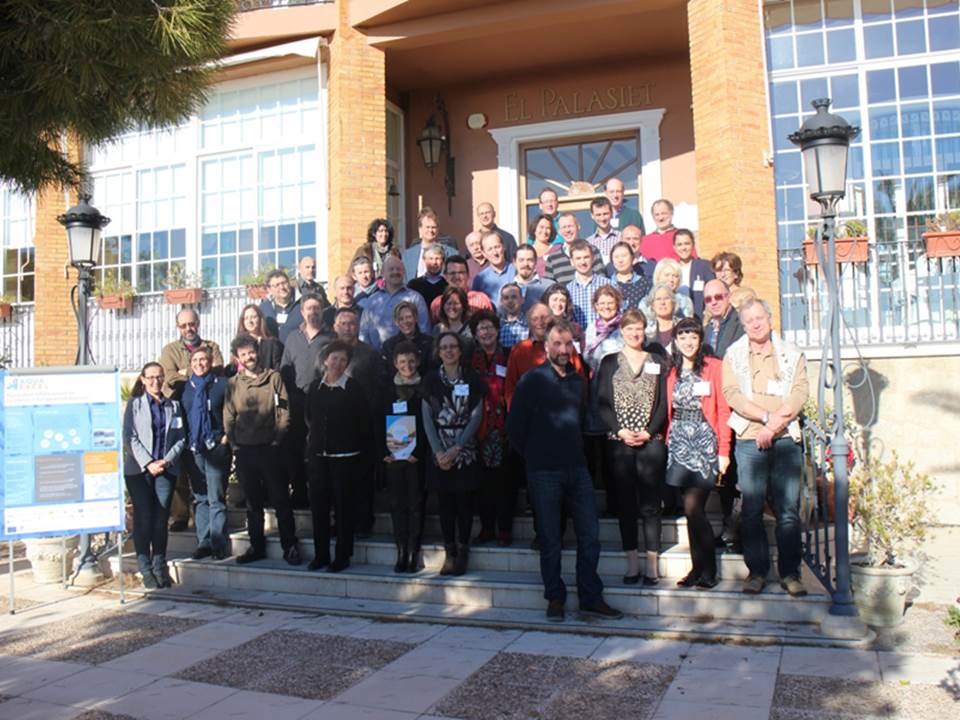
University of Huazhong, China2014-12-09
Visit to the Agricultural University of Huazhong, Wuhan, China - December 2014
Dr. Jaume Pérez-Sánchez visited the College of Fisheries of the University of Huazhong, hosted by Professor Zemao Gu.
He was lecturer for graduate and PhD students and established links for future collaborations.

ARRAINA group in the EAS Congress, San Sebástian 20142014-10-23
Aquaculture Europe conference (AE2014) 2014-10-02
ARRAINA will host a session on fish nutrition at the Aquaculture Europe conference (AE2014) in San Sebastián, Spain, later this year. On Thursday the 16th October 2014, in the morning session the ARRAINA team will provide stakeholders and interested parties with the opportunity to learn more about the current and expected results of the ARRAINA project.
The schedule for the AQUAEXCEL Industry Workshop at Aquaculture Europe 2014 is now available.
The event entitled "Research Infrastructures:adding value to European aquaculture industry" will provide a space for collaboration and interaction between the project’s partners and an audience primarily drawn from industry. The workshop will focus on presenting achievements and results of the AQUAEXCEL project which can positively contribute to the enhancement of aquaculture in Europe and which are demonstrably beneficial to the aquaculture industry.
End of stay at IATS for two ERASMUS students2014-09-30
We say goodbye to students Debora D'Angelo and Alessandro de Ambrosi from the Università degli Studi dell'Insubria (Italy), after their five months (May-September) ERASMUS stay at IATS facilities and laboratories. Debora´s work has been focused on the molecular and functional characterization of the gilthead sea bream intestinal mucus proteome, Alessandro´s in the molecular identity and expression of metabolic sensors and growth factors in gilthead sea bream. Their stays have been mastered by Dr. Ariadna Sitjà and Prof. Jaume Pérez, respectively. We hope they profited and enjoyed their stays with us as much as we did from their company and assistance. We wish them the best in their future careers. Arrivederci!
AQUAEXCEL transnational access at IATS by a CIIMAR PhD student2014-08-01
PhD student Rita Azeredo, from CIIMAR (Portugal) has concluded a six-week stay in IATS experimental facilities and laboratories, within two transnational accesses (experimental-TNA-EXP- and analytical-TNA-ANA-, respectively) financed by European Project AQUAEXCEL. During her stay, supervised by Dr. Ariadna Sitjà (TNA-EXP) and Professor Jaume Pérez (TNA-ANA), she has conducted studies on the effect of dietary L-arginine supplementation on the immune response, the gene expression profile of the immune system and disease resistance of European sea bass.
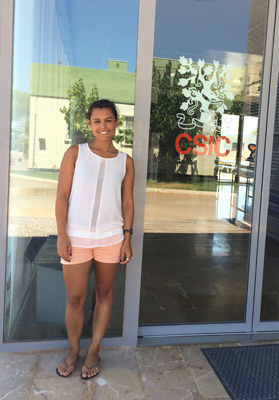
Fish and Chips, an online tool for fish transcriptomic meta-analysis2014-04-25
The third Newsletter of the European Project AQUAEXCEL (available here) presents the bioinformatic tool Fish and Chips for meta-analysis of fish microarray experiments. This tool has been built in collaboration with the group of Professor Patrick Prunet (INRA-Rennes). An application of this tool has also been reported in a recent publication in the journal Marine Biotechnology.
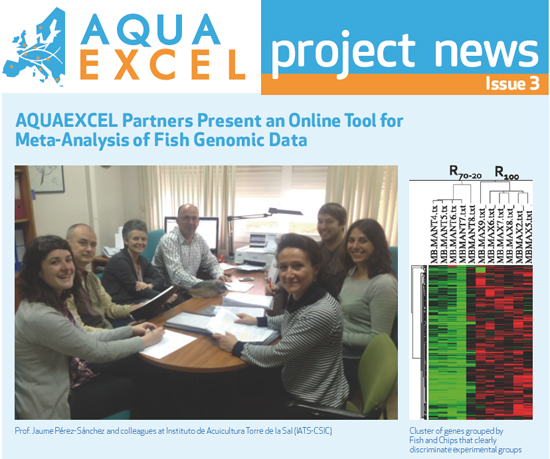
Fundación OESA interview2014-01-09
Profesor Jaume Pérez Sánchez has been interviewed about nutrition and other aquaculture research related topics in the El Rincón del Científico section of the Fundación OESA web (link)
Juan Antonio Rielo doctorates2013-11-29
Former Head of IATS Animal Facility for more than 20 years (1990-2010), Juan Antonio Rielo Zurita, defended his PhD thesis entitled “Desarrollo de un modelo matemático para la evaluación del proceso de crecimiento y engorde en los cultivos comerciales de dorada (Sparus aurata)” at the University of Valencia. The work has been supervised by Jaume Pérez Sánchez and José Pertusa Grau.
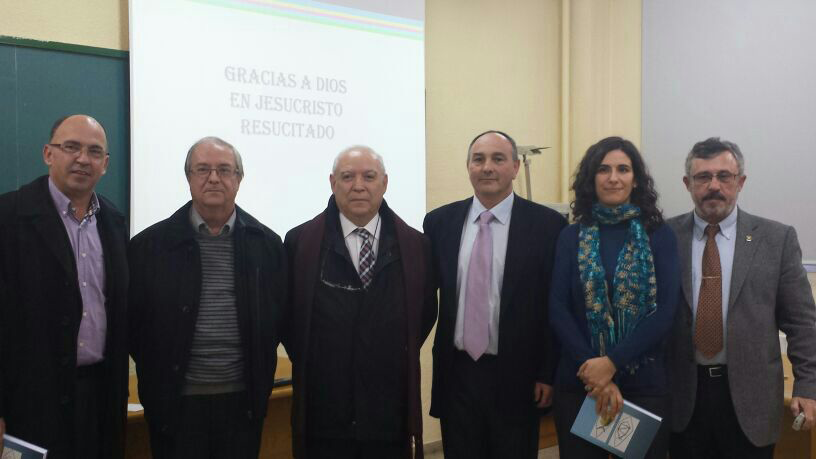
Aquaexcel European Project transnational acess2013-11-25
Dr Simona Rimoldi, from Biotechnology and Life Sciences department of Insubria University (Italy) has finished an one month stay at IATS facilites, supported by an European Project AQUAEXCEL transnational acces. During her stay, under supervision of Dr Josep Calduch and Professor Jaume Pérez Sánchez, she has conducted gene expression analyses of genes related to lipid metabolism in European sea bass.
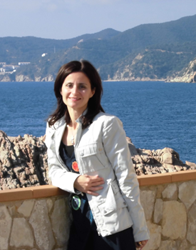
Summer samplings video2013-08-02
Radio interview2013-06-14
Radio interview (Españoles en la Mar, Radio Exterior de España) with Professor Jaume Pérez Sánchez about the characterization of mucins in gilthead sea bream and relevance for aquaculture (interview audio starts at 23:50)
CSIC Press Department covers our recent characterization of gilthead sea bream mucins2013-06-13
CSIC Press Department has highlighted our work on gilthead sea bream mucins published in Plos One with a press release (link)
AQUAFAT Project highlighted at OEAS Foundation web2013-05-16
Spanish project AQUAFAT has been selected by OESA Foundation as a highlighted project (link)
AQUAEXCEL transnational access2013-05-15
Dr Fabian Grammes, from Aquaculture Protein Centre of Norwegian University of Life Sciences (Norway) has finished a two months stay at IATS facilities, supported by an European Project AQUAEXCEL transnational access. During his stay, supervised by our group, he has conducted analyses for the determination of effects of butyrate-supplemented diets in gilthead sea bream.
